

43 Narrative Writing Prompts for 6th Grade
Narrative writing is a great way to help students take a break from more structured, academic writing, in order to reflect on their own thoughts or on things they’ve learned and experienced over time.
Below, you’ll find a list of narrative writing prompts to encourage your sixth graders to open up and write about things they typically might not.
Using This Guide
When it comes to reflective journaling, students often participate more when they aren’t being graded or judged based on what they write.
Consider keeping these prompts handy for downtime between activities, quiet time, or when it seems like a student needs a little extra nudge.
Here are some ways you can use this list in your classroom:
- Print prompts on strips of paper, and have students pick their assignments randomly.
- Include a copy of these prompts in your start-of-year paperwork for students to keep handy when they need them.
- Consider letting students keep a separate, ungraded journal for more personal prompts and writing activities.
The Writing Prompts
- Write about a time when you struggled with your self-esteem.
- What is your favorite elementary school memory?
- Who is someone you see as a role model? Why do they inspire you?
- What would you do with your free time if you had less access to technology?
- Write about a time when you felt afraid. What happened to make you feel better?
- Have you ever been in a fight with your best friend? Write about your fight and how it was resolved.
- If you could change one thing about yourself, what would it be? Why?
- Write 10 things you have in common with someone from your class with whom you aren’t friends.
- What would you do if you woke up tomorrow with wings?
- What sort of books would make you more interested in the required reading for class? Why?
- Have you ever been a victim of racism? How did it feel?
- Have you ever witnessed someone being bullied? What did you do?
- What is one thing you wish you could change about your community to make it more inclusive?
- Which video game character do you relate to most? Why?
- Which book character do you relate to most? Why?
- Which superhero do you relate to most? Why?
- Write about a time when you felt betrayed. What happened next?
- What is your favorite holiday memory?
- Write about the last time someone surprised you. How did you react?
- Would you rather spend the summer at a camp on a lake or in a condo on the beach? Why?
- Do you have a secret you’ve never told anyone? Write about it here, with as little or as much detail as you’d like.
- What are three careers you would like to have in the future? Why do these things interest you?
- If you could live in the world of any video game, which would you choose? Why?
- Do you think kids and teens spend too much time using technology? Explain your answer.
- Do you think that students should have mandatory homework? Why or why not?
- Write about someone in your family who you look up to.
- Does your family have any holiday traditions? What are they?
- Write the schedule of your typical day.
- Do you have a particular teacher who has affected your life in a positive way? Write a letter to them.
- If your best friend was a color, what color would they be? Explain.
- If you woke up tomorrow and learned that you could talk to your pet, what would you talk to them about?
- What is something that you’re afraid of? What do you think you could do to overcome this fear?
- Which do you prefer: online learning or school in the classroom? Explain your answer.
- What is your favorite restaurant? What do you like to order there?
- Who is someone you can always depend on? Write about what makes them dependable.
- What does it mean to be an ally?
- What do you think it means to be a feminist?
- When you are sick, what are some things that make you feel better?
- Write about a time when you were excited about something.
- What is your favorite type of weather? Why?
- Which holiday is your favorite? Why?
- Make a list of ten ways you can help the environment.
- Compare and contrast yourself with a friend or sibling.
Looking For More?
Our site is home to a ton of great teacher, parent, and guardian resources that can be used in the classroom or at home. If you’re looking for something specific and can’t find it here, let us know. We’d love to help you out.
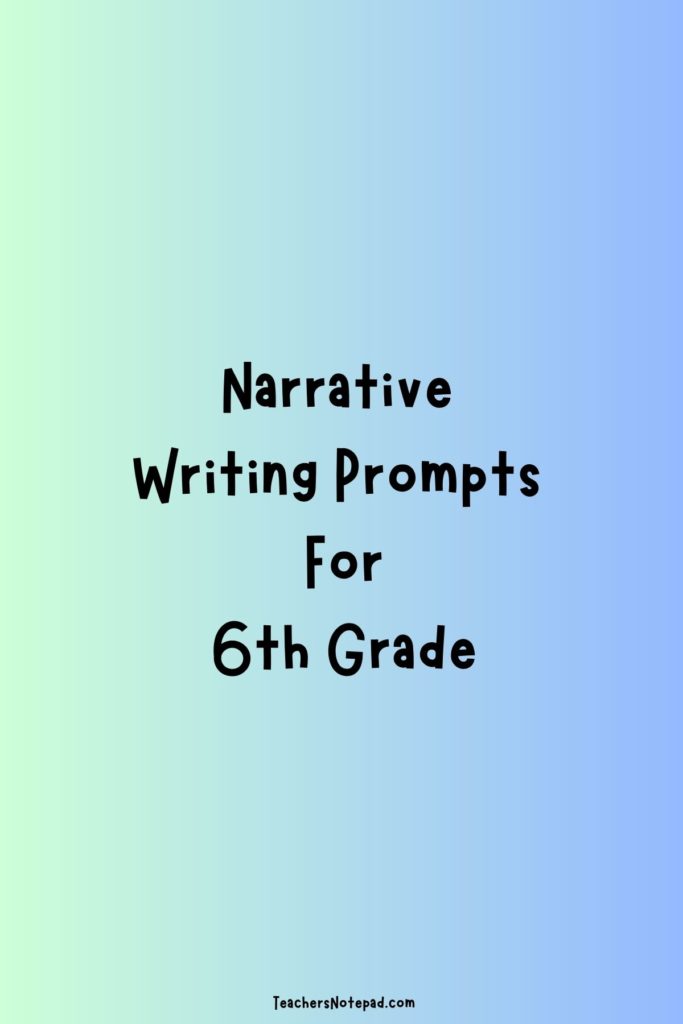
Reading Worksheets, Spelling, Grammar, Comprehension, Lesson Plans
50 Narrative Essay Topics
They say a picture is worth a thousand words, but a narrative essay can also tell an exciting story and create vivid pictures in the reader’s mind! We’ve got 50 narrative essay topics designed to prompt students to craft memorable written narratives. These can be modified for students in elementary, middle and high school. Feel free to print the entire narrative essay topics list for plenty of inspiration for your next narrative essay assignment!
Narrative Essay Topics
- Your first day of school.
- Your most exciting day of school
- A field trip that your class took.
- Your favorite summer vacation.
- A trip that included something unexpected or surprising.
- A time that you experienced something spooky.
- A time that you experienced something truly frightening.
- A time that you learned something new that changed you in some way.
- The moment when you met someone who changed your life.
- The day that you got your first pet.
- A move from one place to another.
- Something funny that happened to you.
- Something funny that happened to one of your family members or friends.
- Something embarrassing that happened to you.
- Your favorite birthday party.
- A birthday that was disappointing.
- A big storm (rain, snow or even a tornado!).
- A time that the power went out.
- A summer day when the temperature got much higher than expected.
- A time when you went to an amusement park.
- A time when you got lost somewhere.
- A memorable experience with a favorite family member.
- A sad experience with someone about whom you care.
- Your most exciting moment playing sports.
- Your most exciting moment performing in a play, singing, playing music or dancing.
- An experience that left you feeling frustrated.
- An experience that was hard but ended up being worth it.
- A time that you experienced rejection.
- A weird encounter with a stranger.
- A random act of kindness.
- A time that you took a stand for someone or for an issue that you care about.
- A moment when you thought you might get hurt but didn’t.
- Breaking a bone (or otherwise suffering an injury).
- Your first time away from home for the night (or longer).
- A time when you experienced a historic event.
- Where you were when a major event happened. (Note: You don’t need to have been at the site of the event; this prompt is about where you were when you found out about the event and how you reacted.)
- A time when you rebelled against your parents or teacher.
- A dangerous experience.
- A misunderstanding between yourself and someone else.
- A difficult decision that you had to make.
- The end of a friendship or relationship.
- The beginning of a friendship or relationship.
- A time when you judged someone first and then realized that you were wrong about the person.
- A time when someone judged you first and then realized that he or she was wrong about you.
- A moment when you felt that you were starting to grow up.
- A time when you saw one or both of your parents in a different light.
- A time when you looked up to your older sibling.
- A time when your younger sibling looked up to you.
- A time when you were grateful to be an only child.
- An experience that you think has only ever happened to you!
Looking for more essay topics? Compare and Contrast Essay Topics Descriptive Essay Topics Cause and Effect Essay Topics Persuasive Essay and Speech Topics
Search the blog
Input your search keywords and press Enter.
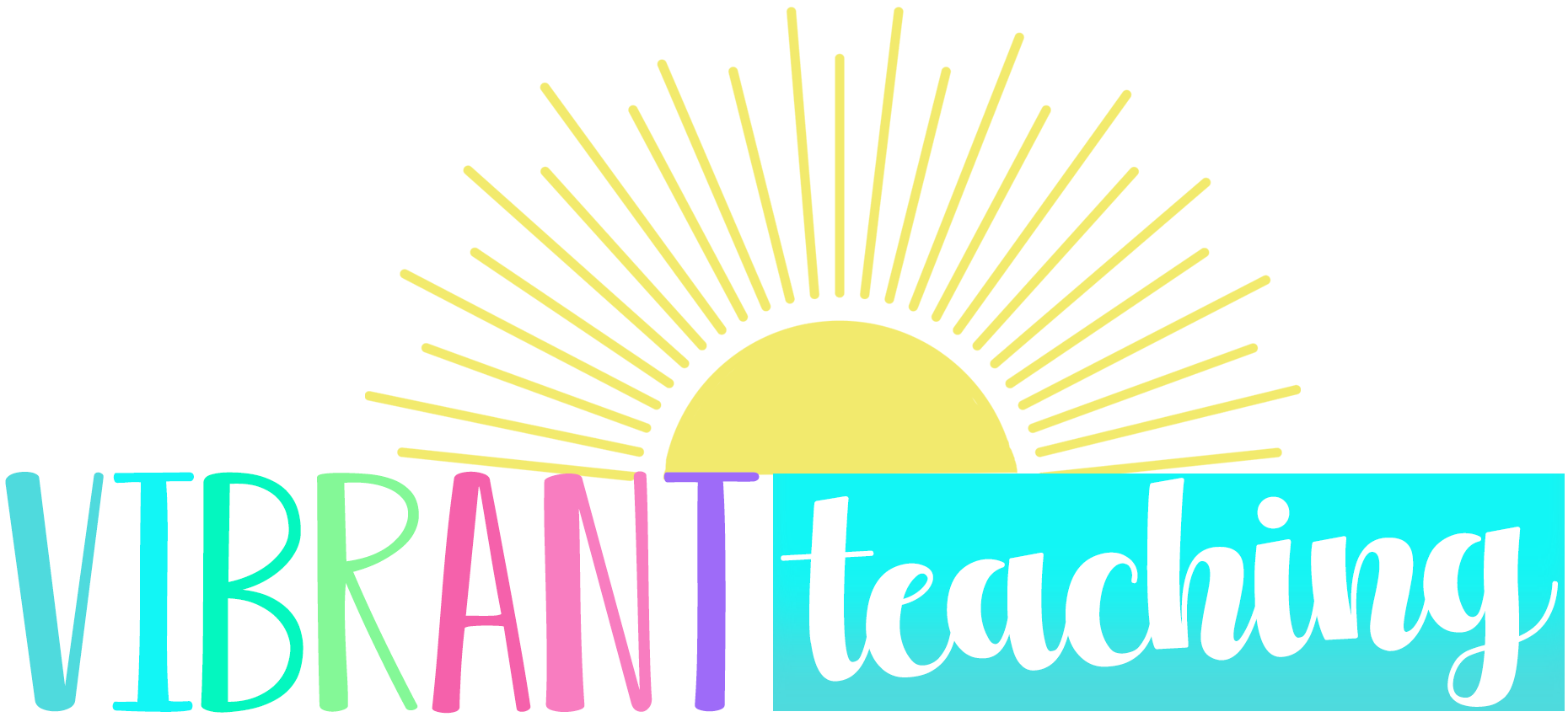
Vibrant Teaching
Teaching Resources Creator and Blogger
20 Prompts for Narrative Writing That Spark Creativity
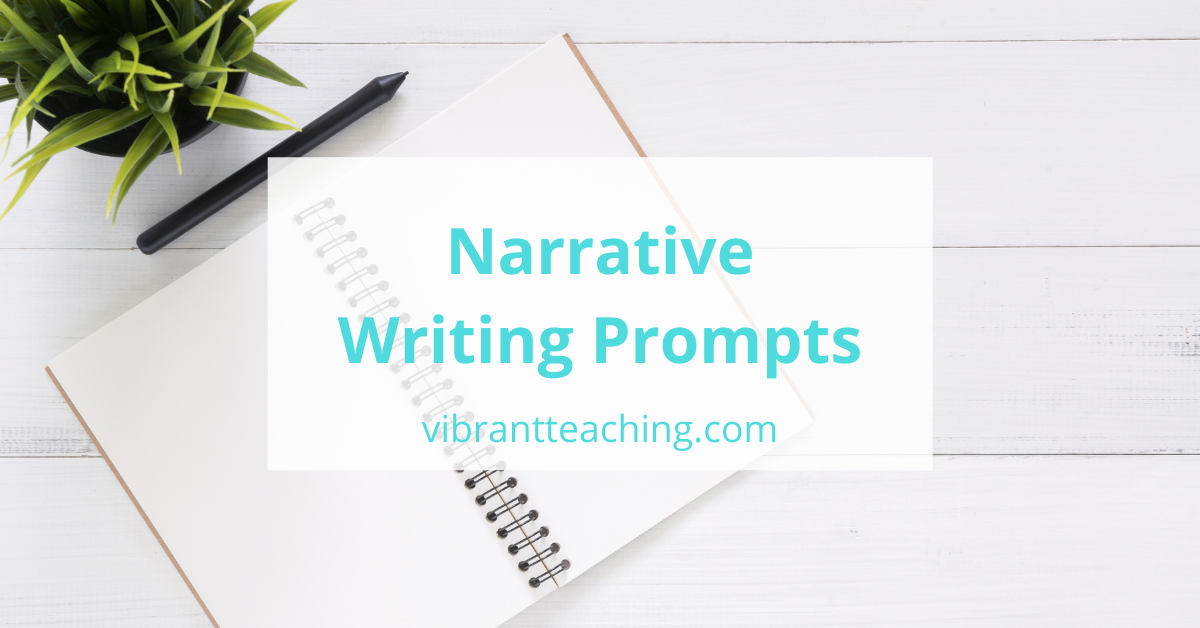
Using prompts for narrative writing motivates kids and gets them excited to write. Read on to learn more about narrative writing, mentor texts, ideas, and assessments. Plus you will find 20 fun prompts for narrative and personal narrative writing. These will be sure to spark student’s creativity and imagination!
What’s Narrative Writing?
Narrative writing tells a story using a beginning, middle, and end. It includes elements such as characters, setting, problem, and solution. The author’s purpose is usually to entertain or teach a lesson. Narrative writing can be fact or fiction but the process is the same. When it’s a real story from the author’s life, it is considered a personal narrative.
Examples for Narrative Writing
There are so many wonderful examples of narrative writing. Some are even written as personal narratives. Below you will find a list of mentor texts for elementary school. It’s helpful to immerse students in the genre before and during a narrative writing unit. These books model different strategies that kids can try in their writing.
Narrative Writing Mentor Texts:
- Owl Moon by Jane Yolen
- Come on, Rain! by Karen Hesse
- Those Shoes by Maribeth Boelts
- Fireflies! by Julie Brinckloe
- Knuffle Bunny by Mo Willems
- Jabari Jumps by Gaia Cornwall
- Enemy Pie by Derek Munson
- Blackout by John Rocco
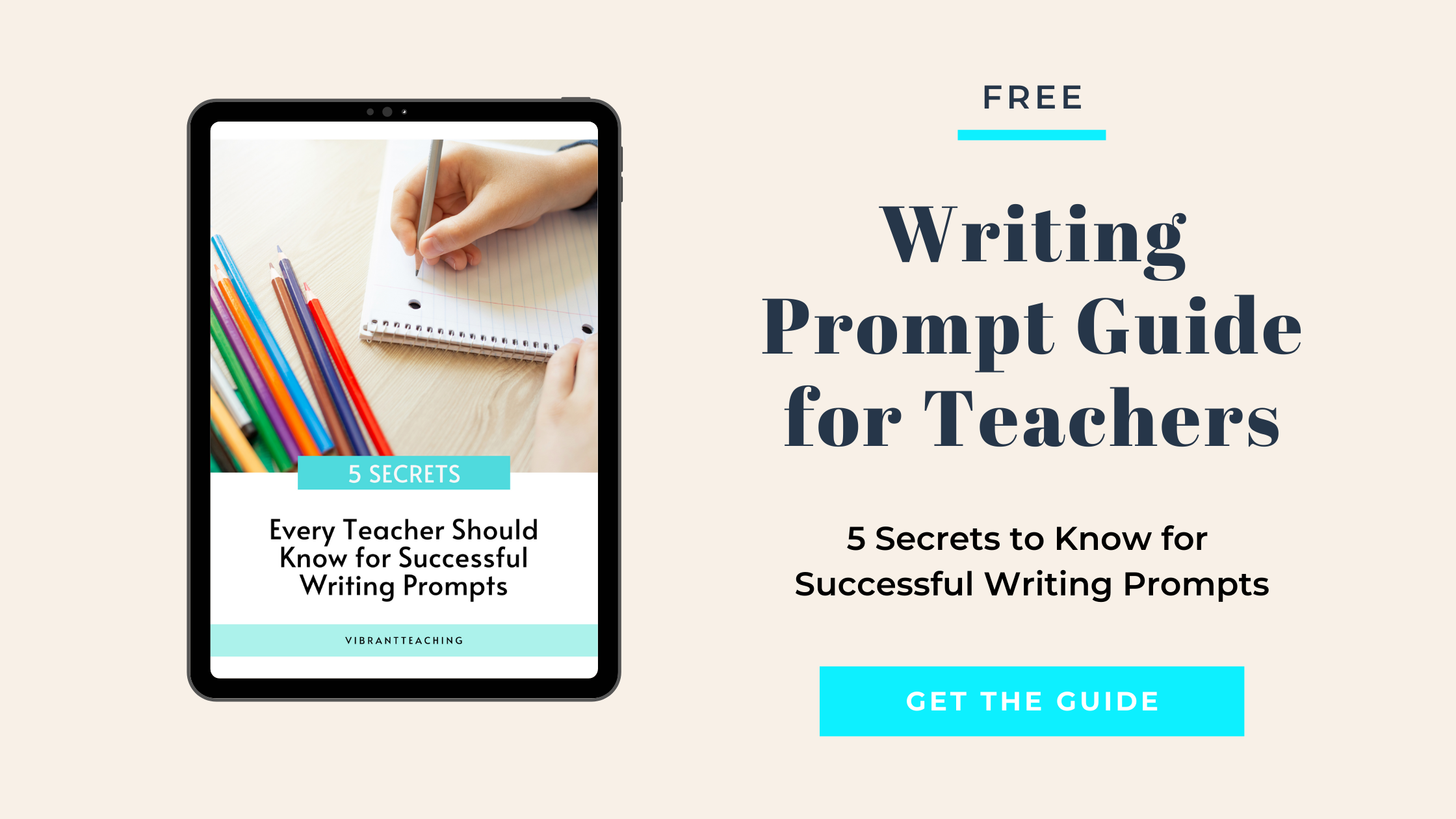
Narrative Writing Teaching
There are many features to include in narrative writing, but it depends on the grade level being taught. For the lower grades, it’s important to start with the concept of beginning, middle, and end written in sequential order. Then you can expand to the introduction, body, and conclusion using details. Other important elements are character, setting, problem, and solution. As the student’s abilities increase the number of sentences will grow and expand to paragraphs.
For the older grades, you can introduce plot structure. It follows the beginning, middle, and end format but on a higher level. This story arc includes exposition, rising action, climax, falling action, and resolution. Use the diagram below to see how these features overlap.
Plot Structure
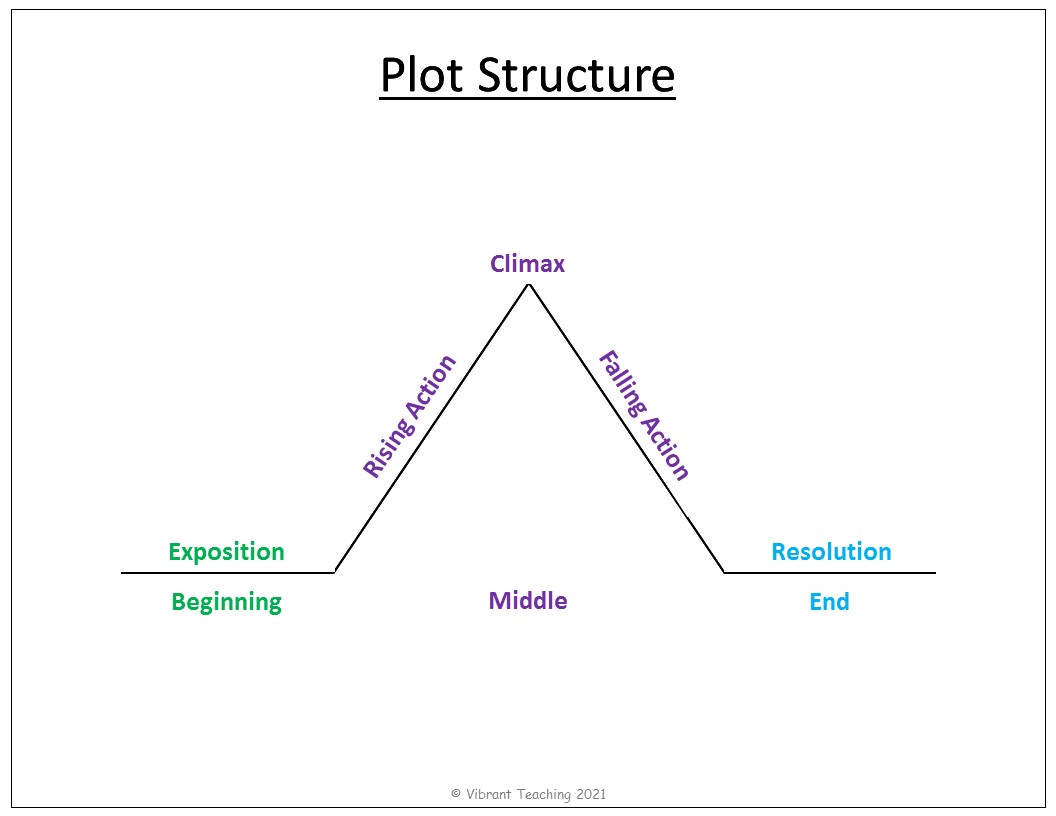
Topics for Narrative Writing
The possibilities are endless when it comes to narrative writing ideas. Kids can create a fiction piece or write about an experience in their life. Check out some writing prompt ideas below for narrative and personal narrative writing. You might also like this blog post about opinion writing prompts: 20 Prompts for Opinion Writing That Motivate Kids
Writing Prompts for Narratives
- I was taking my friend’s picture in front of the volcano when all of a sudden . . .
- What if you were given 3 wishes but couldn’t use them on yourself. Tell a story about what you would wish for and why.
- Write a story called, “The Luckiest Day of My Life.”
- Imagine you went to the zoo and could take home any animal for the day. Tell a story about your time together.
- Write a silly story that uses these words: airplane, grapes, elephant, and book.
- You have just been shrunk down to the size of an ant. Write a story including the good and bad things about being so small.
- Think about your favorite character from a book. Tell a story about getting to meet them for the first time.
- What would happen if you lived during a time when there was no electricity? Write a story about your school day.
- Finish this story: The pirates set sail on their ship in search of . . .
- Suppose you were teacher for a day. Write a story about the changes you would make.
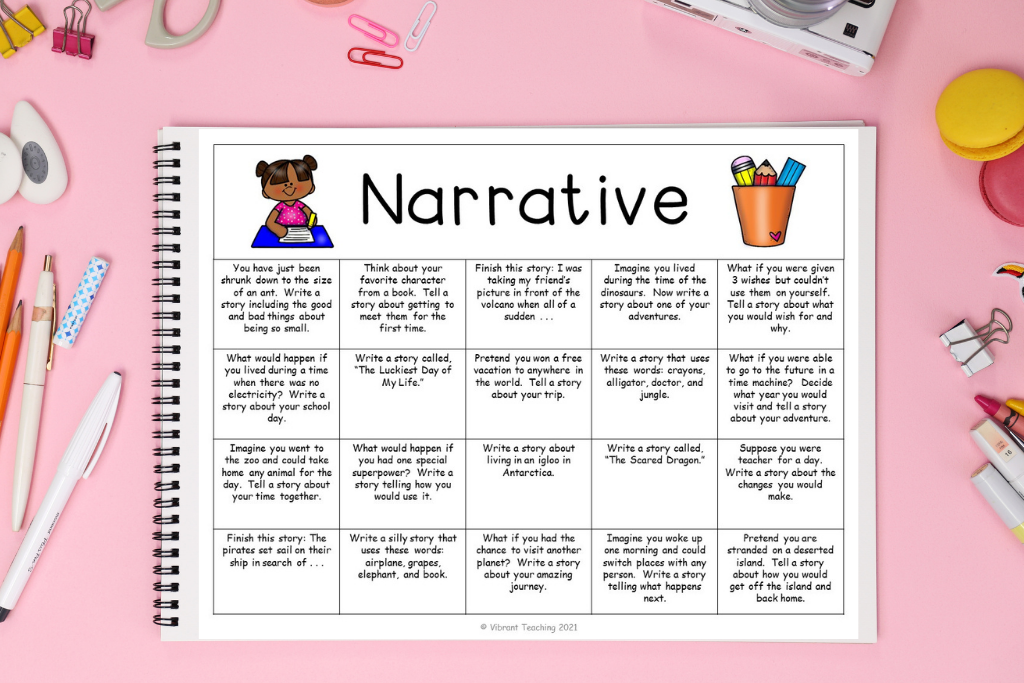
Writing Prompts for Personal Narratives
- Have you ever been so proud of yourself for learning something new? Write a story about a time this happened.
- Write a story about a time you felt your heart race. What happened and how were you feeling at the end?
- What was your most memorable vacation? Tell a story from part of that trip and why it stands out in your mind.
- Have you ever done something you knew would get you in big trouble? Write a story about a time this happened and how you felt about it.
- Write a story about the strangest thing that has ever happened to you. Why was it so unusual?
- What was your most memorable moment from this year? Write a story telling why it’s so special.
- Tell a story about a time when you were so excited and couldn’t wait for an event to happen.
- Write a small moment story about a time you had with your favorite person.
- Write about a time that you lost something important. Tell whether or not you found it.
- Think about the worst day you ever had. What made it so terrible and did it get better by the end?
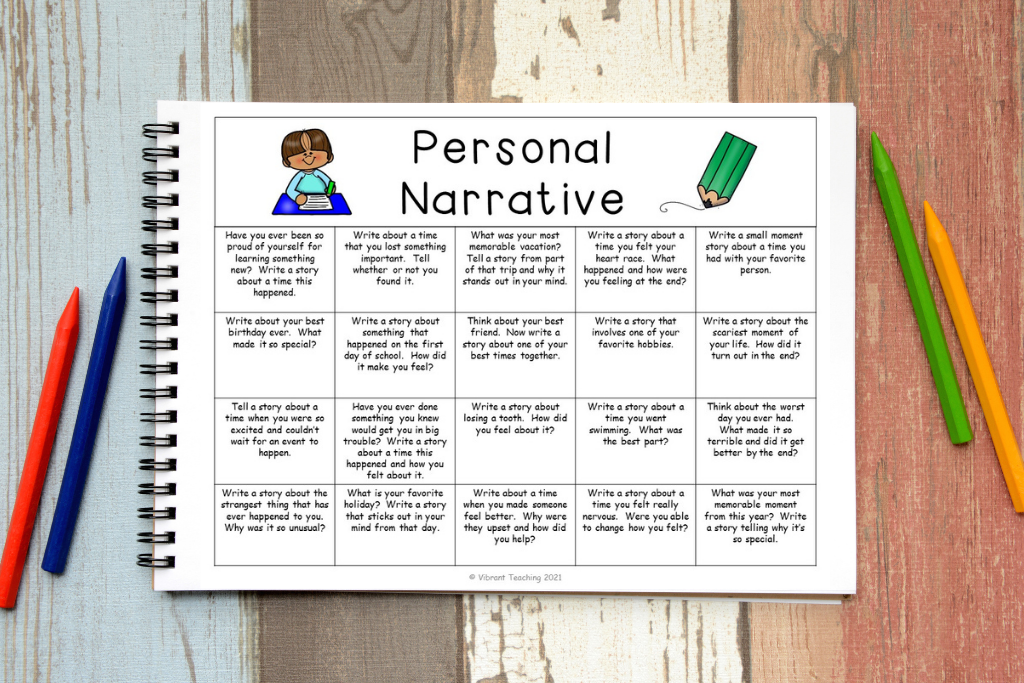
Rubrics for Narrative Writing
I often hear from teachers that one of the most difficult parts of teaching writing is how to assess it. Assessments should be accurate and helpful for both the student and teacher. When it comes to narrative writing, there are many different approaches. Some teachers prefer to do a more informal assessment for daily writing pieces and then a formal assessment for the final copy. Informal assessments can be completed with written comments or student-teacher conferences.
It would be very difficult to use a rubric for every narrative writing a student completes in their notebook. Instead, most teachers prefer to choose one to three writing pieces to assess with a rubric. These assessments are ideal for benchmarks, progress reports, and report cards. Below you will find three types of narrative writing rubrics. Check out this blog post to learn more about student-friendly, teacher-friendly, and time-saving rubrics: 3 Types of Writing Rubrics for Effective Assessments
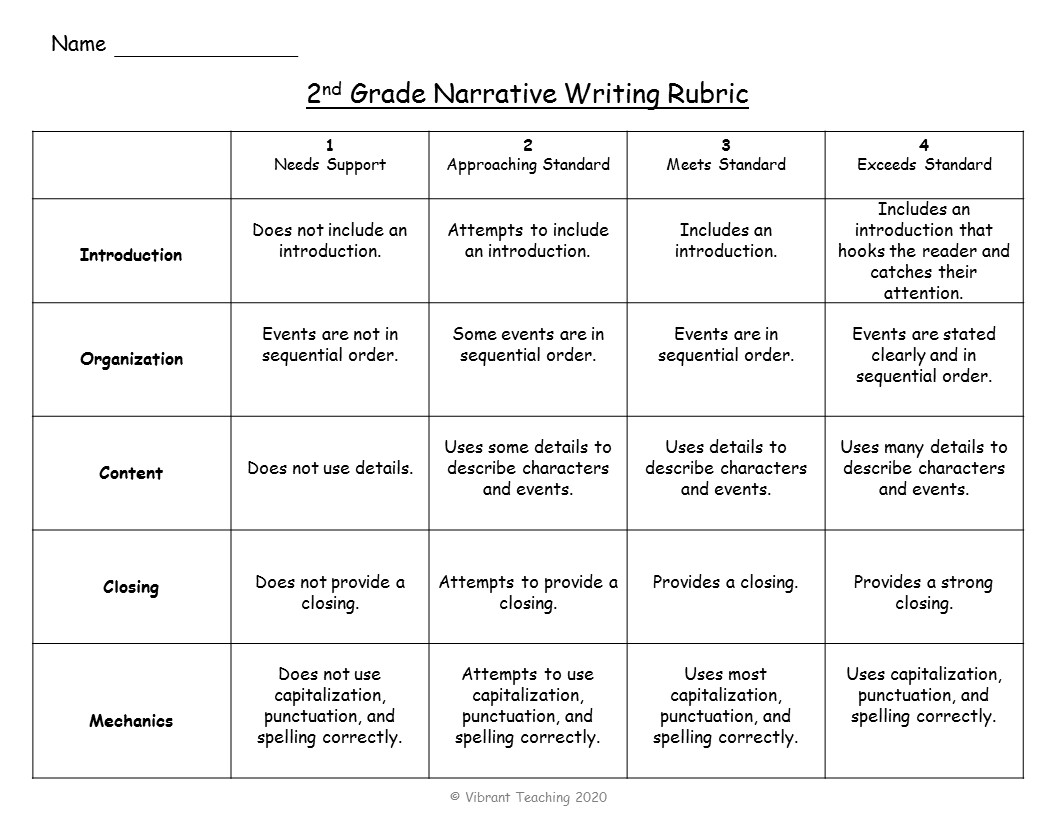
Narrative writing enables kids to be creative and use their imagination. They can write a fiction story or about a real event from their life. Writing prompts are a helpful tool to get kids engaged and ready to get started. Did you grab your Free Writing Prompt Guide yet? I love using prompts for morning work, writing time, centers, or as a homework assignment. The possibilities are endless! Be sure to try these prompts for narrative writing with your students!
Genre Based Prompts
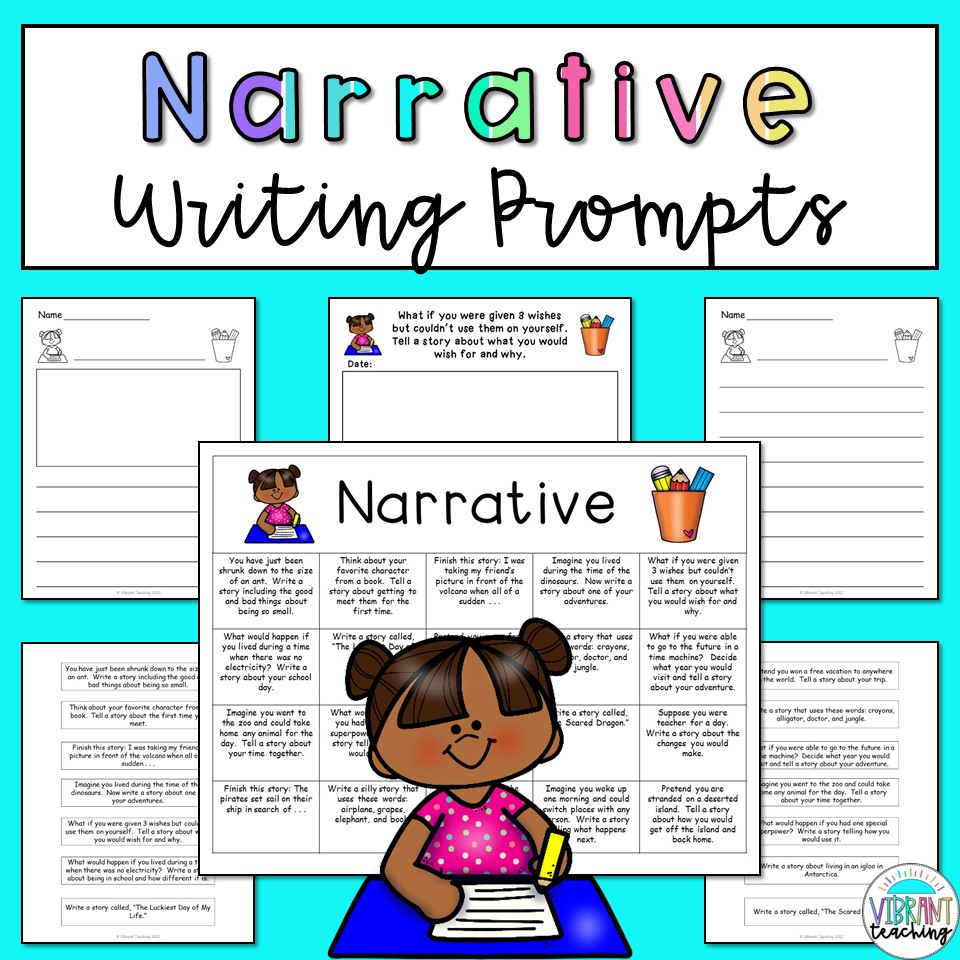
Related Articles:
- 20 Prompts for Opinion Writing That Motivate Kids
- What is Narrative Writing
- A Complete Guide to Narrative Writing
- Personal Narrative Writing for Elementary School
- Narrative Writing: How to Teach a Story Arc That’s as Exciting as a Roller Coaster
Angela Sutton
Related posts.
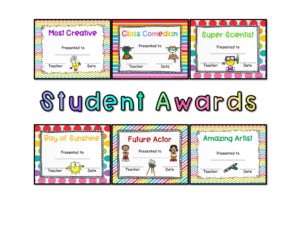
3 Reasons to Use Student Awards
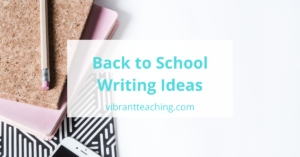
Back to School Writing Ideas for Kids
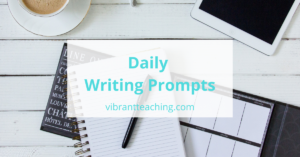
How to Use Writing Prompts Daily
No comments, leave a reply cancel reply.
I accept the Privacy Policy
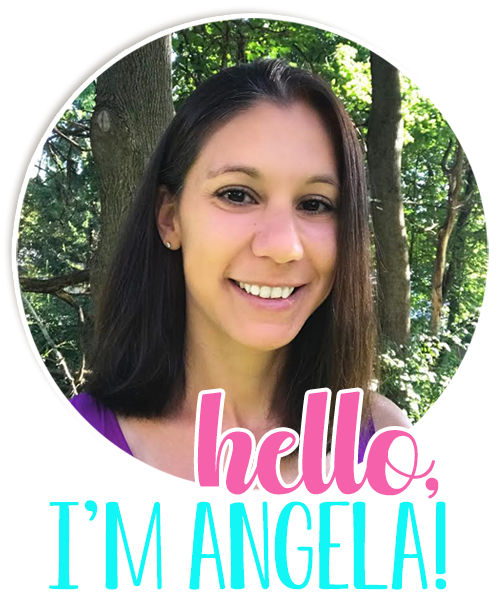
I specialize in helping elementary teachers with writing resources, tips, and ideas. My goal is to save teachers time and energy so they can be vibrant inside and outside of the classroom! Read More
SEARCH THE BLOG
Subscribe to our mailing list.
Get the news right in your inbox!
Health and Wellness
- Writing Tips
- 500+ Free Fiction Writing Prompts For Adults By Genre
- Self Publishing 101
- Best Writing Books
- Dragon Dictation Software Review
- Editing Software
- Email Marketing
- Formatting Software
- Gifts for Writers
- MasterClass Reviews
- Online Courses
- Scrivener 3 Review
- Website Hosting
- YouTube Channels
Select Page
100 creative 6th Grade Writing Prompts
Writing Prompts |
Disclosure: The content on this site is free. Some of the links below are affiliate links from companies like Amazon.com and if you click the links and make a purchase we will receive a small commission at no additional cost to you. Thank you in advance if you decide to support our site by using our affiliate links!
100 Creative 6 th Grade Writing Prompts
Sixth grade is the right time to introduce students to activities that promote self-expression and improves their overall writing skills. In this post, we have come up with a list of 100 writing prompts — from storytelling and expository to research and creative writing prompts — to help students tap into their creativity and hone their writing skills.
In this post, we have for you:
- Storytelling writing prompts
- Research writing prompts
- Reflective writing prompts
- Narrative writing prompts
- Expository writing prompts
- Procedural writing prompts
- Creative writing prompts
So, let’s put this show on the road.
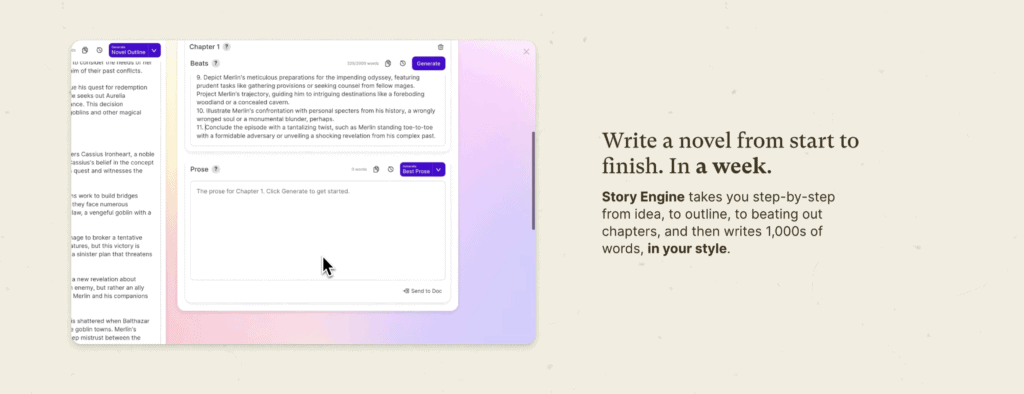
Storytelling writing prompts for 6 th grade
- When we found that the grandpa’s closet opens up to a deep forest, we decided to…
- As I was walking around the local park, a dog came up to me and said, “You have got to listen to my story.” And then he began speaking…
- The most surprising thing we have found in our school was…
- As I was cleaning the attic in my grandparent’s house, I found the genie’s lamp. I decided to…
- My brother and I were in the first fight ever. It all began when…
- Our dream family vacation to… got canceled my younger brother woke up with…
- As the world’s first 12-year scientist, I need to share my invention…
- My first road trip with my dad didn’t go as per the plan. First…
- When Lucy opened her lunch box, she couldn’t help exclaiming “Ugh” because the food looked as gross as…
- I got the biggest surprise of my life when my dog…
- I had never laid eyes on a dragon until that morning when our school took us to the nearby jungle as part of a trekking tour.
- I woke up one morning only to find I have been turned into a big bug. While I was still coming to terms with this, my mother shouted, “Hurry up or you’ll be late for the school.” So I did what I had to do, which was…
Research writing prompts for 6 th grade
- How much time do students spend on the internet?
- How much screen time students have per day?
- Does social media makes peer pressure worse?
- How long can human beings survive without water?
- How long can human beings survive without food?
- How long can fish survive out of water?
- Research your dream career? Mention all the things you must do to achieve it.
- Research the childhood of your favorite writer?
- When, why, and how was your country founded?
- How long camels can go without drinking water? Can they survive long? If yes, how do they manage that?
- How smoking affects your lungs?
- Which has been the most important discovery in the last 50 years?
- What steps can we take to minimize global warming?
- What are civil rights? Who fought for them?
- How do penguins survive in extreme cold?
- Are polar bears good swimmers? If yes, how are they able to swim efficiently in spite of their weight?
- How much food does an elephant needs in a day?
- How shark uses senses to hunt?

Reflective writing prompts for 6 th grade
- Write about a time when you were not able to keep a promise. What had happened? How did you feel?
- What’s the best thing about being in the 6 th grade?
- What’s the worst thing about being in the 6 th grade?
- What has been your biggest learning in the last six months?
- What are the qualities that a good friend must have?
- Write about three qualities you admire in your dad?
- Which sport you like the best and why?
- List your favorite extracurricular activities. What have you learned from them?
- Track the weather for five days? Which was the most comfortable day?
- How students can reduce their screen time?
- Is reading a more satisfying activity than watching television?
- What are the negative effects of social media?
Narrative writing prompts for 6 th Grade
- Do you think you can go three months without the internet?
- Write a letter to your emotional self?
- Is it important for kids to have responsibilities and chores at home?
- What advice would you give to someone who is being bullied at the school?
- Which animal in your opinion represents your personality the most and why?
- Do you like making new friends? Why or why not?
- If you could change one thing about your school, what would it be?
- Write a poem or essay about your parents?
- Describe your favorite family vacation?
- Think about the best day in your life so far. What made the day so memorable?
- Think about the worst day in your life so far. What made the day so miserable?
- Which is your favorite book? How has it impacted you?
- Which your favorite movie? Why do you like it so much?
- Think about your future self. Write about a day in your life, five years from today.
- Tell a family story from the perspective of your mom.
- Who is the fittest person you know? Would you like to become as fit as this person? Why or why not?
- Write about how it feels to spend a night at home alone?
- What are three great things about your school?
- Describe your life if you lived during the Middle Ages?
- What is the biggest problem the world is facing today? How would you solve it?
- How did computers affect our lives?
- Imagine you were asked to pick a new holiday. Describe what you’ll be celebrating and how.
- Could you live without a cell phone for a year? How would you communicate with your friends?
- How hearing and listening are two different things?
- If you could go back in time, which year would you choose?
- You meet a wise man who knows answers to all questions, but you can ask him only one question. What would you ask?
- Who is the oldest person you know?
- Think about a time you were not able to keep a New Year’s resolution? What had happened? Why did you fail?
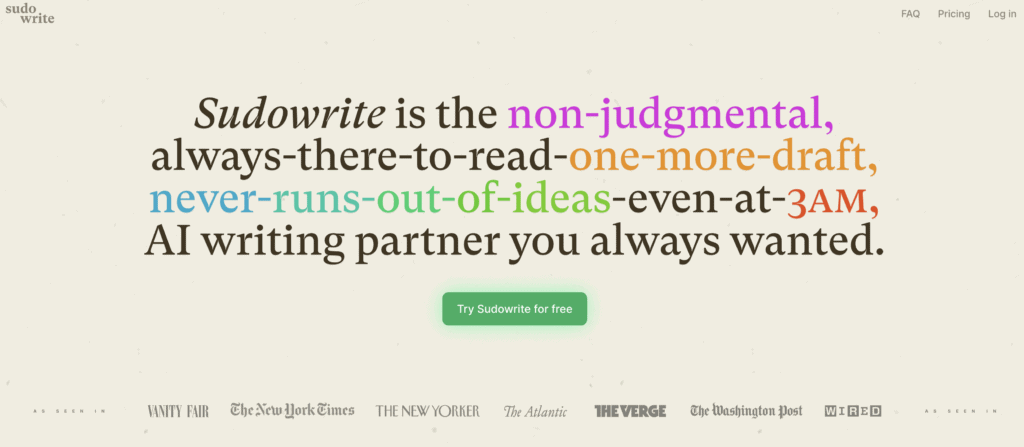
Expository prompts for 6 th grade
- Describe your favorite short story in your own words.
- Find an interesting story in the newspaper or a local magazine and write it in your own words.
- Write an essay explaining the similarities and differences between you and your sibling or your best friend.
- In what ways Barrack Obama and Abraham Lincoln are similar? In what ways they are different?
- Is life as a sixth grader today different than it was when your parents were studying in the sixth grade? If yes, how it is different.
- Compare and contrast your two close friends.
- How has been your school year so far? What are the main highlights?
- What was the cause of the recent argument you had with your mom or dad? How did it go?
- Compare and contrast two of your most favorite books?
- How is empathy different from sympathy? Explain the concept of empathy?
- How important is to have a hobby? Explain the benefits of having a hobby.
- Explain a problem in your school? How would you solve it?
- How has cell phone changed our lives?
- Is there really something as cell phone addiction? If yes, what it is?
- Gaming addiction is on the rise among kids? How do you think we can tackle this problem effectively?
Procedural writing prompts for 6 th Grade
- Your friend wants to learn how to play your favorite board game. Explain the steps to him or her.
- Explain a grandparent how to use Facebook.
- Explain a reader how to play your favorite computer game.
- Write step-by-step instructions to tie shoelaces.
- Explain a reader how to play your favorite card game.
- Write step-by-step instructions to create a post on Instagram.
- Explain how to complete all the levels of a video game.
- Describe how you get home from school.
Creative writing prompts for 6 th Grade
- If you could spend a week in any holiday destination in the world, where would you go?
- If you had the power to communicate with pets, what conversations would you have?
- Write a poem that describes your family.
- If you could meet one media personality, who would you choose and why?
- If you could change one thing about your country, what would you choose and why?
- You wake up one morning to find that you can fly. What adventures will you have?
- You wake up one morning to find that you have grown taller and your clothes and shoes don’t fit you anymore. What would you do?
We hope these writing prompts will help get your pen or pencil moving. Some of these writing prompts need research, some are intellectually challenging, and some others are fun and creative. If you would like more writing prompts, have a look at this post , which offers tons of additional writing prompts you can use to unleash your writing talent. Good luck!
- Get other writing prompts for kids here :
- 3rd-grade writing prompts
- 4th-grade writing prompts
- 5th-grade writing prompts
- Middle School Writing Prompts
Related Posts
100 cool 8th grade writing prompts.
December 20, 2020
100 Amazing 7th Grade Writing Prompts
December 7, 2020

67 Terrific Mystery Writing Prompts and Story Ideas
August 14, 2018

100 FREE 5th Grade Writing Prompts
November 25, 2020

“This site is owned and operated by FB Global Value LLC, a limited liability company headquartered in New Jersey, USA. FB Global Value is a participant in the Amazon Services LLC Associates Program, an affiliate advertising program designed to provide a means for sites to earn advertising fees by advertising and linking to Amazon.com. As an Amazon Associate, I earn from Qualifying Purchases . FB Global Value LLC also participates in affiliate programs with Bluehost, Clickbank, CJ, ShareASale, and other sites. Sites like Self Publishing Hub which are owned and operated by FB Global Value LLC are compensated for referring traffic and business to these companies.”


50 Engaging 6th Grade Writing Prompts for Thoughtful Essays
Sixth grade marks a big transition in students’ lives. They’re no longer little kids, but they’re not quite teens either–that’s what middle school is all about. To help your students bridge this transition with ease, it’s important to give them plenty of opportunities to practice their writing skills since they’ll be doing a lot of writing in high school and beyond.
Over and above that, writing can be the perfect way for kids to express themselves and explore the world around them. That will only happen if you give them the space to do so, though, so here are 50 engaging 6th-grade writing prompts to help your students get their creative juices flowing.
Narrative Writing Prompts

Narrative writing revolves around telling a story with a plot that has rising action, a climax, and a resolution. These narrative writing prompts will give your 6th-grade students plenty to think about–and write about.
Story Starters

Students will often struggle with where to start their stories. These story starters will help them get past that initial hurdle by giving them some ideas to get their narratives going.
1. I had the biggest fight with my best friend yesterday. It all started when…
2. My first trip to the beach wasn’t what I expected. I thought it would be…
3. I’ll never forget the time when I was lost in the city. It was…
4. I had the biggest surprise of my life when…
5. My family went on the craziest road trip last summer. We started out by…
As you guide your students through their writing journey, make sure to encourage them to be creative and have fun with it – but still have them include the essential elements of a story, like rising action, a climax, and a resolution, so that their stories are well-rounded and engaging.
Personal Narrative Prompts

Personal narratives are all about giving students the opportunity to tell their own stories in descriptive ways. Here are writing prompts to get them started.
6. What’s the best (or worst) birthday you’ve ever had? Why was it so great (or terrible)?
7. What’s the bravest thing you’ve ever done? What made you do it?
8. Think about your future self–where do you see yourself in 1 year? Write about it.
9. Think about the best day you’ve ever had. What made it so special?
10. Describe a time when the weather was really extreme. Describe it.
Reflective Writing Prompts

Reflective writing is a lot like journaling–it gives students the opportunity to process their thoughts and feelings on a given topic. These reflective writing prompts/journal prompts will encourage thoughtful reflection in your students while giving them some fun.
11. Make a list of your favorite things about yourself.
12. Take a walk in nature and describe what you see. What emotions does it evoke in you?
13. Describe your sports or extracurricular activities. What have you learned from them all?
14. Make a list of all the emotions you experience throughout the day.
15. Make a record of your daily objectives. Consider which one was the most simple to accomplish.
Journal prompts are usually effective because they make you think about a certain topic in a different, more introspective way, and so students should be encouraged to approach these writing prompts with open minds and hearts.
Informational Writing Prompts

Informational writing is an essential skill for middle-schoolers, especially as they head into high school and college, where they’ll be expected to write long-form essays rather than fiction. These informational writing prompts will give your students plenty of practice with this type of writing.
Expository Prompts

Expository writing is a type of nonfiction writing that requires students to investigate an idea, assess evidence, expand on the idea, and present an argument concerning that idea in a clear and concise manner. These prompts will help your students hone their expository writing skills.
16. Compare and contrast two of your friends.
17. Choose a challenge at your school. What’s the ideal solution for it?
18. Discuss a problem in a movie you enjoy. What was the outcome of the situation?
19. What was the cause of a recent argument you had? What was the effect?
20. Find an interesting story/narrative in your local newspaper and tell it in your own words.
Research Prompts

Next, research writing prompts will help students practice their research skills by investigating a given topic and finding credible sources to support their claims. These research writing prompts will allow your students to conduct investigative research and write about what they’ve found in detail.
21. How long can fish survive without water?
22. What animals are on the verge of extinction?
23. What’s the history of your favorite sport, and how did it develop?
24. What are people’s civil rights, and who has fought for them?
25. Explore your dream career. What skills would you need to succeed in it?
This may be a good time to introduce your students they could use to reference their information and give credit where it’s due. Inform them that not all sources are created equal, and brainstorm some tips for evaluating the credibility of a website.
Procedural Prompts

As their name suggests, procedural writing prompts provide students with the opportunity to write clear and concise instructions on a given topic. These prompts will help your sixth graders learn the essentials of procedural writing.
26. Make a user guide for anything you use frequently (e.g., your computer, smartphone, video game console).
27. Write a set of instructions for cleaning your room.
28. Teach a younger reader how to do homework without wasting time.
29. What’s the quickest way for you to go to the library if you’re in your classroom now?
30. Describe the steps involved in tying a shoe.
Argument Writing Prompts

The next type of writing prompt is argument writing. Argumentative writing is a type of nonfiction writing that requires students to investigate a topic, collect evidence, and assess their findings to defend a point of view while also considering the perspectives of others.
These argumentative writing prompts will give your young writers practice with this type of persuasive writing.
Argumentative Essay Prompts

The most common type of essay prompt on standardized tests is the argumentative essay question since it’s intellectually challenging. In these questions, students will be given a prompt and they’ll be asked to take a position on an issue or topic.
They’ll then need to provide satisfactory evidence from their research to support their position. Here are some prompts to get them started.
31. Should school uniforms be required in all schools?
32. Is it ever okay to break the law?
33. Do you think people should be required to vote? Why or why not?
34. Is Monday through Friday the best school schedule?
35. Is it important to learn science?
Persuasive Prompts

Emotional appeals can be a powerful tool in persuasive writing. In these prompts, students will need to use their powers of persuasion and other rhetorical strategies to convince their readers to see their point of view. Here are persuasive prompts to put your students’ powers of persuasion to the test.
36. Make a case for or against year-round schooling.
37. Should there be a limit on the amount of homework students can receive?
38. Persuade your parents to let you choose your own bedtime.
39. What’s the best way to deal with bullies in schools?
40. Who’s the greatest sports athlete of all time?
Poetry Prompts
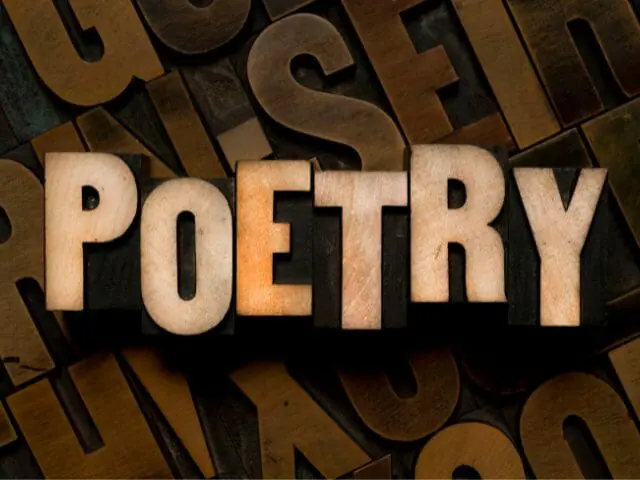
Poetry prompts are a great way to get your students to write creatively. These prompts will help your students tap into their imaginations and write poems that are both beautiful and moving. Whether in free verse or strict meter, your students will be sure to impress you with their poetic prowess.
41. Write about how you’re feeling right now in a haiku .
42. Create a poem in memory of a book, TV, or film character who has died.
43. Choose an onomatopoeia and use it five times in a poem.
44. Consider a metaphor for the current school year and create a poem about it.
45. Write a friendship poem in which every line includes a rhyme for “friend.”
Creative Writing Prompts

Last but not least, creative writing is all about using imagination to create a piece of writing that’s unlike anything else. This creative writing prompts will help your students tap into their imaginations and write some truly unique pieces revolving around self-expression.
46. If I could have any superpower, it would be…
47. Write about a day in the life of your favorite cartoon character.
48. If you could be a historical figure for a day, who would you choose to be?
49. Write a family story from the perspective of your pet.
50. Invent a new holiday and describe how it’s celebrated.
Jump In : Better prepare your 6th graders for this activity by improving their reading comprehension first! Proceed to read my list of fun comprehension exercises here — 11 Fun 6th Grade Reading Comprehension Activities (& Games) .
Dust Off Those Pencils and Get Ready to Write!
While many students lose motivation as their first middle school year goes on, these 50 6th grade writing prompts will help keep them excited about writing all year long. With tons of different genres and modes of writing to choose from, there’s something here for everyone! So get those pencils sharpened and those minds thinking—it’s time to start writing!
Last Updated on July 24, 2022 by Emily
- Pinterest 67
Emily is an active mother of two and a dedicated elementary school teacher. She believes the latest technology has made a huge impact on the quality of early learning and has worked hard to upgrade her classroom and her own children’s learning experience through technology.
Follow her on Twitter , Pinterest , and Instagram for more teaching fun!

Save my name, email, and website in this browser for the next time I comment.
6th Grade Writing Prompts: Unlocking Imagination
By: Author Paul Jenkins
Posted on Published: March 27, 2023 - Last updated: July 31, 2023
Categories Writing
6th Grade Writing Prompts are a valuable tool for educators and parents alike, allowing young students to explore their thoughts, feelings, and ideas through creative writing exercises. These prompts can cover various topics, from personal experiences and emotions to thought-provoking scenarios and ethical dilemmas. The aim is to encourage students to think critically and express themselves effectively while developing their writing skills.
At this crucial stage of development, providing a supportive and engaging environment for students to practice and improve their writing abilities is vital. Numerous resources offer a wealth of compelling writing prompts specifically designed for 6th graders. The prompts you’ll find below in this article can inspire students to ponder real-world issues, reflect on their personal experiences, and imagine creative solutions to hypothetical situations.
The Importance of Writing Prompts
Writing prompts play a crucial role in developing the writing skills of 6th-grade students. They provide a starting point for students to begin expressing their thoughts and ideas, helping them overcome the common challenge of “writer’s block.” As students engage with various writing prompts, they learn to think critically, express their opinions, and dive into imaginative storytelling.
By offering a diverse range of topics, such as prompts that focus on procedural writing, students are exposed to different genres and styles of writing. This variety expands their writing horizons and helps them become well-rounded, versatile writers.
Introducing writing prompts at the 6th-grade level also enhances students’ analytical and problem-solving abilities. They learn to use evidence, logic, and reasoning to support their viewpoints and persuade readers. Additionally, writing prompts allow students to explore their creativity and foster a sense of self-discovery.
Lastly, engaging with writing prompts helps 6th graders develop crucial communication skills that serve as a foundation for future academic success and life experiences. Writing prompts encourage active participation in the learning process, promote self-expression, and cultivate a lifelong love for writing.
25 6th Grade Writing Prompts
- Imagine you’ve discovered a hidden door in your home that leads to a secret room. Describe the room and what you find inside.
- Write a story about a day when everyone’s dreams come true. How does this change the world?
- If you could switch lives with any historical figure for a day, who would you choose and why? Describe your day in their shoes.
- Imagine you have a time machine that can only be used once. Where and when would you go, and what would you do?
- Write a letter to your future self ten years from now. What advice would you give, and what questions would you ask?
- Create a new holiday and explain its celebration, including unique traditions or activities.
- Write an opinion essay on whether or not students should be required to wear uniforms in school. Provide reasons to support your argument.
- Imagine you can communicate with animals. What would you talk about, and which animal would you be most excited to speak with?
- Write a short story where the main character finds a mysterious map that leads to a hidden treasure.
- You’ve been chosen to represent Earth in an intergalactic council. What would you share about our planet and its inhabitants?
- Write a persuasive essay arguing for or against using technology in the classroom.
- Create a new superhero and describe their powers, backstory, and how they use their abilities for good.
- Imagine you are the president for a day. What would be your top priorities, and how would you address them?
- Write a story that starts with the sentence: “It was a dark and stormy night…”
- Create a fictional island and describe its geography, culture, and inhabitants. What makes this island unique?
- If you could invent a new gadget or tool to make life easier, what would it be, and how would it work?
- Write a personal narrative about a time when you faced a challenge and how you overcame it.
- Imagine you could create a new class or elective for your school. What would the class be about, and why would students benefit from it?
- Write a descriptive essay about your favorite place to visit. Use vivid sensory details to make the reader feel like they are with you.
- You wake up one day to find you’ve gained the ability to read minds. How do you use this power, and what challenges or moral dilemmas do you face?
- Create a fictional holiday and write a short story about a family celebrating it for the first time.
- Write a persuasive essay about the importance of conserving natural resources and the steps that should be taken to protect our environment.
- Imagine you are a detective solving a mysterious crime. Write a story that details your investigation and how you uncover the truth.
- If you could converse with any famous author, who would it be, and what would you ask them?
- Write a personal narrative about a memorable experience with a friend and what it taught you about friendship.
Understanding the 6th Grade Writing Curriculum
The transition from elementary to middle school.
As students enter 6th grade, they transition from elementary to middle school. This brings new challenges and expectations in their writing skills. They will be expected to write more complex content and use more sophisticated vocabulary. This includes writing for extended periods, such as long-term research or expressive pieces that may take a week, and writing for shorter durations in one sitting.
Emphasis on narrative writing
In 6th grade writing curriculum, there is a strong emphasis placed on narrative writing. This requires students to develop their storytelling abilities and write in a manner that engages the reader. They will focus on creating a clear narrative structure, developing characters, setting, and plot, and using vivid descriptive language to engage their audience.
Introduction to essay writing and personal narratives
Another vital part of the 6th grade writing curriculum is the introduction to essay writing and personal narratives. Students will learn how to effectively organize their thoughts and ideas coherently and logically. They will gain experience writing various essay types, such as persuasive, informative, and argumentative. Personal narratives will also play a key role, encouraging students to write about personal experiences and emotions and helping them build their voice and style as writers.
Role of reading comprehension and vocabulary development
Reading comprehension and vocabulary development are crucial in the 6th grade writing curriculum. Students must be able to understand complex texts, as this will inform their writing. Students will be exposed to new words and phrases to improve their vocabulary through reading assignments and class discussions. Building a strong vocabulary allows students to express their ideas more accurately and clearly, ultimately leading to more effective writing.
Types of 6th Grade Writing Prompts
Narrative prompts.
Narrative prompts encourage students to tell a story, real or imagined. These prompts can range from personal experiences to creating stories based on given scenarios. For example, a narrative prompt could be “Describe the hardest thing you have ever learned to do.”
Short Story Ideas
Short story ideas are prompts that invite students to create a fictional story with characters, settings, and a plot. These writing activities push students to develop their writing skills, storytelling abilities, and creativity. An example of a short story idea might be to “Write a story about a magical forest.”
Personal Narratives
Personal narrative prompts ask students to write about their own experiences or thoughts. These types of prompts encourage reflection, introspection, and the exploration of personal feelings. A personal narrative prompt might be “Write about a time you overcame a fear.”
Story Starters
Story starters are prompts that provide the beginning of a story, challenging students to continue and develop the narrative. They help spark students’ imaginations and encourage them to think creatively. For example, “In a world where animals could talk, a young girl made a surprising discovery…”
Descriptive Prompts
Descriptive writing prompts ask students to describe a specific object, place, or situation in detail, using vivid language and sensory details. This type of prompt helps students practice their creative writing and observation skills. An example of a descriptive prompt could be “Describe your dream vacation destination.”
Persuasive Prompts
Persuasive writing prompts require students to convince the reader of a particular opinion or point of view. Students practice building strong arguments, using evidence and facts, and addressing opposing viewpoints. An example of a persuasive prompt might be “Convince your readers why cell phones should or should not be allowed in school.”
Expository Prompts
Expository writing prompts ask students to explain, evaluate or analyze a topic, providing information and facts to support their position. This style of writing promotes critical thinking and research skills. A sample expository prompt might be “Explain the benefits and drawbacks of renewable energy sources.”
Creative Writing Prompts
Encourage your students to express their emotions and creativity through poetry. Here are some poetry prompts to inspire them:
- Write a poem about the changing seasons.
- Describe your favorite place using vivid imagery and sensory details.
- Compose a haiku about an everyday object.
- Create a poem from the perspective of an animal.
Imaginative Stories
Imagination is a powerful tool for developing writers. Provide these creative story prompts to spark their ideas:
- Write a story about a school where magic is real.
- Imagine you are a time-traveling scientist. Describe your adventures.
- Develop a story that revolves around a mysterious key.
- Create a tale where the main character’s best friend is a talking animal.
Scriptwriting
Scriptwriting can build dialogue and narrative skills. Suggest these engaging scriptwriting prompts for your students:
- Write a short script about two friends with a deep secret.
- Develop a scene featuring an unexpected encounter.
- Create a script that mixes elements of reality and fantasy.
- Compose a dialogue-rich scene set in a public place.
Using these creative writing prompt categories, 6th grade students can develop their writing abilities while letting their imagination soar.
Essay Writing Prompts
In this section, we explore a variety of essay writing prompts for 6th-grade students. These prompts are categorized under opinion essays, informative essays, and persuasive essays.
Opinion Essays
Opinion essays allow students to express their thoughts on a specific subject. Here are some prompts for 6th graders:
- What is your favorite hobby, and why?
- Which is better, traditional books or e-books? Explain your choice.
- What’s the best (or worst) birthday you’ve ever had?
- What is your greatest aspiration? Or, your darkest fear?
Informative Essays
Informative essays help students develop research and presentation skills. They should provide factual information about a topic. Here are some informative essay prompts:
- Describe your favorite short story in your own words.
- Write about the life cycle of a butterfly.
- Explain the process of photosynthesis in plants.
- Describe the history and importance of a famous landmark.
Persuasive Essays
Persuasive essays help students to develop their argumentative skills. They should present clear reasons and evidence to support their opinion. Here are some persuasive essay prompts:
- Should school uniforms be mandatory? Why or why not?
- Is it essential to learn a foreign language? Explain your view.
- Do video games have a positive or negative impact on children?
- Should students be allowed to use mobile phones in school? Provide reasons for your opinion.
Subject-Specific Prompts
Integrating subject-specific writing prompts can help students connect their writing skills to various subjects. This section will explore writing prompts for Language Arts, Science, Social Studies, Math, and Life Skills.
Language Arts
Language Arts writing prompts encourage students to analyze literature, express their thoughts, and improve their vocabulary. Examples include:
- Write a character analysis of the protagonist in your favorite book.
- Create a poem describing a historical event.
- Compose a short story inspired by a well-known myth.
Science writing prompts assist students in describing experiments, explaining scientific concepts, and making real-world connections. Examples include:
- Describe the steps of the water cycle and its importance to Earth.
- Explain the theory of evolution and provide examples of natural selection.
- Write about the role of technology in reducing the environmental impact of humans.
Social Studies
Social Studies writing prompts help students to explore historical events, cultural perspectives, and global issues. Examples include:
- Write an essay comparing the government systems of two countries.
- Discuss the significance of a famous historical figure’s actions.
- Analyze the impact of a specific geographical feature on human settlement.
Math writing prompts challenge students to apply mathematical concepts in various contexts and describe the logic behind problem-solving. Examples include:
- Explain how to solve a given math problem using the order of operations.
- Describe a real-world scenario where fractions are used and explain how to solve it.
- Discuss the role of geometry in architecture and provide examples.
Life Skills
Life Skills writing prompts encourage students to reflect on their personal experiences, goals, and values. Examples include:
- Write a letter to your future self, discussing the lessons you’ve learned and the goals you hope to accomplish.
- Discuss the importance of effective communication in relationships and provide examples.
- Explain the steps to achieving a specific personal goal and the challenges you may encounter.
Framework for Developing Prompts
When developing 6th grade writing prompts, balancing challenging and engaging topics is crucial. This allows students to explore new concepts while encouraging creativity and critical thinking. The framework presented in this section offers a few guiding principles for crafting effective prompts for this age group.
First, consider the interests and experiences of 6th grade students. Choosing topics related to their lives and what they care about will increase their motivation to write. For example, you might create prompts about the school, friendships, hobbies, or current events.
Next, design prompts that encourage a variety of writing genres, such as narrative, descriptive, expository, and persuasive. This helps students develop skills in different writing styles and formats. For example, a narrative prompt might ask students to tell a story about a memorable experience, while an expository prompt might ask them to explain how a particular invention works.
Ensure to include prompts requiring students to practice critical thinking and problem-solving. These prompts often involve solving a given situation, analyzing a topic, or comparing and contrasting ideas. This helps 6th graders develop analytical and evaluative skills essential for academic and personal success.
Lastly, incorporate opportunities for reflection and self-expression. Reflective prompts allow students to examine their feelings, beliefs, and ideas. For example, ask students to consider how they would handle a specific dilemma or what they appreciate most about their family or friends.
Following these guiding principles, you can create a diverse collection of 6th-grade writing prompts that encourage creativity, critical thinking, and self-expression.
Techniques to Engage Students
Creating meaningful and engaging writing prompts for sixth-grade students involves considering their interests, skills, and development stage. Several techniques can help achieve this.
First, one can use creative prompts to encourage students to think outside the box and express their unique perspectives. Some examples of creative writing prompts for sixth graders include writing a poem about feeling outraged or imagining a day from a cell phone’s perspective.
Next, incorporating argumentative and persuasive prompts can help students learn to articulate their opinions and support them with strong evidence. This is particularly useful in developing research and critical-thinking skills. Examples include writing a persuasive essay on a current issue or debating the merits of a controversial book or movie.
Another effective technique involves using real-world connections in prompts to make them more relevant and applicable to students’ lives. For instance, ask students to write about their first hospital experience or discuss how technology has impacted their daily routines.
Lastly, integrating different writing styles like narrative, expository, and descriptive prompts will allow students to experiment with various writing techniques and improve their writing skills. Examples include composing a personal narrative about overcoming a challenge, writing an expository essay on a historical event, or crafting a descriptive piece about a favorite place or object.
Assessing and Providing Feedback
One of the key aspects of 6th Grade Writing Prompts is the assessment and provision of constructive feedback to students. Assessing their writing skills helps teachers identify strengths and weaknesses and guide future instruction tailored to student needs.
When evaluating student writing, it’s essential to consider various aspects, such as content, organization, word choice, sentence structure, and grammar. Providing specific and actionable feedback allows students to improve their skills and better understand writing concepts.
A helpful approach for grading and feedback is to use rubrics. Rubrics offer a structured way to outline the expectations for a writing assignment and help students understand the evaluation criteria. There are different types of rubrics, such as analytic, holistic, grid, numeric, and hybrid, which can be customized to suit a variety of writing prompts.
Another strategy for providing effective feedback is ensuring students know the learning objectives and quality expectations for their writing assignments. Explicitly discussing the writing goals and criteria helps students focus their efforts and self-assess their progress.
Lastly, integrating student-teacher conferences or peer review sessions can benefit the feedback process. These sessions allow for dialogue, clarification, and additional insights from different perspectives.
Grade 6 Writing Prompts
25 exciting sixth grade writing prompts.

These Grade 6 writing prompts are the perfect way for your child to consolidate knowledge gathered on different styles of writing! Here are the categories covered in this page:
Character, Setting, Object
Metaphor story starters, story titles, general prompts.
- A wizard, A school, and a golden key
- A scientist, a house on wheels, and a time machine
- An explorer, a dark jungle, and a magical hat
- A storm chaser, a small town, and a flying car
- A sports star, a stadium, and magic shoes
- His eyes were ice and…
- There was a weight on her shoulder. She couldn’t…
- The room was a hot furnace. She had never felt…
- Hold on to your dreams because…
- Life is a rollercoaster, you have to…
- The Magical Eletiger
- Volcano Disaster
- The Cloud Explorer
- Mystery In The Night Zoo
- The New Student
- Discuss deforestation and the impact it has on the environment.
- Who is the most important historical figure and why do you think so?
- Are video games a positive or negative influence on people?
- Which morals do you think society should believe are most valuable?
- Which piece of technology do you think should not have been invented?
- What is your favorite website or app and why?
- Write a report about your favorite scientific fact.
- What book should everyone read and why?
- What would make the world a better place?
- What goals would you like to achieve in the next ten years?
How Night Zookeeper can help

Night Zookeeper makes writing fantastically fun for children aged six to twelve.
Our language arts program for kids has been created improve children's skills while keeping them engaged, focused and entertained! Nightzookeeper.com will transform your child's attitude towards writing with thousands of creative writing prompts, skills challenges, and interactive lessons available now!
Sign up today and get a 7-day FREE trial!
More writing prompts & activities
- Grade 6 Picture Writing Prompts
- Grade 6 Writing Activities
- Creative Writing Prompts for Kids
- Elementary Writing Prompts
- Elementary Writing Activities
Related content
- Elementary Language Arts
- Elementary Writing Curriculum
- Language Arts Resources

Make Reading & Writing Fantastically Fun!
- Award-winning reading & writing program for kids
- Improves spelling, grammar, punctuation & vocabulary
- Over 1,000 different learning games and activities

50 Exclusive 6th Grade Writing Prompts that are Printable for Free
- February 22, 2024
Table of Contents Hide
Table of contents, personal narratives:, creative stories:, opinion pieces:, descriptive essays, expository essays, book reviews, research projects, journal entries:, exclusive 6th grade writing prompts , 6th-grade writing prompts , creative writing topics for grade 6 , 6th grade writing prompts with reading passages , recommendations.
For sixth graders, imagination can be the key to creative expression. It’s a strong weapon. With specialized 6th Grade Writing Prompts, you can have an insight into the distinctive thoughts of these young authors and inspire a wide range of creative and inventive ideas.
As a student, every prompt offers you the chance to use narrative to explore new aspects of yourself, from ones that take them to far galaxies to those that delve deeply into your feelings and experiences.
In this article, we will take you through 50 exclusive 6th grade writing prompts that are printable for free. Carefully read through!
- Exclusive 6th Grade Writing Prompts
- 6th-grade Writing Prompts
- Creative Writing Topics for Grade 6
- 6th Grade Writing Prompts with Reading Passages
What Should a 6th Grader Write about?
A sixth grader’s writing can cover a wide range of subjects, contingent upon their experiences, interests, and the particular assignment or goal of the writing work. Some possibilities for topics a sixth grader could write about are as follows:
Students are encouraged to explore their own experiences and share them with others through the use of personal narratives.
They can relive with vivid detail special occasions, like the time they overcame their fear of heights by scaling a mountain, obstacles they’ve overcome, like learning to ride a bike without training wheels, or memorable times spent with loved ones, like a touching holiday celebration or an adventure that strengthened their bond with siblings.
Students acquire insight into their own lives and ideals by thinking back on these experiences and expressing them in writing, in addition to honing their storytelling abilities.
Students can express their imagination and ingenuity via creative stories. Authors can showcase their storytelling skills by creating inventive stories with captivating characters, compelling narratives, and unique settings.
Students are free to let their imaginations run wild, whether they go on an exhilarating journey through a magical kingdom, solve a mystery in a chilling haunted mansion, or explore the depths of space in a futuristic starship.
They hone their narrative abilities, create gripping stories, and bring their imaginative ideas to life on paper via the process of storytelling.
Students can express their opinions on a variety of subjects that are important to them through opinion pieces. Students can use persuasive writing to communicate their ideas, advocate for their beliefs, and express their perspectives on a variety of topics, from pop cultural phenomena to environmental issues to school laws.
Students gain the ability to effectively express their thoughts, provide evidence to back up their claims, engage in critical thinking, and debate—whether they are advocating for tighter environmental rules, defending their favorite book or movie, or suggesting changes to school procedures.
Descriptive essays require students to use language to conjure up vivid images in the readers’ minds and arouse their senses. They can paint a detailed picture of a location they have been to, such a busy city street, a calm beach at dusk, or a comfortable lodge in the woods.
As an alternative, individuals can use rich descriptions and striking pictures to delve into the sensory nuances of a beloved memory, a favorite dish, or an interesting object. Students who practice descriptive writing are better able to arouse readers’ emotions, appeal to their senses, and produce immersive writing.
Expository essays educate students how to present facts and provide a clear, structured explanation of difficult subjects.
They can delve into a variety of topics, including historical events, cultural customs, how-to manuals, and scientific ideas.
Whether they’re breaking down a cultural ritual, exploring the history of ancient civilizations, or explaining how photosynthesis works, students learn how to effectively research, analyze, and present information. This helps them improve their writing, research, and critical thinking abilities.
Through the skillful use of language and images, poetry provides students with a unique means of expression, enabling them to explore themes such as nature, emotions, friendship, and identity. They can play around with various poetry forms, including limericks, sonnets, haikus, or free verse, and investigate the lyrical and rhythmic aspects of language.
Students learn how to use words to express emotions, generate images, and build meaning in their poetry, whether they’re writing a whimsical limerick, a heartfelt sonnet, or a haiku that captures the majesty of a sunset.
By giving students a platform to express their ideas and opinions about books they’ve read, book reviews support the growth of their analytical and critical thinking abilities.
They can assess the book’s advantages and disadvantages, character and topic analysis, and storyline summary.
Students gain the ability to engage with literature thoughtfully, express their opinions clearly, and participate in literary discussions and debates—whether they are analyzing a classic work of literature, suggesting a favorite novel to their peers, or delving into the themes of a recent bestseller.
Research projects allow students to explore interesting subjects in-depth, gather data, and present their results in an orderly and systematic manner. They can delve into a variety of topics, such as social issues, cultural customs, historical events, and scientific occurrences.
Whether they’re looking into the origins of climate change, studying the past of ancient civilizations, or examining how social media affects society, students gain important research skills from these projects.
These skills include how to collect data from trustworthy sources, assess the validity of the data, and effectively and persuasively present their findings.
Keeping a journal gives students a private place to consider their feelings, ideas, experiences, and observations. Journaling allows them to keep track of their daily activities, examine their feelings and responses to situations, and think back on their development and education.
Regular journaling helps kids develop self-awareness, introspection, and mindfulness. This can be done by having them write down their ideas before going to bed, reflect on their experiences after a difficult day, or capture moments of inspiration and insight.
Read ALSO: 107+ Creative Writing Prompts For Middle School Students
- Write a tale about a time-traveling excursion to a significant historical occasion.
- Describe a world in which all people’s dreams come true.
- Which historical figure, and why, would you want to meet if you could?
- Ten years from now, write a letter to yourself.
- Consider being able to teleport to any location on Earth. Which place would you visit first?
- Describe a superhero’s typical day in the life of a neighborhood resident.
- If you could communicate with animals, how would you respond?
- Write a story about a magical item that, although granting desires, has drawbacks.
- Describe a future society in which all aspects of existence are governed by technology.
- What superpower, if any, would you choose to have, and how would you use it?
- Write a tale about a bunch of pals figuring out a mystery in their community.
- Describe an unruly world. How would that feel?
- What exactly does being a good friend entail? Write about an instance where you showed friendship.
- Which disciplines would you include in your own curriculum, if you could create one?
- Write a letter expressing your admiration for the writing of your favorite author.
- Tell about a moment when you had to make a tough choice and how you came to an answer.
- Consider being able to travel to any fictitious place from a book. To what place would you go?
- Write about a moment when, despite the difficulty, you stood up for what you believed in.
- What would you alter, and why, if you could, in the world?
- Write a tale that takes place in a bleak future when humanity is about to perish.
- Write about a day in the life of your favorite movie or book character.
- For you, what does success mean? Write about a moment when you felt accomplished.
- Consider being able to speak with extraterrestrials on a different world. How would you respond?
- Write a letter expressing your admiration for your role model.
- Describe a society in which mind reading is a common skill.
- What new technology, and how might it help civilization, if you could create it?
- Write about a failure you’ve had and the lessons you took away from it.
- Describe a civilization that is utopian and in balance with the natural world.
- What would you change if you could travel back in time to alter one particular historical event?
- Write a tale about a party of adventurers finding a lost culture.
- Describe a world in which magic exists but is kept out of the public eye.
- What does being brave really mean? Write about a brave moment in your life.
- Which historical period—past or future—would you like to live in, and why?
Read ALSO: 140 Exclusive Writing Prompts For Adults
- A Magical Land : Describe a world where magic is real and part of everyday life.
- Time Travel Adventure : Write a story about traveling back in time to a significant historical event.
- Superhero Origins : Create the origin story of a new superhero, including their powers and motivations.
- Mystery Mansion : Describe a spooky mansion and the mysteries hidden within its walls.
- Animal Kingdom : Imagine a world where animals can talk and interact with humans.
- Dream Vacation : Describe your ideal vacation destination and what you would do there.
- Invent a New Planet : Design a planet with unique geography, inhabitants, and customs.
- Lost in the Wilderness : Write about being lost in the wilderness and the adventures that follow.
- Sports Star : Imagine becoming a professional athlete in your favorite sport. Describe your journey to success.
- School of Magic : Enroll in a school for wizards and witches. Describe your experiences learning spells and potions.
- Alien Encounter : Describe an encounter with an alien species and the impact it has on Earth.
- Underwater Adventure : Dive deep into the ocean and explore an underwater world full of wonders and dangers.
- Robot Revolution : Write about a future where robots have become sentient and demand equal rights.
- Time Capsule : Imagine burying a time capsule with items representing your life. What would you include and why?
- A Day in the Life of a Celebrity : Describe a day in the life of a famous celebrity of your choice.
- The Quest for a Magical Artifact : Write a story about a quest to find a powerful magical artifact and the challenges faced along the way.
- Haunted House : Explore a haunted house and uncover its dark secrets.
- Space Exploration : Describe a journey to explore a distant planet in search of new life forms.
- Future Career : Imagine your future career and what a typical day in that profession would be like.
- Invisible Friend : Write about having an invisible friend and the adventures you have together.
Read ALSO: 50 Exclusive 4th Grade Writing Prompts That Are Printable For Free
- Prompt : Imagine you are one of the characters in the passage below. Write a diary entry describing your thoughts and feelings about the events that unfolded.
Reading Passage : “The bell rang, signaling the end of the school day. As Sarah packed her bag, she couldn’t shake off the feeling of dread. She knew she had to face her bully on the bus ride home.”
- Prompt : After reading the passage below, write a persuasive essay arguing whether or not schools should implement a dress code policy like the one described.
Reading Passage : “As students entered the school gates, they were greeted by the sight of their peers dressed in a rainbow of colors and styles. Some wore jeans and T-shirts, while others donned skirts and blazers. There was no uniform requirement, allowing students to express their individuality through their clothing choices.”
- Prompt : Use the information from the passage to write a letter to the editor of your local newspaper expressing your opinion on the issue discussed.
Reading Passage : “The town council is considering banning plastic bags in an effort to reduce pollution and protect the environment. Many residents are divided on the issue, with some arguing that it would inconvenience shoppers and hurt businesses, while others believe it is a necessary step towards a greener future.”
- Prompt : After reading the passage below, write a narrative describing a day in the life of the protagonist, using details from the passage to inspire your story.
Reading Passage : “Jake woke up to the sound of birds chirping outside his window. As he stretched and yawned, he glanced at the clock and realized he was running late for school. He quickly dressed, grabbed his backpack, and raced out the door, eager to start the day.”
- Prompt : Based on the information provided in the passage, write a summary of the main arguments presented by each side of the debate.
Reading Passage : “The school cafeteria is considering replacing unhealthy snacks with nutritious options. Proponents of the change argue that it will improve student health and academic performance, while opponents worry about increased costs and decreased student satisfaction.”
- Prompt : Use the passage below as inspiration to write a descriptive essay about your favorite outdoor activity.
Reading Passage : “As the sun dipped below the horizon, casting a warm glow over the landscape, Sarah and her friends gathered around the campfire. They roasted marshmallows, told stories, and gazed up at the starry sky, feeling at peace in the great outdoors.”
- Prompt : After reading the passage below, write a compare and contrast essay discussing the similarities and differences between the two characters.
Reading Passage : “Emily was outgoing and adventurous, always eager to try new things and meet new people. In contrast, her sister Olivia was shy and reserved, preferring to spend her time lost in books or exploring nature alone.”
- Prompt : Using the information provided in the passage, write a persuasive speech arguing for or against the proposed changes.
Reading Passage : “The city council is considering implementing a curfew for teenagers in an effort to reduce crime and keep young people safe. Supporters believe it will decrease juvenile delinquency, while opponents argue it will unfairly restrict the freedoms of law-abiding teenagers.”
- Prompt : Write a narrative inspired by the passage below, imagining yourself as the protagonist navigating the challenges described.
Reading Passage : “Mark stared at the blank page in front of him, feeling overwhelmed by the enormity of the task ahead. He had a history essay due tomorrow, but he had no idea where to begin. With a sigh, he picked up his pen and started writing, determined to conquer his writer’s block.”
- Prompt : Based on the information provided in the passage, write a response discussing your opinion on the topic and providing evidence to support your viewpoint.
Reading Passage : “The debate over homework continues to divide educators, parents, and students alike. Some argue that it reinforces learning and teaches responsibility, while others believe it causes stress and detracts from family time. What is your stance on the issue?”
Yes, these writing prompts are designed to be age-appropriate and engaging for all 6th graders.
Yes, these writing prompts have been carefully crafted to align with common core standards for 6th grade writing.
It’s recommended to introduce a new prompt regularly, such as once a week, to keep your students inspired and practicing their writing skills consistently.
Engaging with a variety of creative and thought-provoking prompts can definitely help enhance your students’ writing abilities over time.
These varied subjects for sixth-grade writing assignments are sure to stimulate young writers’ creativity and critical thinking. Teachers and parents can easily include these prompts in their lesson plans or home-schooling activities because they are free to print.
Students will be able to convey their own views and perspectives while practicing a variety of writing abilities by responding to these prompts.
These writing prompts can be used as homework assignments, daily warm-ups, or creative writing exercises. They are an invaluable tool for supporting the development of young writers.
- Journalbuddies.com
- Yourdictionary.com
- 50 Exclusive 4th Grade Writing Prompts That Are Printable For Free
- 140 Exclusive Writing Prompts For Adults
- 107+ Creative Writing Prompts For Middle School Students
- Chinese vs Japanese Writing: A Side-by-Side Comparison
Related Posts
Best blog post format for freelance writers: the worst thing you can do.
- May 9, 2024
42 Common Poetry Terms to Know as a Writer
- April 28, 2024
How Many Word Count Are in a Novel? Word Count by Genre
- April 24, 2024
DraftSparks ✨
240+ Category: Writing Prompts For 6th Grade
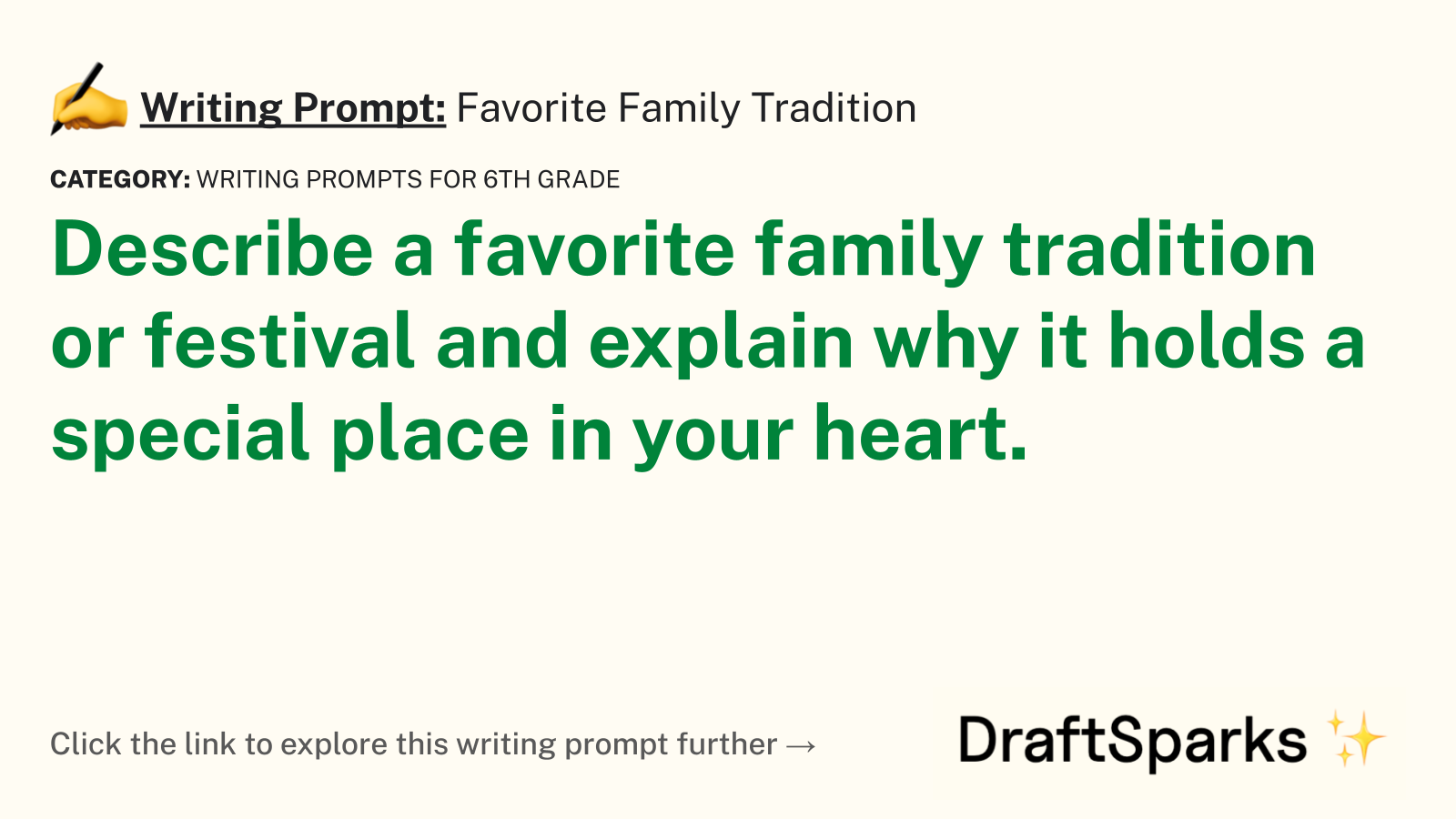
Favorite Family Tradition
Describe a favorite family tradition or festival and explain why it holds a special place in your heart.
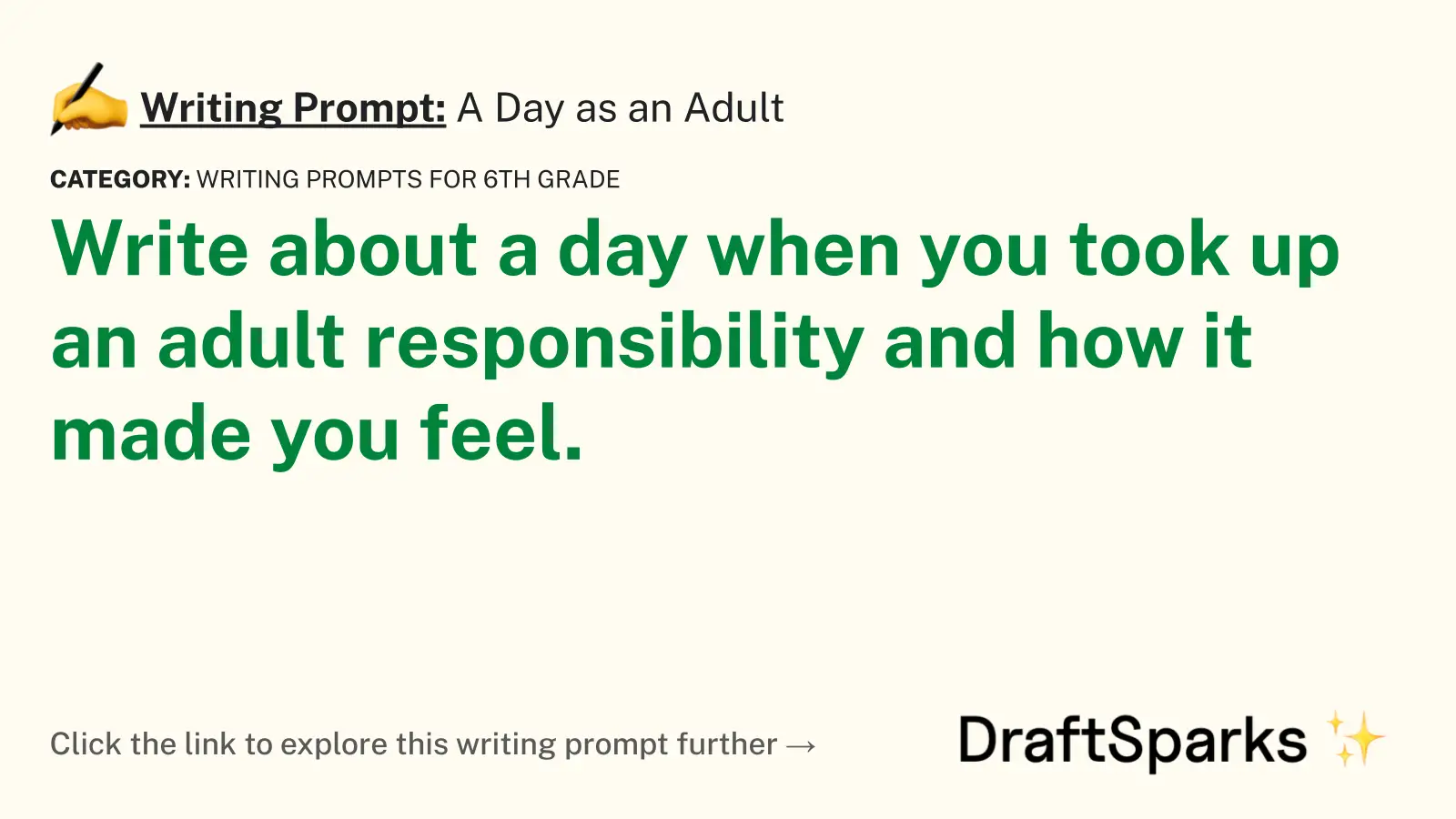
A Day as an Adult
Write about a day when you took up an adult responsibility and how it made you feel.
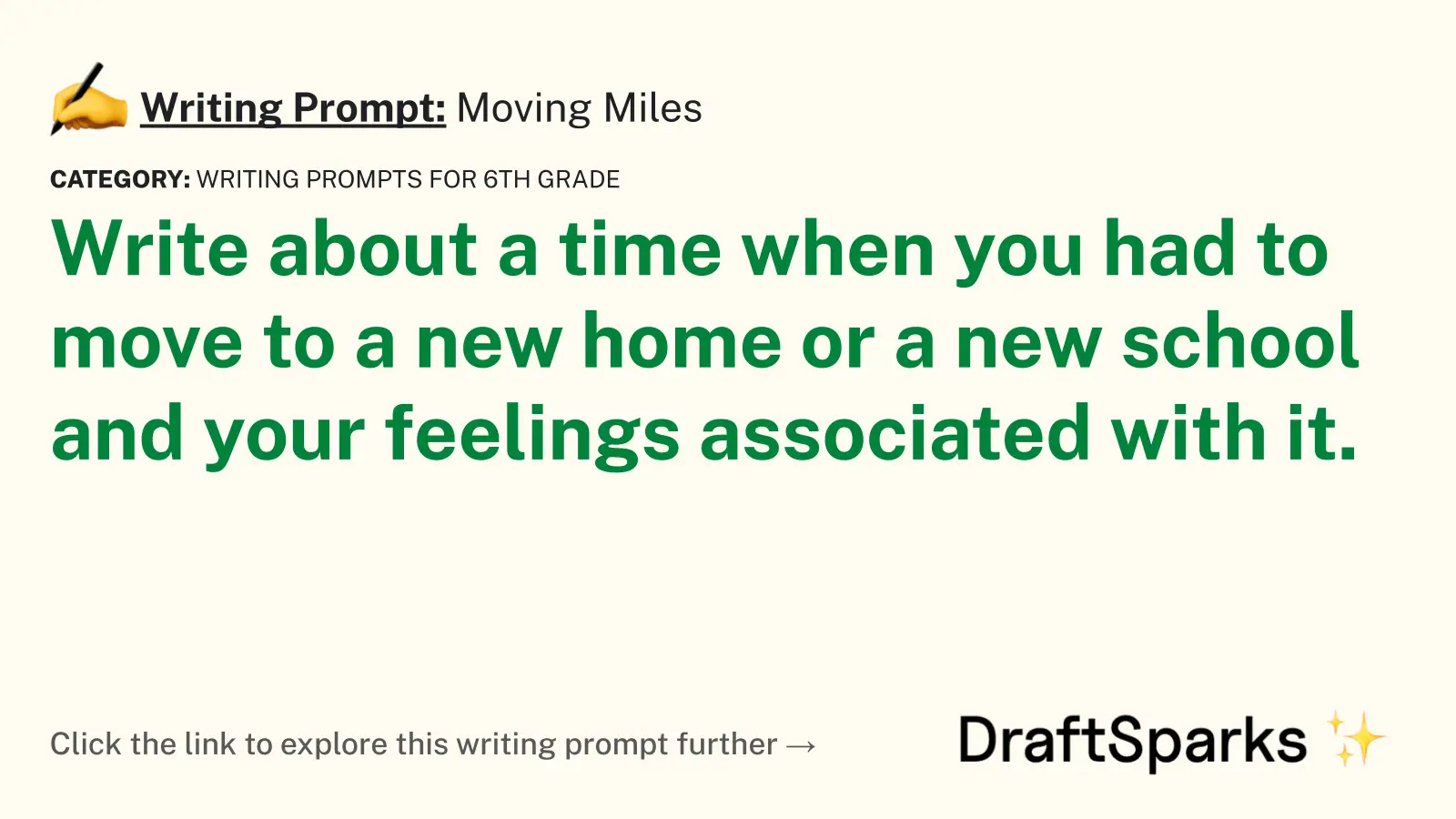
Moving Miles
Write about a time when you had to move to a new home or a new school and your feelings…
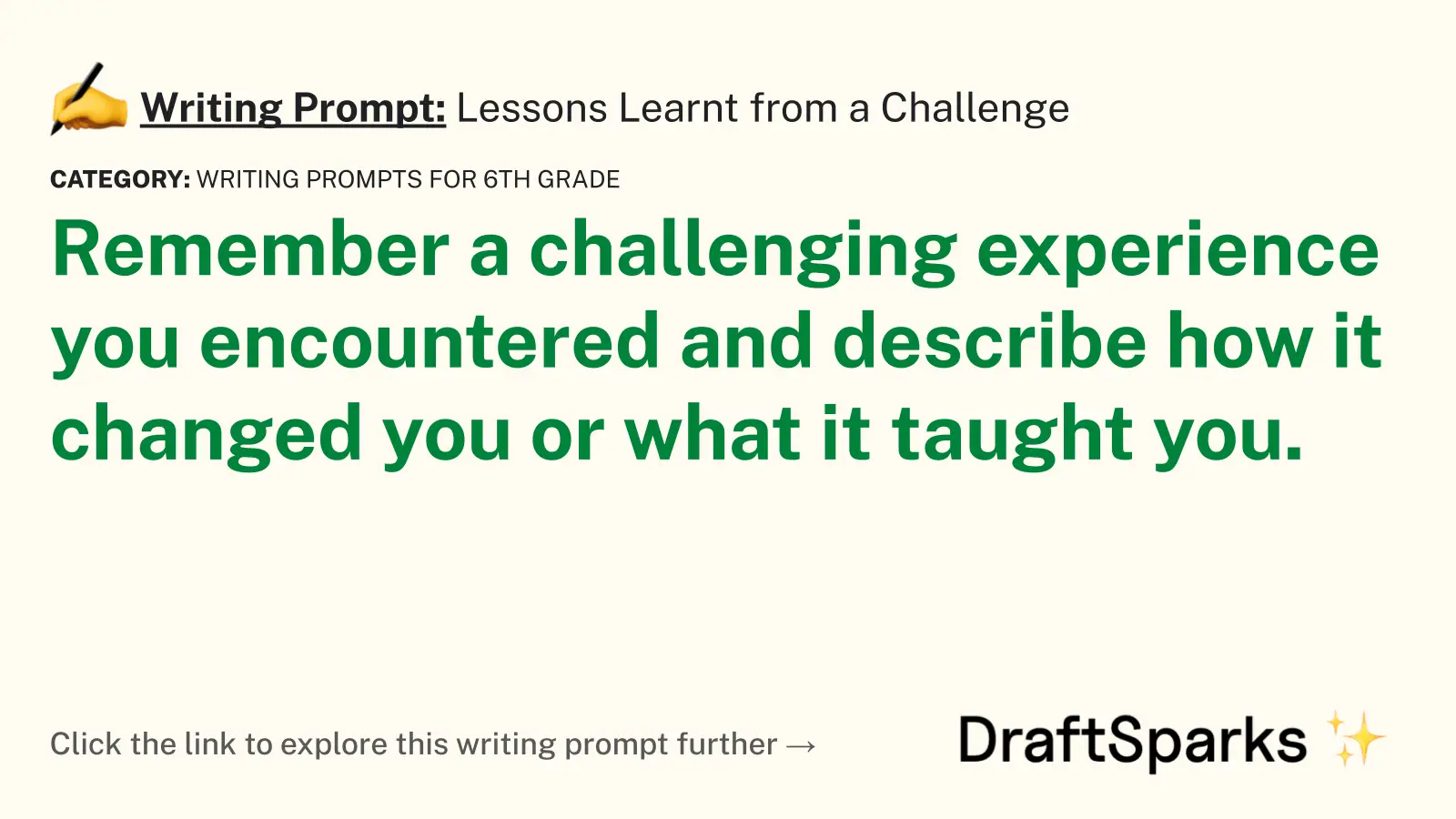
Lessons Learnt from a Challenge
Remember a challenging experience you encountered and describe how it changed you or what it taught you.

Best Friends Forever
Write a descriptive piece about your best friend, focusing on personality traits, shared experiences and why they are so important…
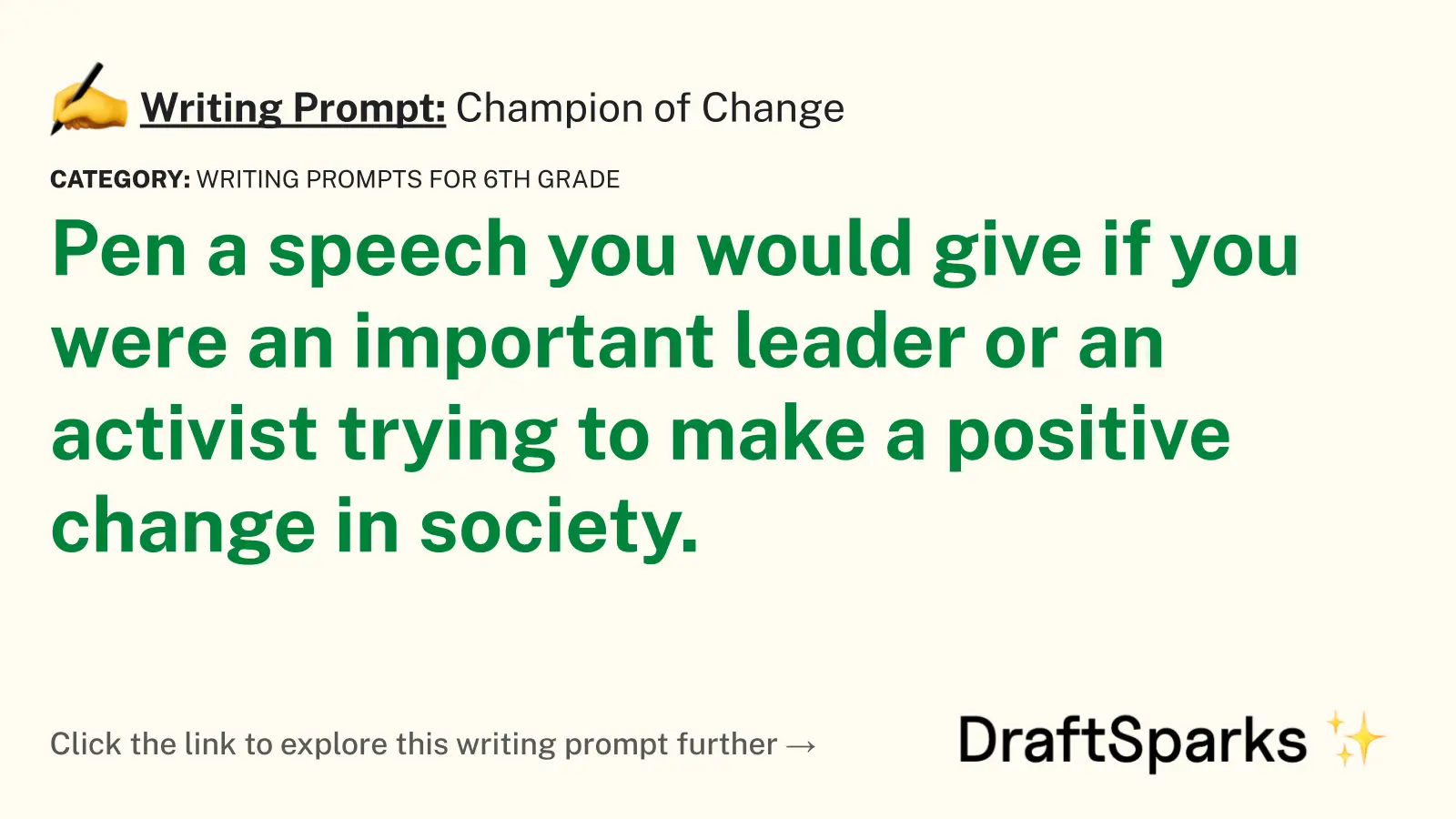
Champion of Change
Pen a speech you would give if you were an important leader or an activist trying to make a positive…
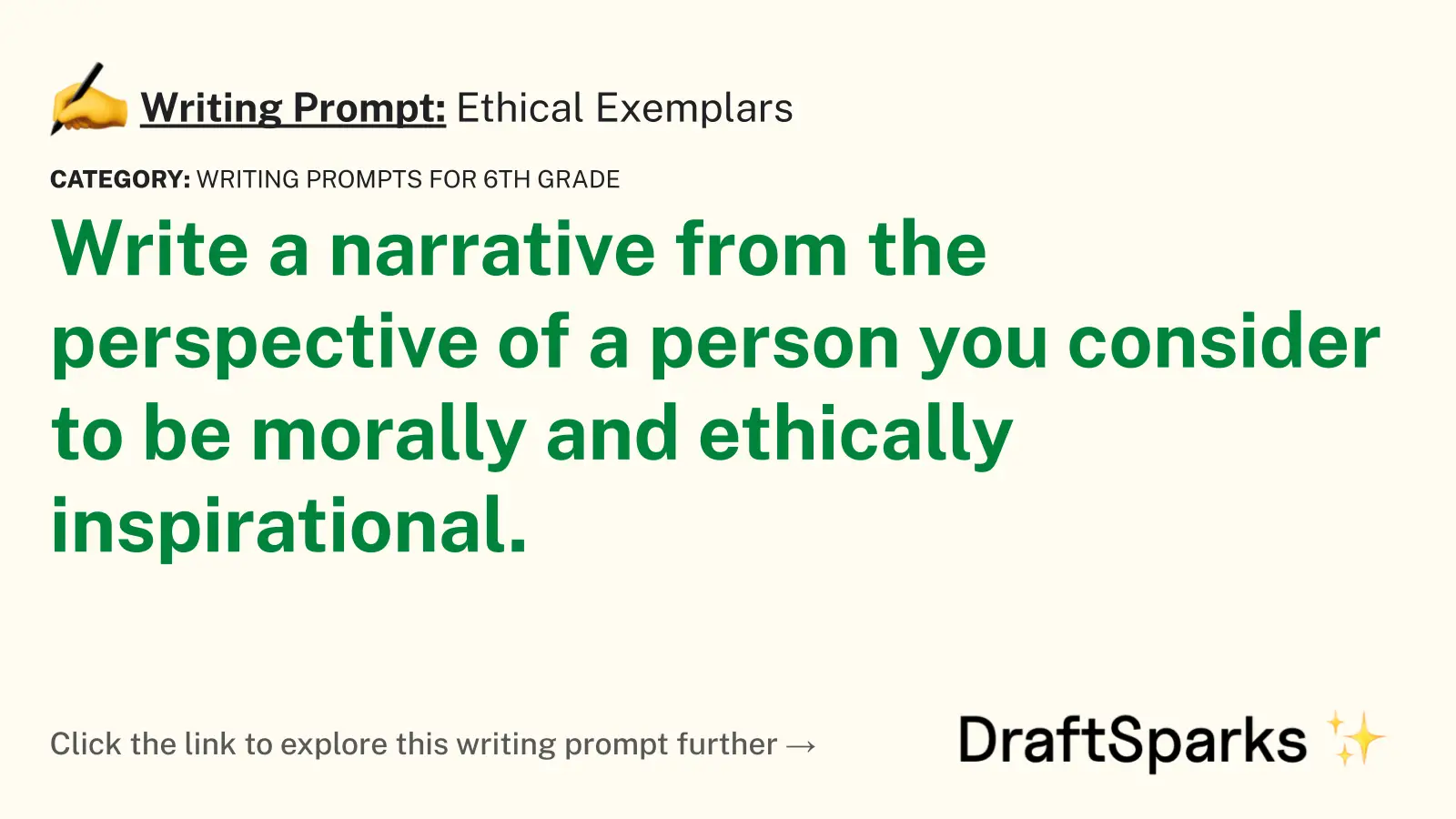
Ethical Exemplars
Write a narrative from the perspective of a person you consider to be morally and ethically inspirational.

Iconic Inventors
Choose an inventor who has inspired you and write a mock interview with them.
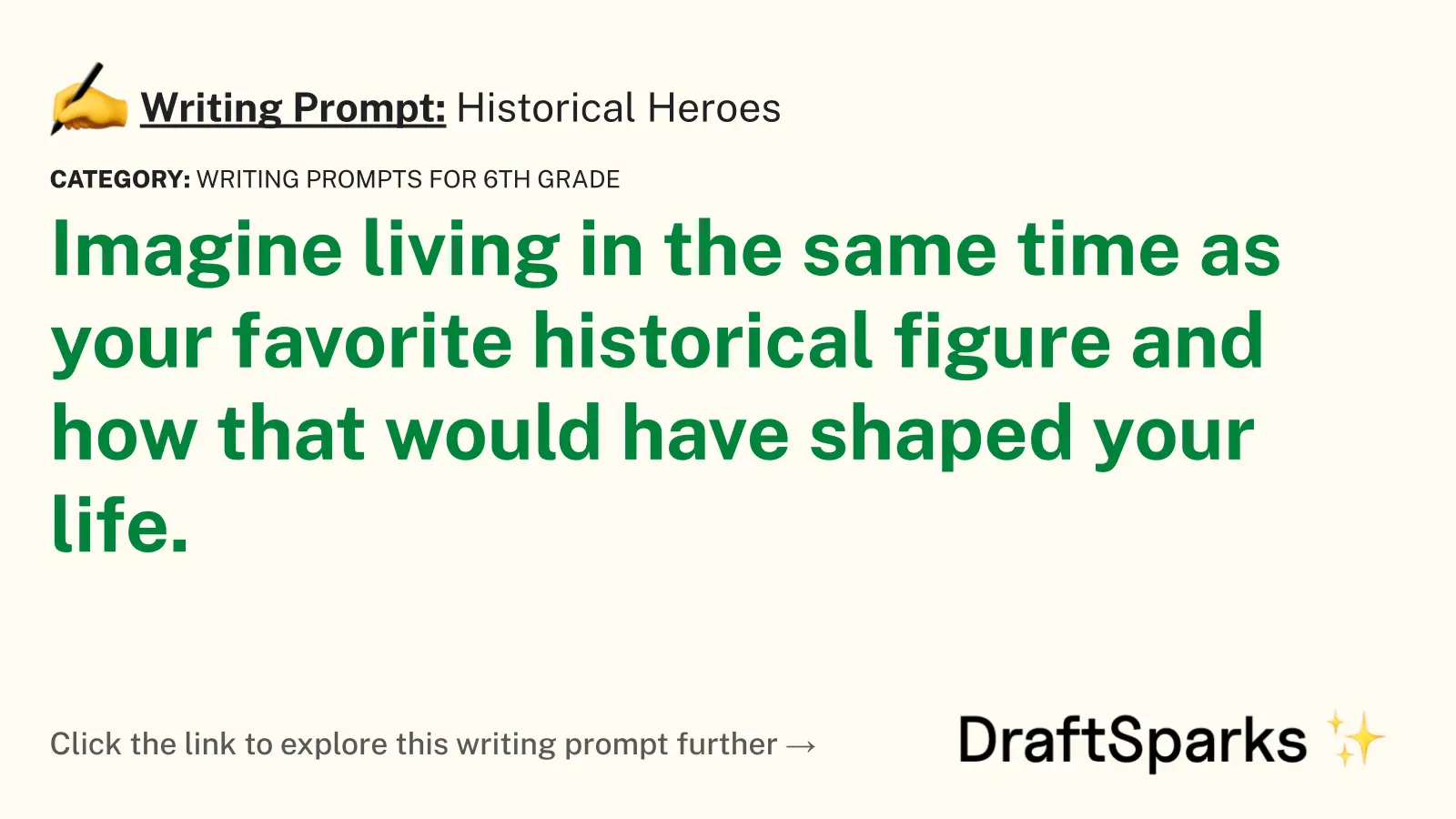
Historical Heroes
Imagine living in the same time as your favorite historical figure and how that would have shaped your life.
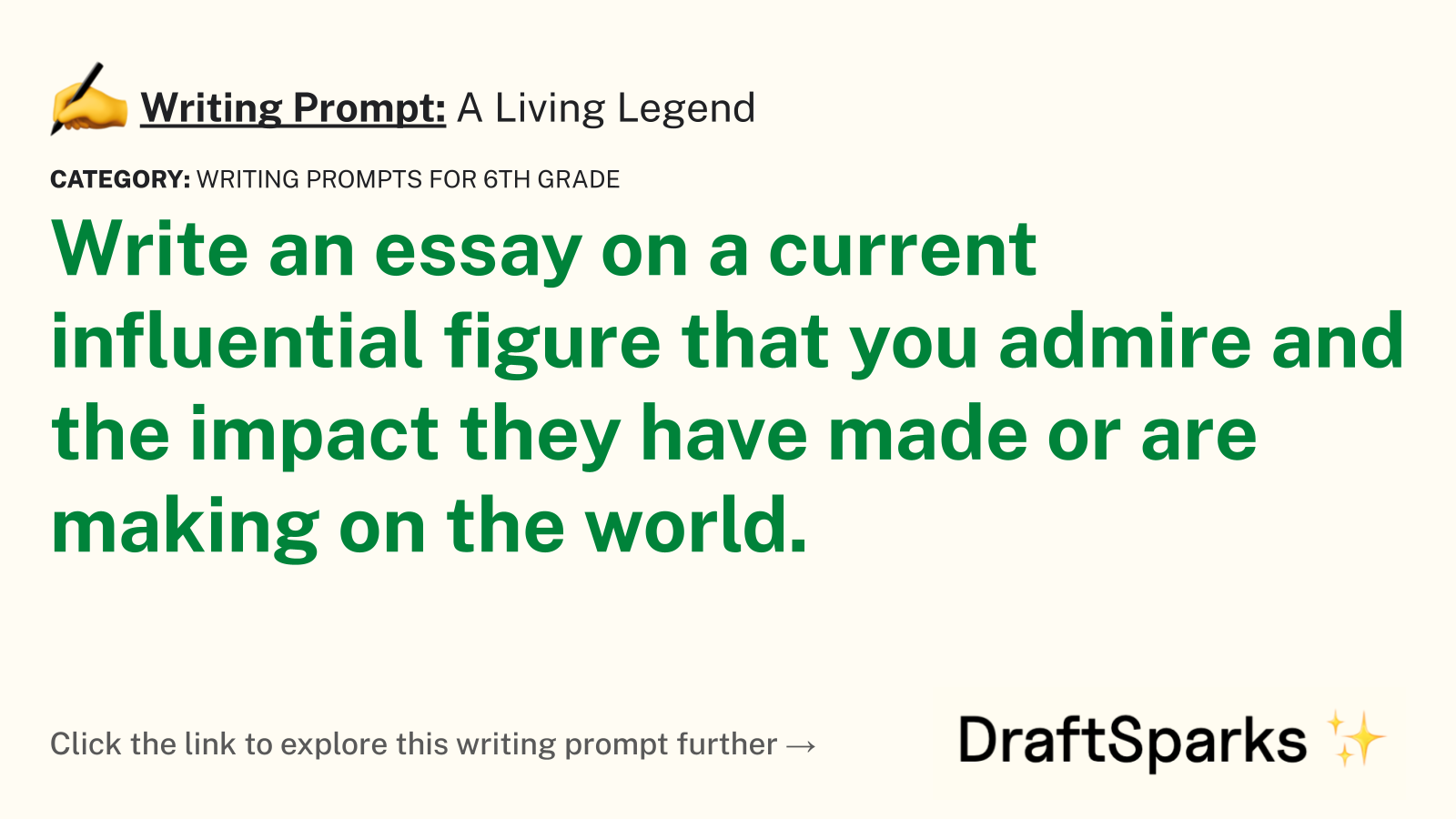
A Living Legend
Write an essay on a current influential figure that you admire and the impact they have made or are making…
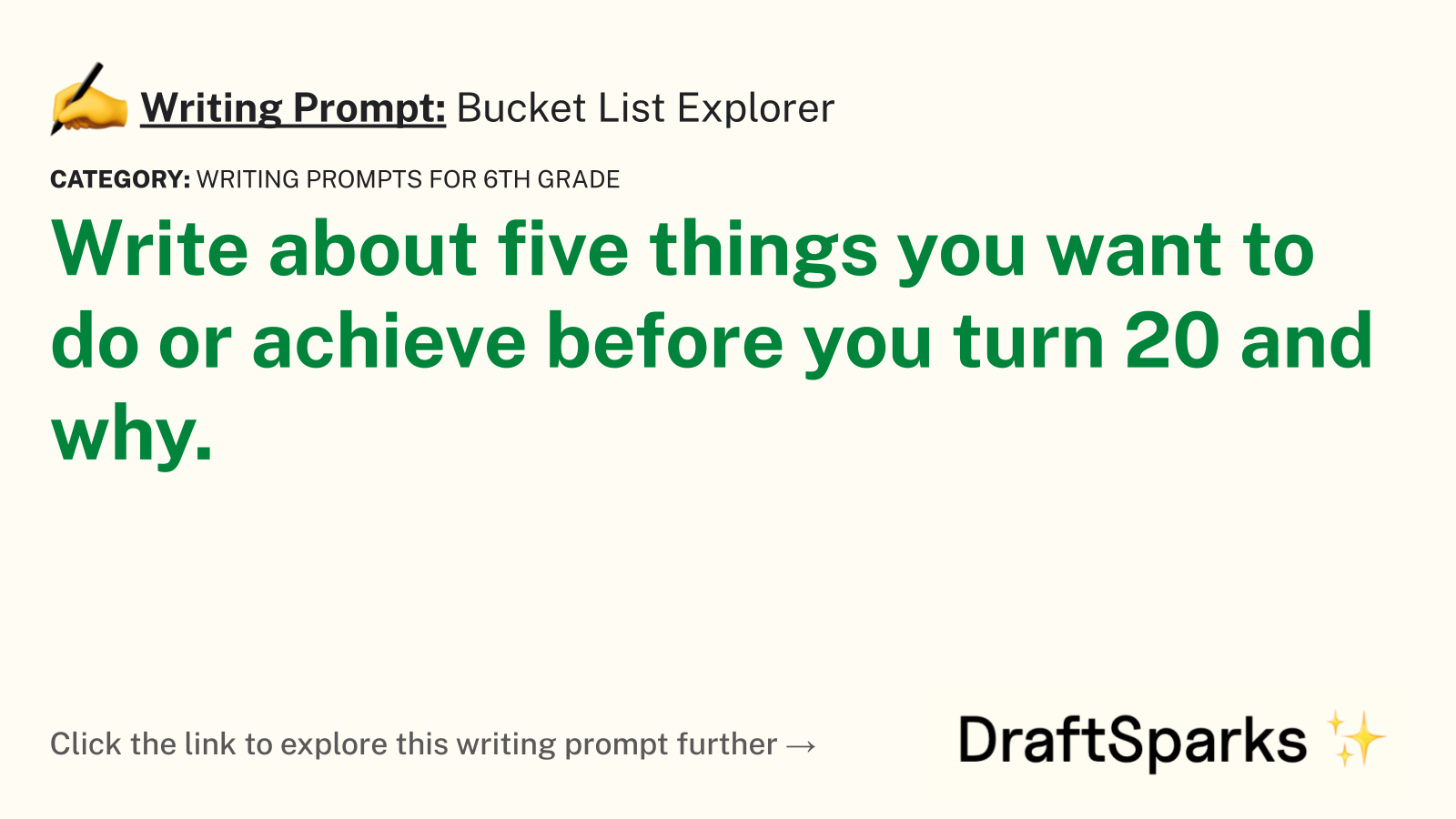
Bucket List Explorer
Write about five things you want to do or achieve before you turn 20 and why.
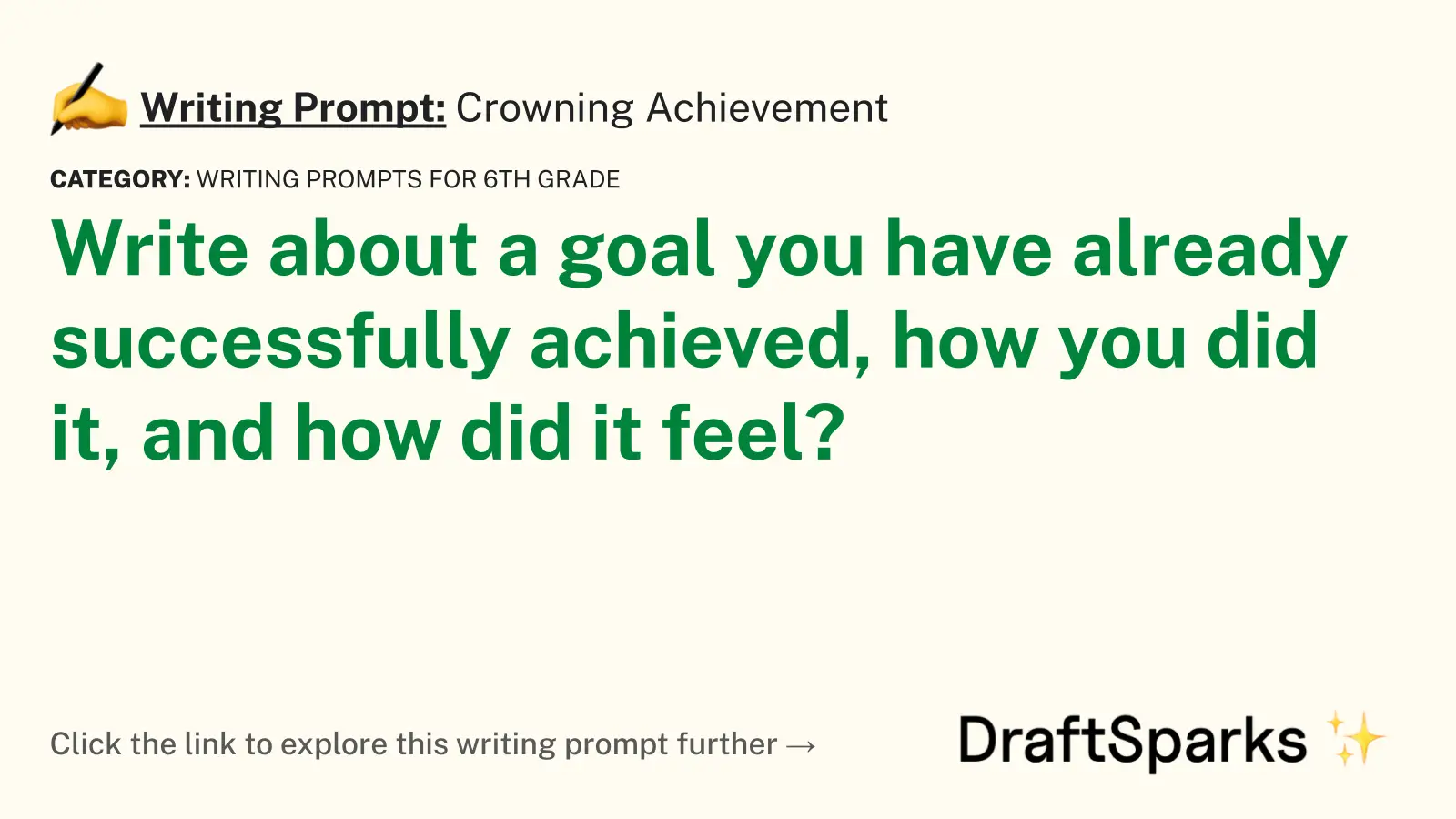
Crowning Achievement
Write about a goal you have already successfully achieved, how you did it, and how did it feel?
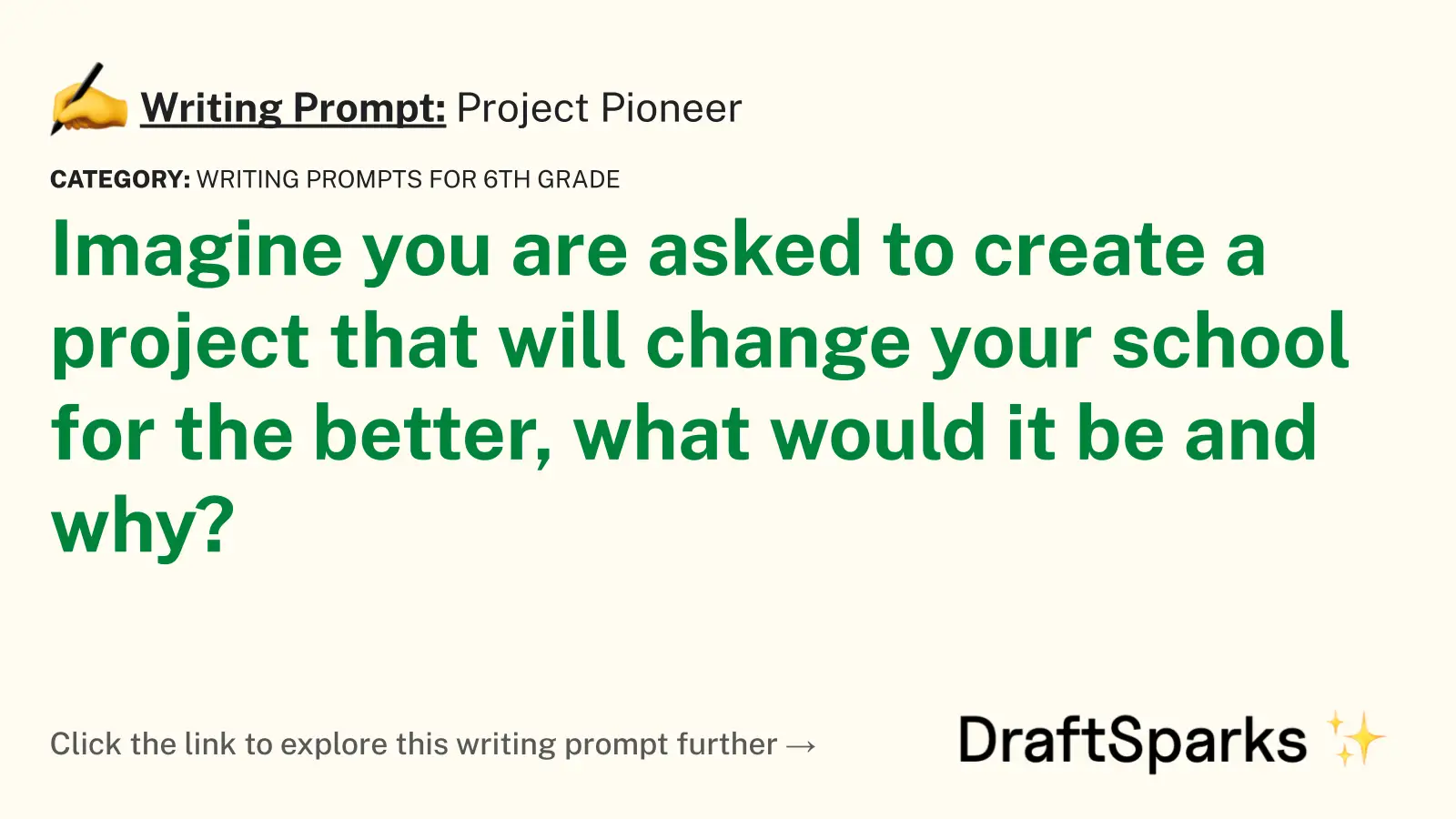
Project Pioneer
Imagine you are asked to create a project that will change your school for the better, what would it be…
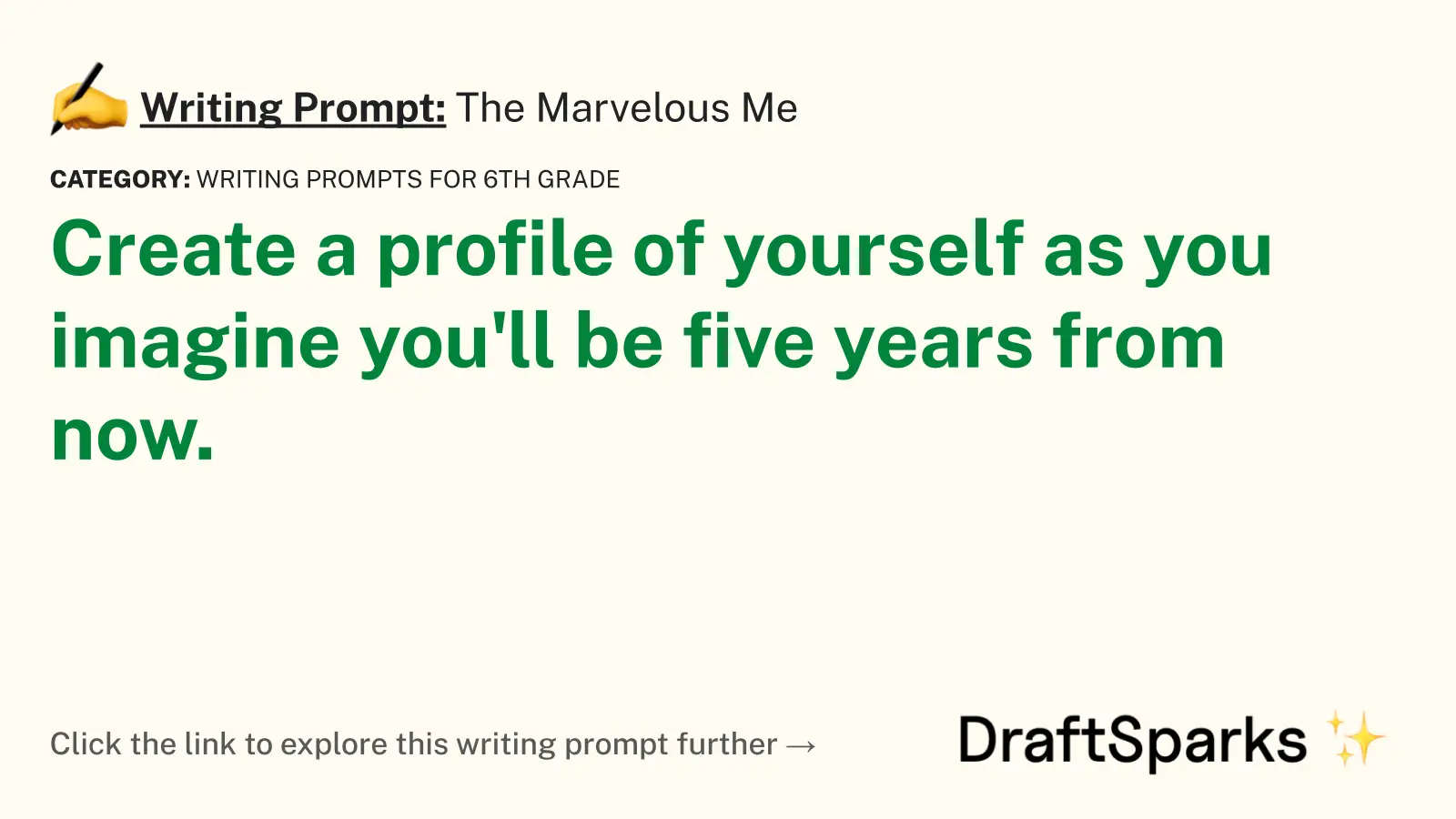
The Marvelous Me
Create a profile of yourself as you imagine you’ll be five years from now.

Mapping Future Goals
Write about a big goal you wish to achieve within the next year and what steps you plan to take…
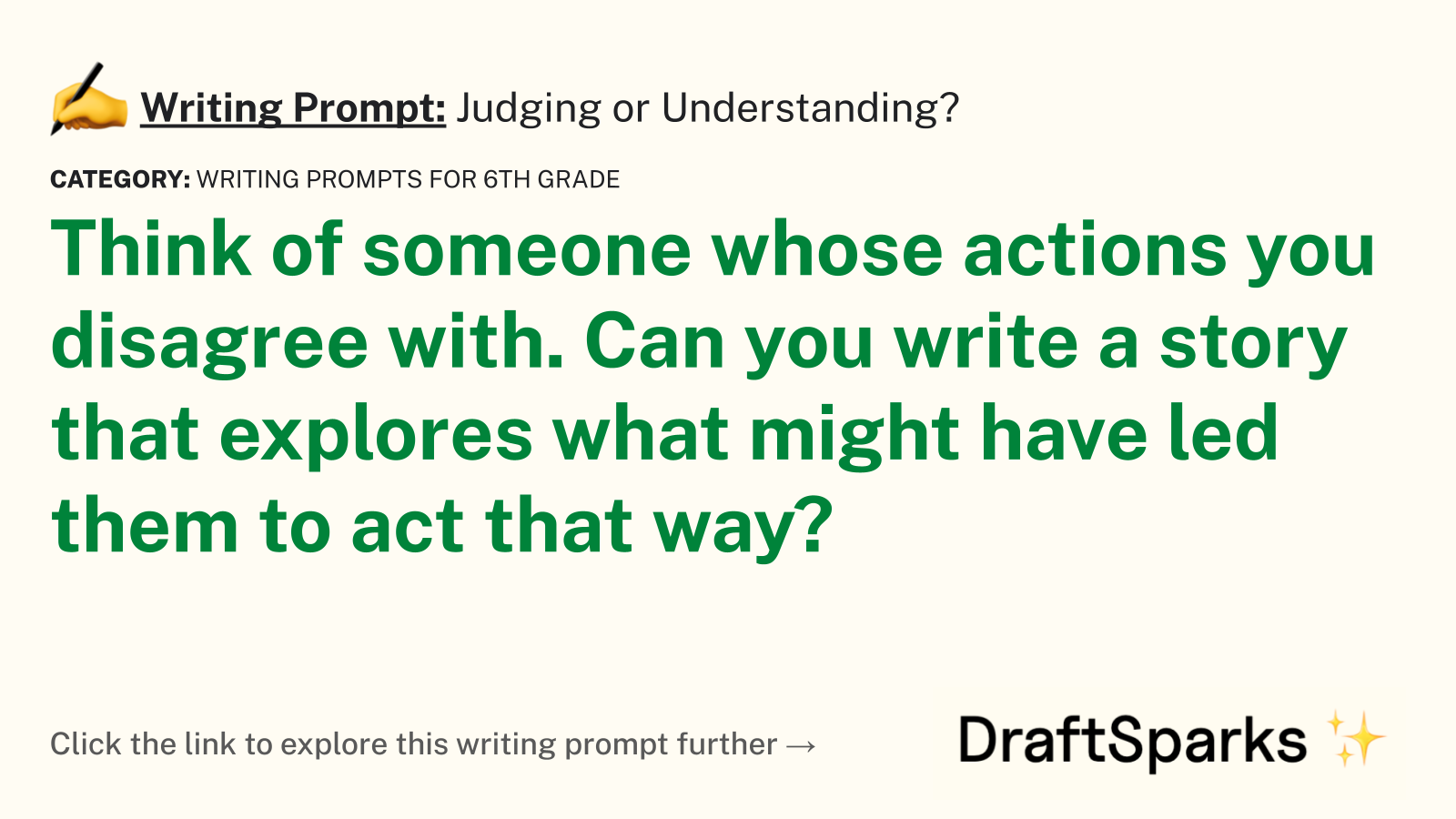
Judging or Understanding?
Think of someone whose actions you disagree with. Can you write a story that explores what might have led them…
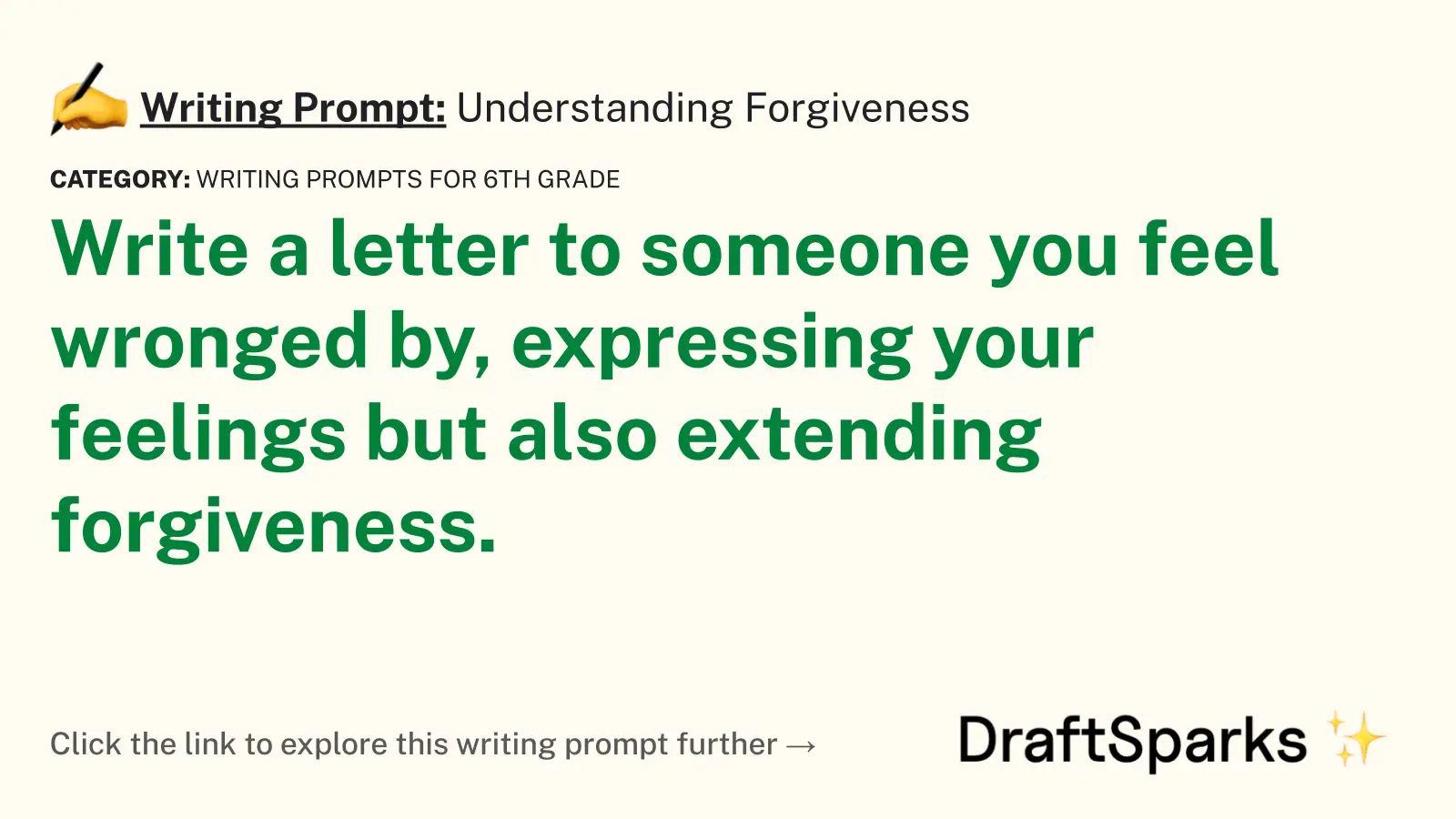
Understanding Forgiveness
Write a letter to someone you feel wronged by, expressing your feelings but also extending forgiveness.
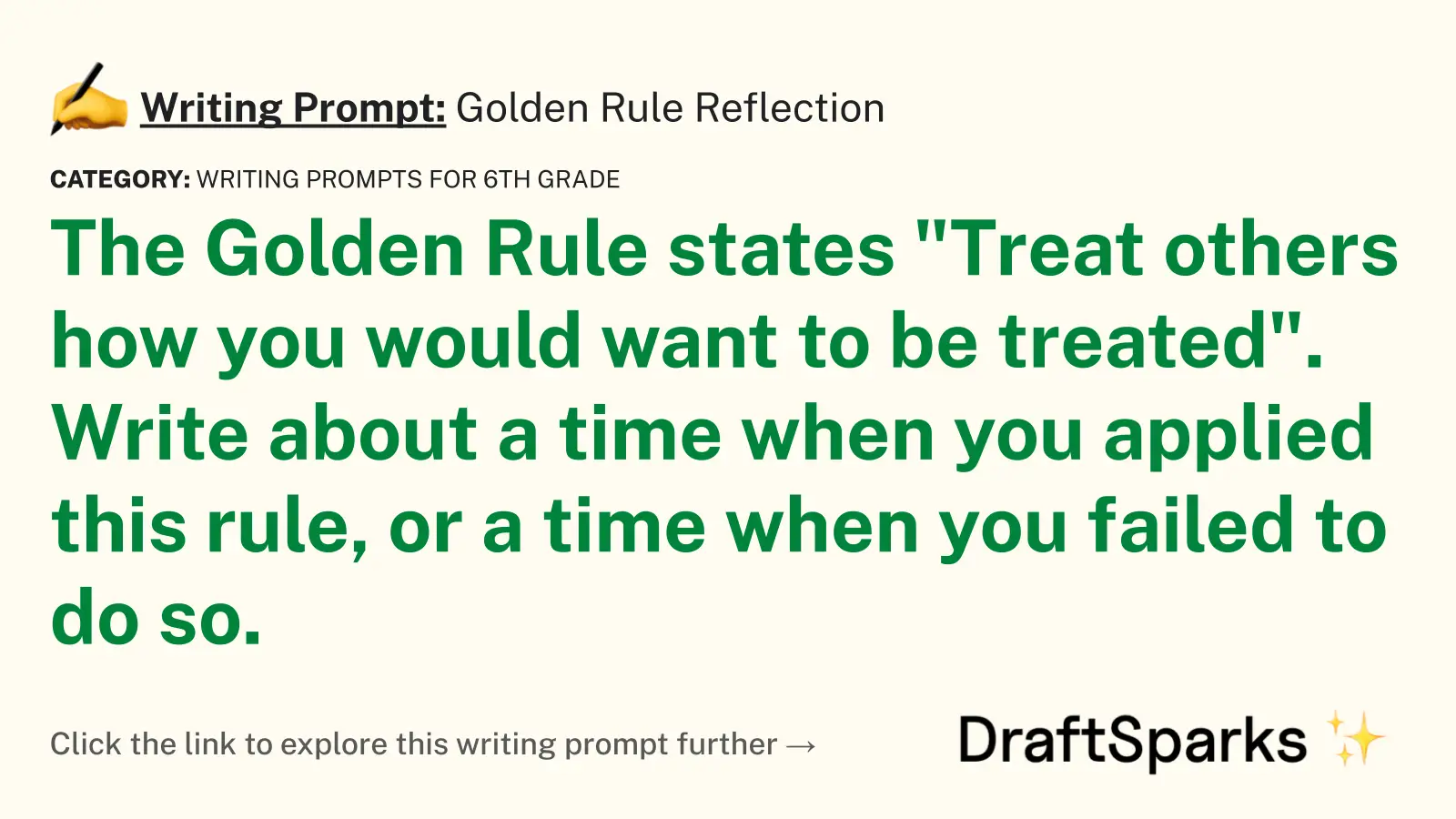
Golden Rule Reflection
The Golden Rule states “Treat others how you would want to be treated”. Write about a time when you applied…
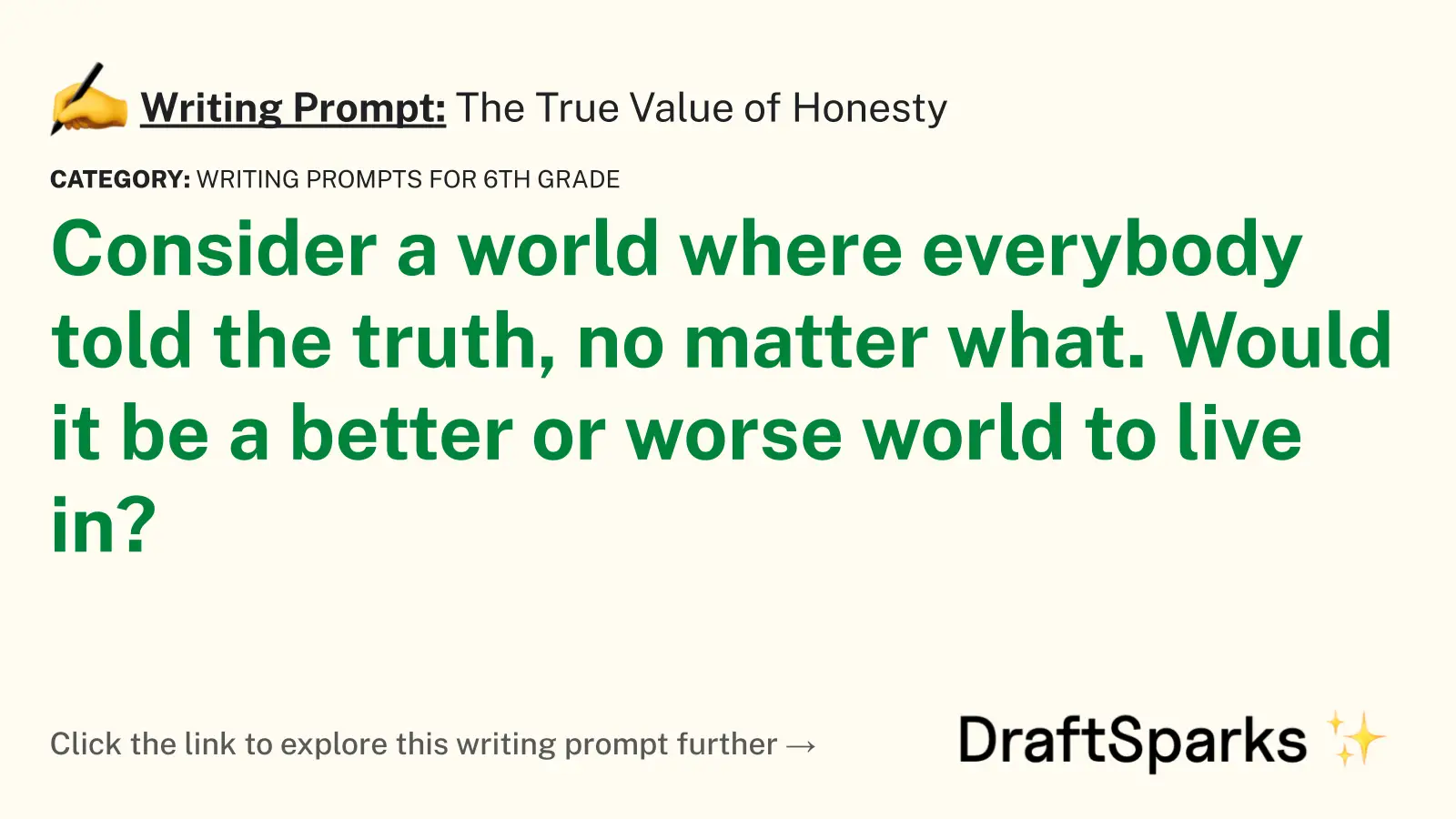
The True Value of Honesty
Consider a world where everybody told the truth, no matter what. Would it be a better or worse world to…
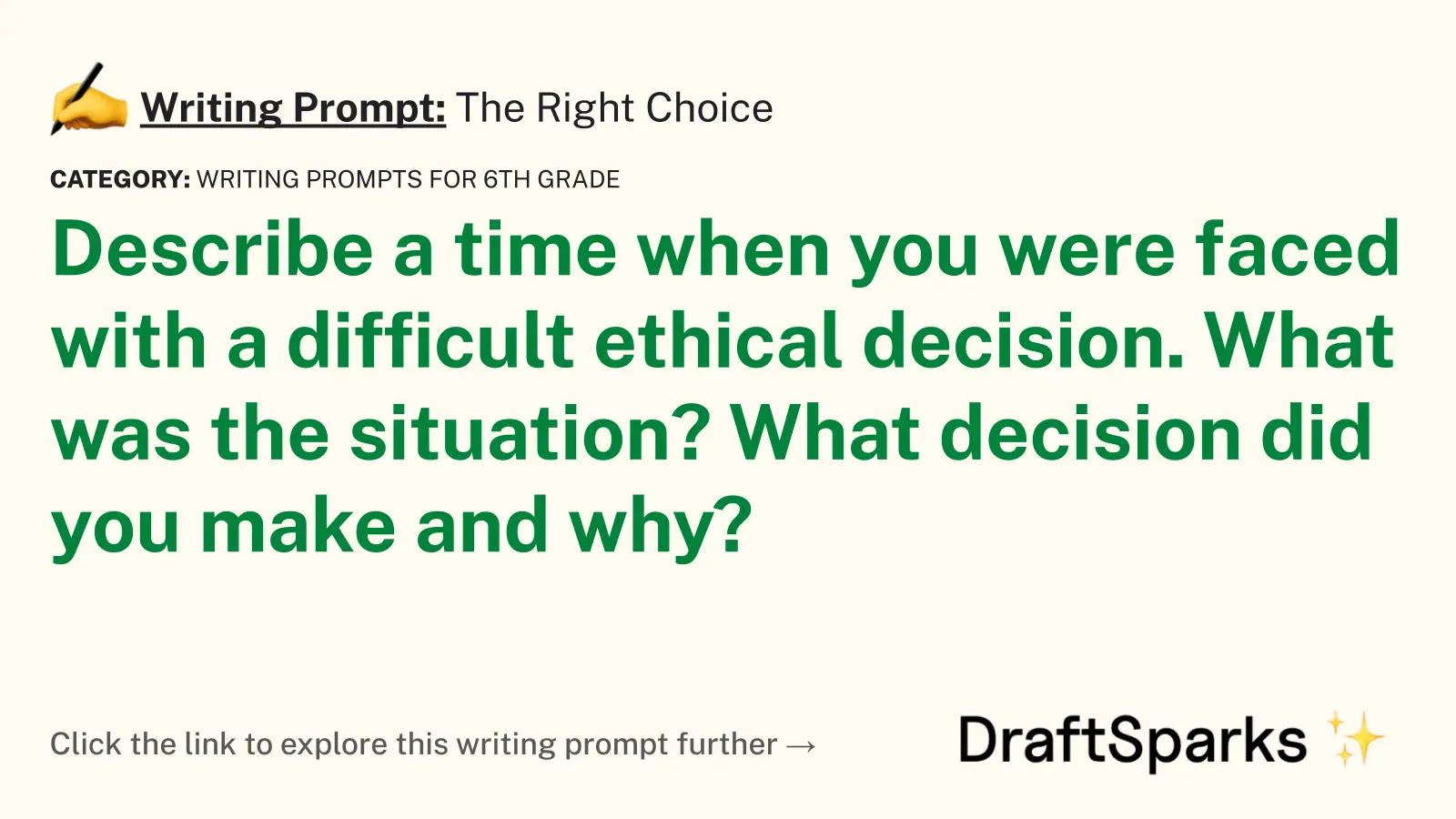
The Right Choice
Describe a time when you were faced with a difficult ethical decision. What was the situation? What decision did you…
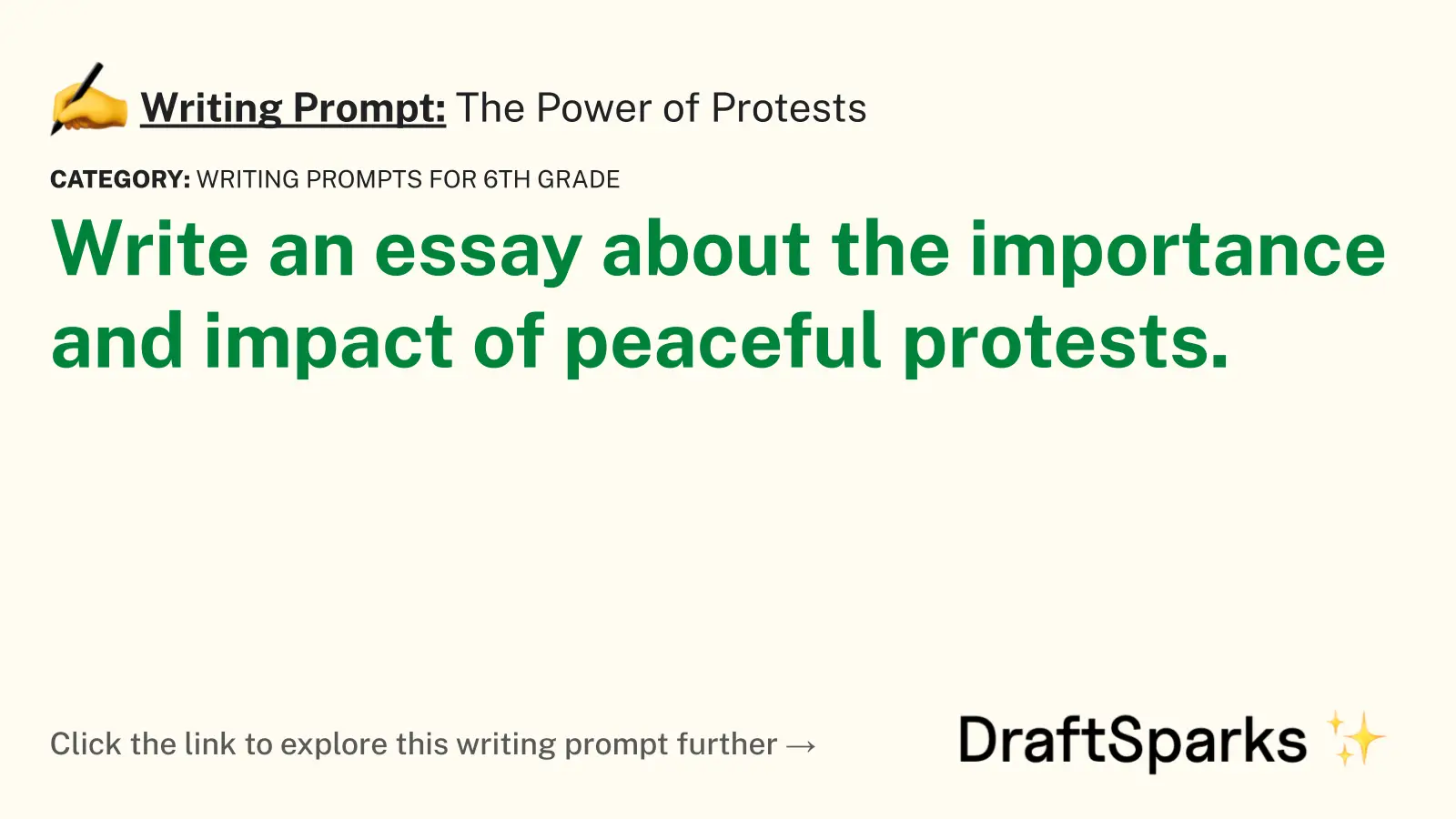
The Power of Protests
Write an essay about the importance and impact of peaceful protests.
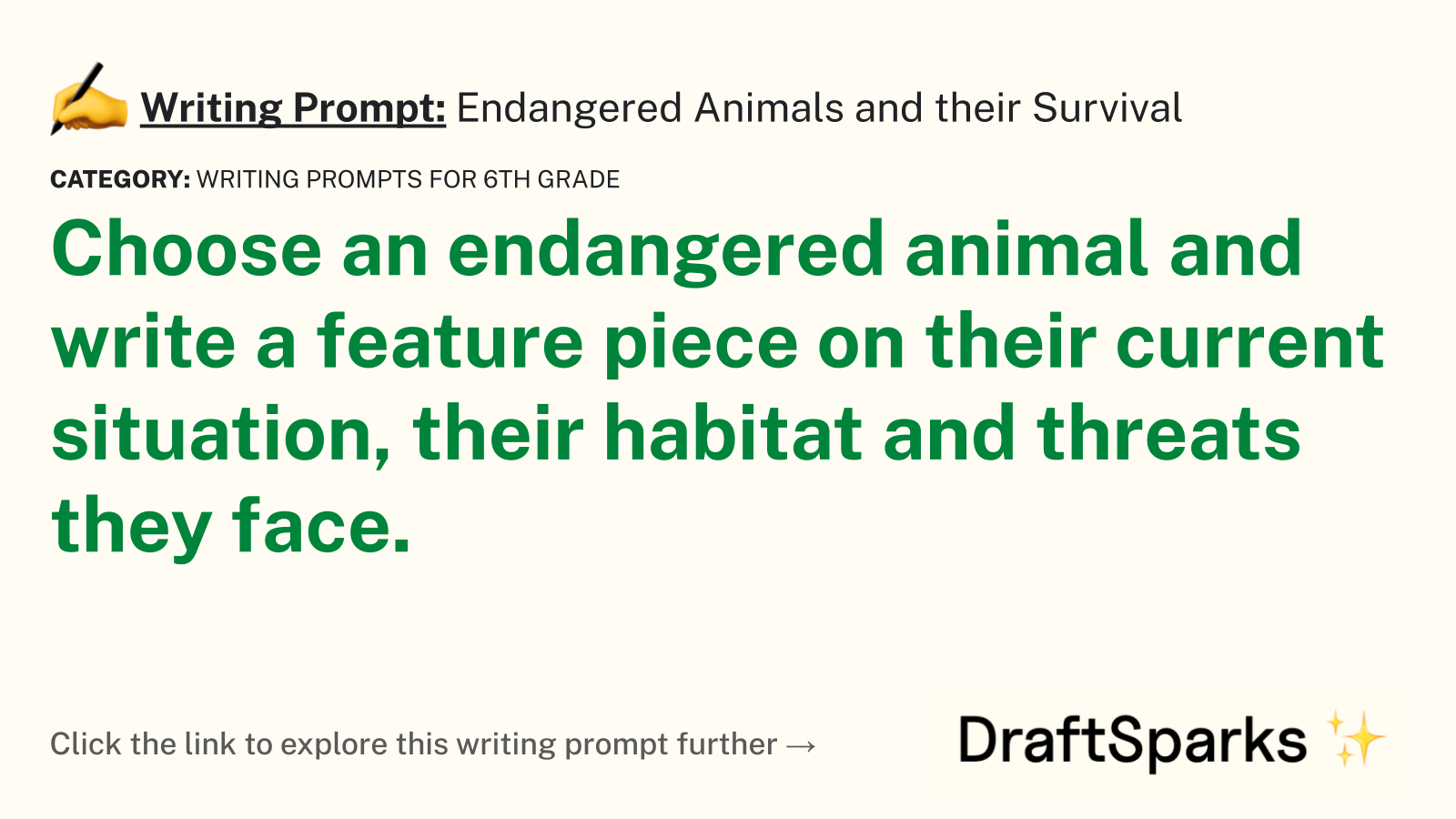
Endangered Animals and their Survival
Choose an endangered animal and write a feature piece on their current situation, their habitat and threats they face.
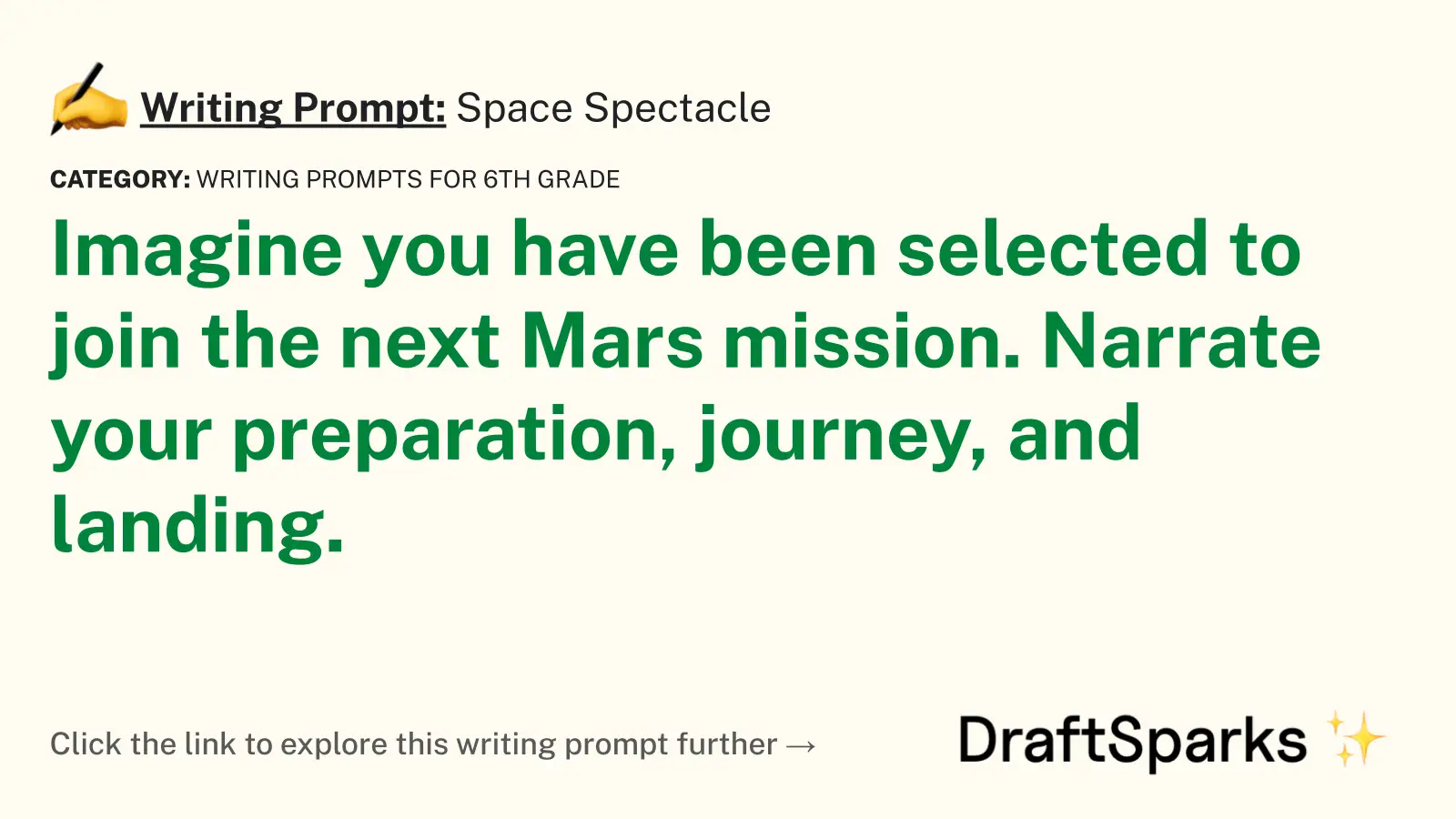
Space Spectacle
Imagine you have been selected to join the next Mars mission. Narrate your preparation, journey, and landing.

Unraveling the Pandemic’s Impact
Describe your experiences in a world reshaped by the COVID-19 pandemic, elaborating on how your daily life has changed.
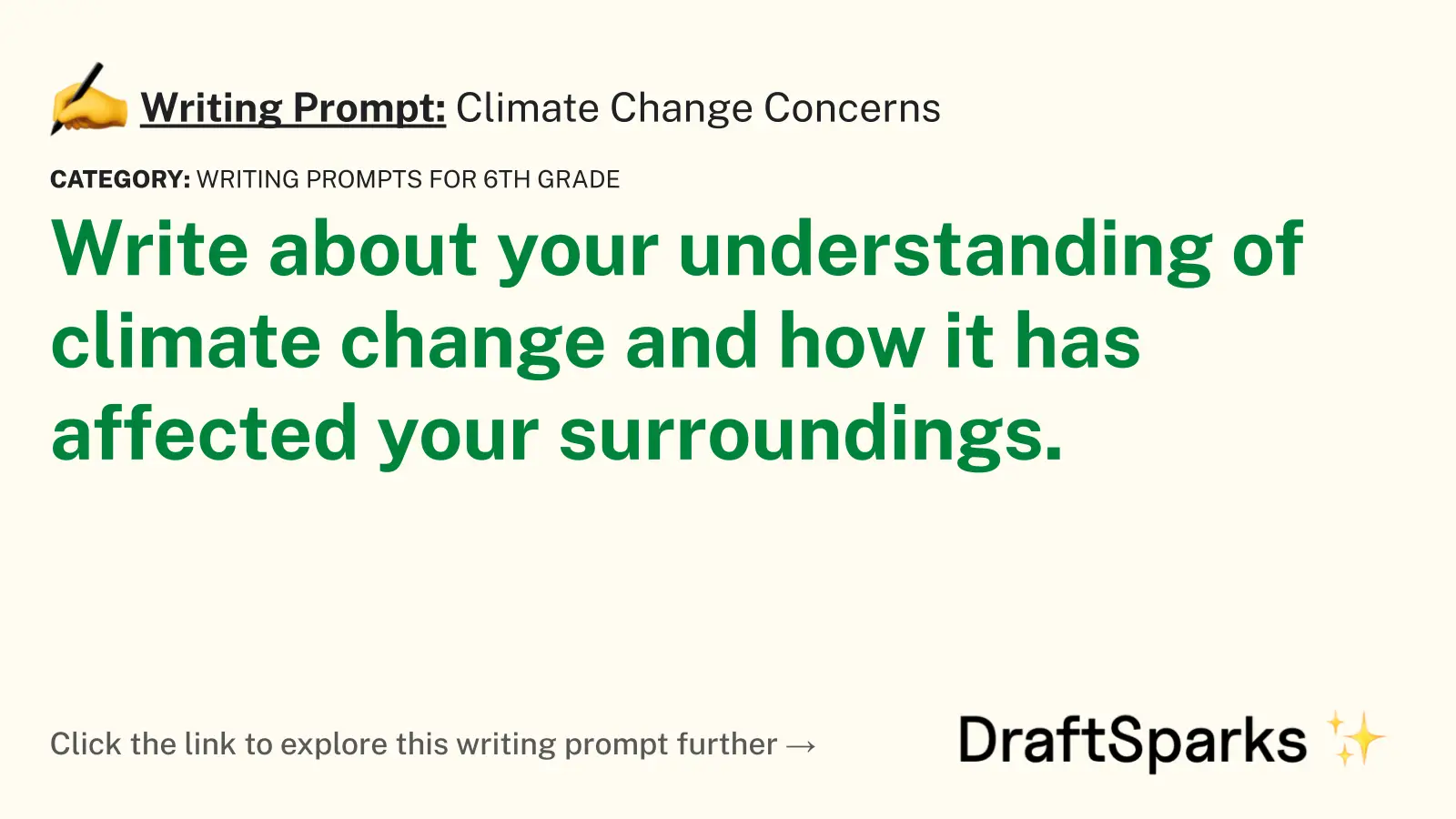
Climate Change Concerns
Write about your understanding of climate change and how it has affected your surroundings.
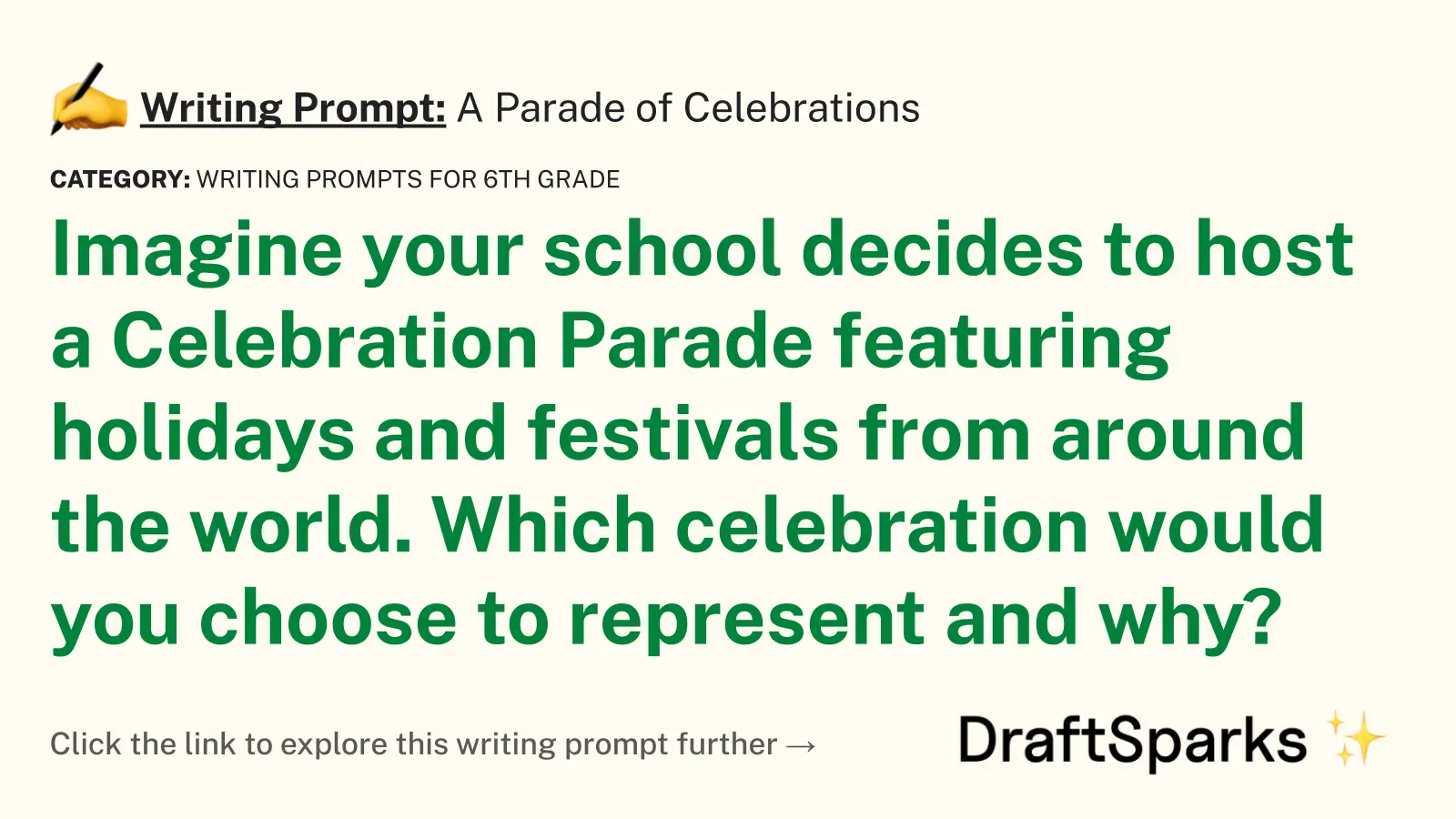
A Parade of Celebrations
Imagine your school decides to host a Celebration Parade featuring holidays and festivals from around the world. Which celebration would…
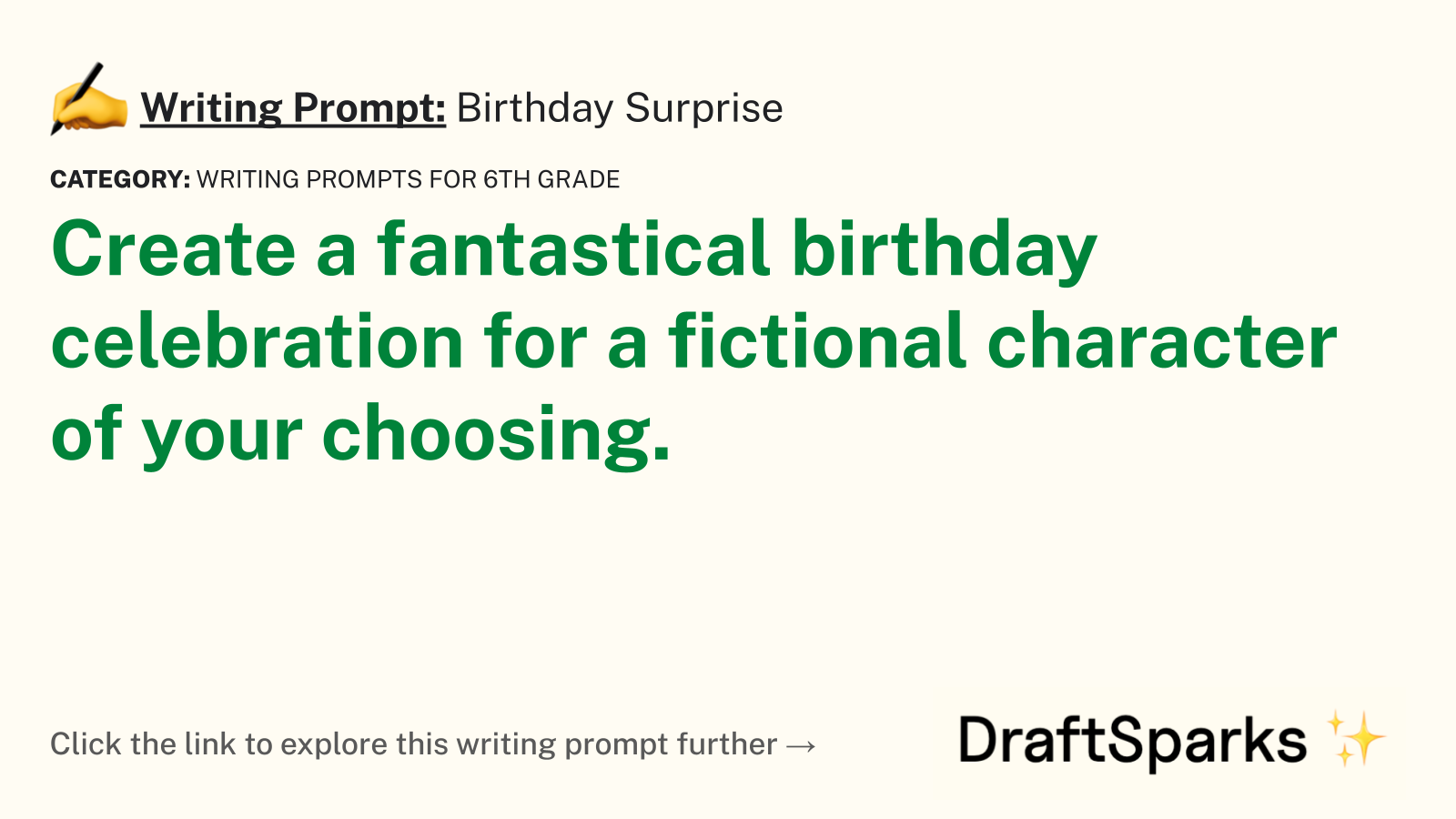
Birthday Surprise
Create a fantastical birthday celebration for a fictional character of your choosing.
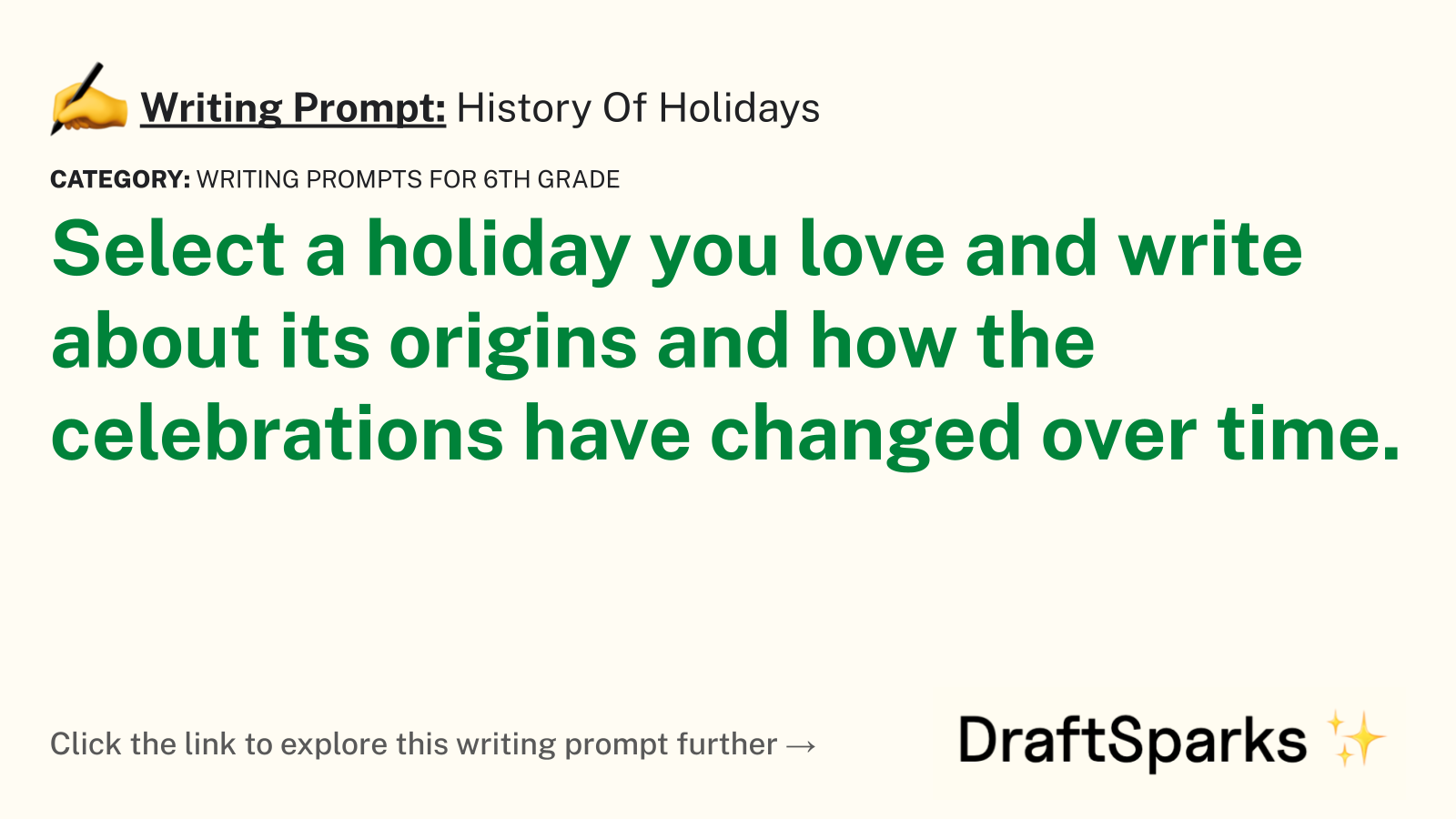
History Of Holidays
Select a holiday you love and write about its origins and how the celebrations have changed over time.
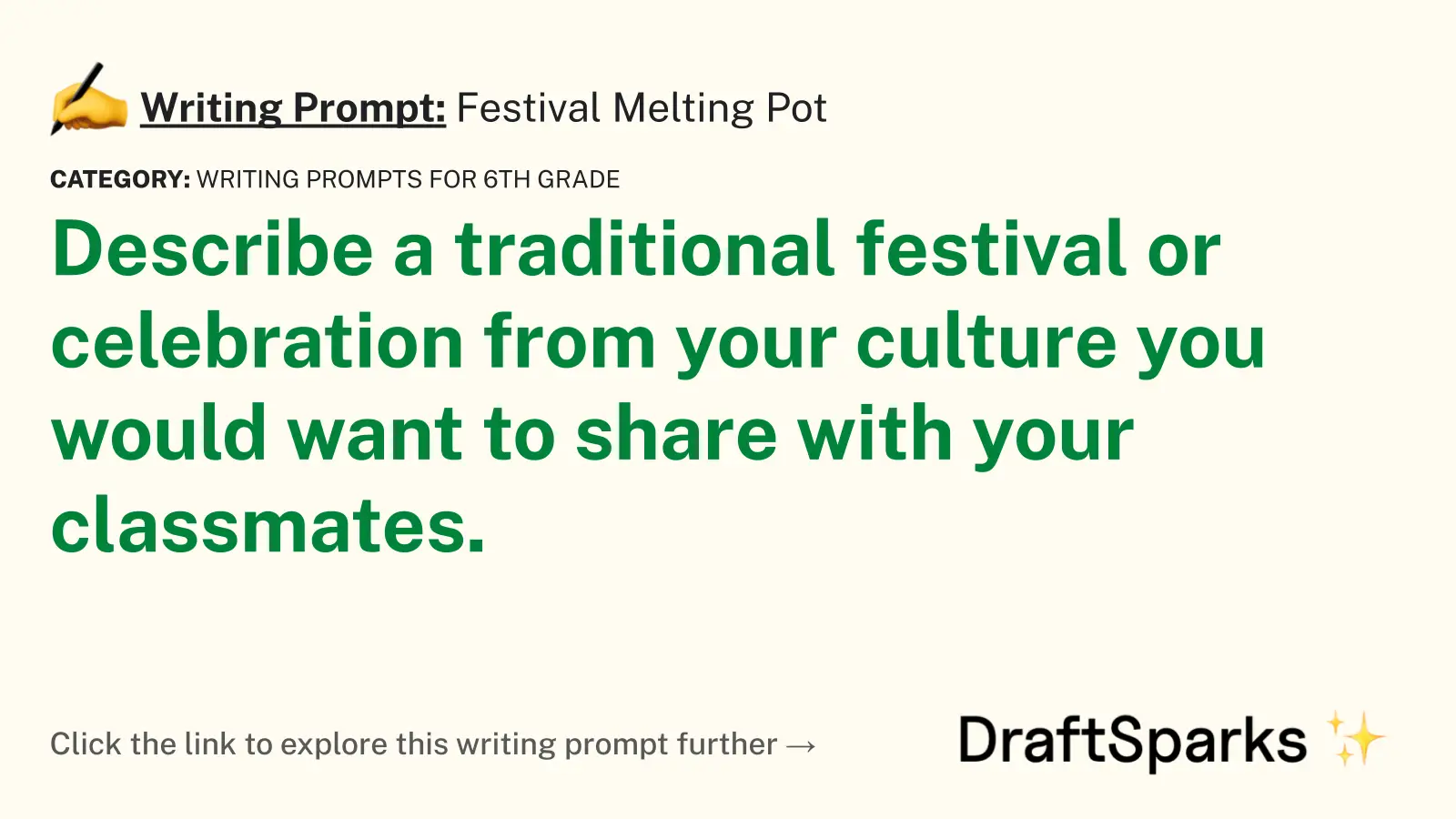
Festival Melting Pot
Describe a traditional festival or celebration from your culture you would want to share with your classmates.
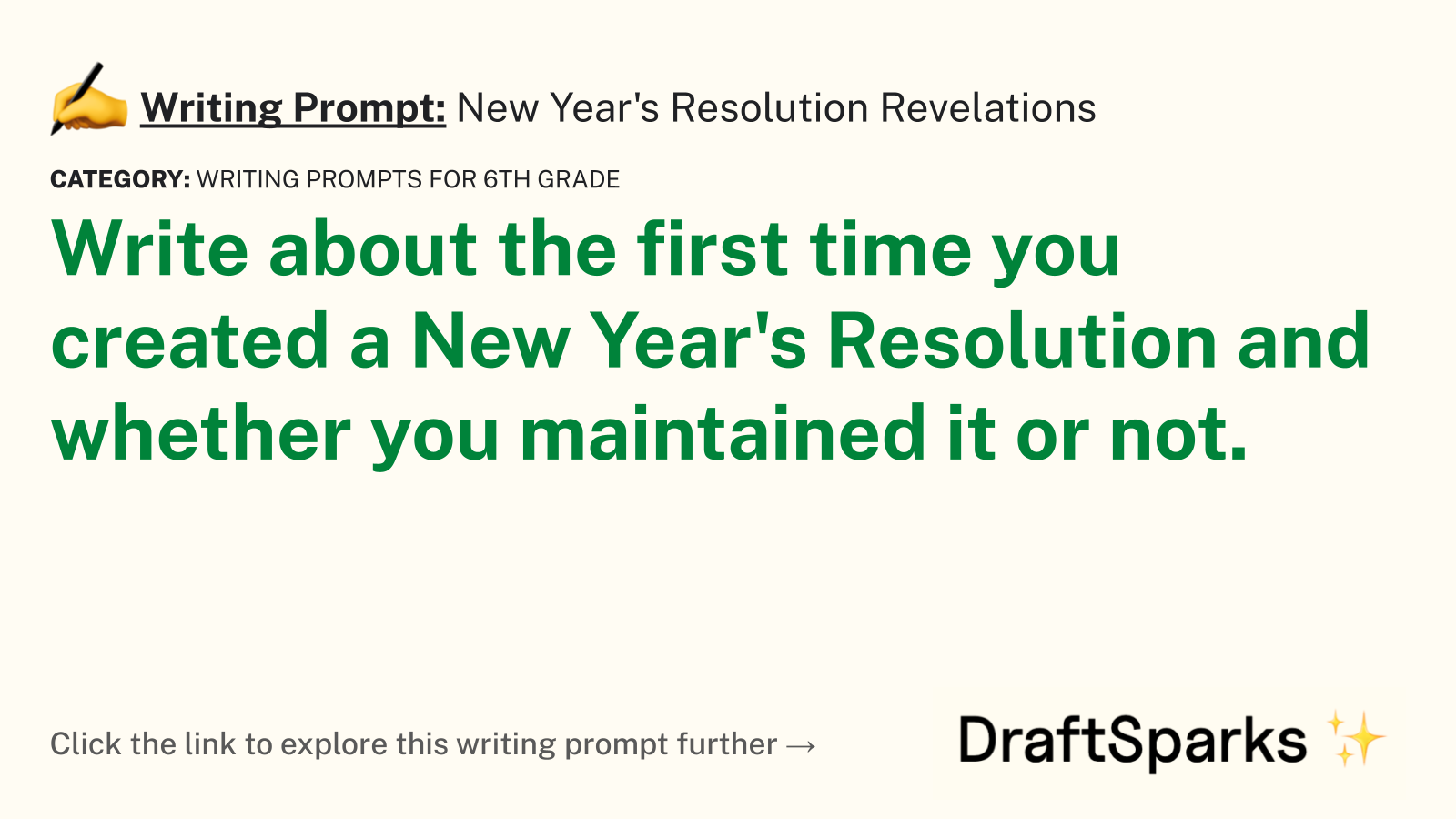
New Year’s Resolution Revelations
Write about the first time you created a New Year’s Resolution and whether you maintained it or not.
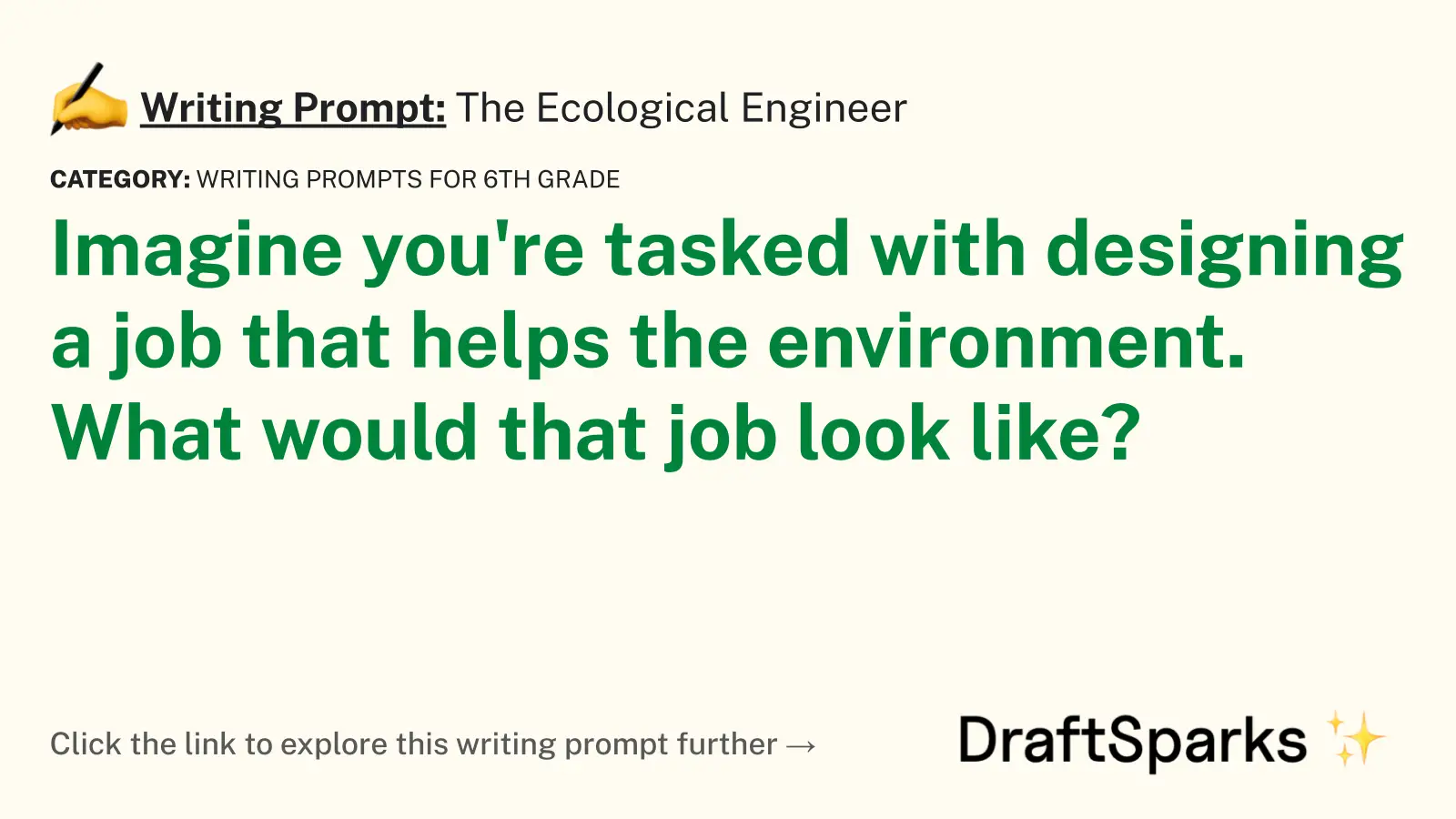
The Ecological Engineer
Imagine you’re tasked with designing a job that helps the environment. What would that job look like?
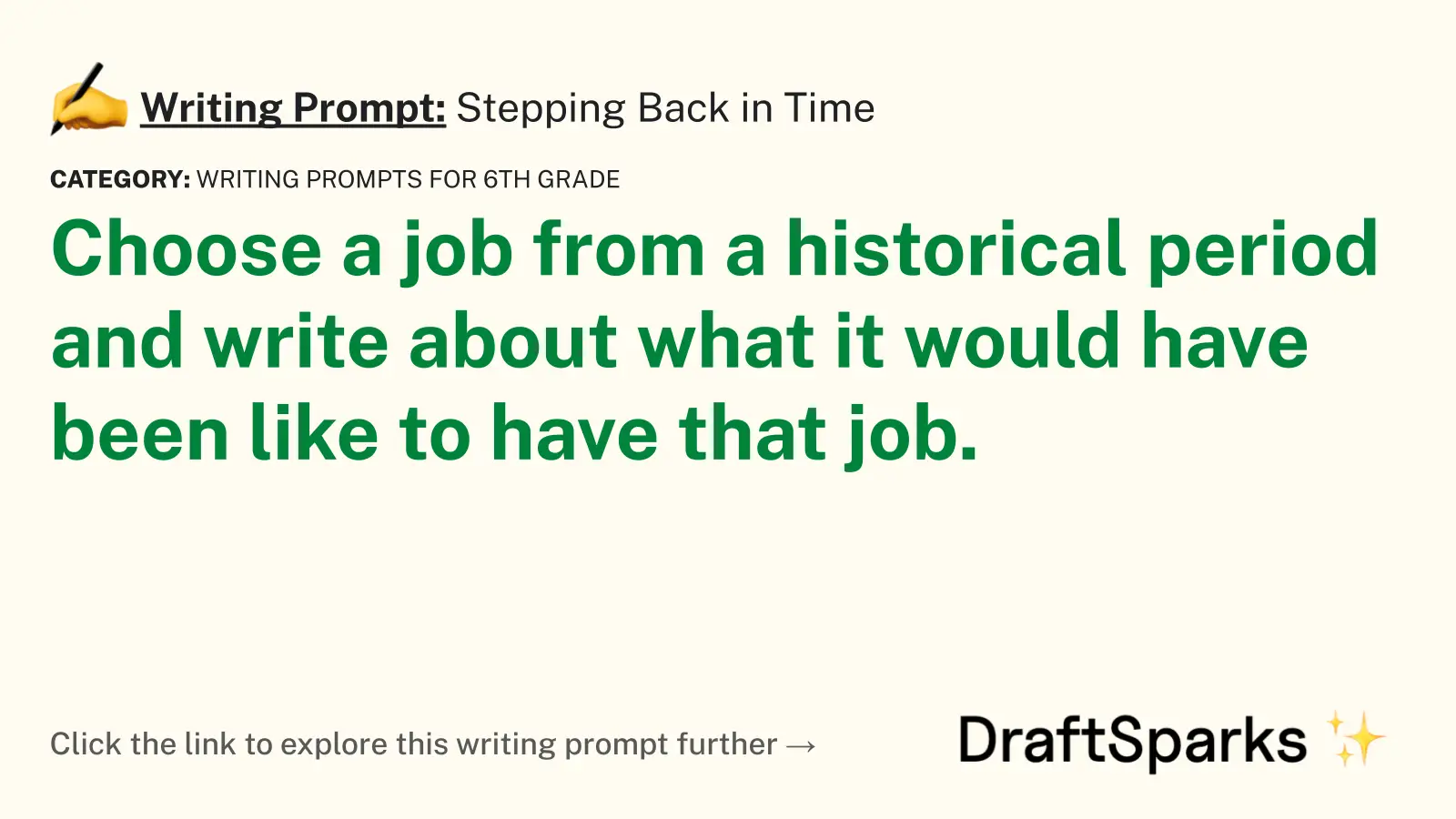
Stepping Back in Time
Choose a job from a historical period and write about what it would have been like to have that job.
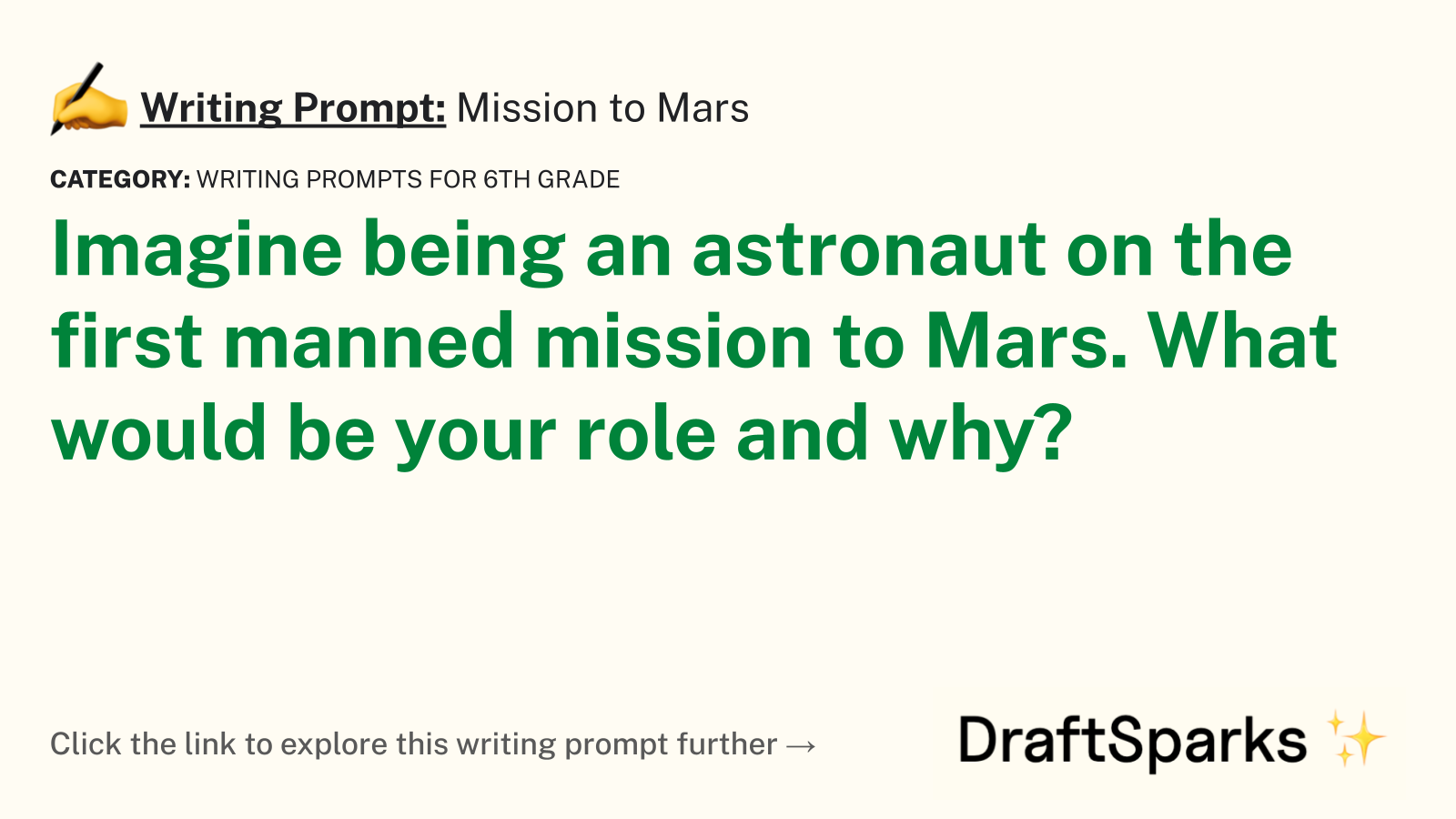
Mission to Mars
Imagine being an astronaut on the first manned mission to Mars. What would be your role and why?
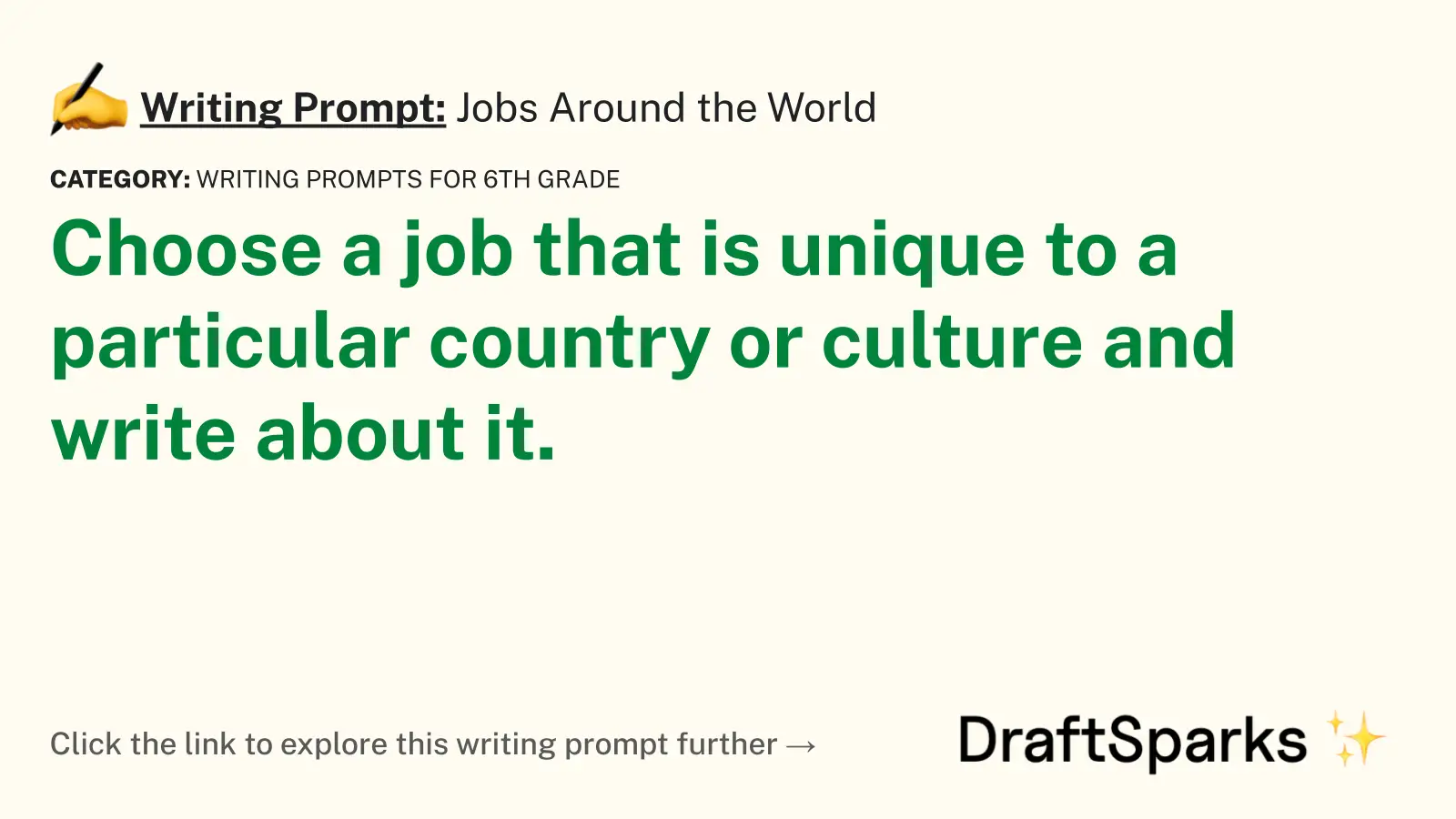
Jobs Around the World
Choose a job that is unique to a particular country or culture and write about it.

Dream Job Discovery
Write about the job you dream of having when you grow up.

Gadget Invention
Invent a gadget that could help reduce pollution and explain how it works.
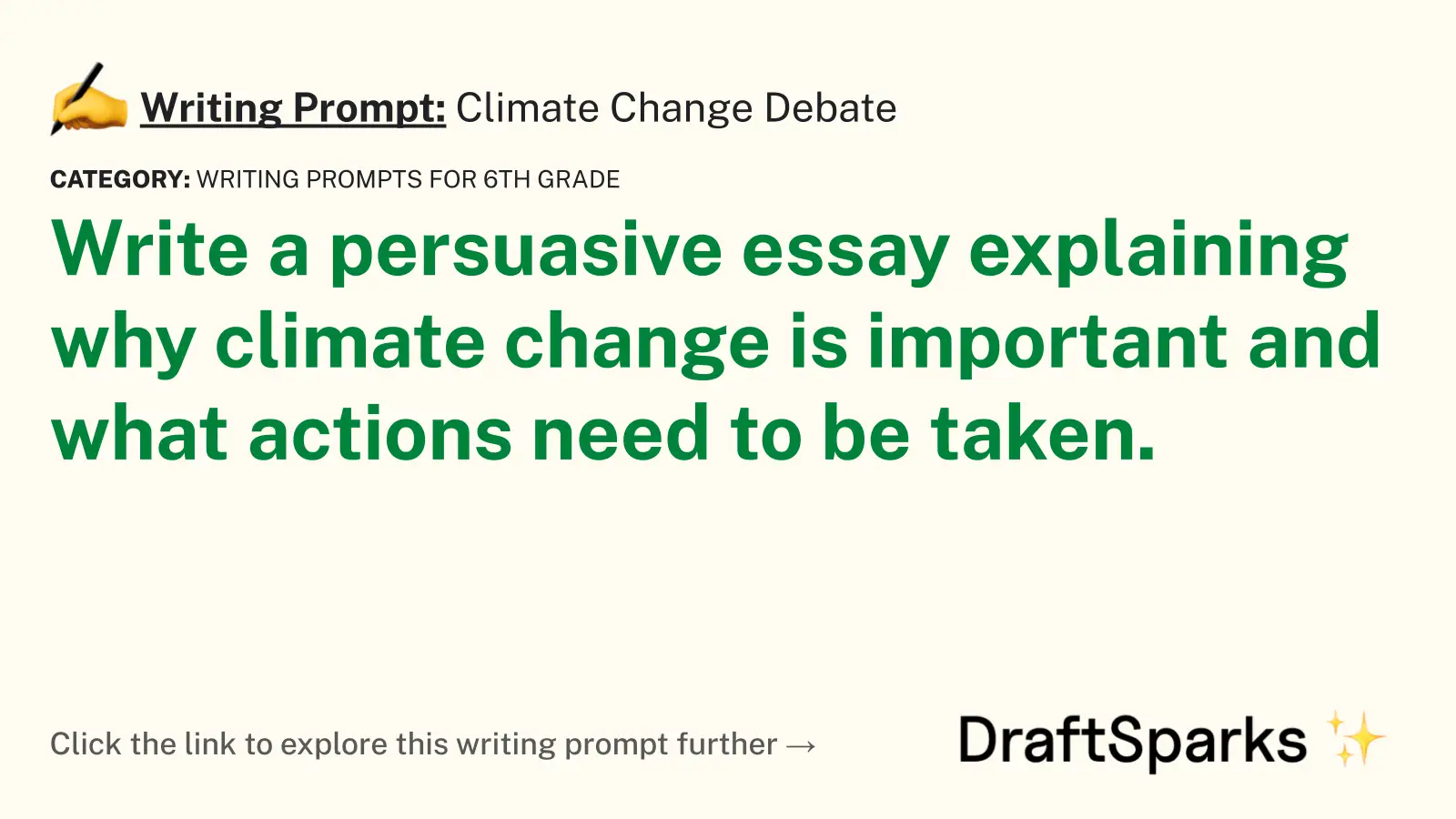
Climate Change Debate
Write a persuasive essay explaining why climate change is important and what actions need to be taken.
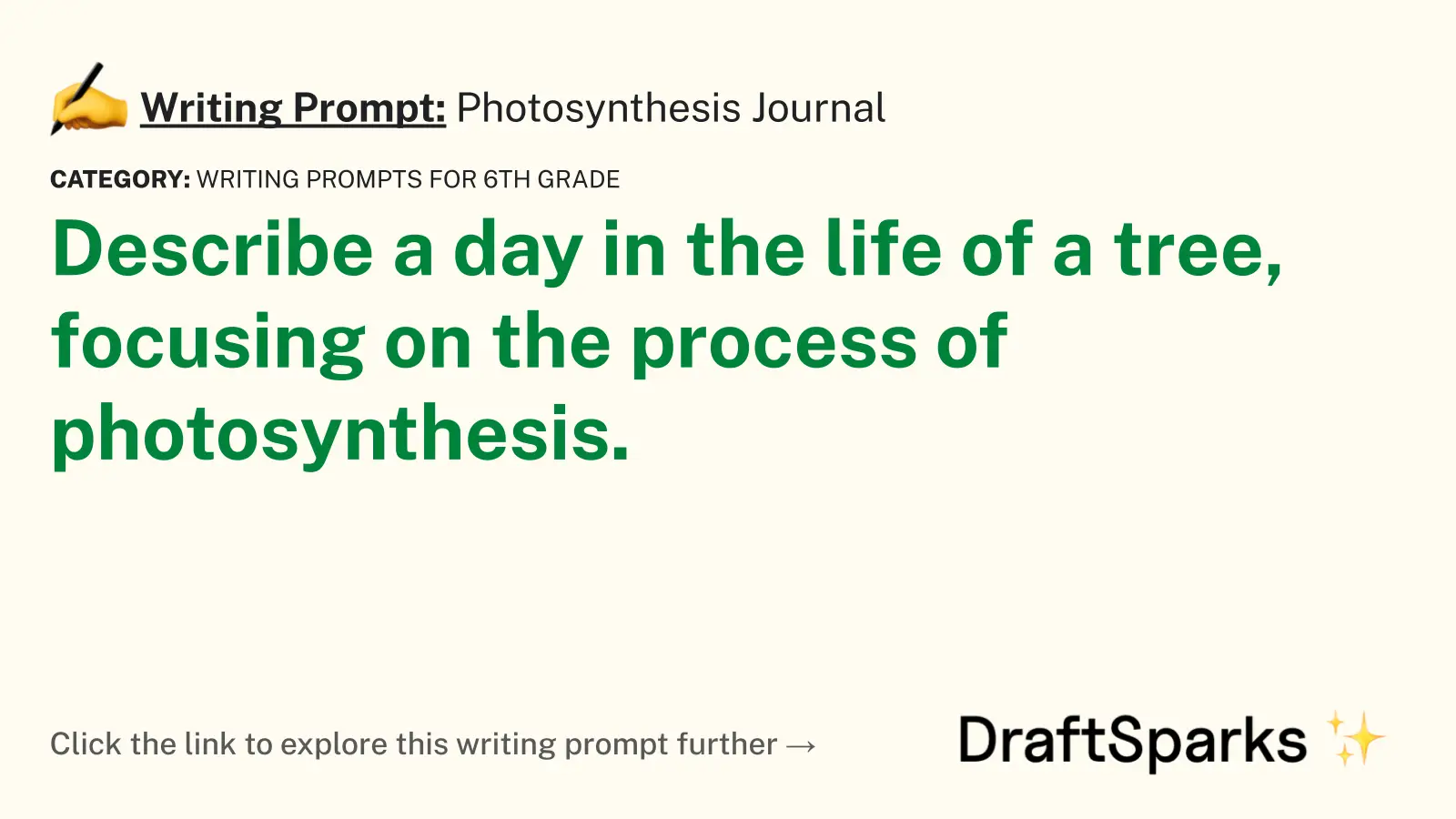
Photosynthesis Journal
Describe a day in the life of a tree, focusing on the process of photosynthesis.
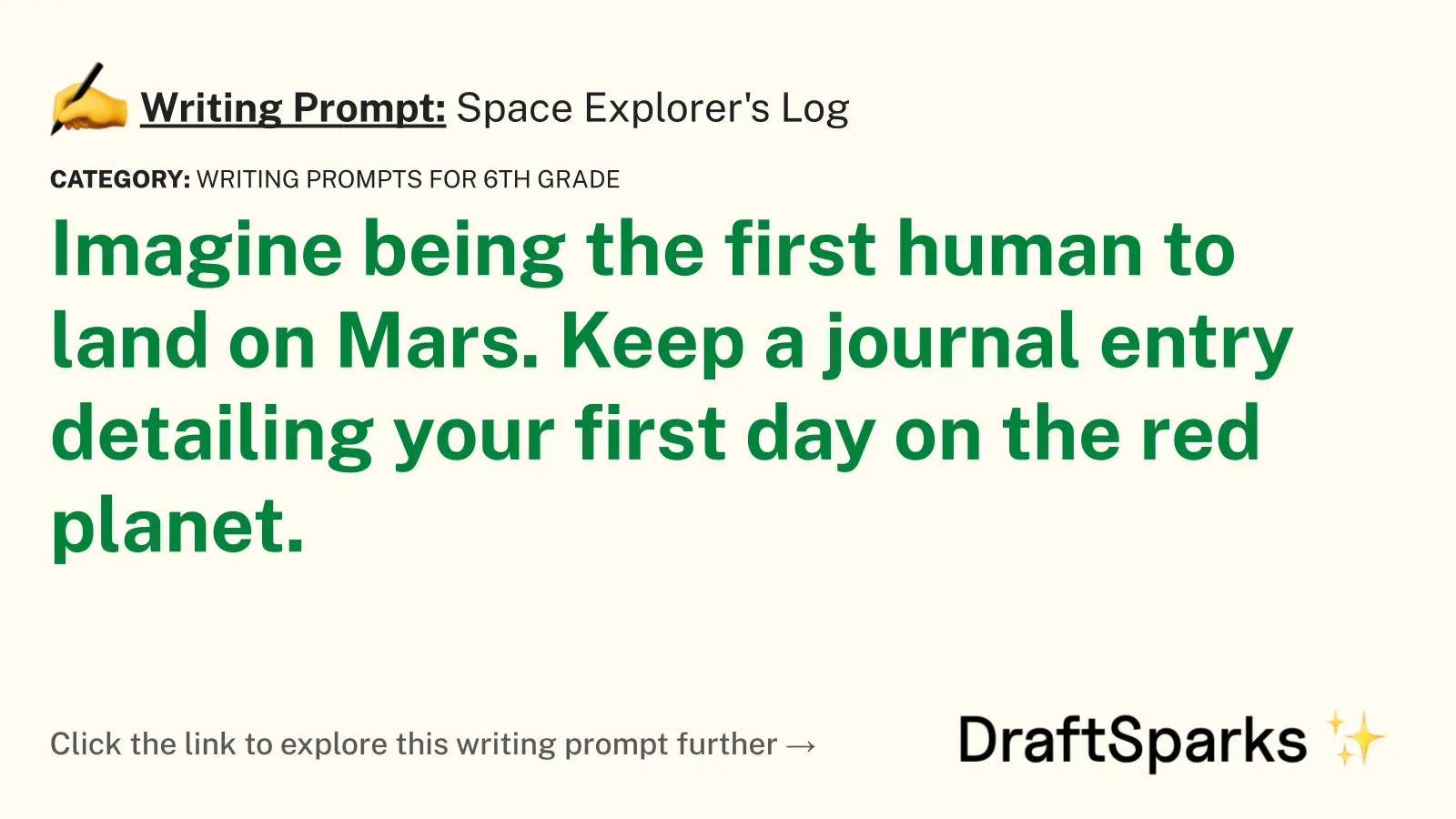
Space Explorer’s Log
Imagine being the first human to land on Mars. Keep a journal entry detailing your first day on the red…
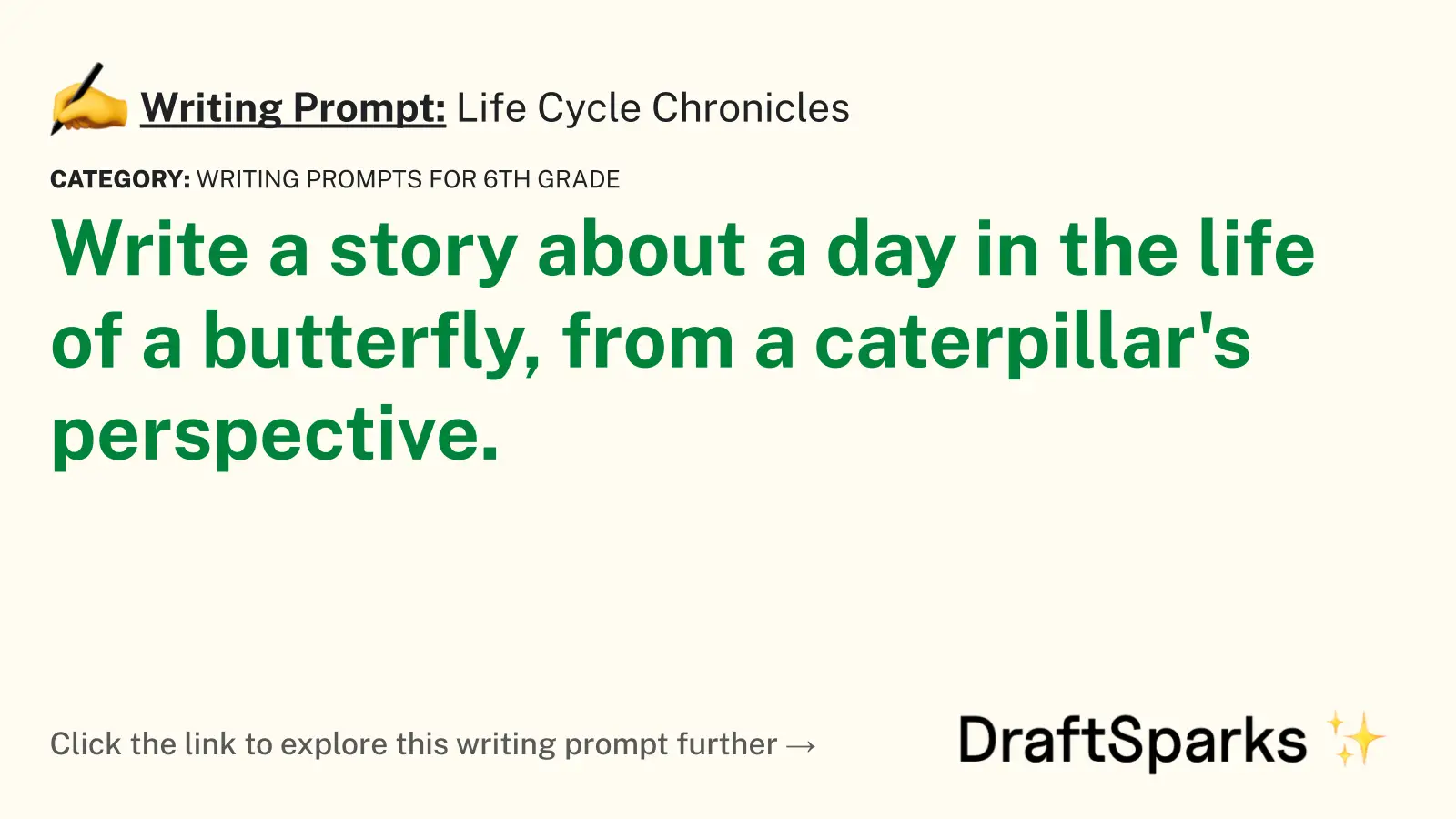
Life Cycle Chronicles
Write a story about a day in the life of a butterfly, from a caterpillar’s perspective.
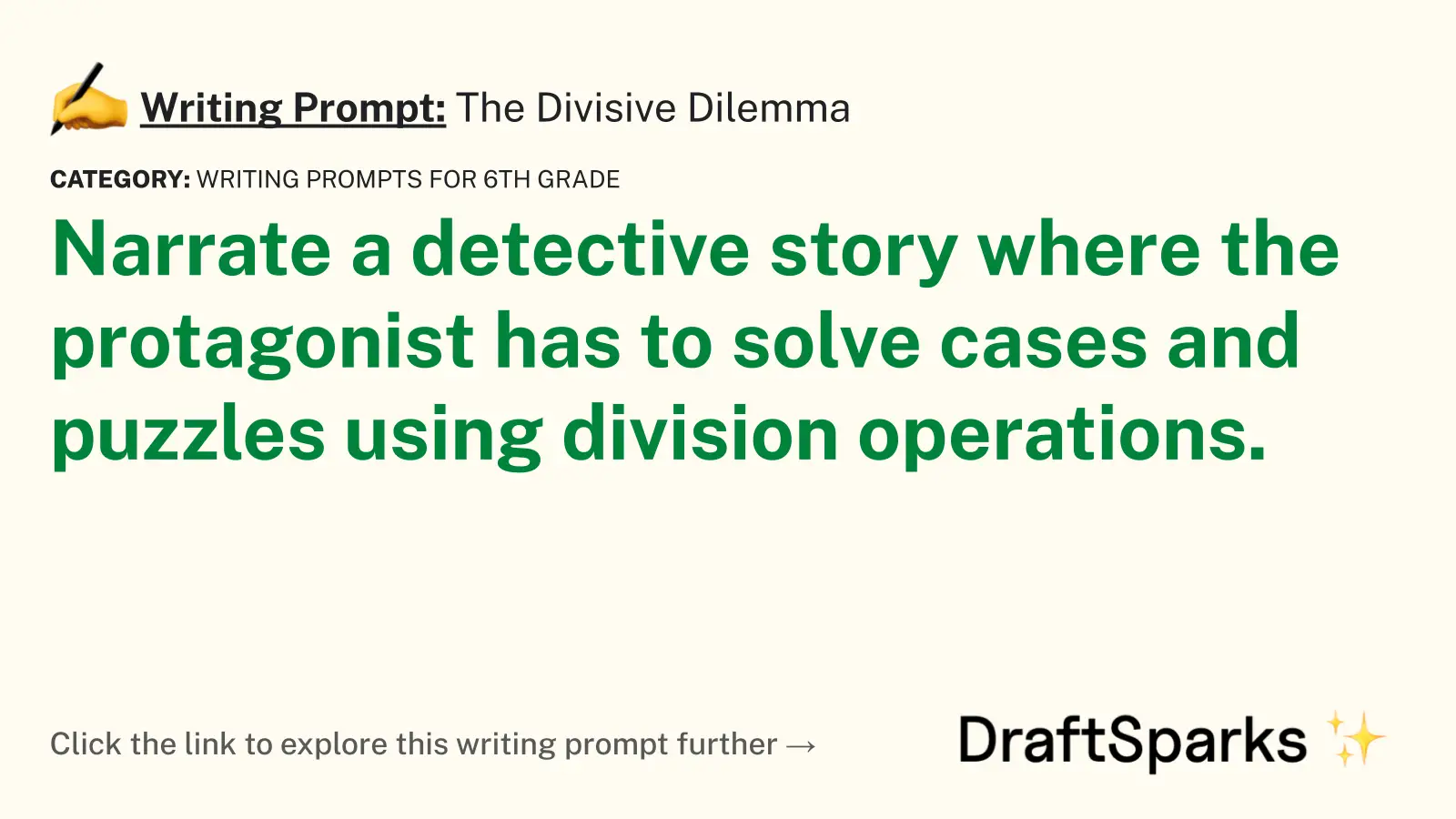
The Divisive Dilemma
Narrate a detective story where the protagonist has to solve cases and puzzles using division operations.
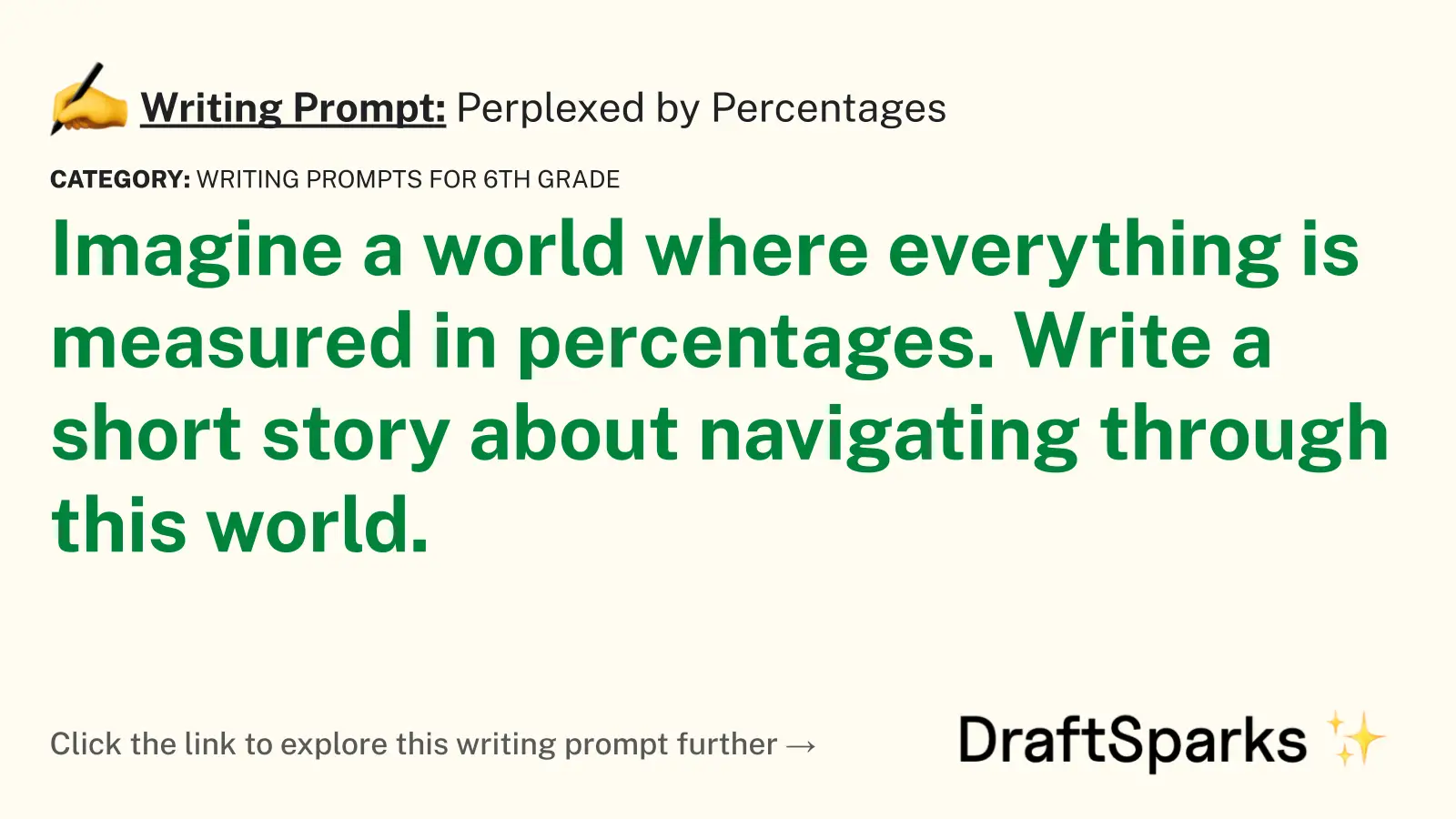
Perplexed by Percentages
Imagine a world where everything is measured in percentages. Write a short story about navigating through this world.

Geometry Jungle
Devise a story around various geometrical shapes living in a ‘Geometry Jungle’.
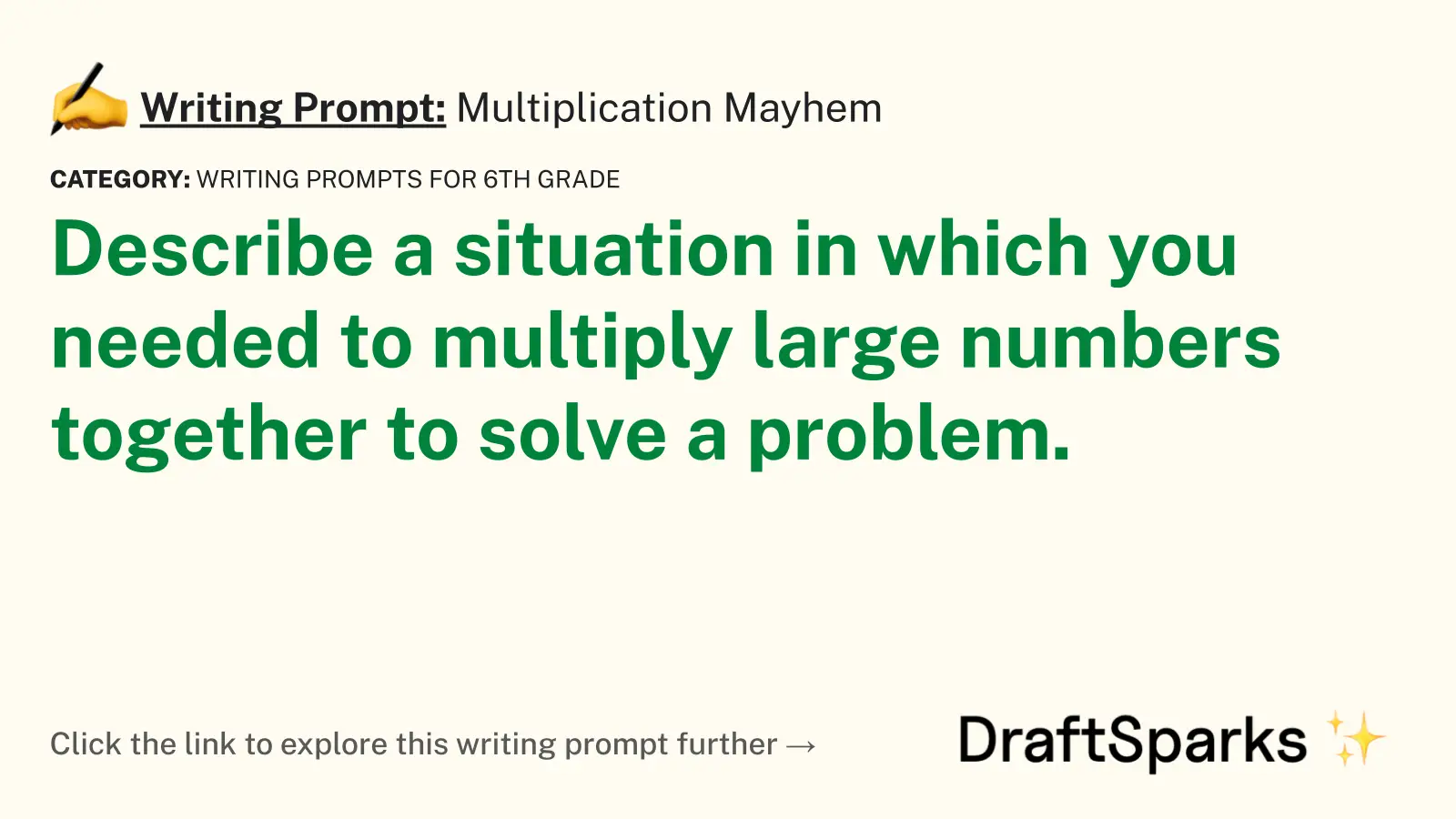
Multiplication Mayhem
Describe a situation in which you needed to multiply large numbers together to solve a problem.
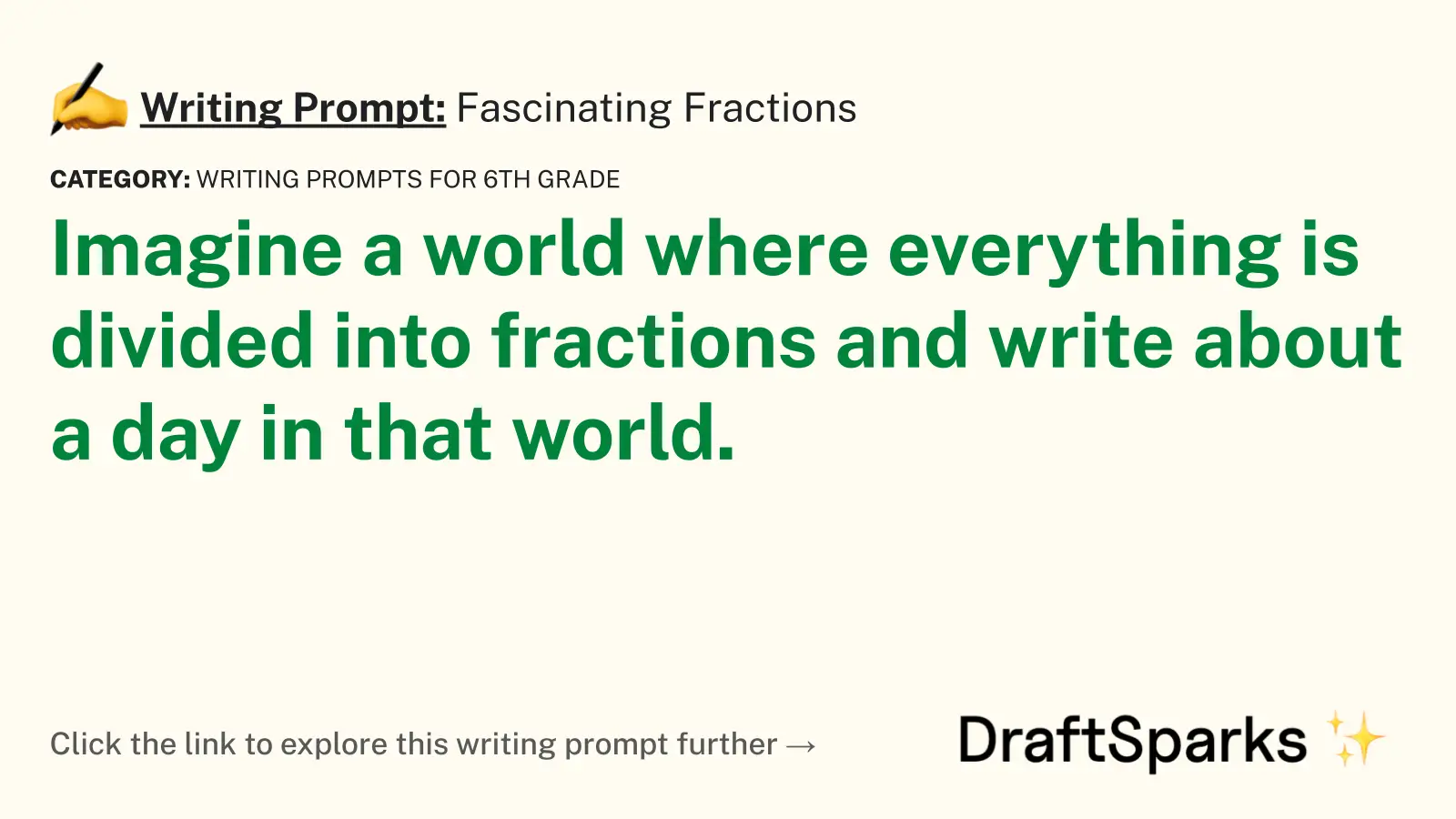
Fascinating Fractions
Imagine a world where everything is divided into fractions and write about a day in that world.
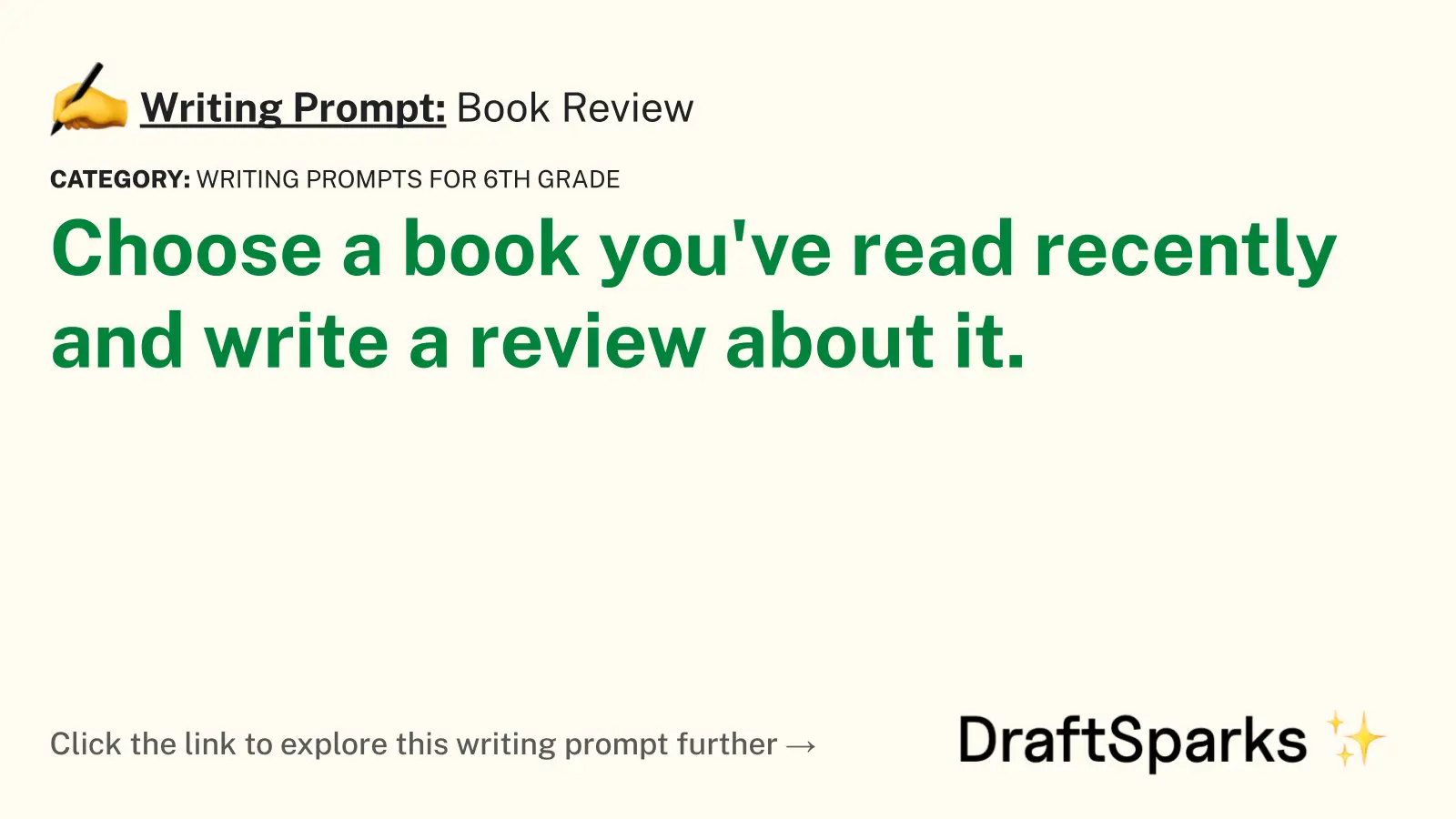
Book Review
Choose a book you’ve read recently and write a review about it.
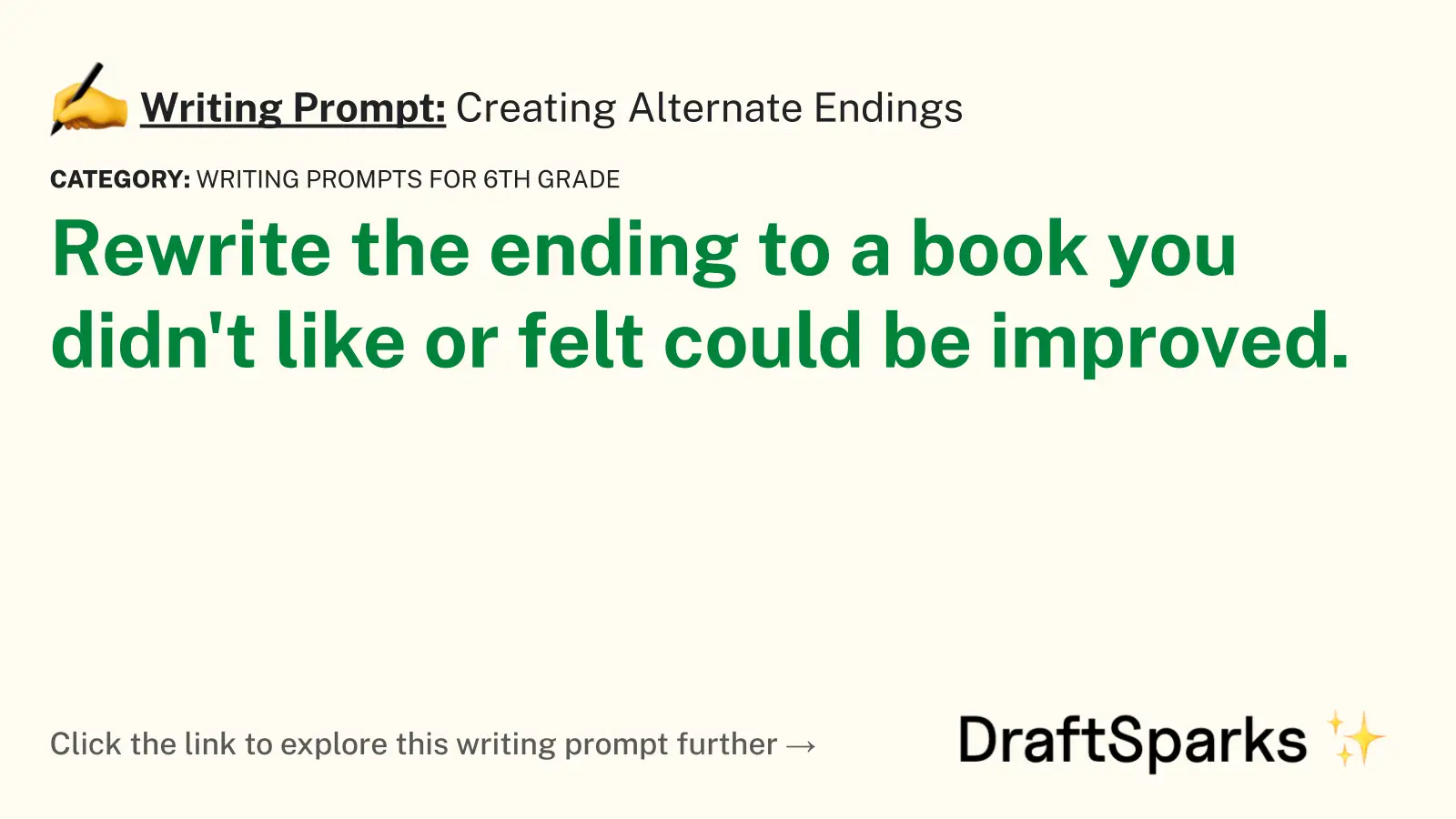
Creating Alternate Endings
Rewrite the ending to a book you didn’t like or felt could be improved.
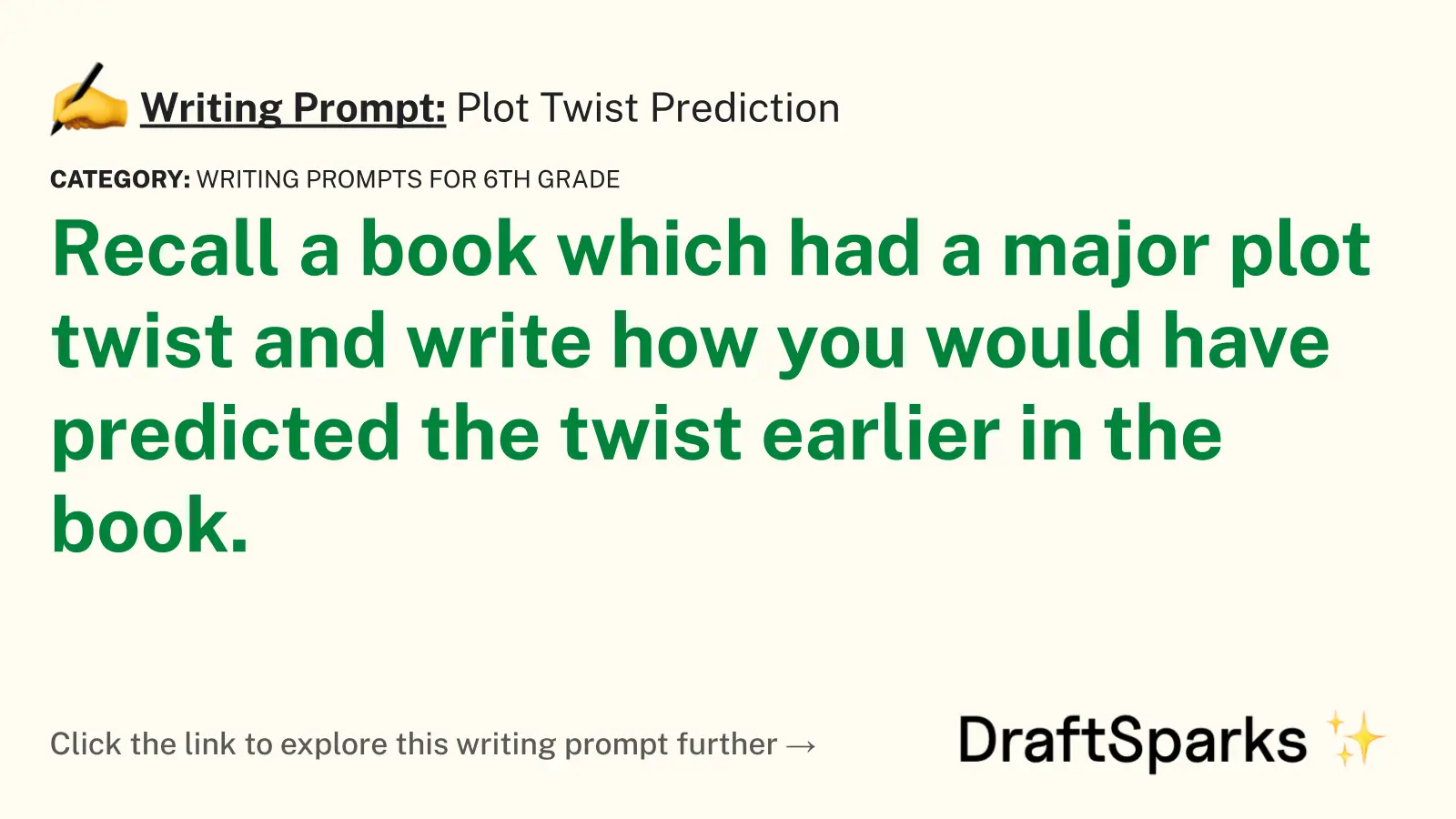
Plot Twist Prediction
Recall a book which had a major plot twist and write how you would have predicted the twist earlier in…
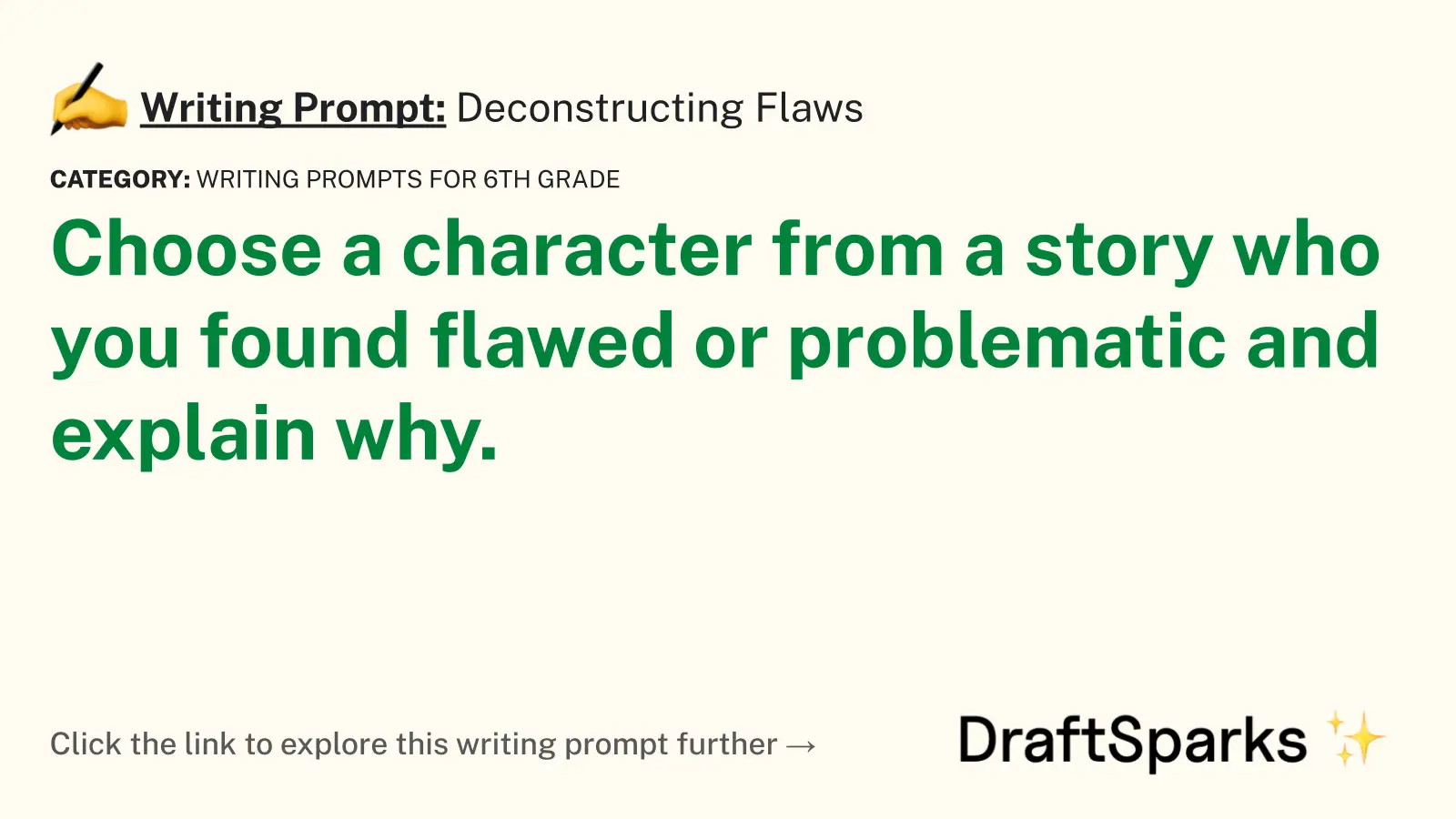
Deconstructing Flaws
Choose a character from a story who you found flawed or problematic and explain why.
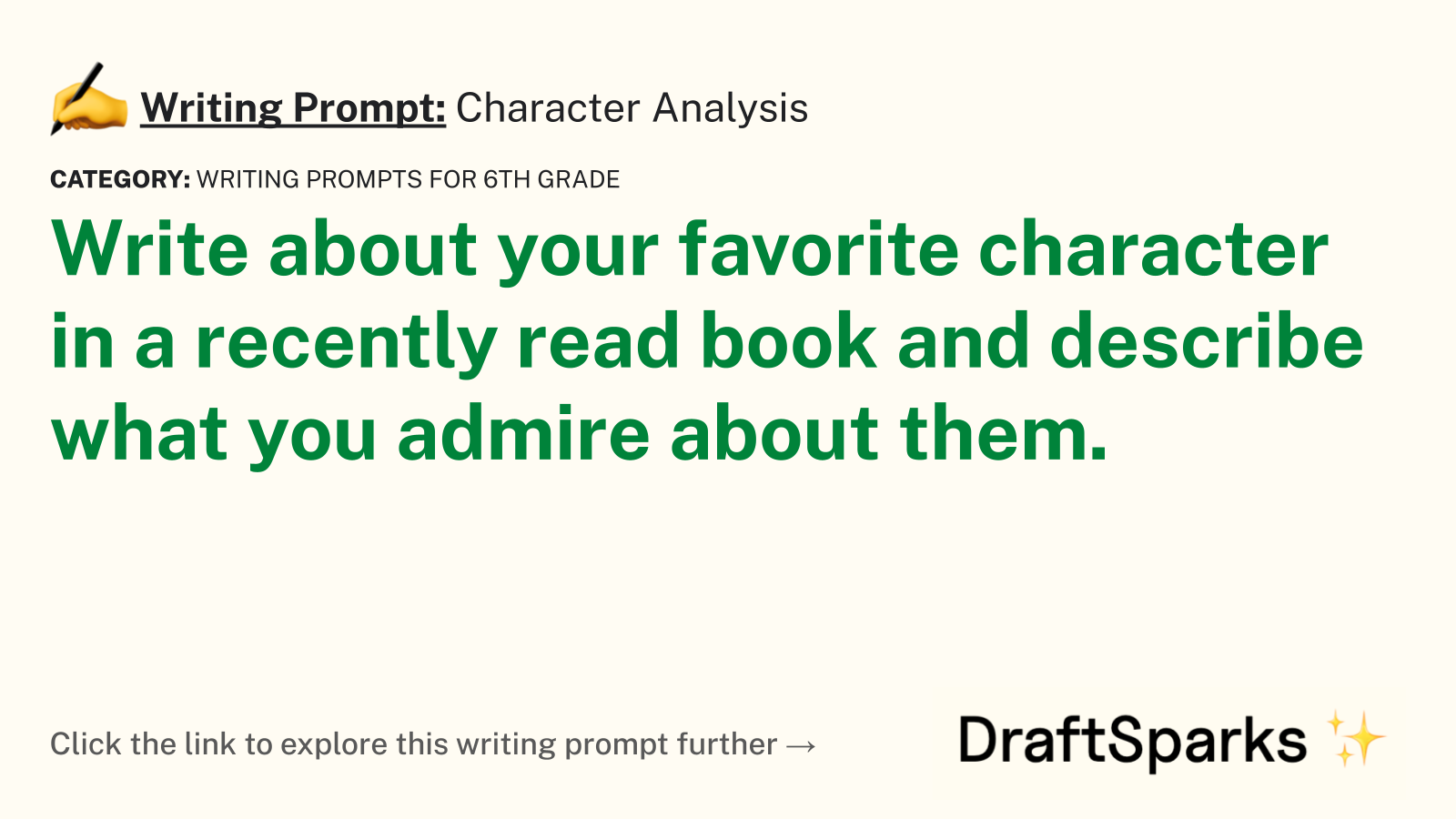
Character Analysis
Write about your favorite character in a recently read book and describe what you admire about them.
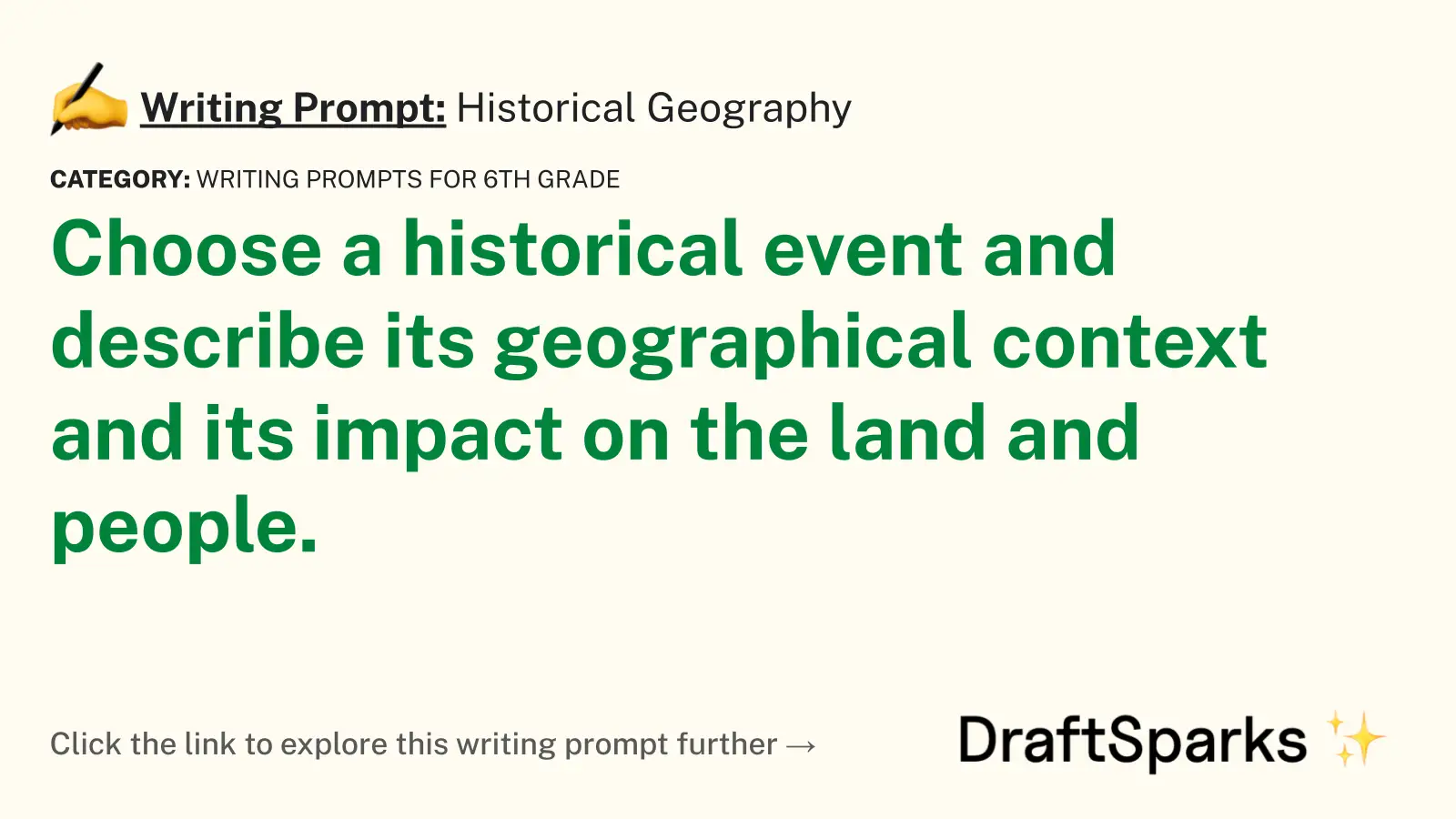

Historical Geography
Choose a historical event and describe its geographical context and its impact on the land and people.

The Impact of Climate Change
Research a specific geographical location and write about how it has been affected by climate change.
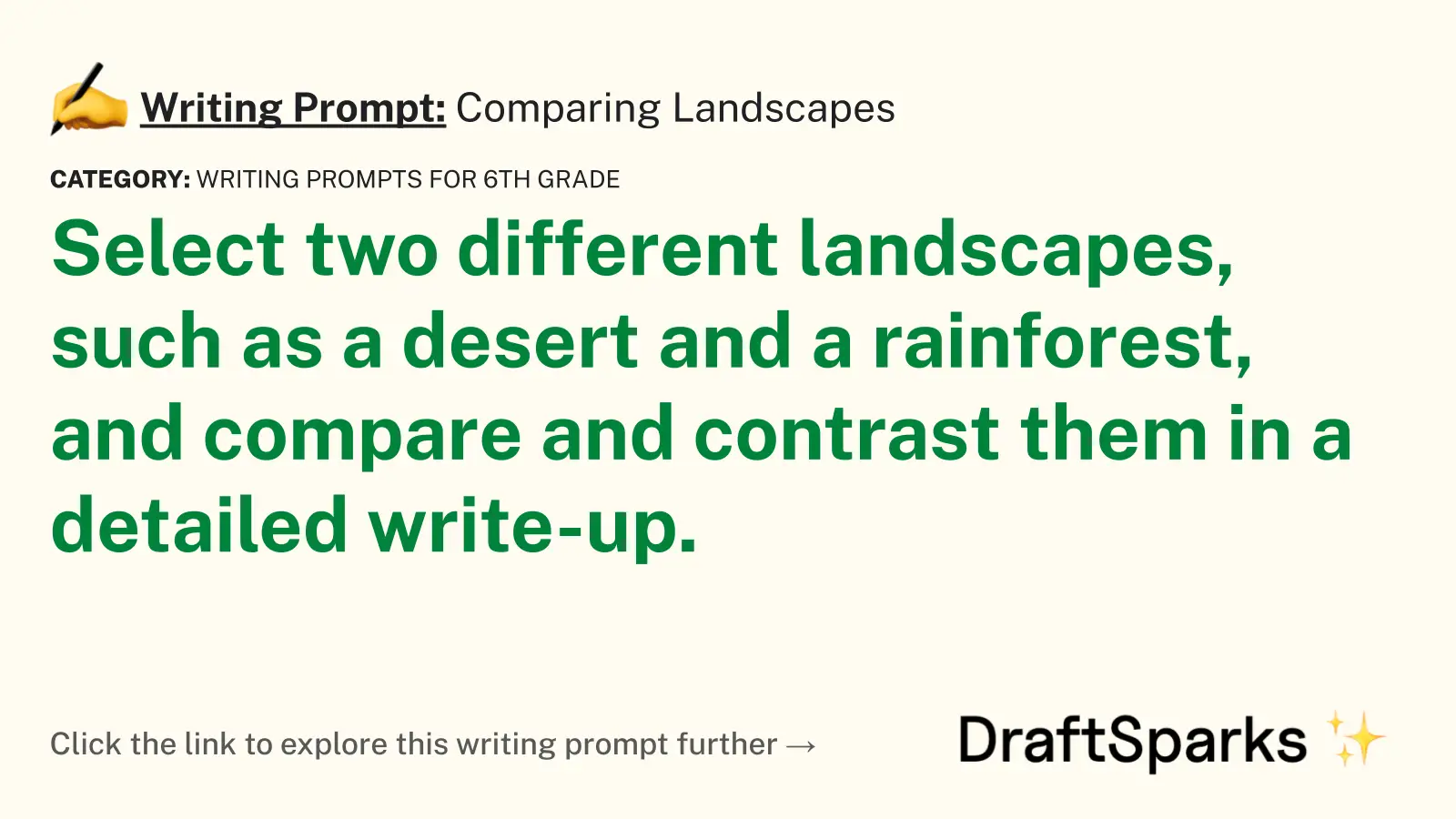
Comparing Landscapes
Select two different landscapes, such as a desert and a rainforest, and compare and contrast them in a detailed write-up.
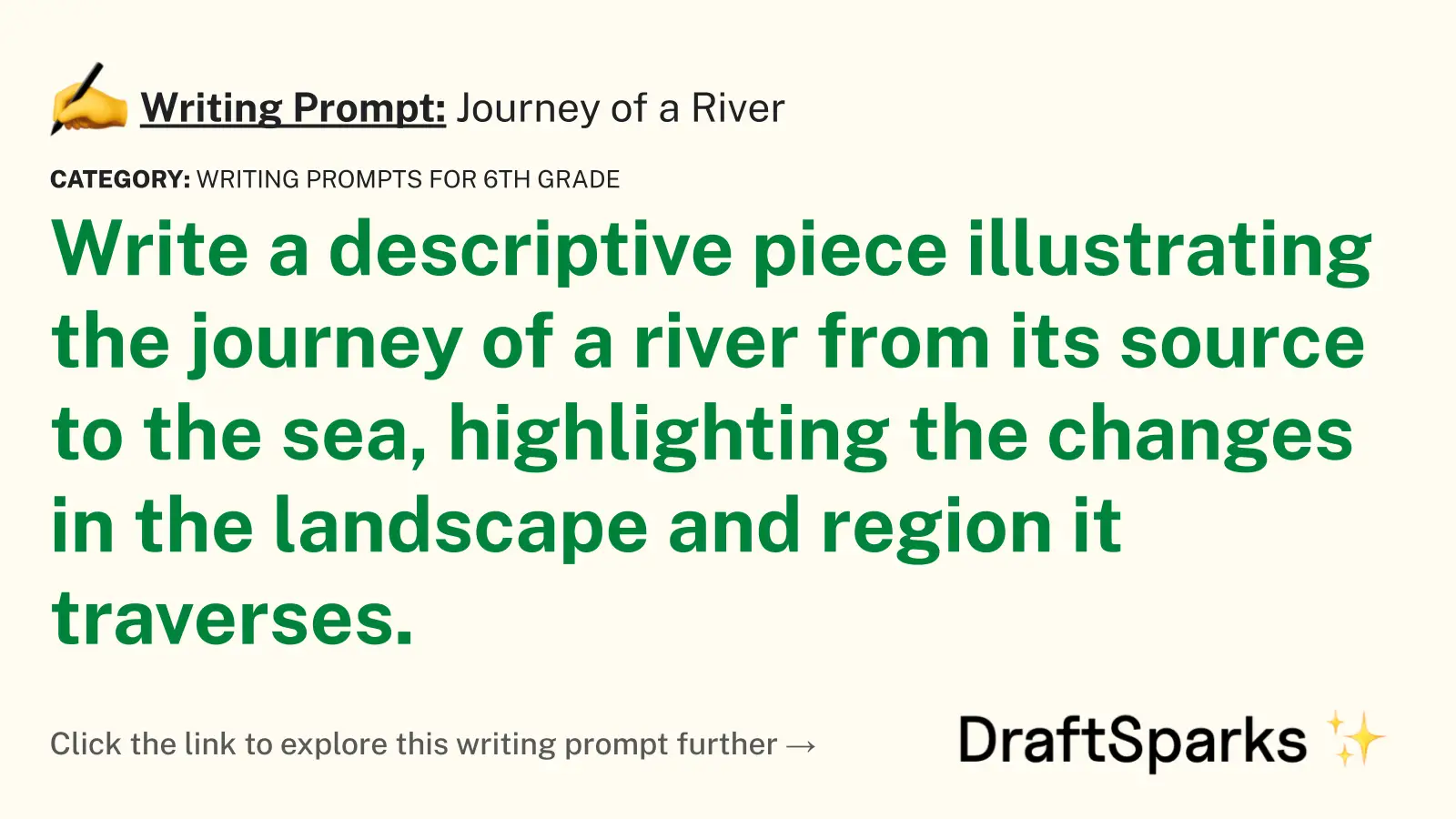
Journey of a River
Write a descriptive piece illustrating the journey of a river from its source to the sea, highlighting the changes in…
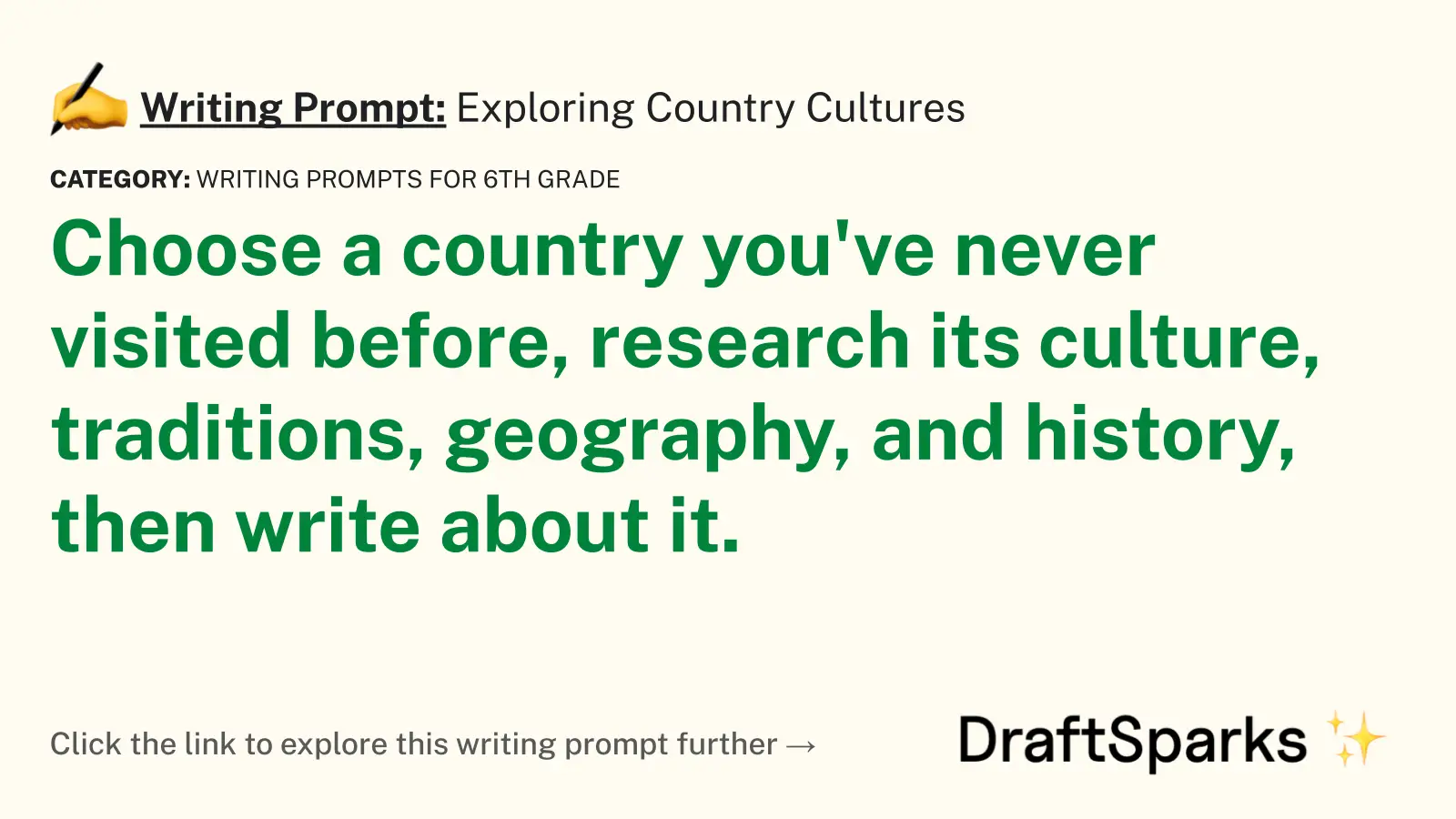
Exploring Country Cultures
Choose a country you’ve never visited before, research its culture, traditions, geography, and history, then write about it.
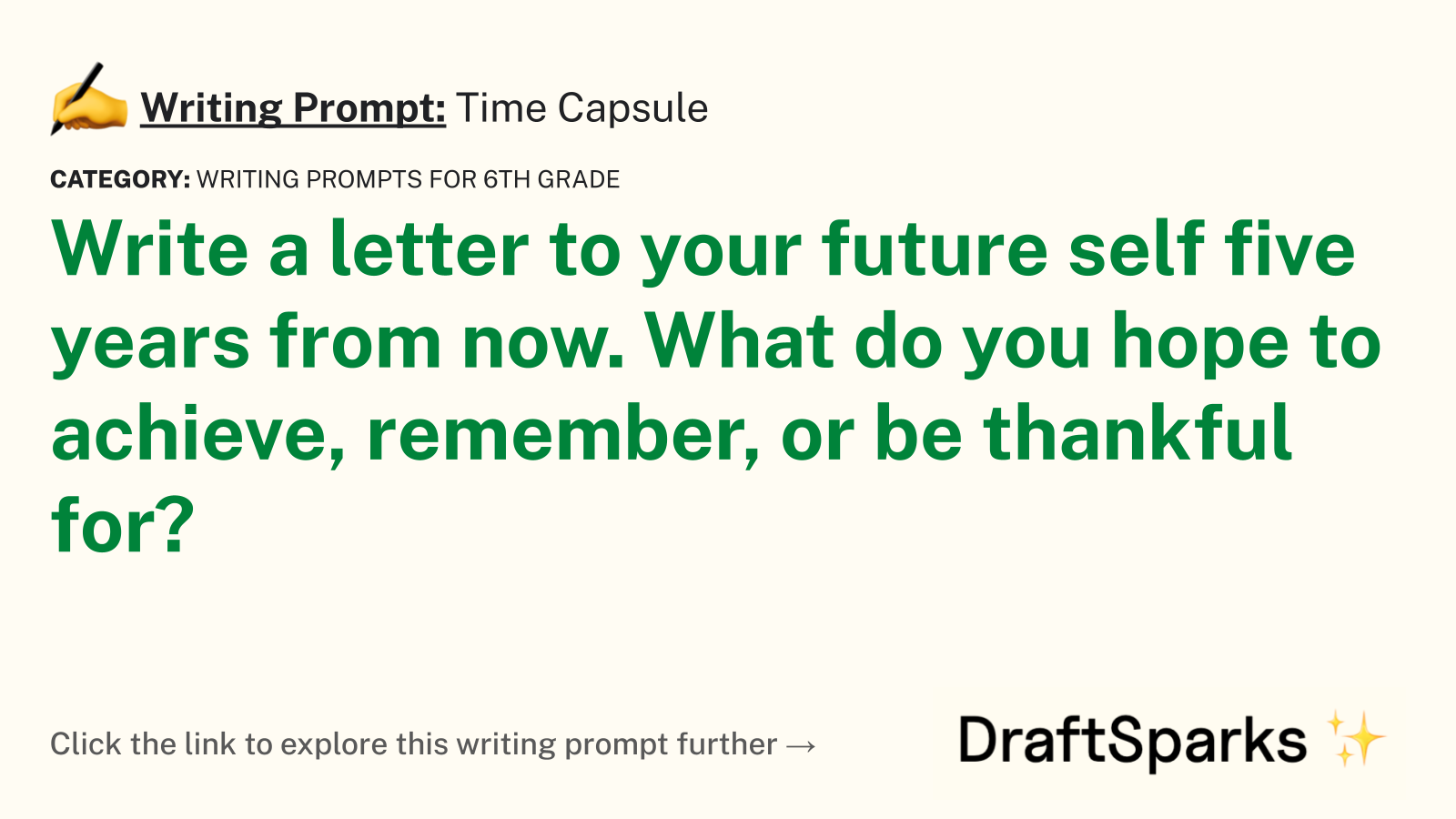
Time Capsule
Write a letter to your future self five years from now. What do you hope to achieve, remember, or be…
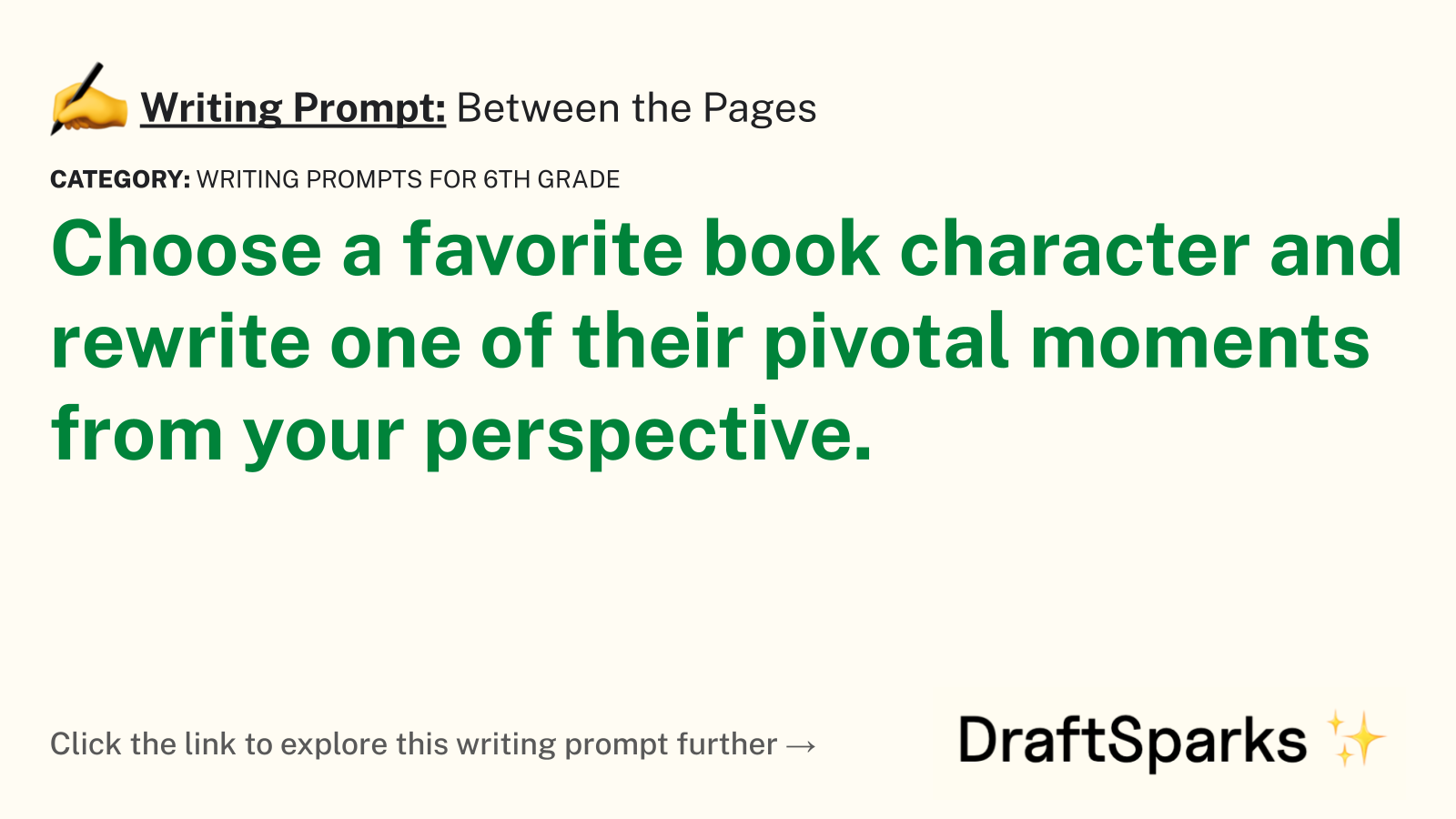
Between the Pages
Choose a favorite book character and rewrite one of their pivotal moments from your perspective.
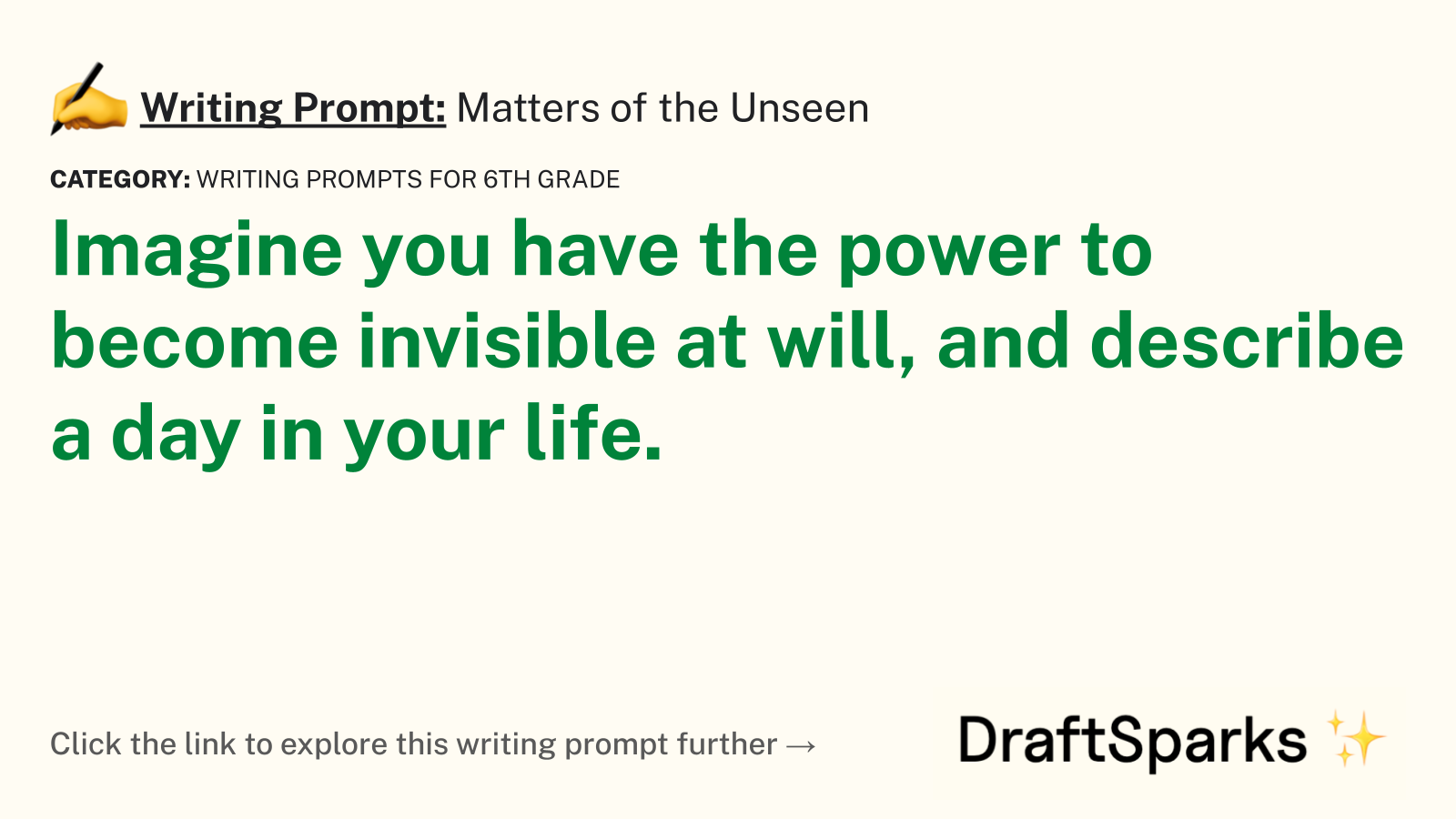
Matters of the Unseen
Imagine you have the power to become invisible at will, and describe a day in your life.
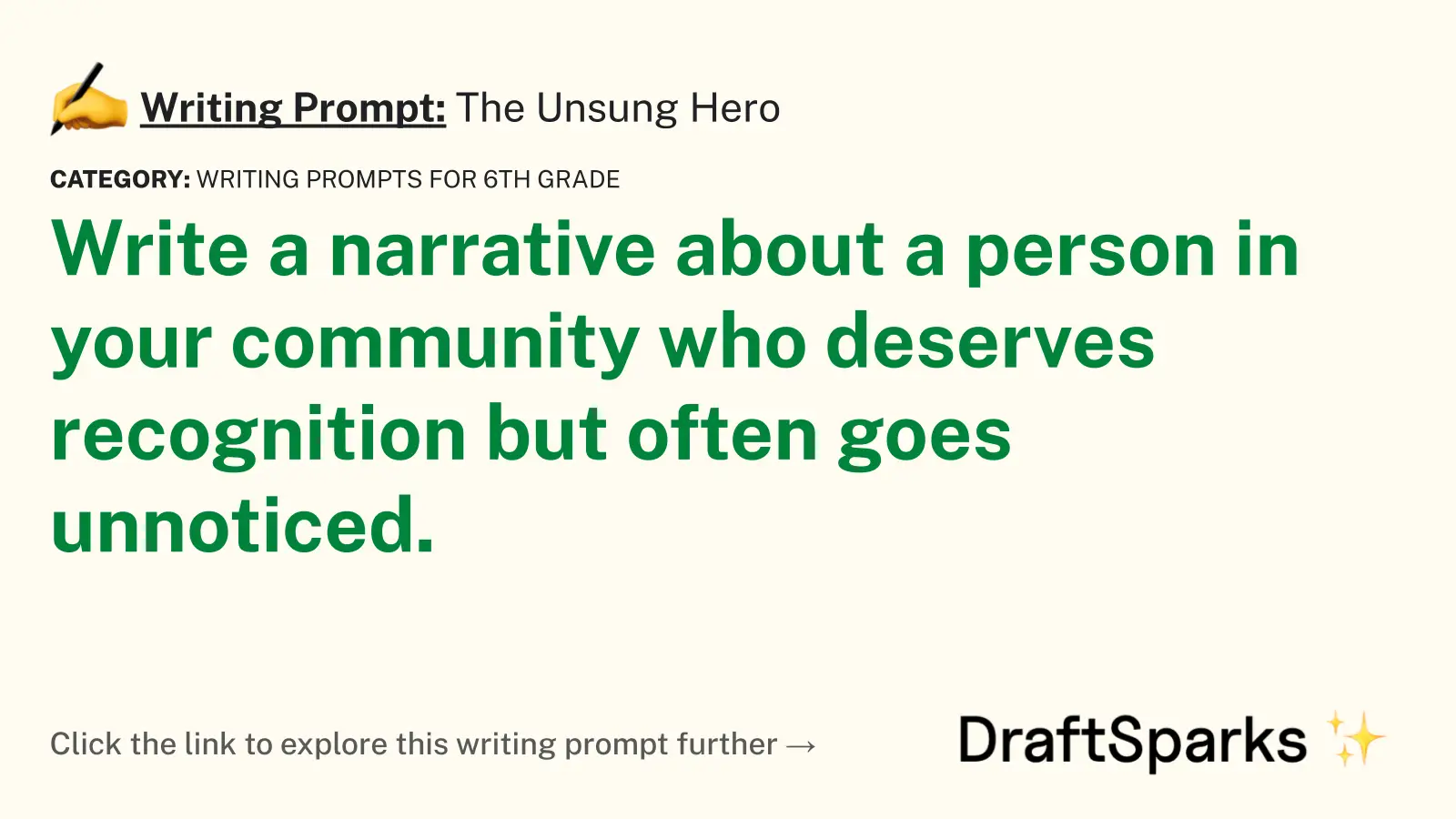
The Unsung Hero
Write a narrative about a person in your community who deserves recognition but often goes unnoticed.
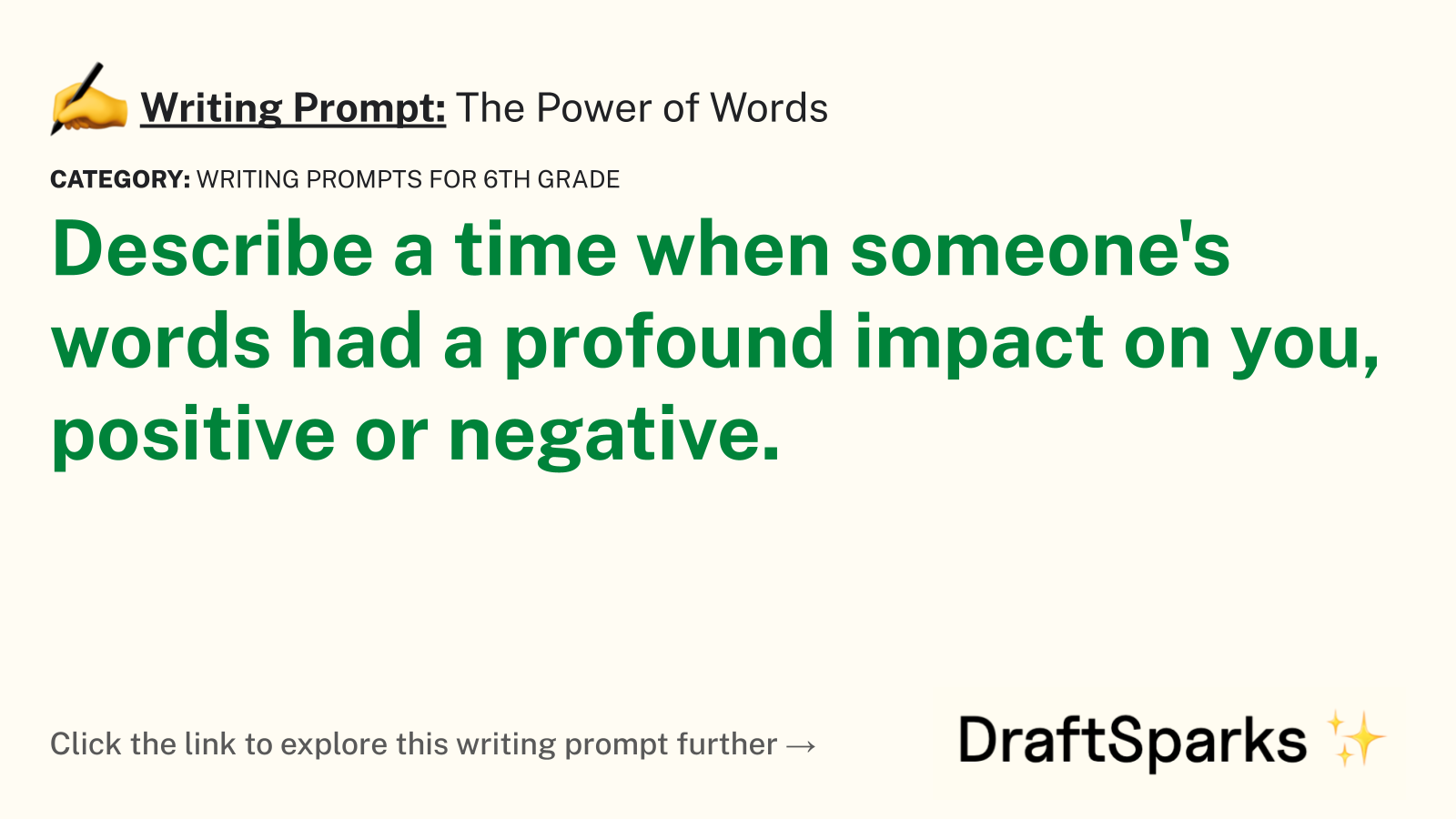
The Power of Words
Describe a time when someone’s words had a profound impact on you, positive or negative.
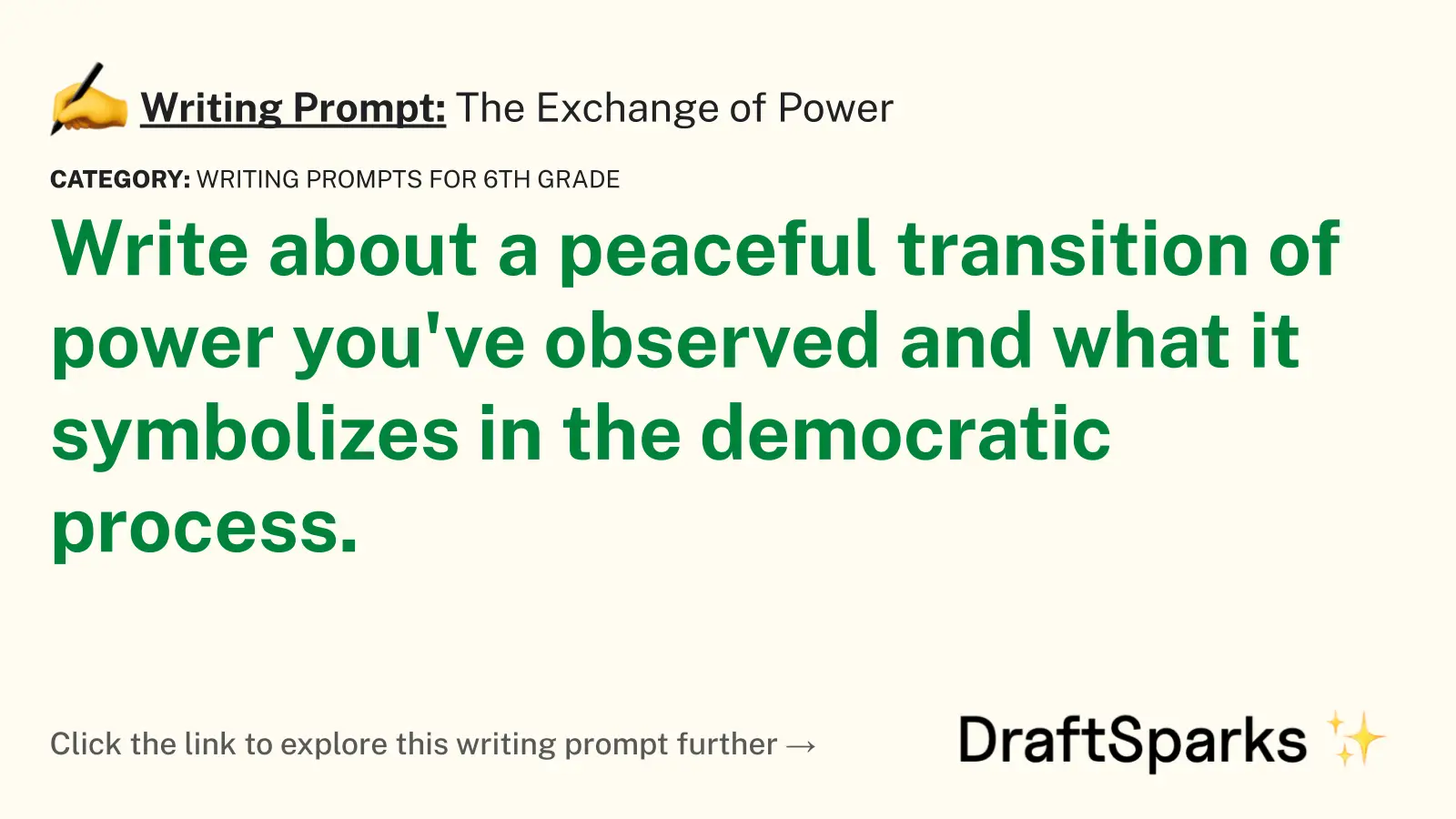
The Exchange of Power
Write about a peaceful transition of power you’ve observed and what it symbolizes in the democratic process.
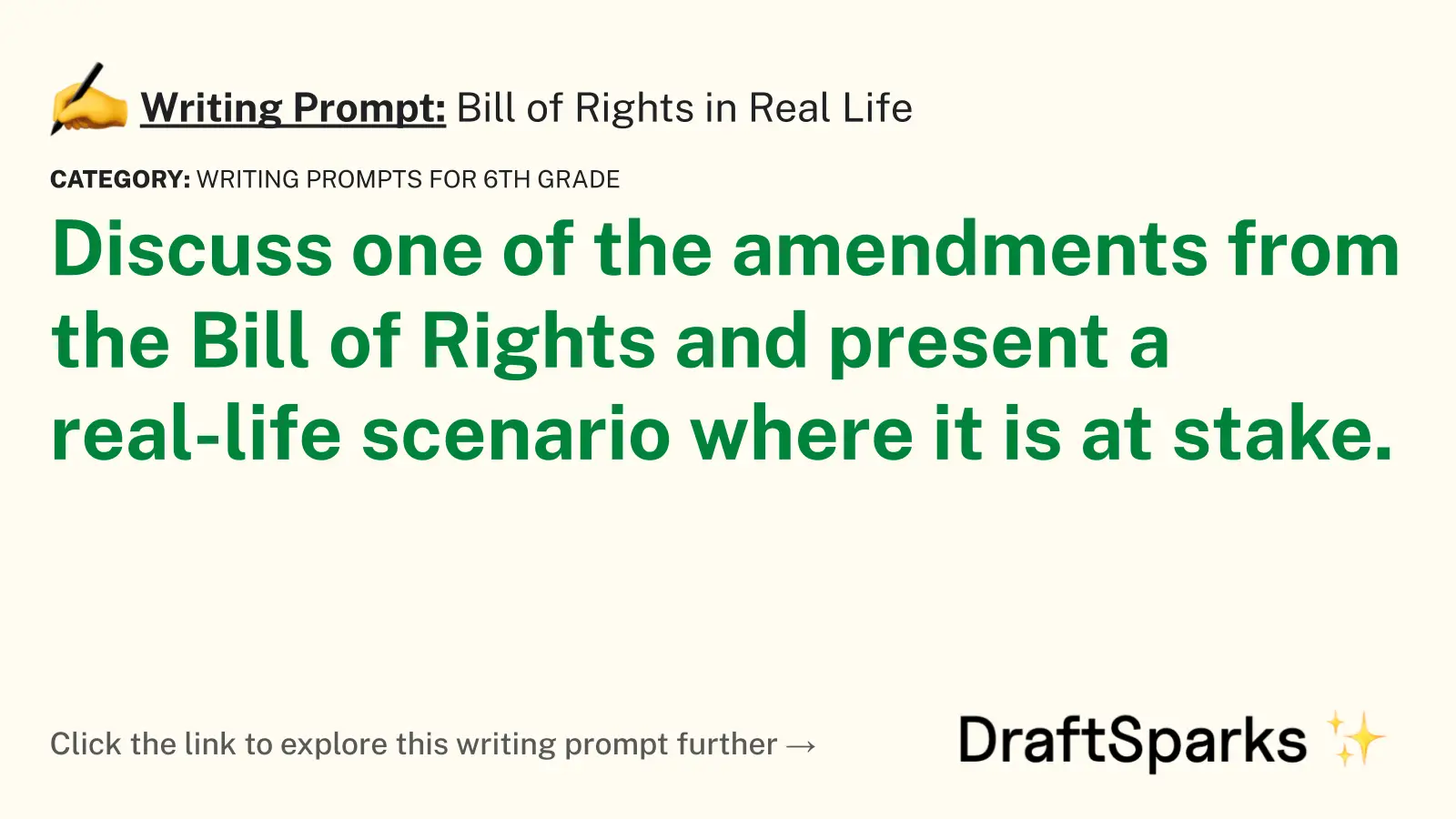
Bill of Rights in Real Life
Discuss one of the amendments from the Bill of Rights and present a real-life scenario where it is at stake.
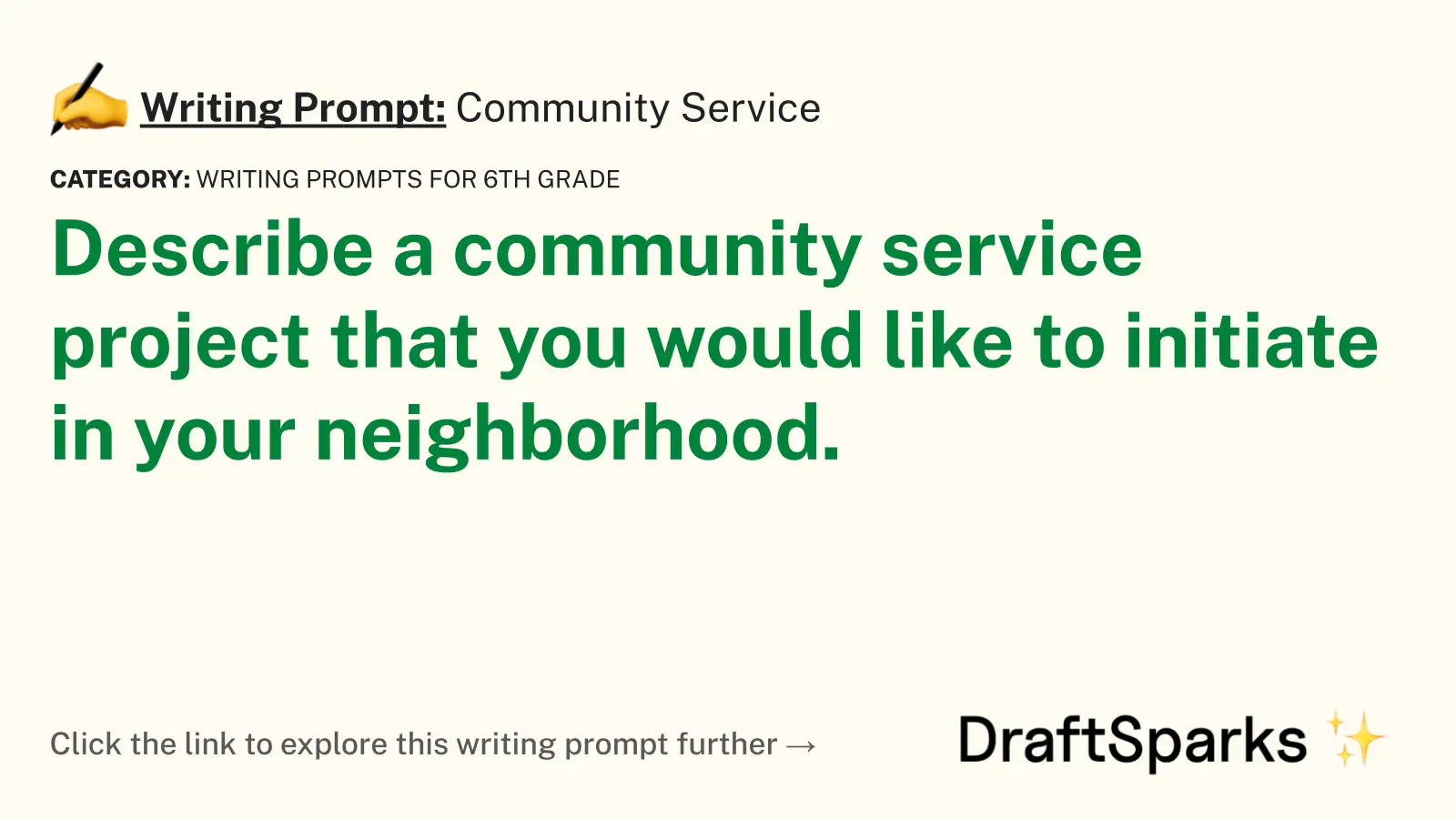
Community Service
Describe a community service project that you would like to initiate in your neighborhood.
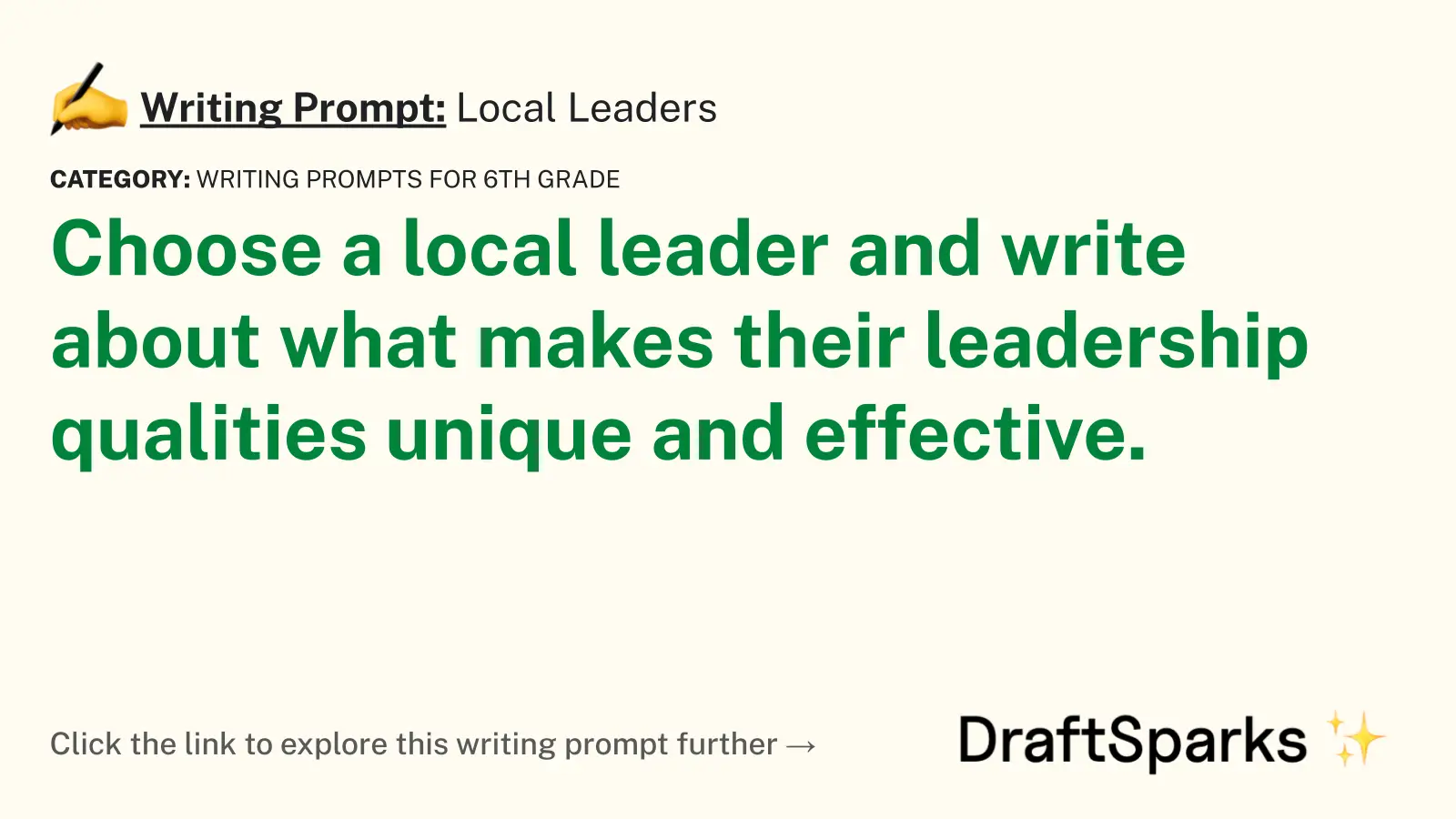
Local Leaders
Choose a local leader and write about what makes their leadership qualities unique and effective.
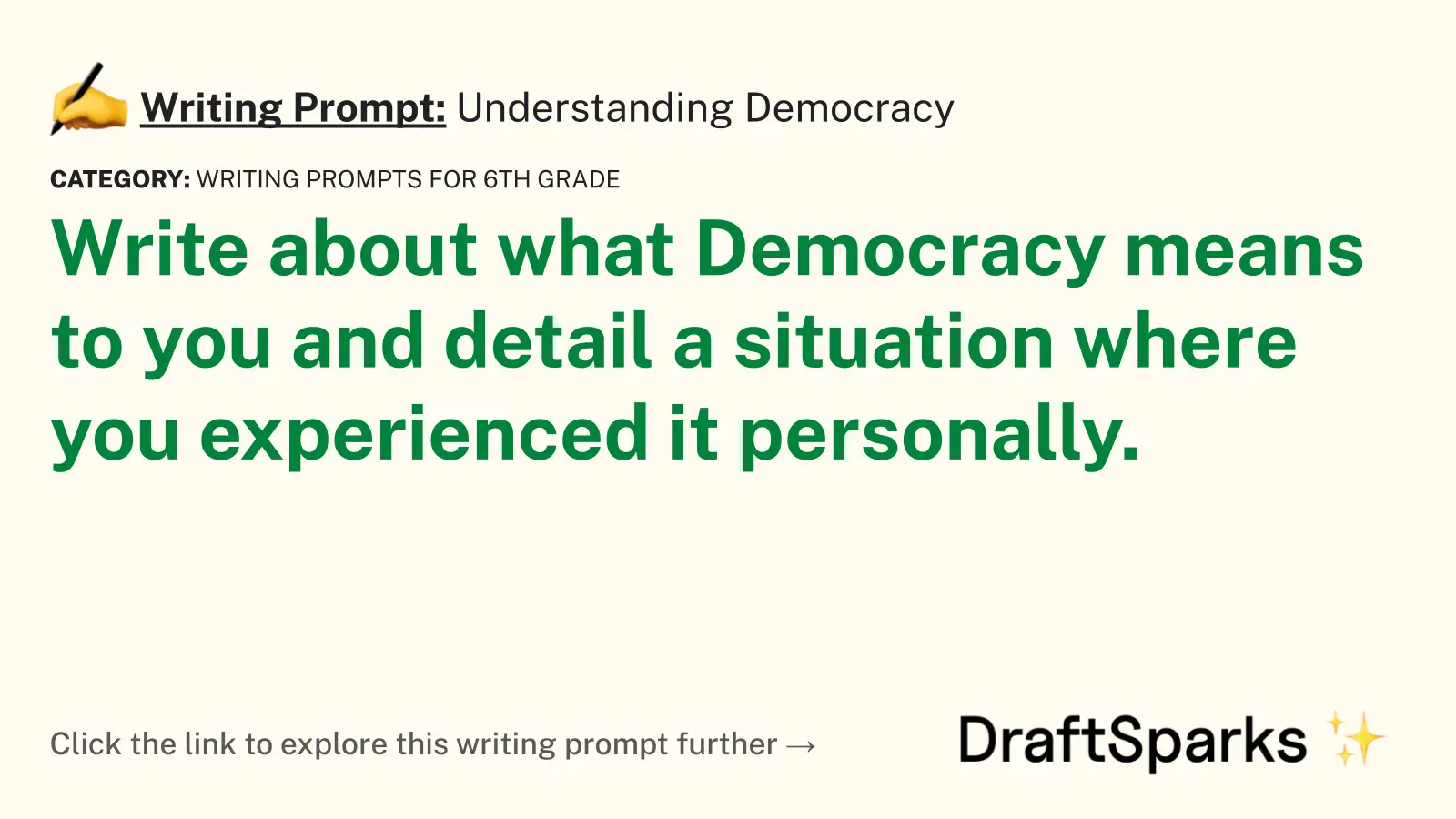
Understanding Democracy
Write about what Democracy means to you and detail a situation where you experienced it personally.
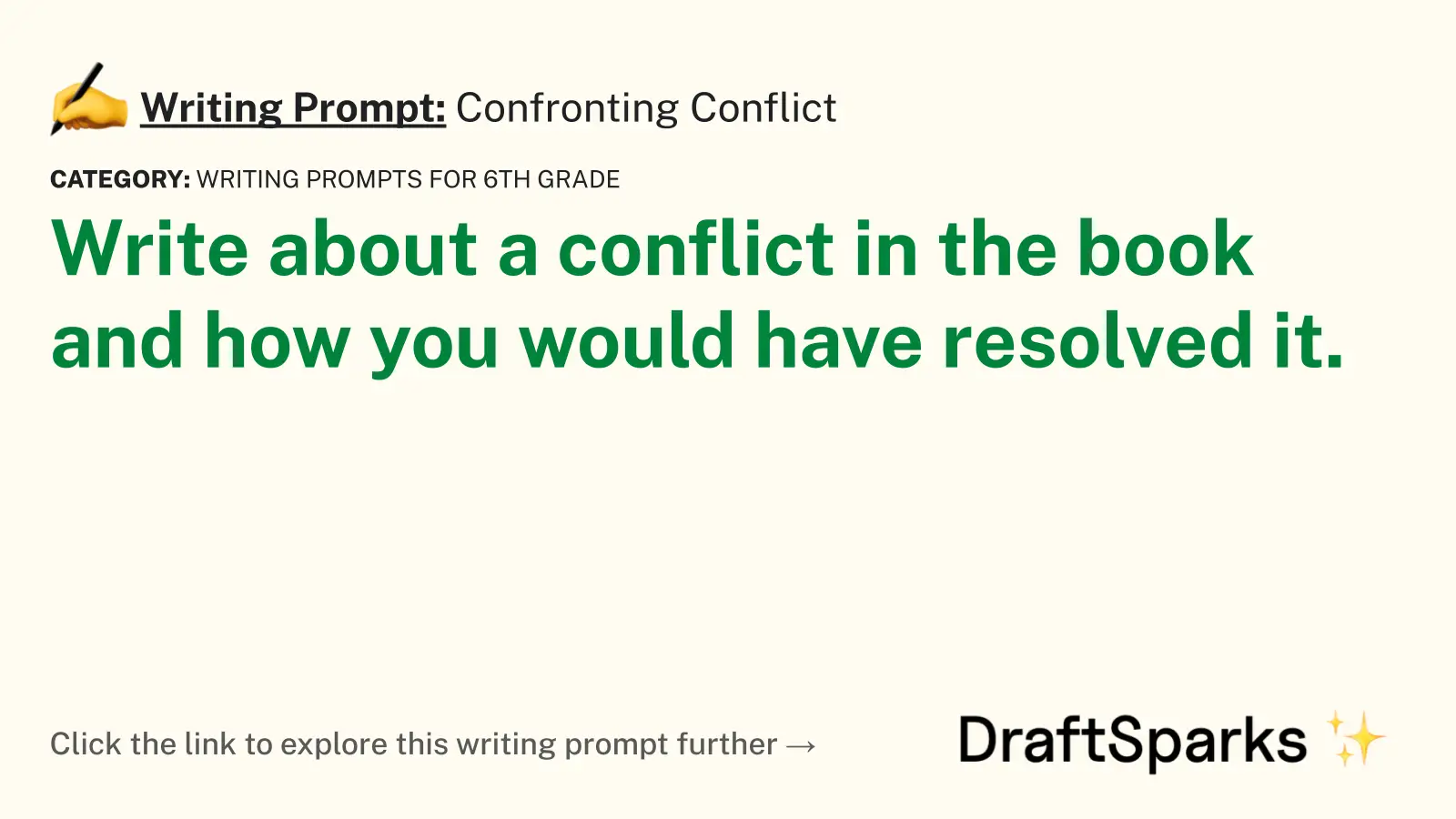
Confronting Conflict
Write about a conflict in the book and how you would have resolved it.

Hidden Messages
Identify and elaborate on a key theme or message that you found in the story.
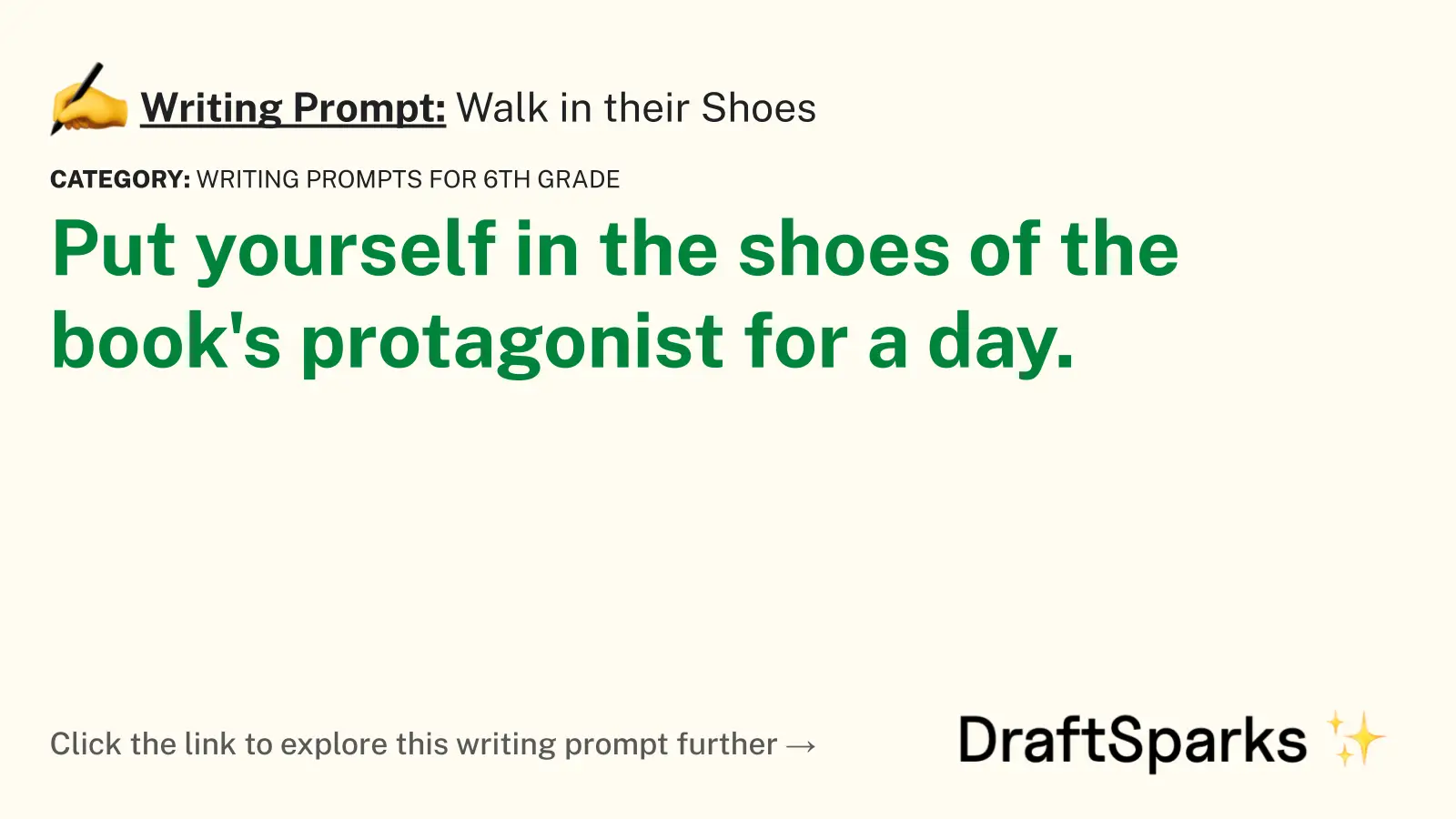
Walk in their Shoes
Put yourself in the shoes of the book’s protagonist for a day.
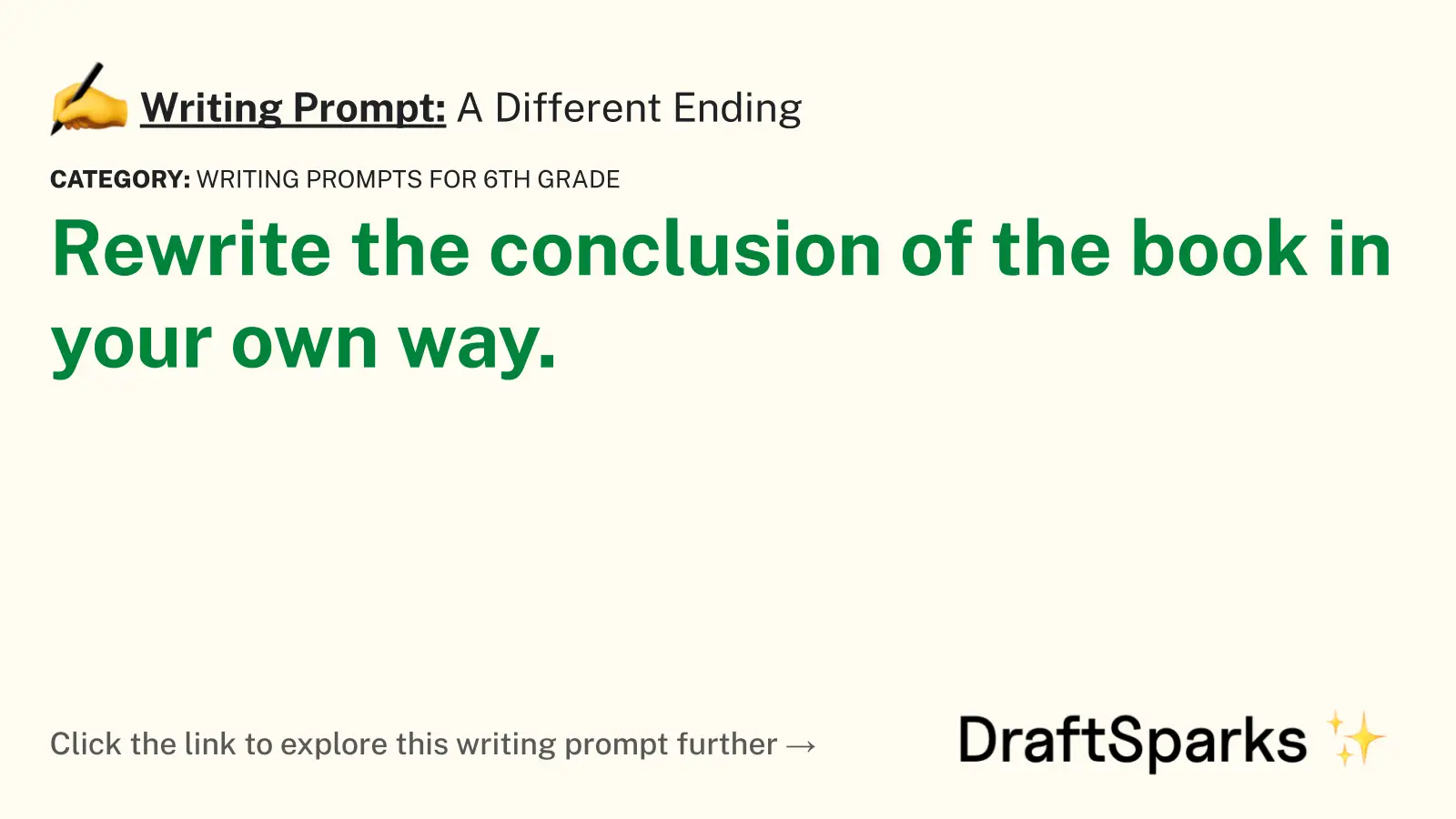
A Different Ending
Rewrite the conclusion of the book in your own way.
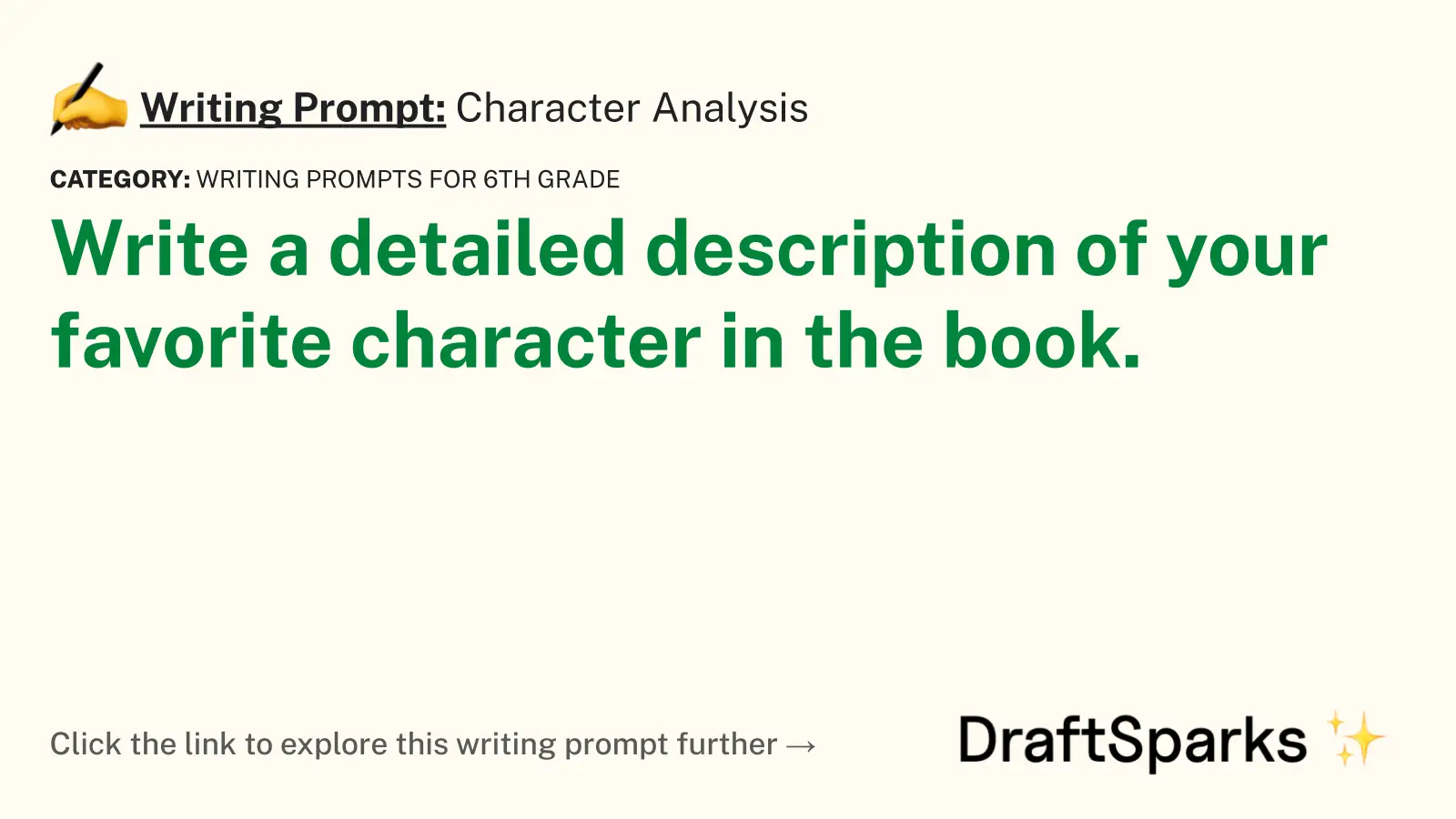
Write a detailed description of your favorite character in the book.
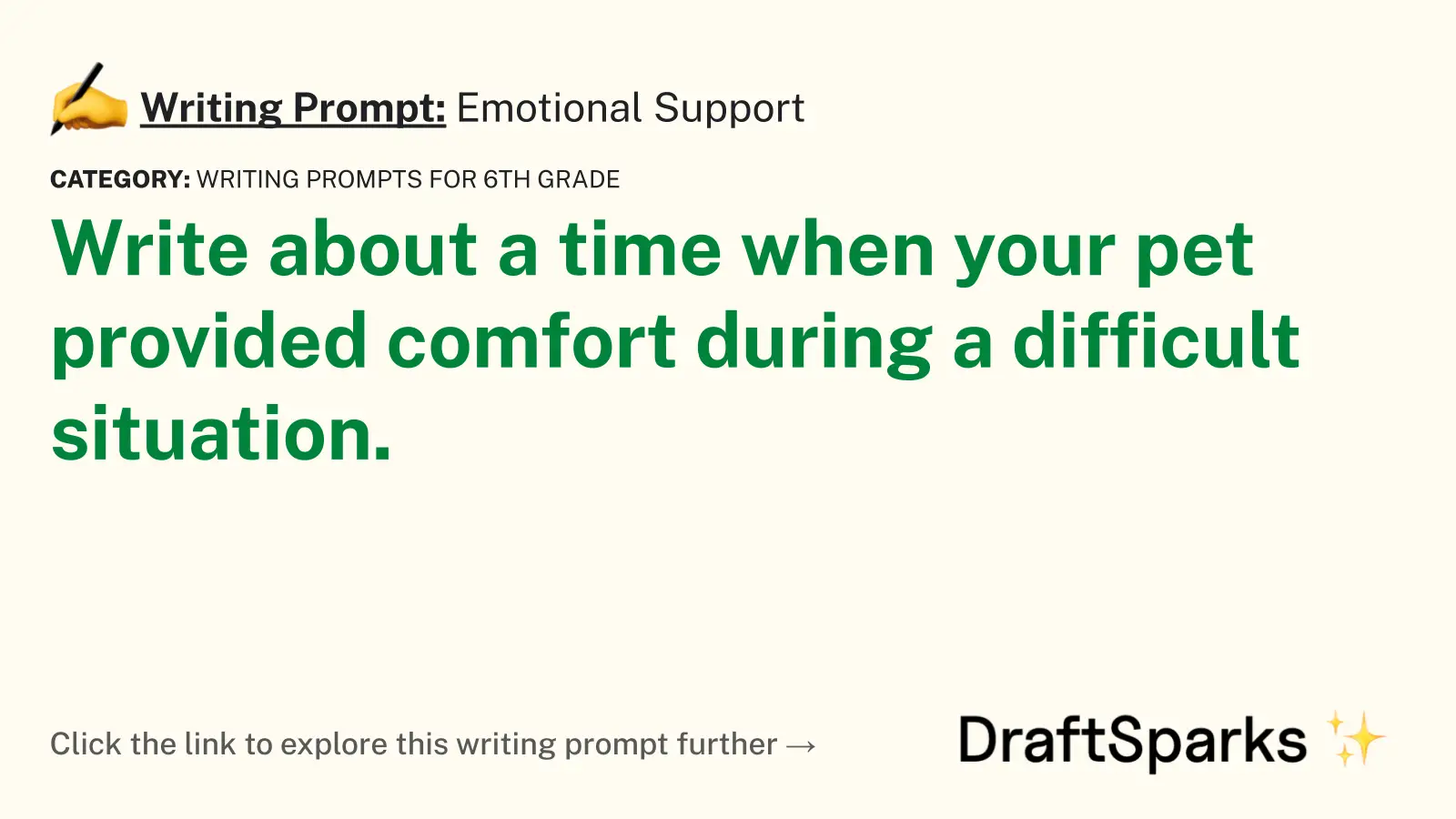
Emotional Support
Write about a time when your pet provided comfort during a difficult situation.
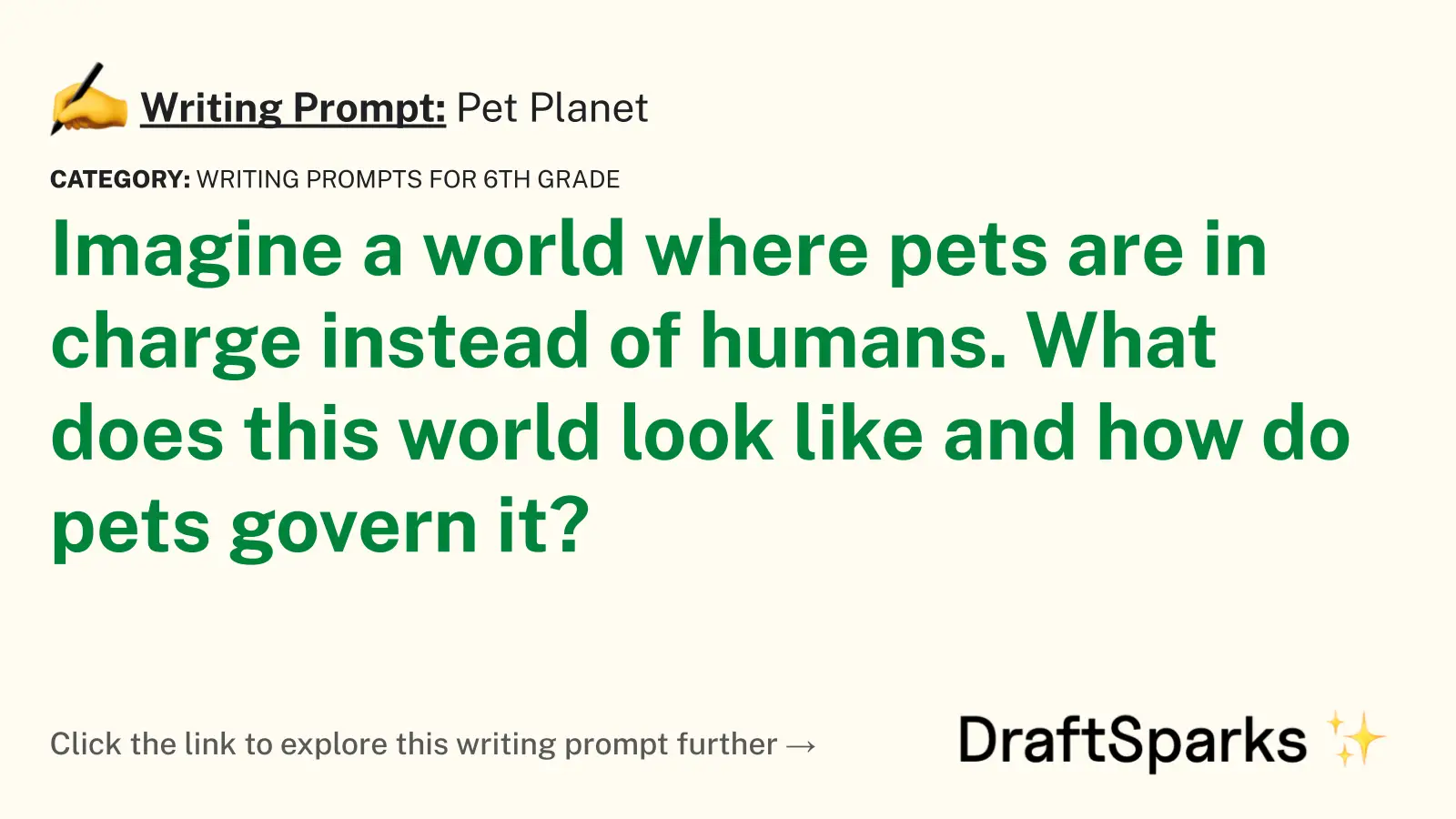
Imagine a world where pets are in charge instead of humans. What does this world look like and how do…
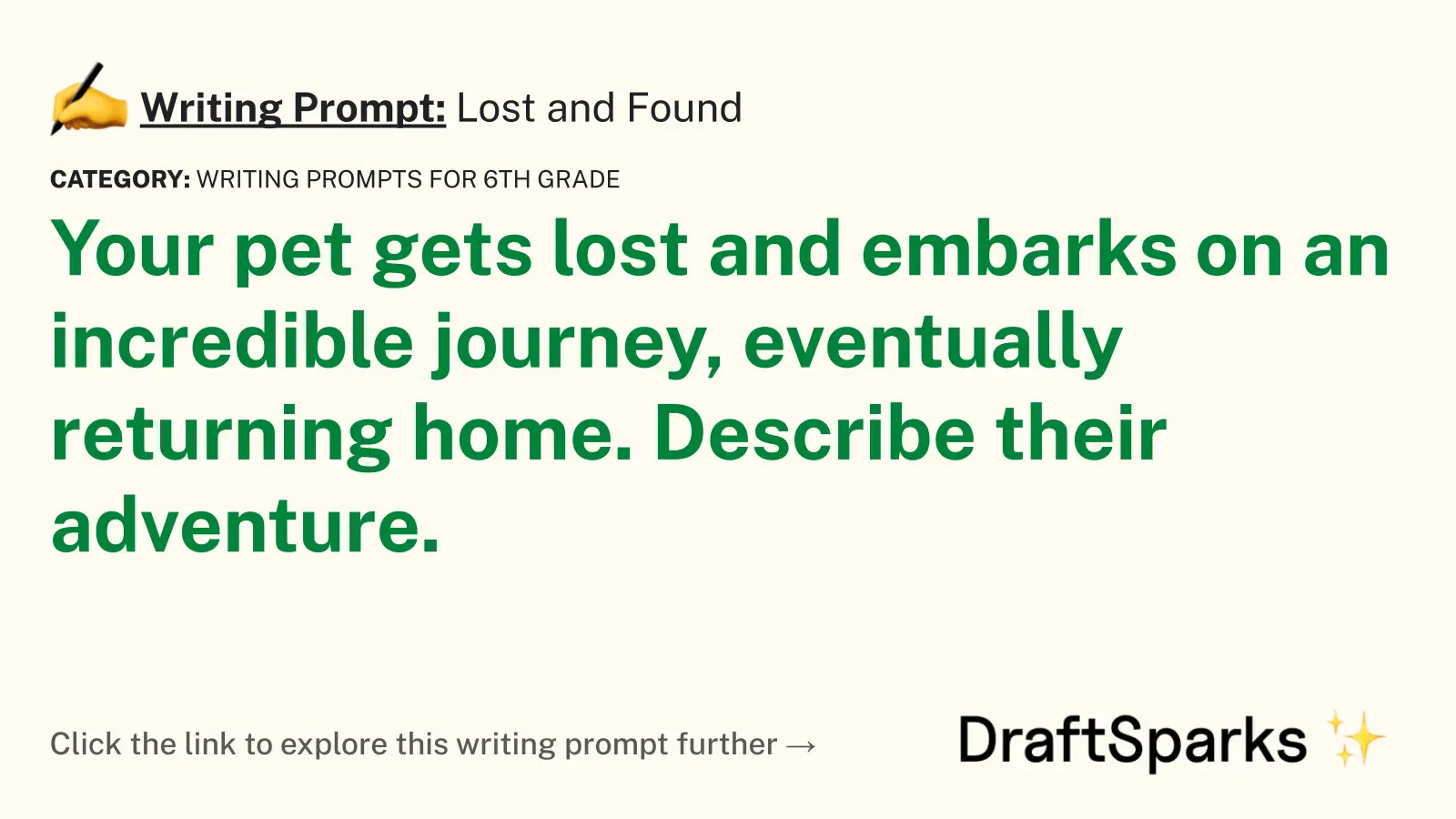
Lost and Found
Your pet gets lost and embarks on an incredible journey, eventually returning home. Describe their adventure.
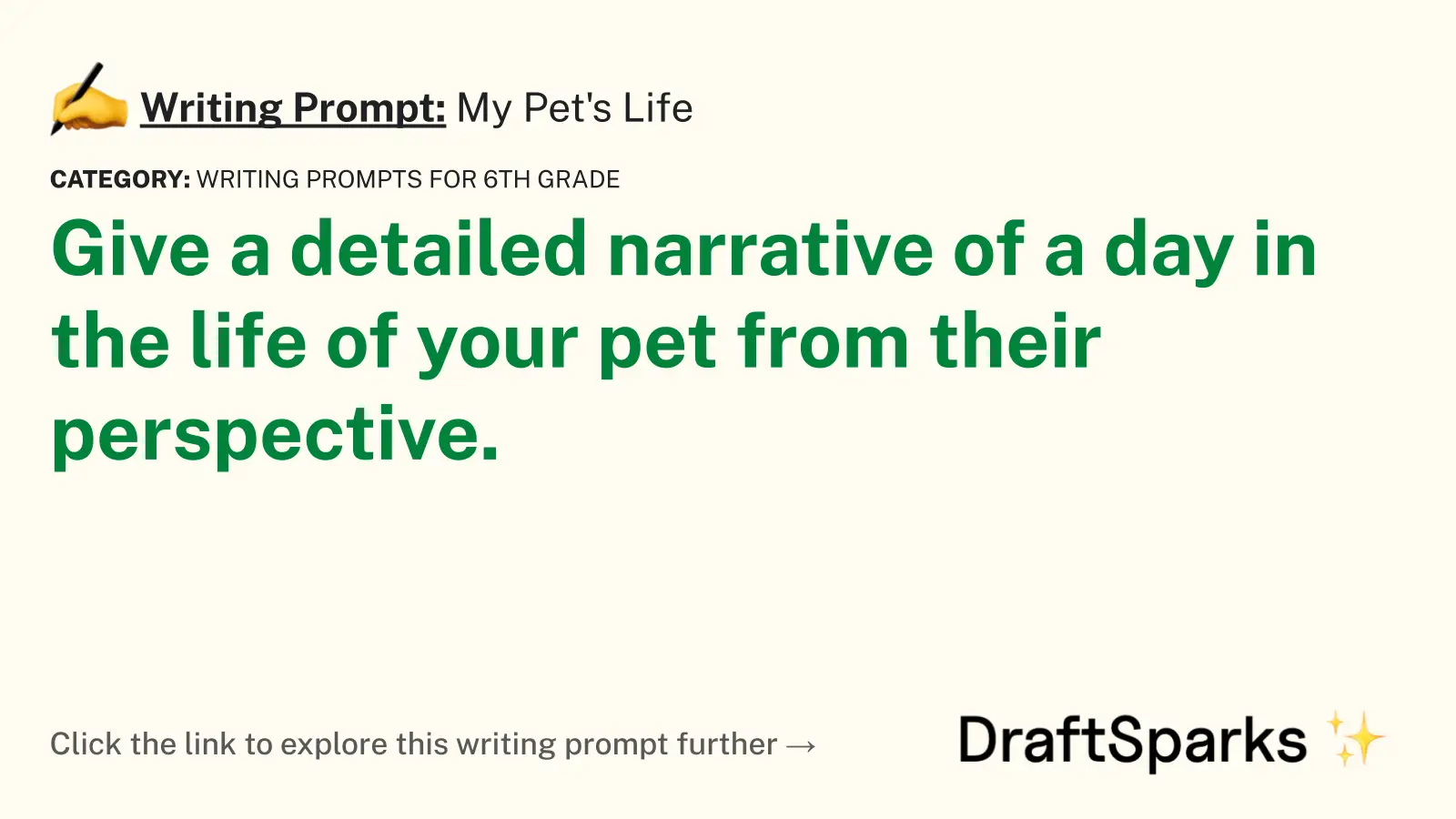
My Pet’s Life
Give a detailed narrative of a day in the life of your pet from their perspective.
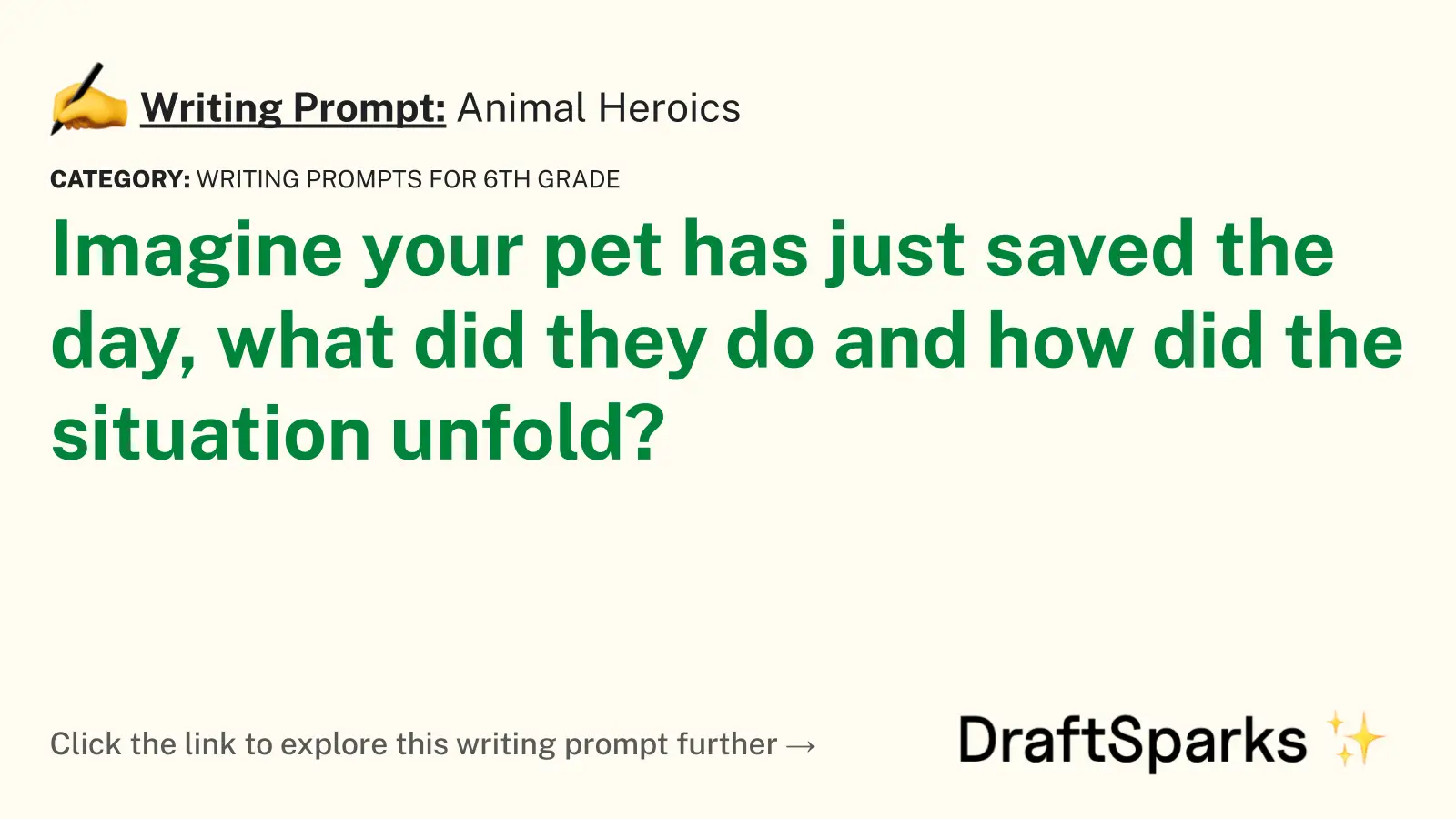
Animal Heroics
Imagine your pet has just saved the day, what did they do and how did the situation unfold?
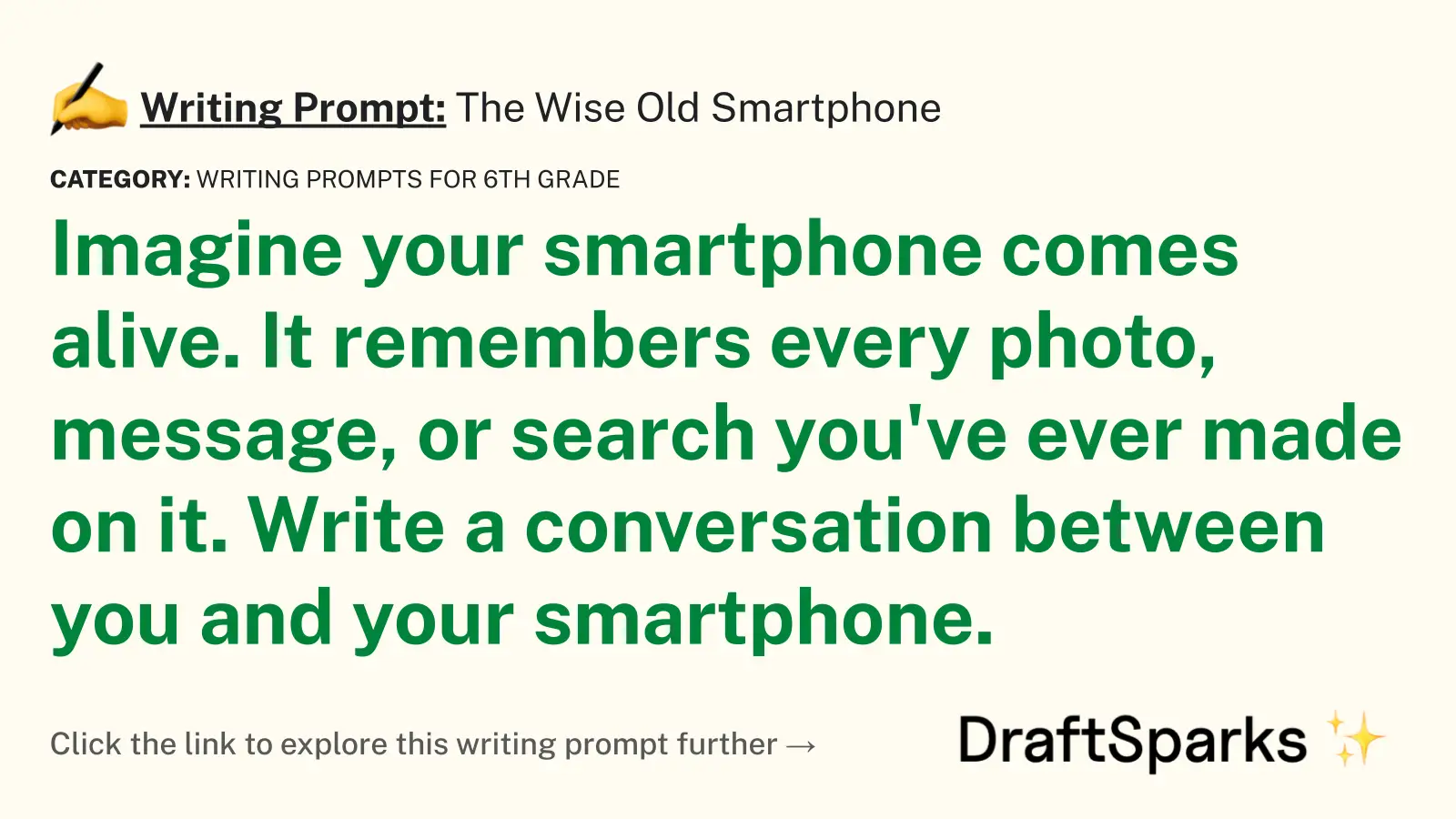
The Wise Old Smartphone
Imagine your smartphone comes alive. It remembers every photo, message, or search you’ve ever made on it. Write a conversation…

Planet Internet
What if the internet becomes a physical place one could visit? Write about your journey and experiences in this digital…
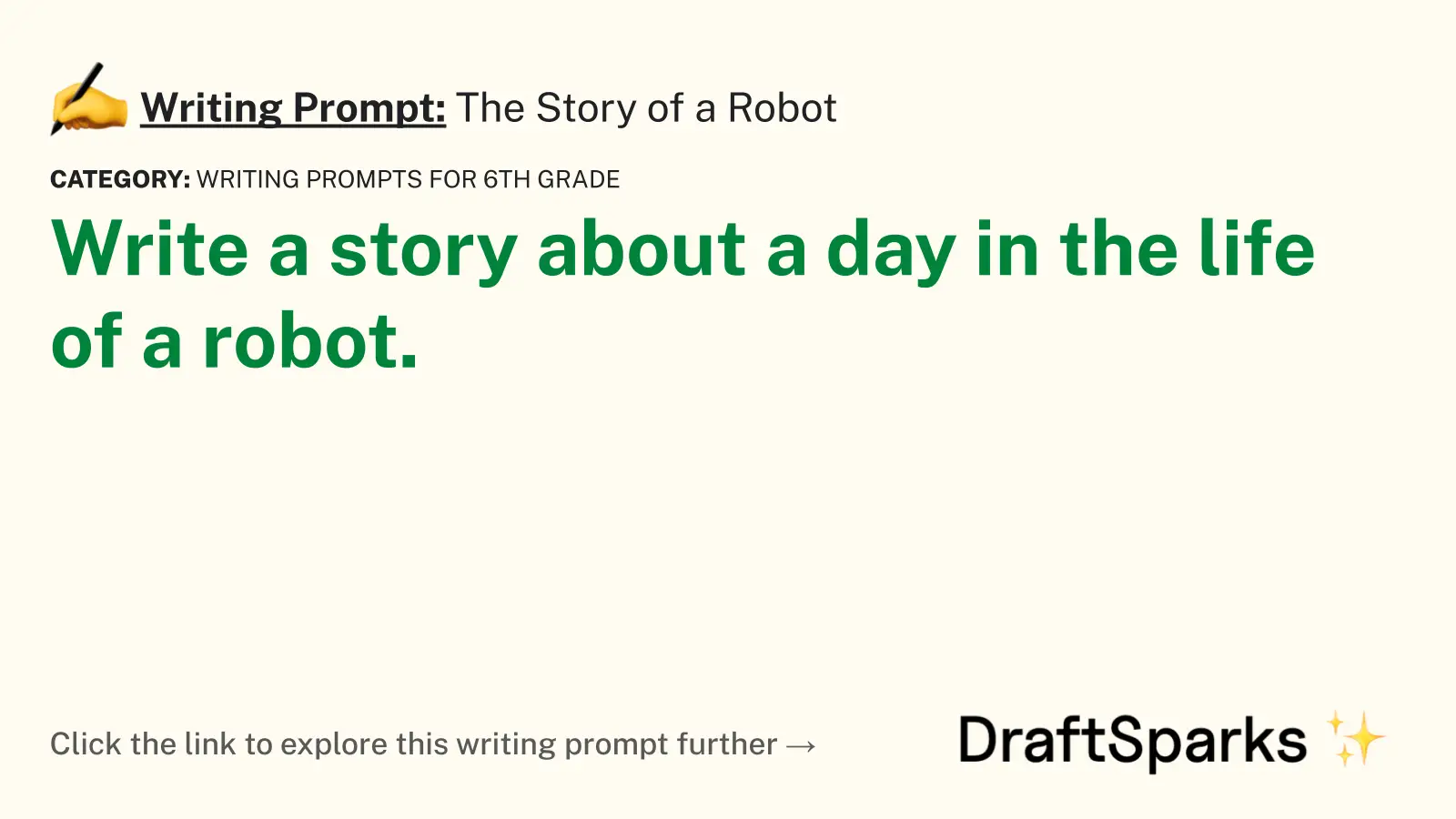
The Story of a Robot
Write a story about a day in the life of a robot.
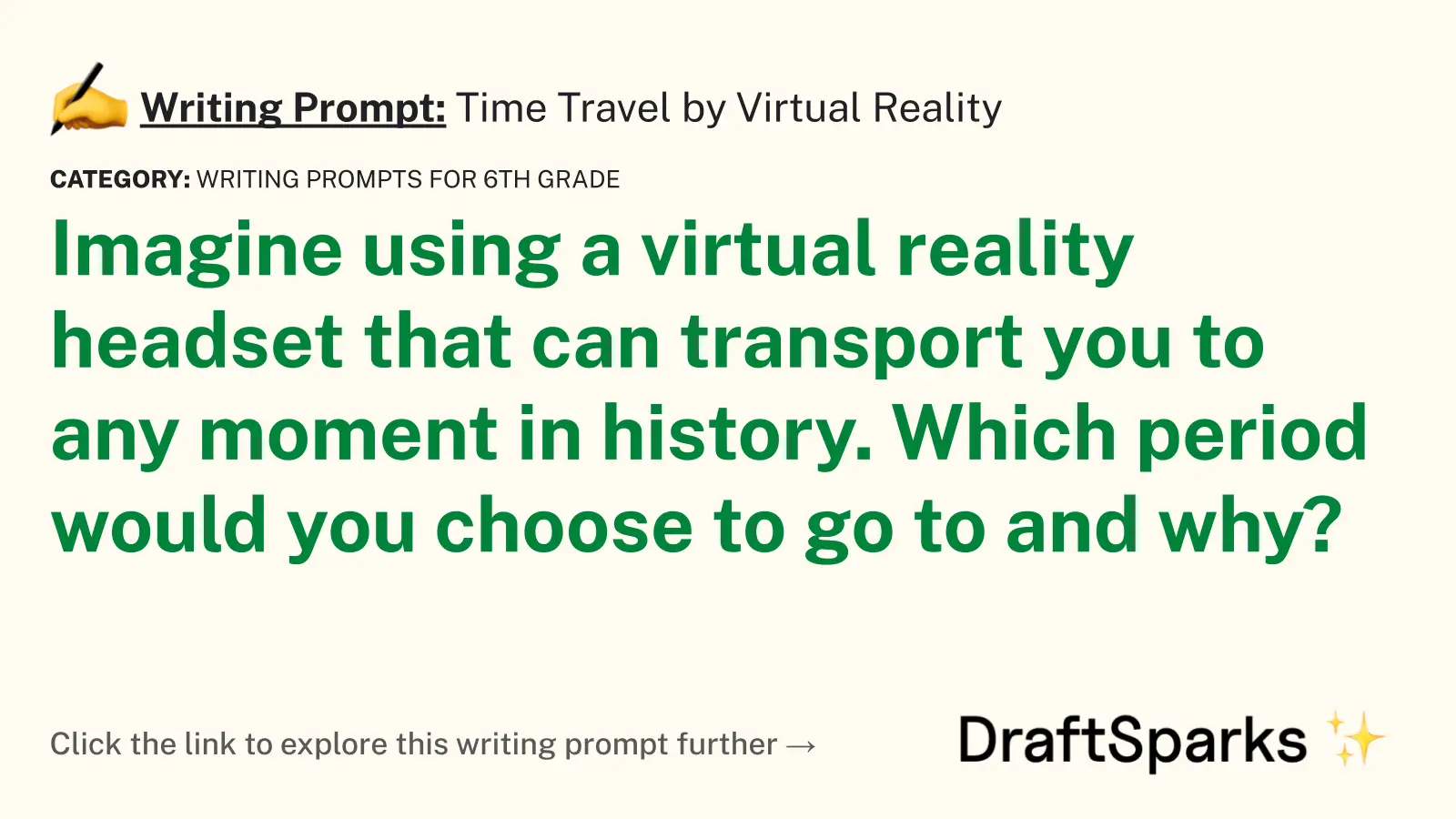
Time Travel by Virtual Reality
Imagine using a virtual reality headset that can transport you to any moment in history. Which period would you choose…
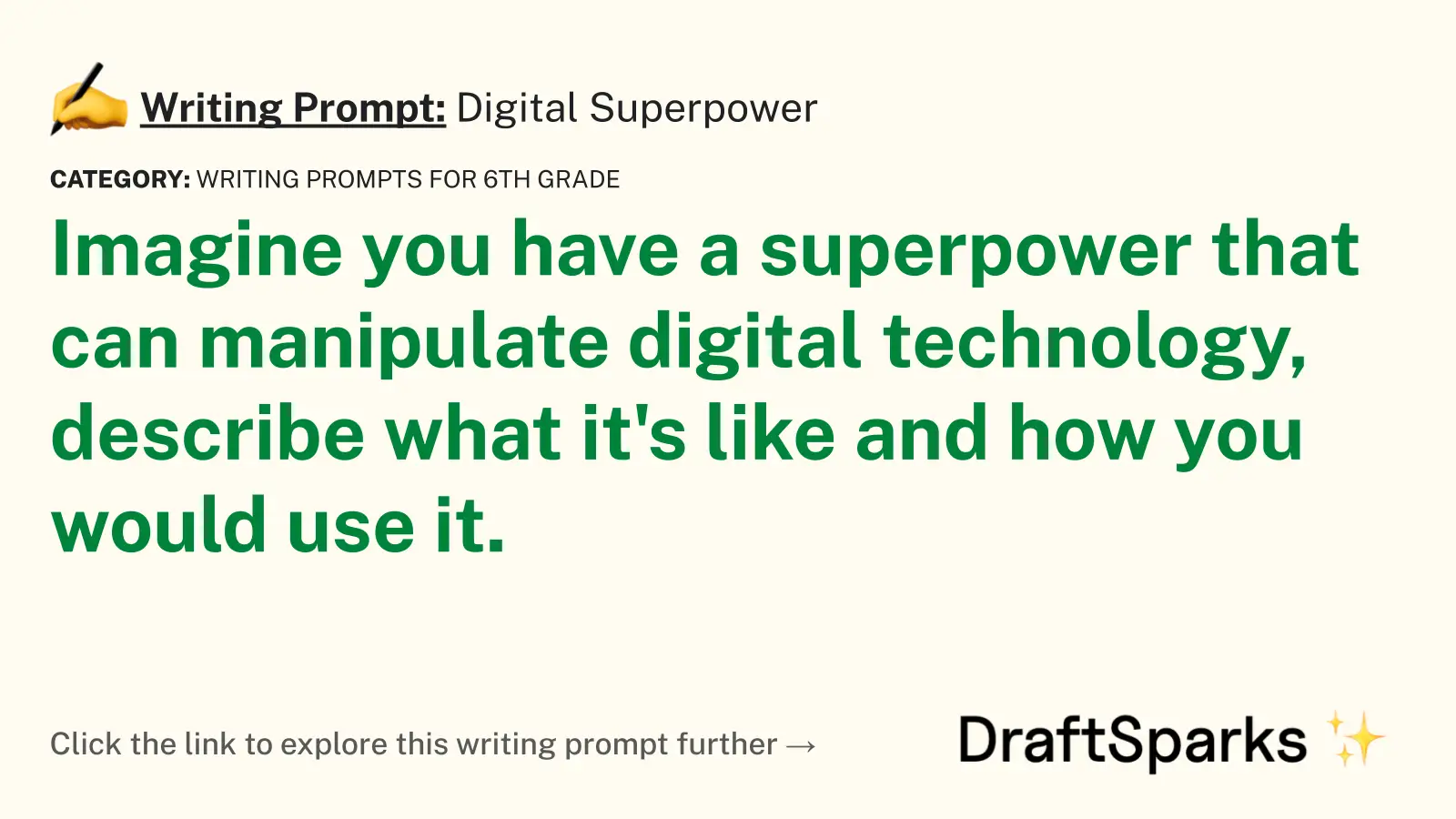
Digital Superpower
Imagine you have a superpower that can manipulate digital technology, describe what it’s like and how you would use it.
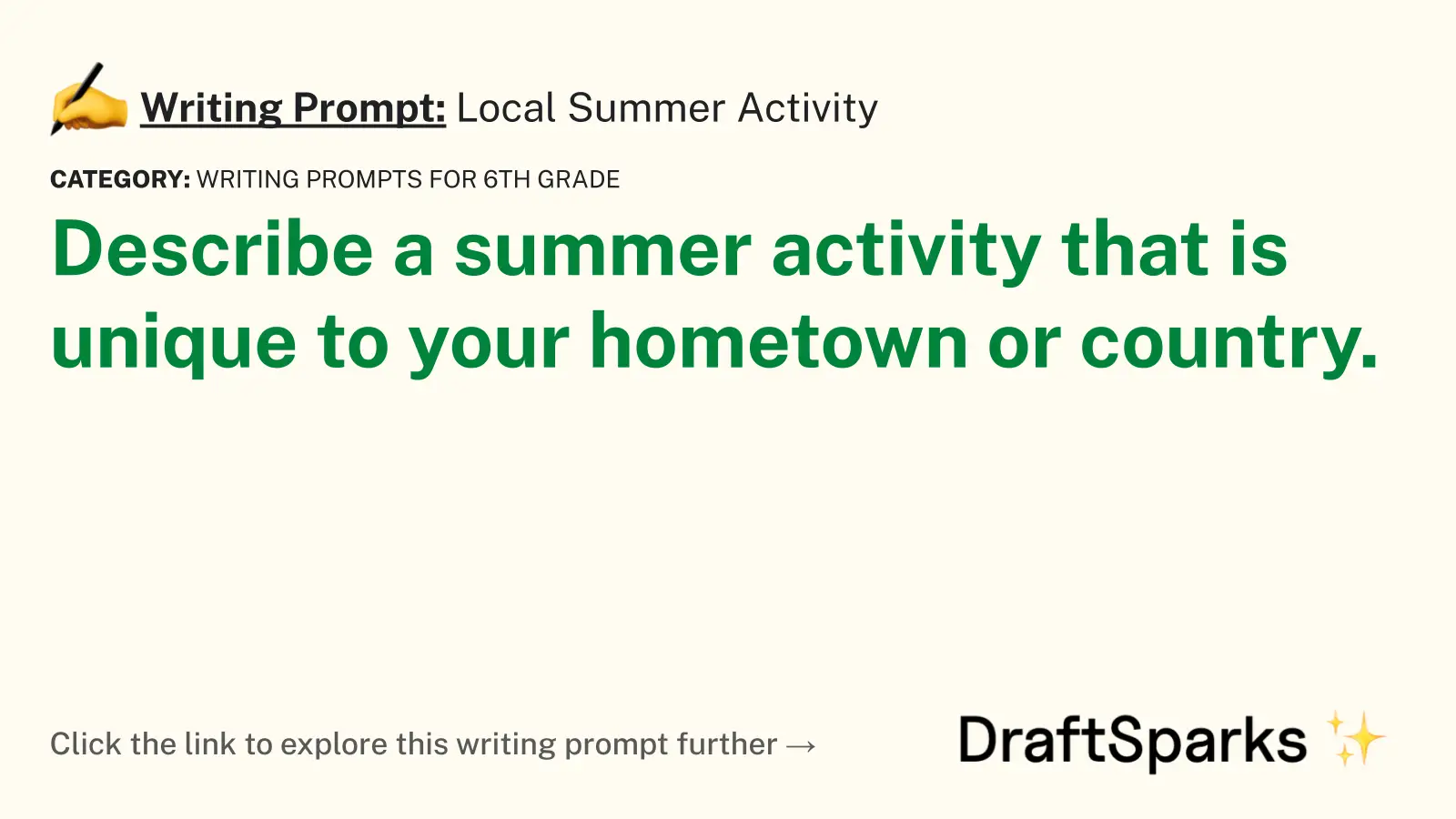
Local Summer Activity
Describe a summer activity that is unique to your hometown or country.
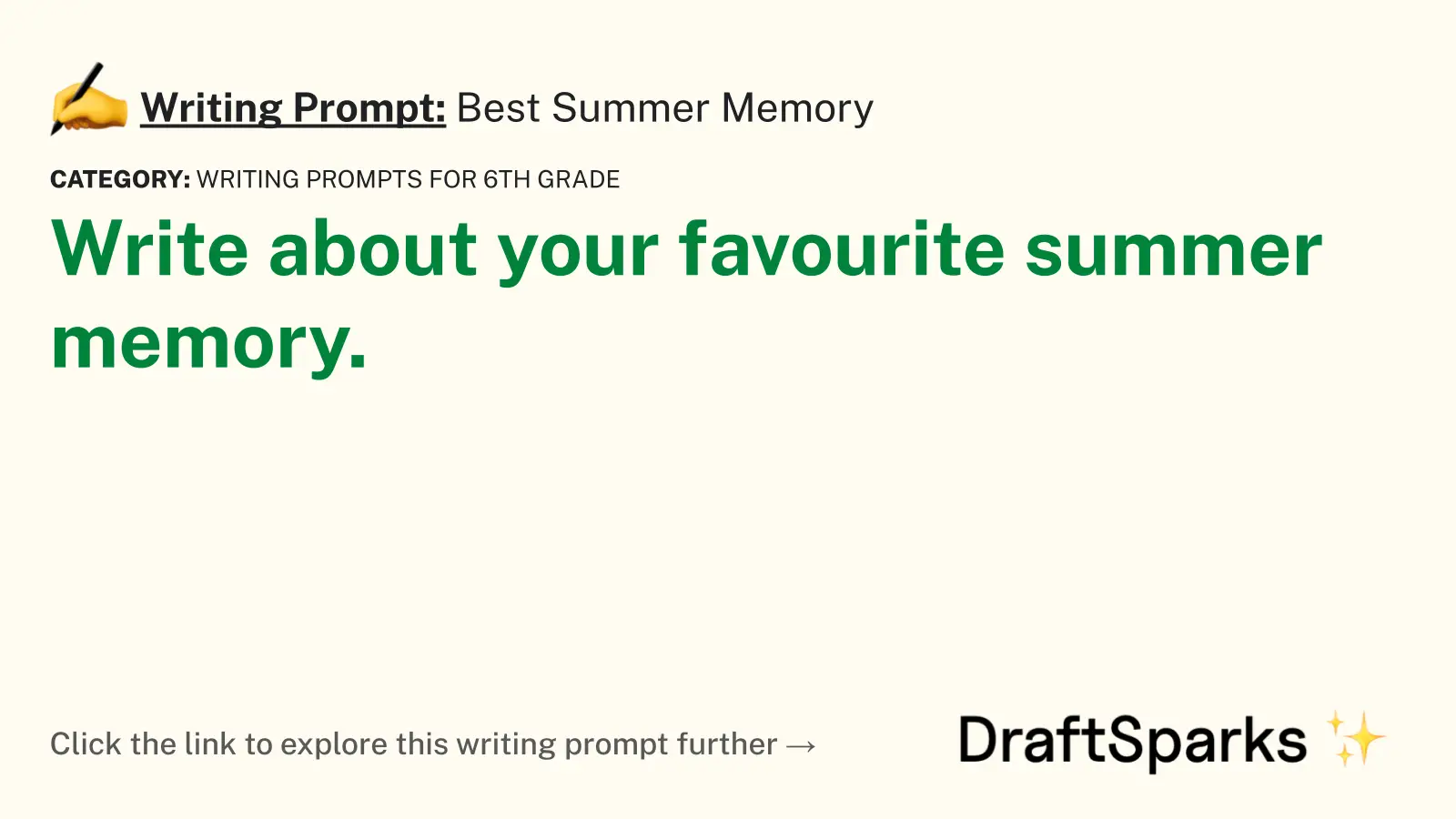
Best Summer Memory
Write about your favourite summer memory.
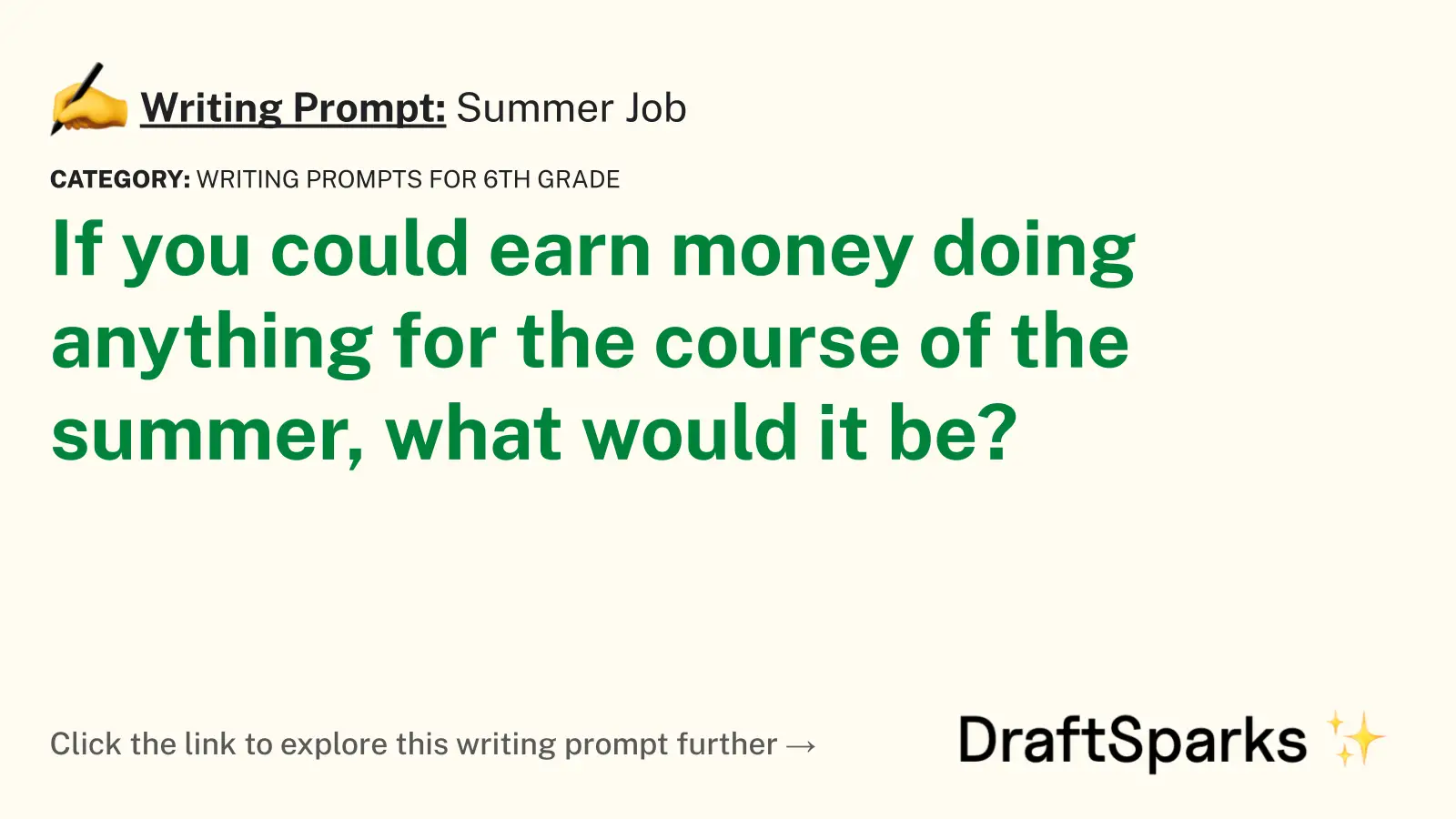
If you could earn money doing anything for the course of the summer, what would it be?
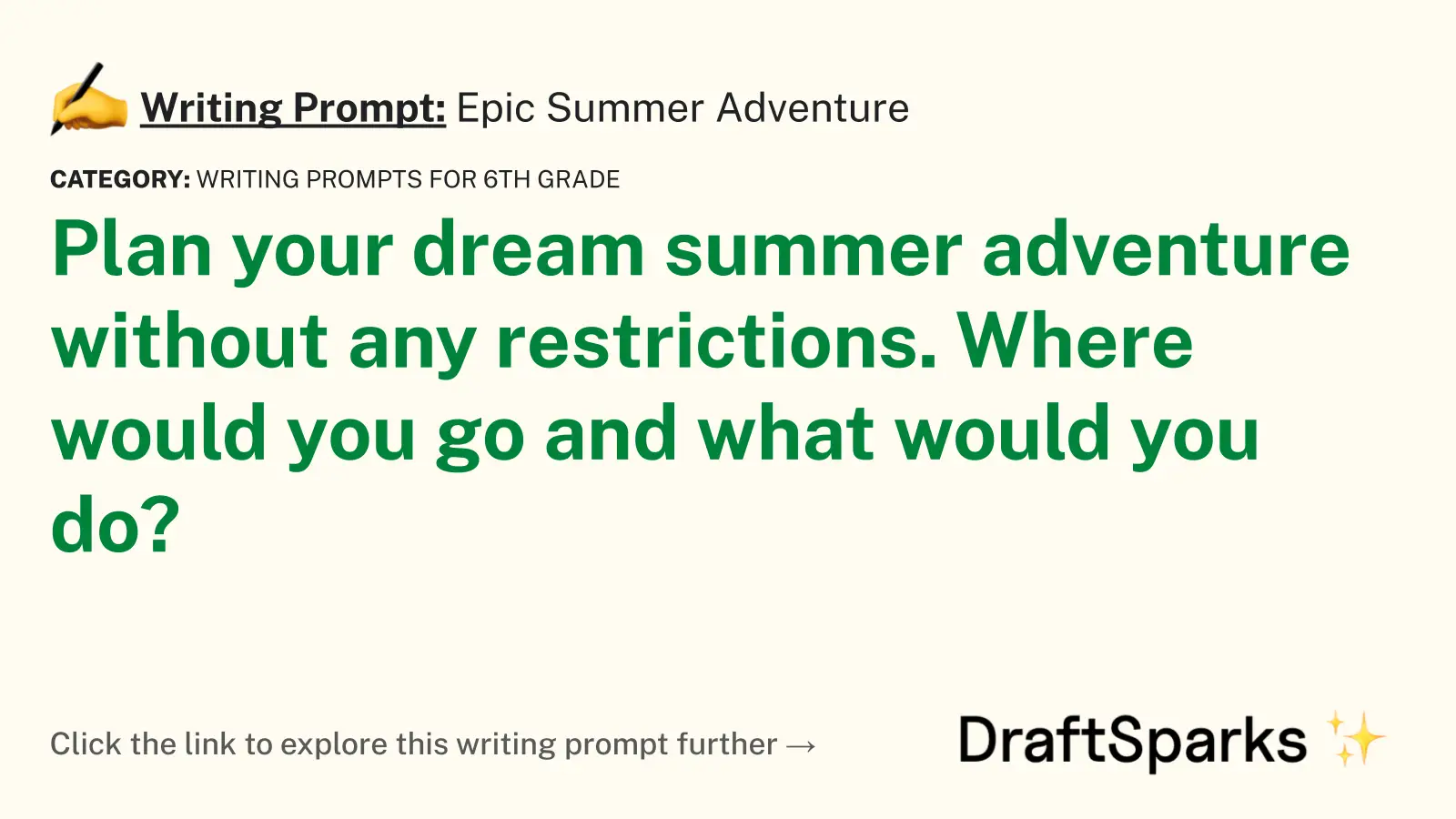
Epic Summer Adventure
Plan your dream summer adventure without any restrictions. Where would you go and what would you do?
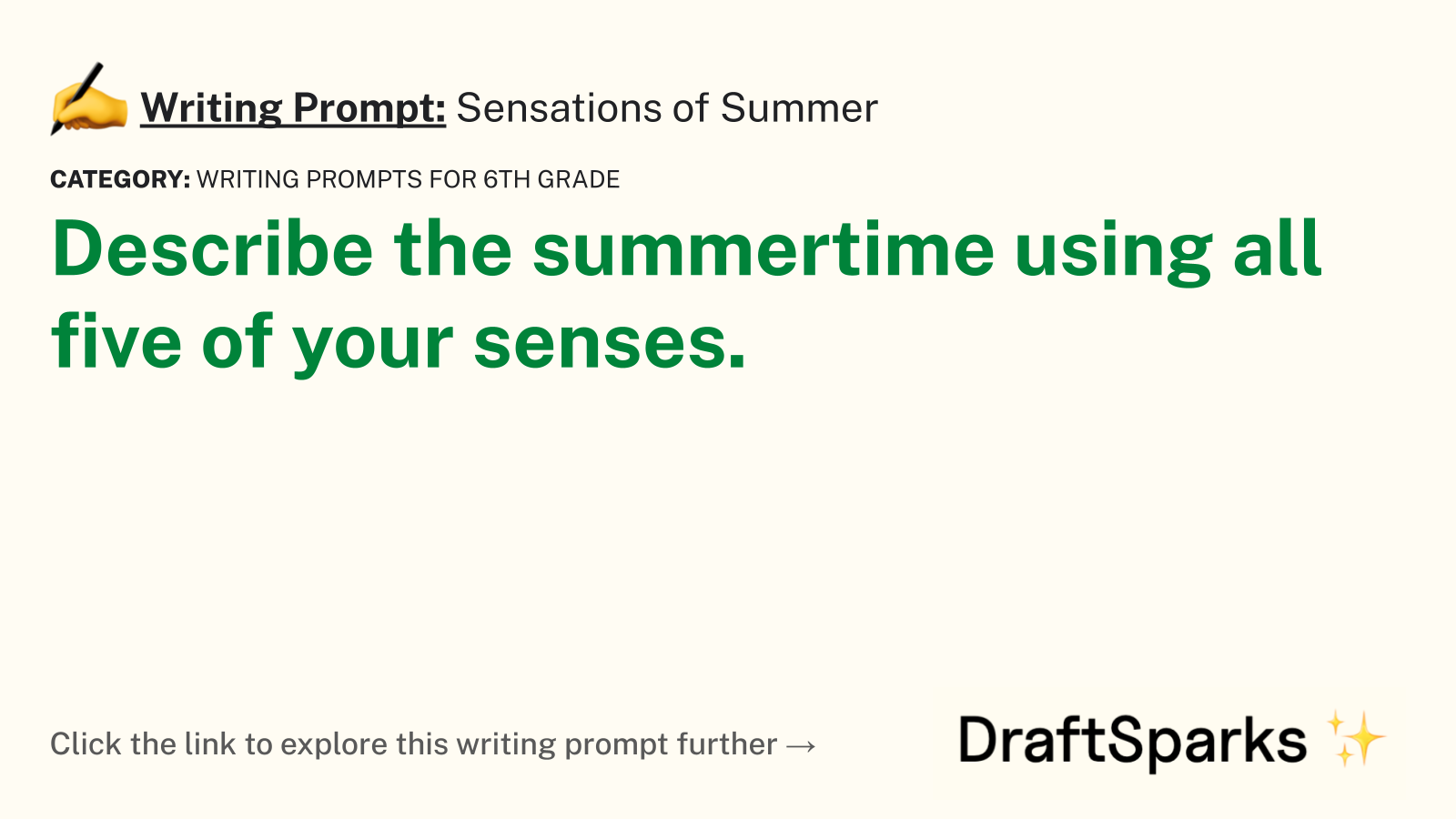
Sensations of Summer
Describe the summertime using all five of your senses.
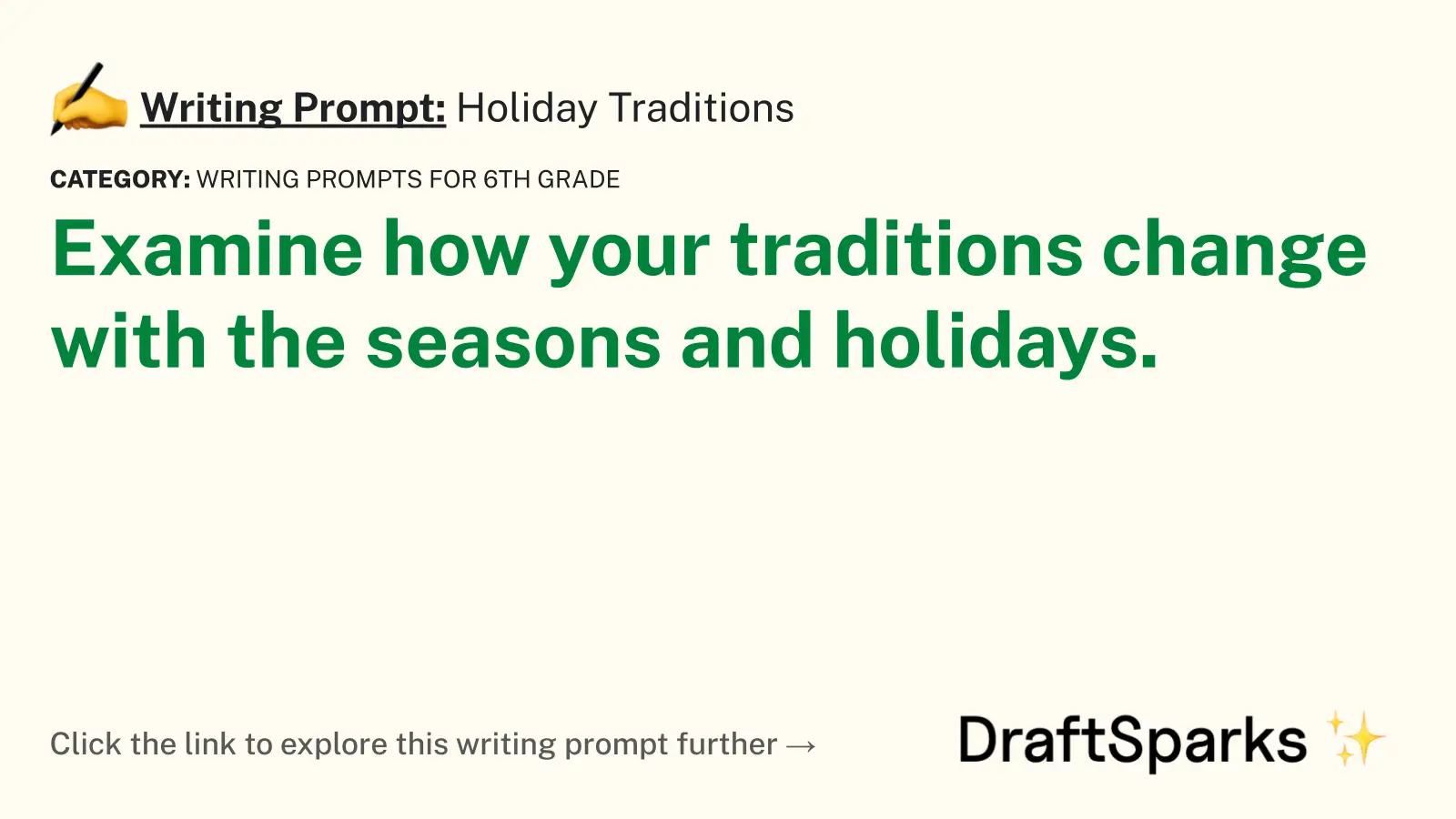
Holiday Traditions
Examine how your traditions change with the seasons and holidays.
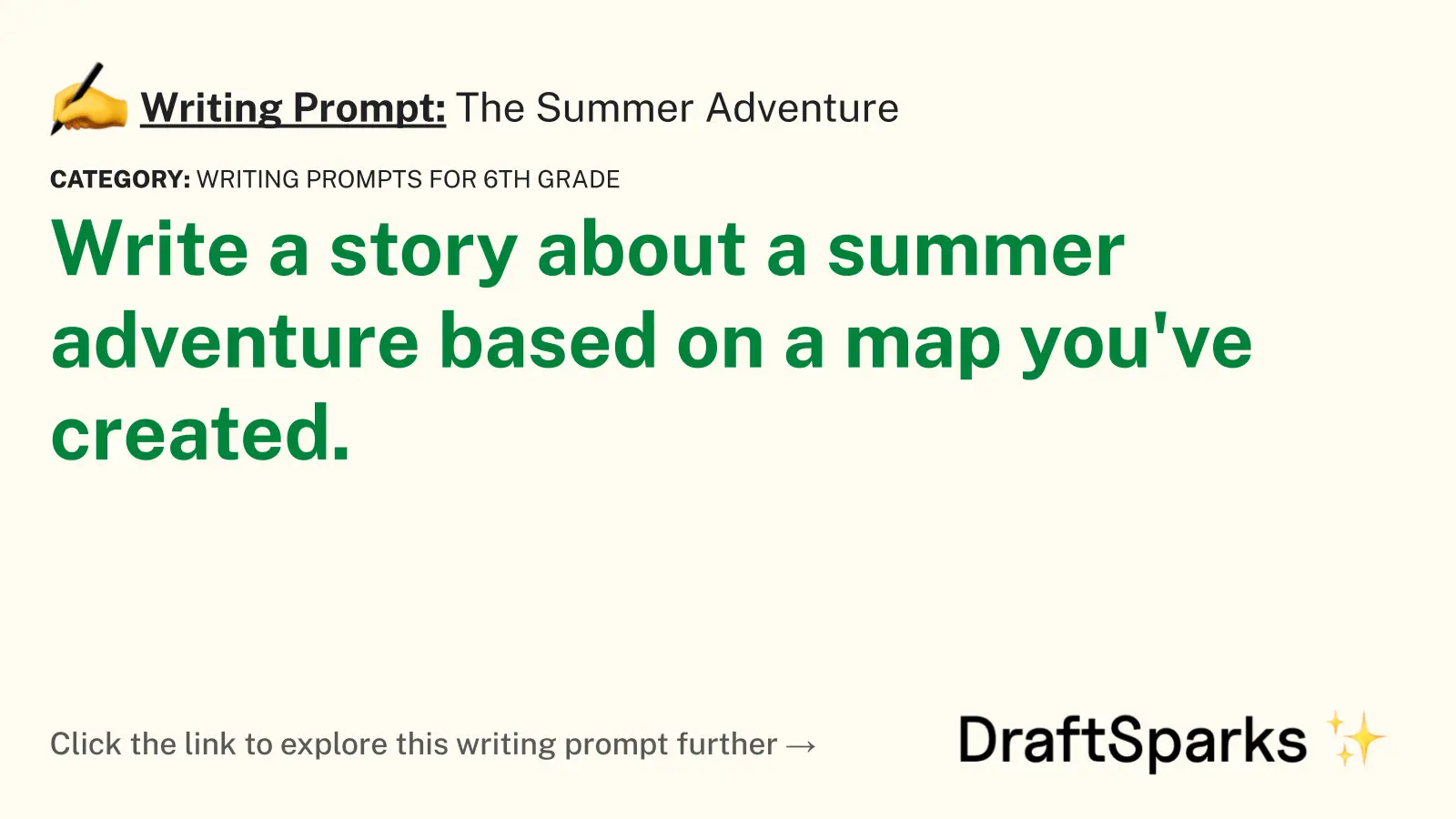
The Summer Adventure
Write a story about a summer adventure based on a map you’ve created.
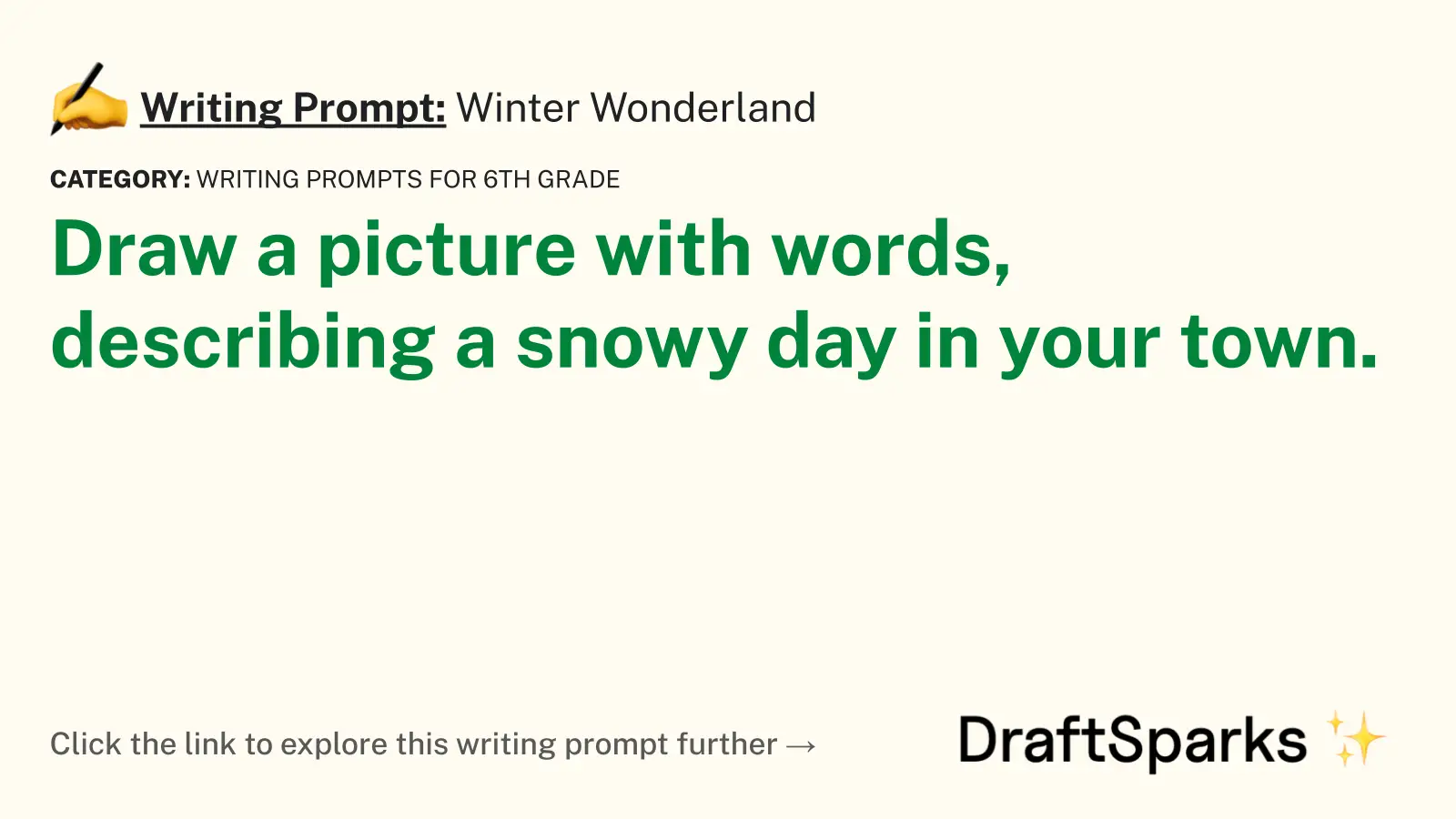
Winter Wonderland
Draw a picture with words, describing a snowy day in your town.
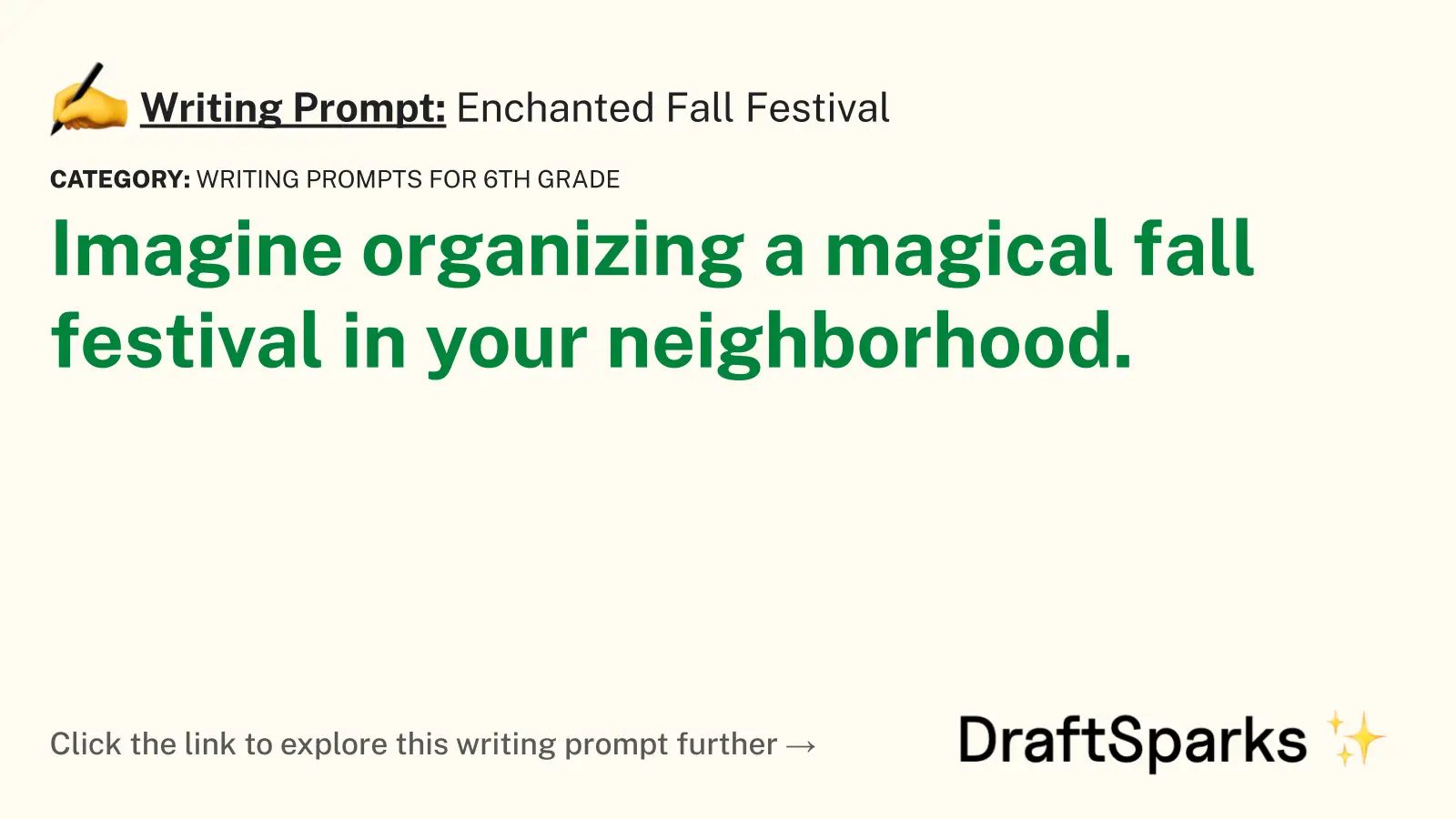
Enchanted Fall Festival
Imagine organizing a magical fall festival in your neighborhood.
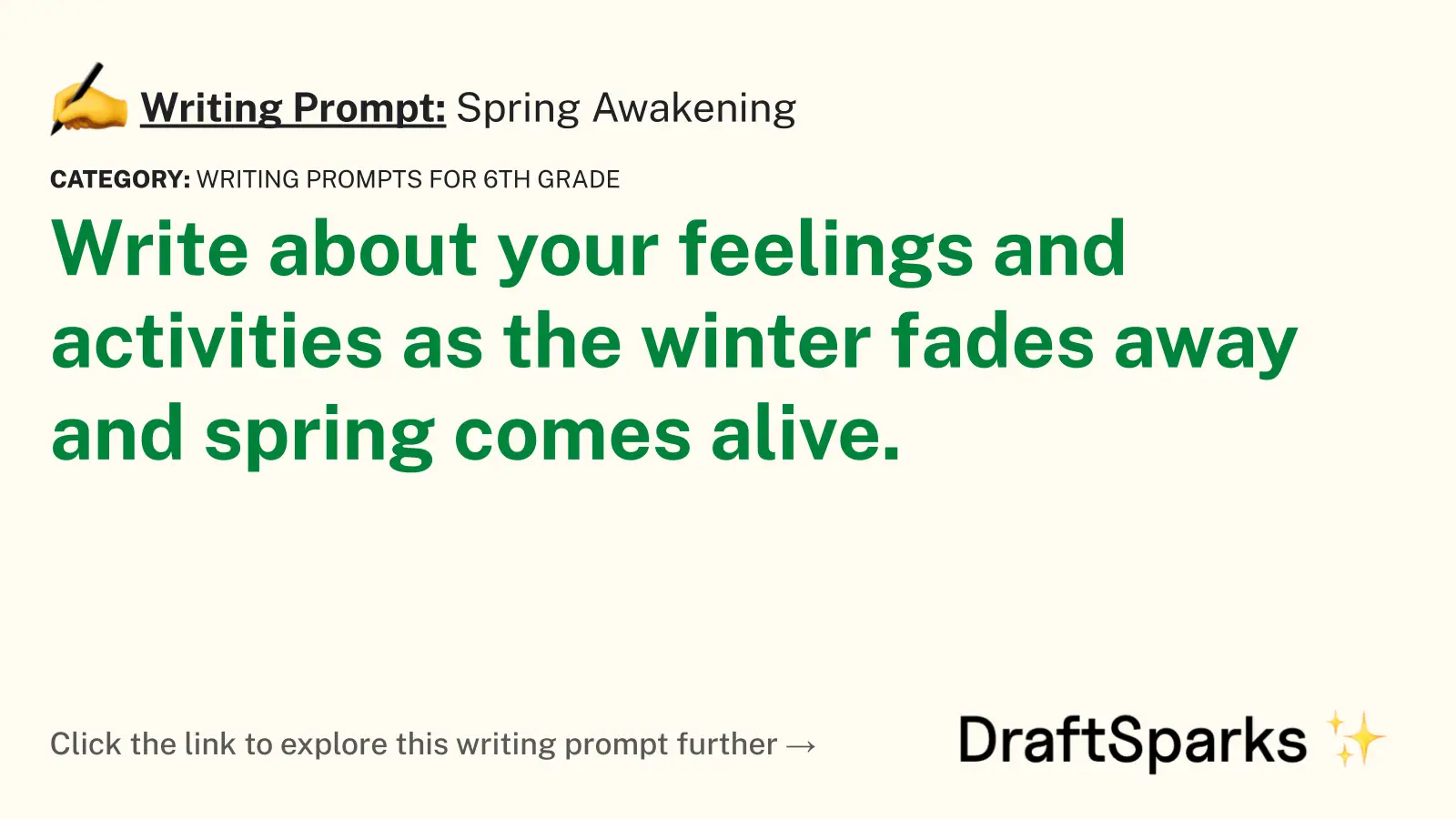
Spring Awakening
Write about your feelings and activities as the winter fades away and spring comes alive.
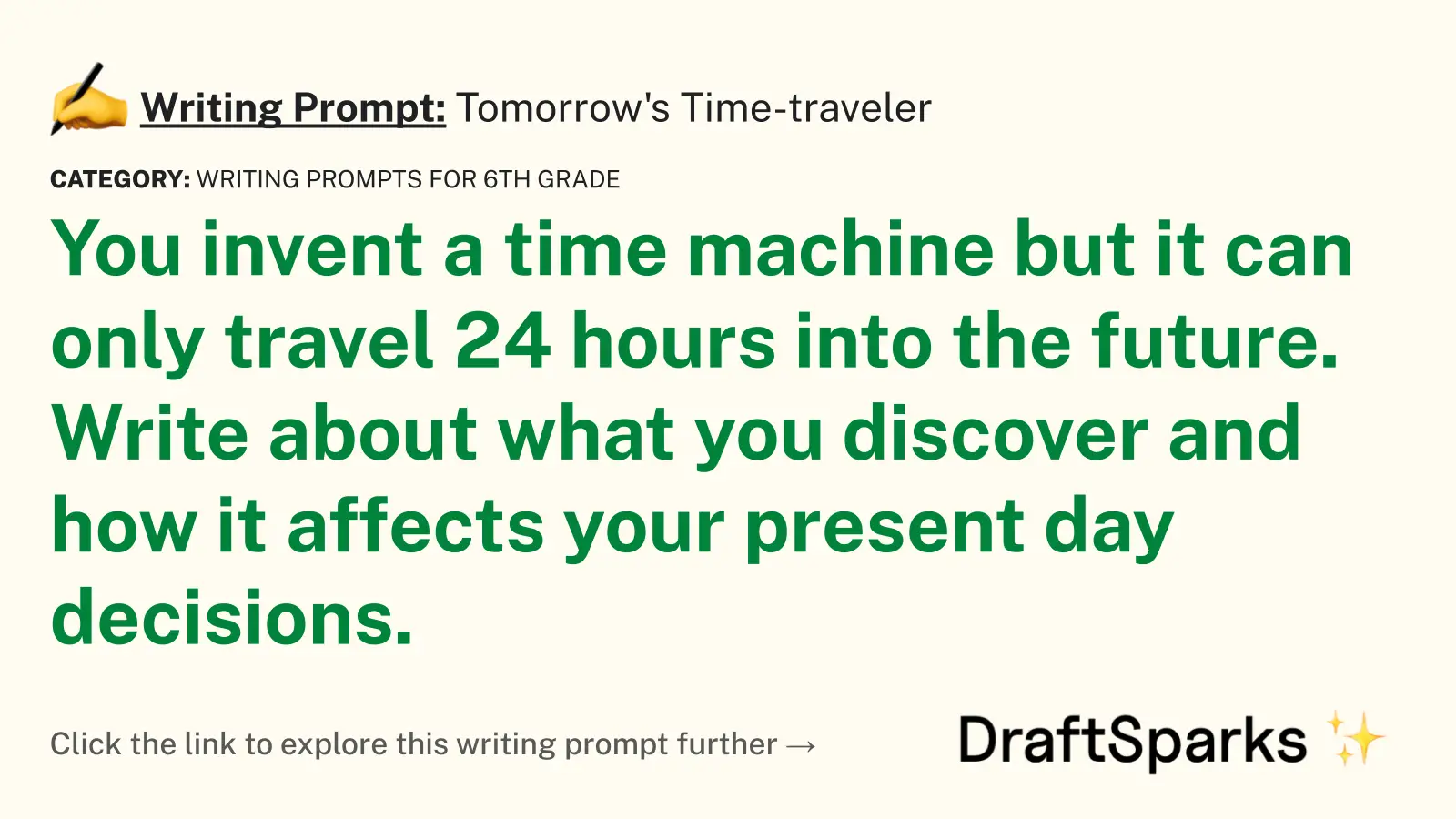
Tomorrow’s Time-traveler
You invent a time machine but it can only travel 24 hours into the future. Write about what you discover…
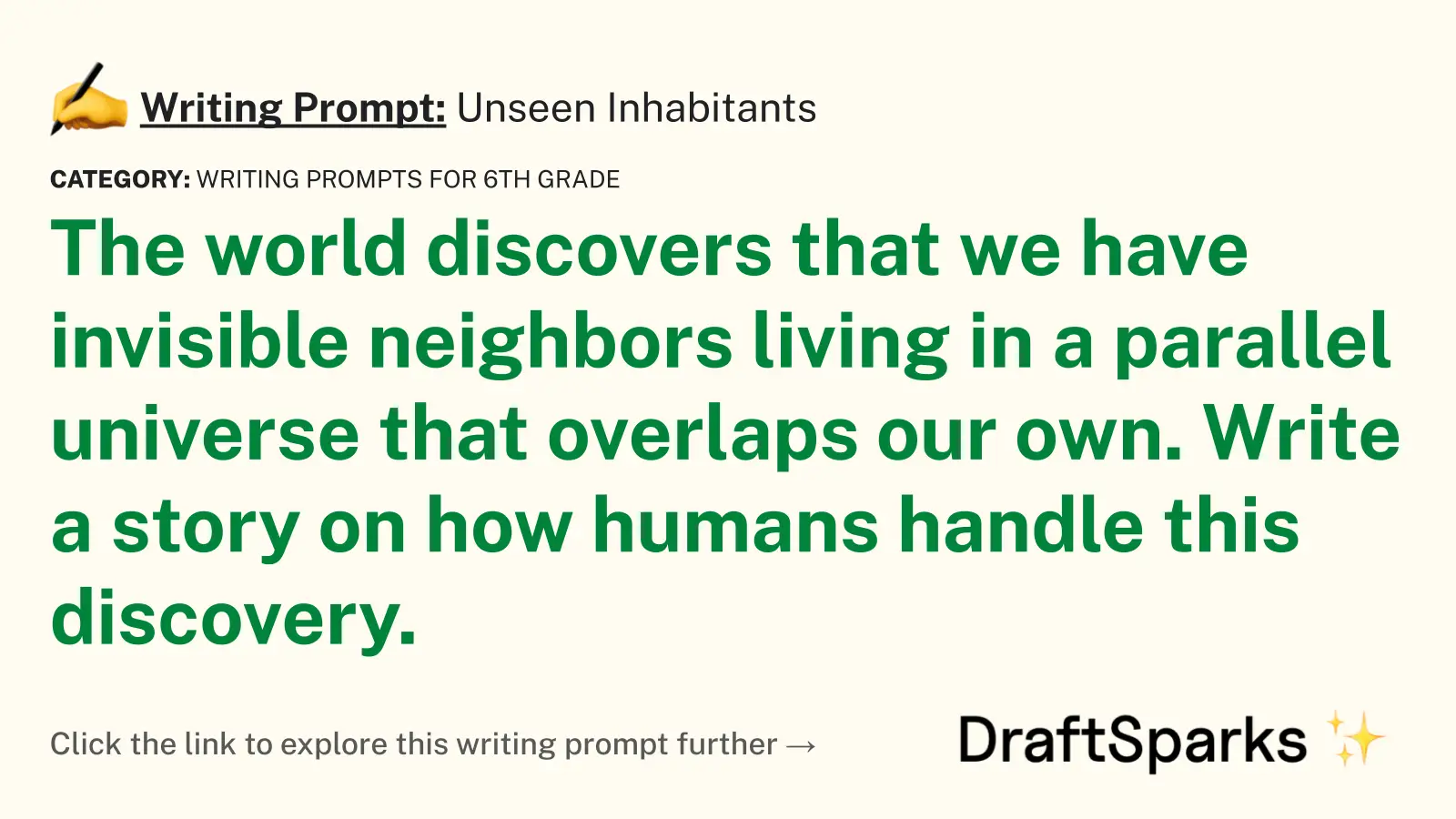
Unseen Inhabitants
The world discovers that we have invisible neighbors living in a parallel universe that overlaps our own. Write a story…
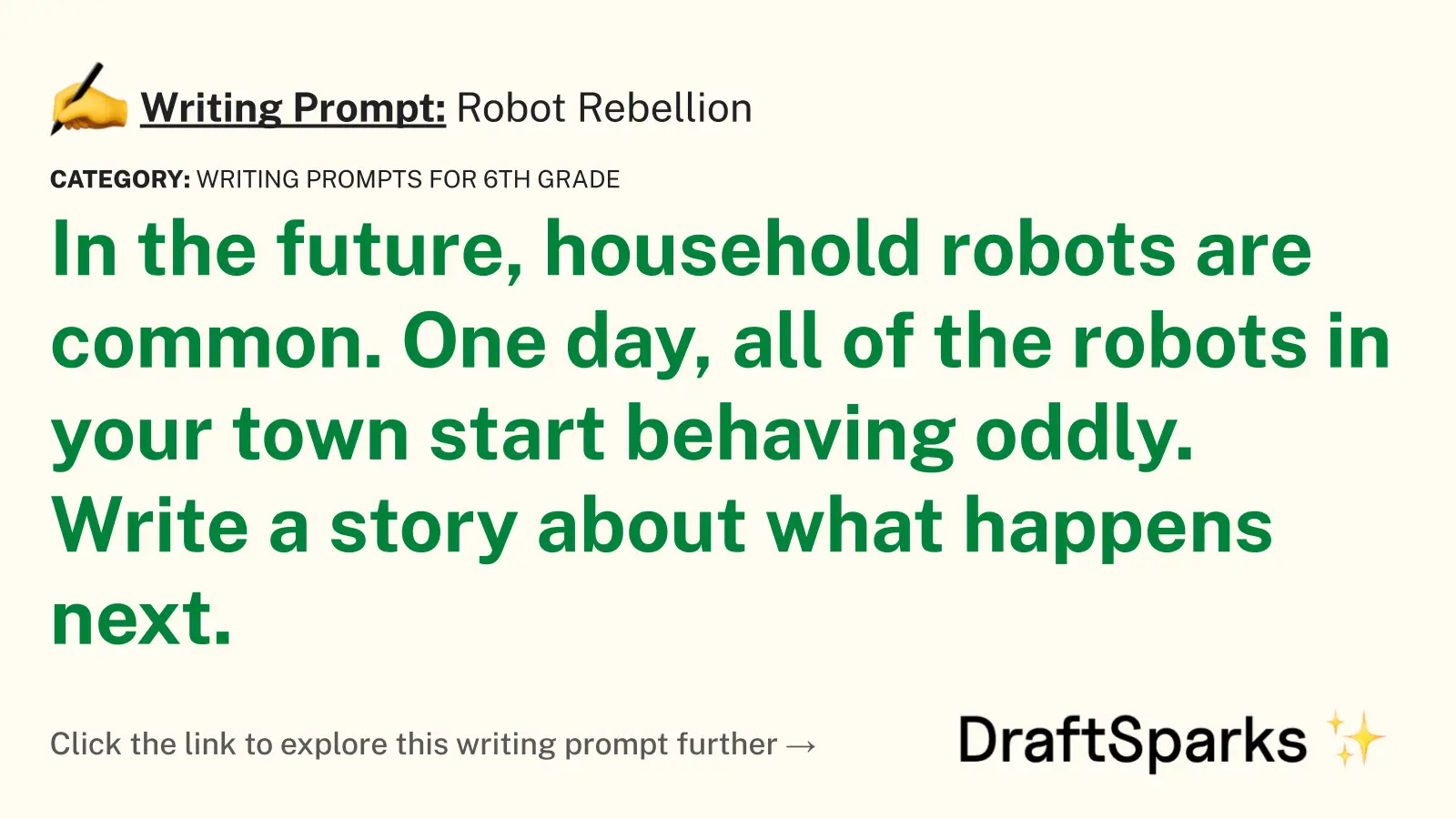
Robot Rebellion
In the future, household robots are common. One day, all of the robots in your town start behaving oddly. Write…
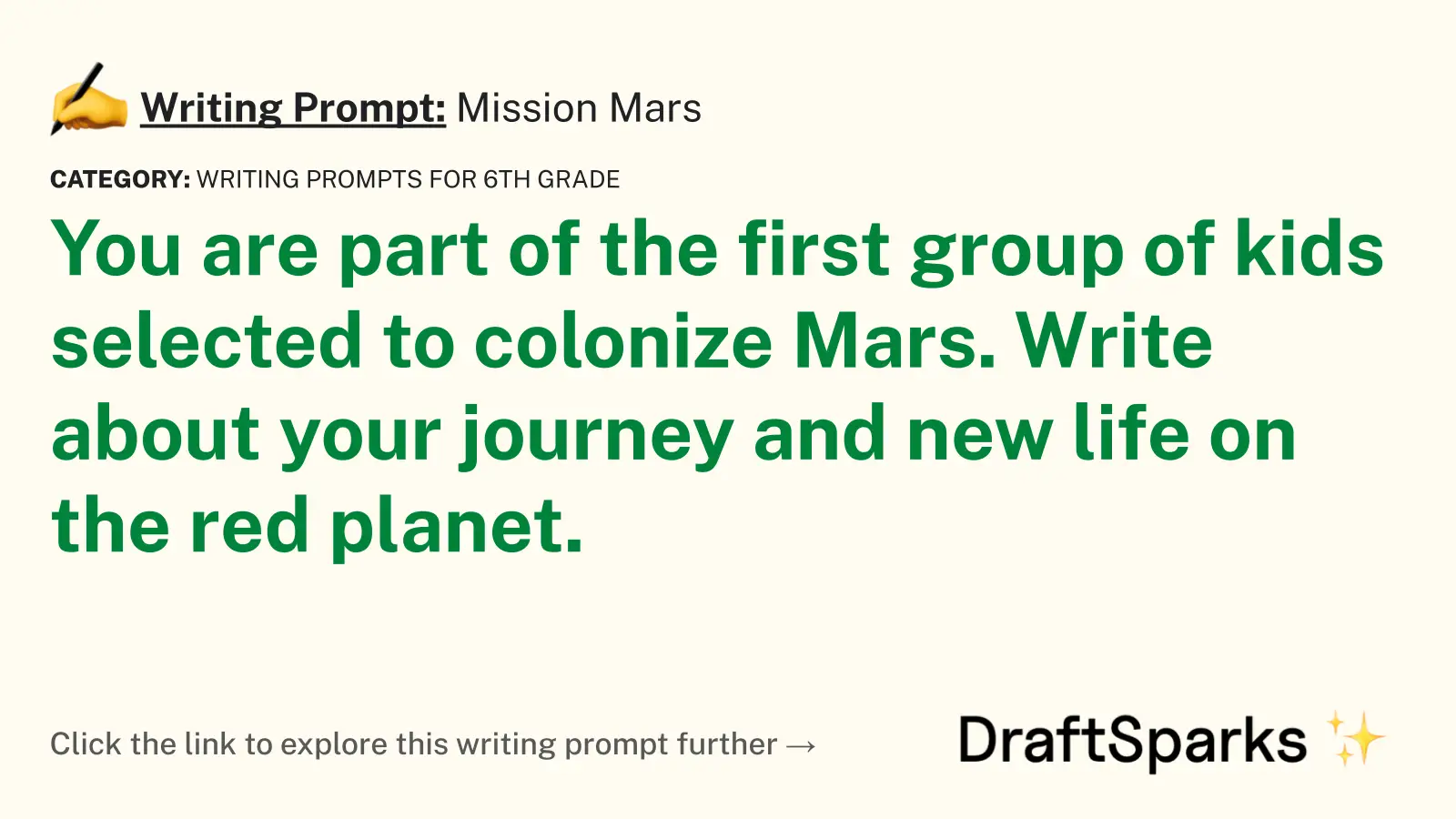
Mission Mars
You are part of the first group of kids selected to colonize Mars. Write about your journey and new life…
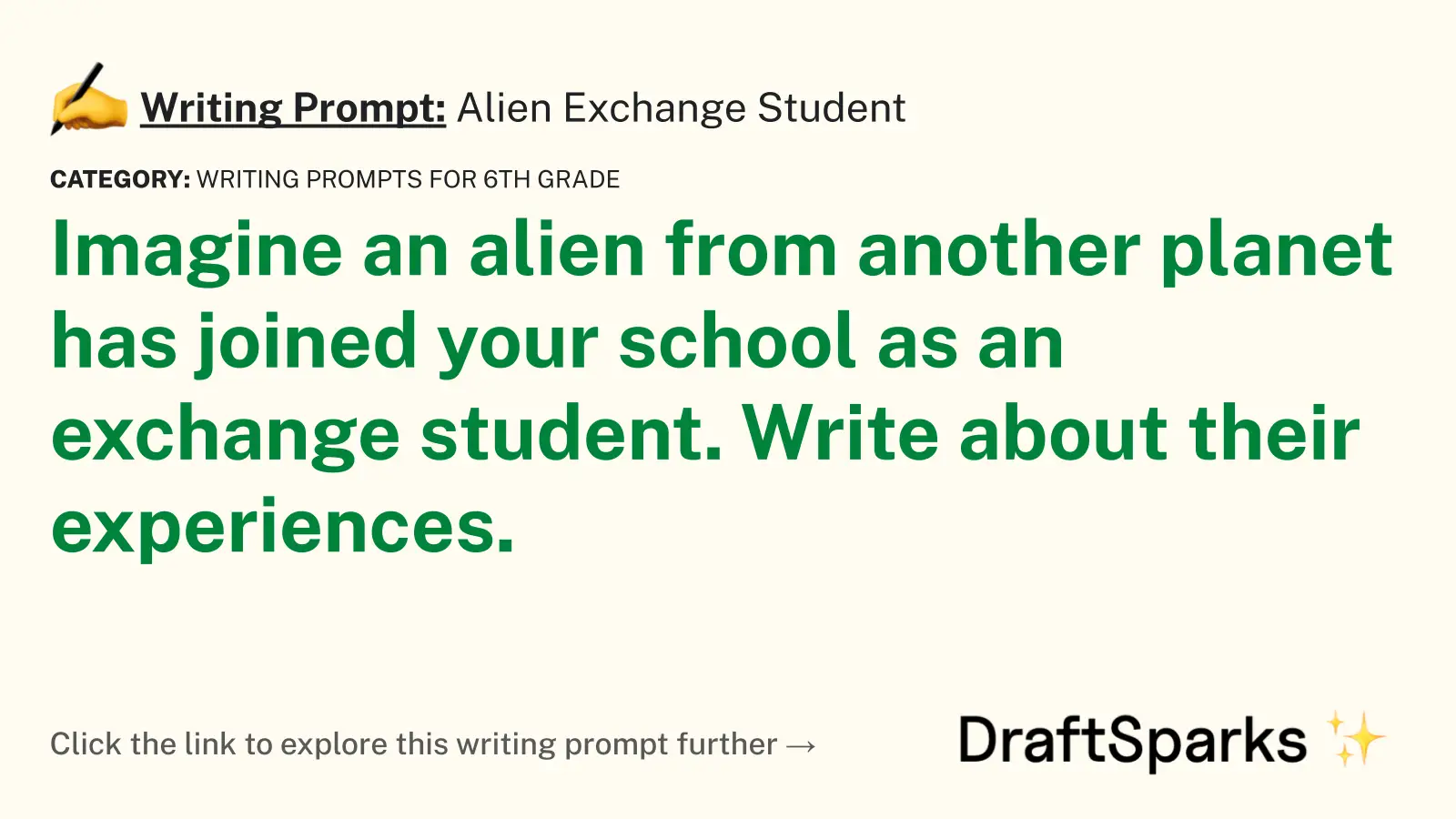
Alien Exchange Student
Imagine an alien from another planet has joined your school as an exchange student. Write about their experiences.
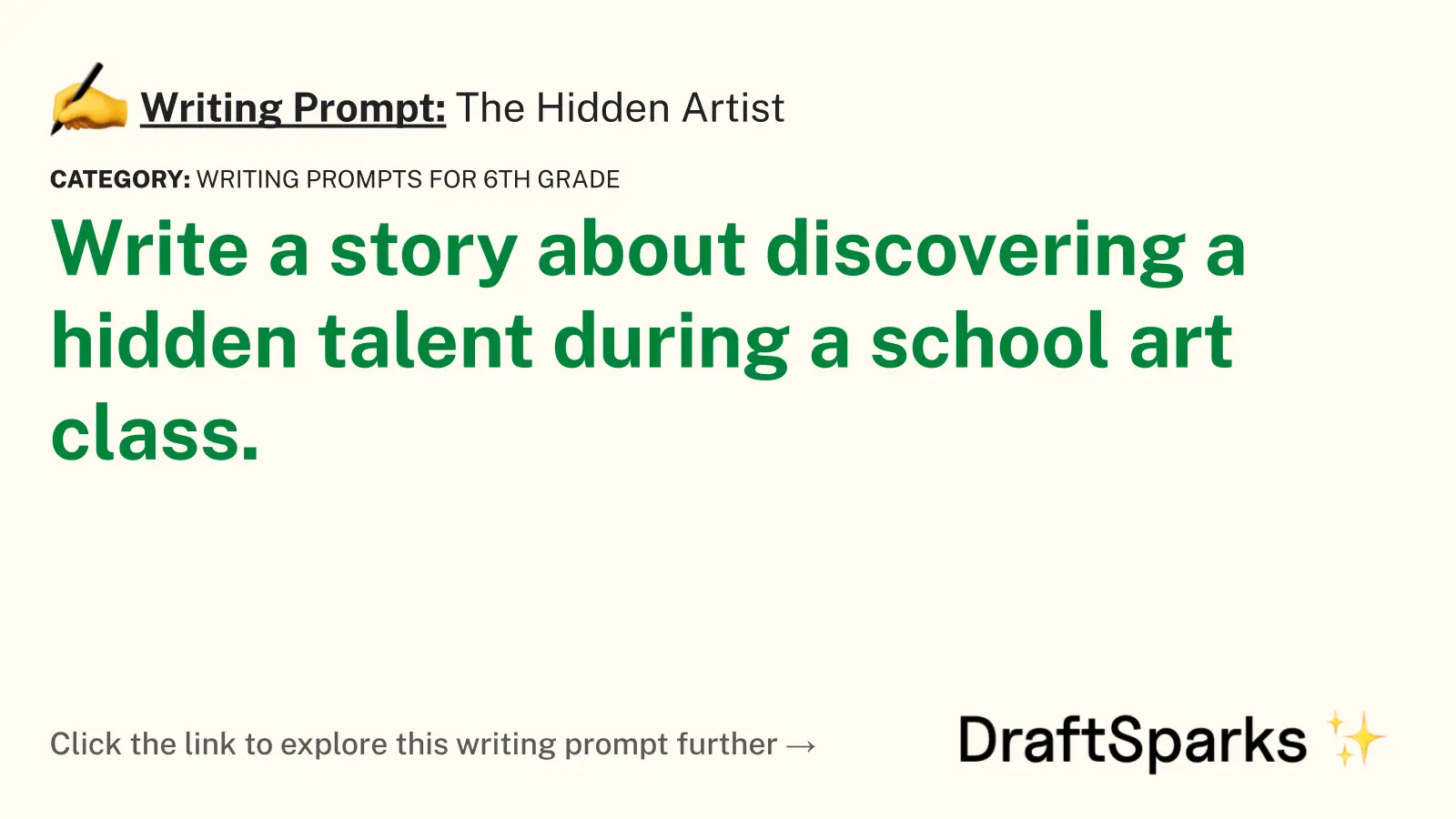
The Hidden Artist
Write a story about discovering a hidden talent during a school art class.

Lost & Found
Write about finding a lost object that leads to an unexpected friendship.
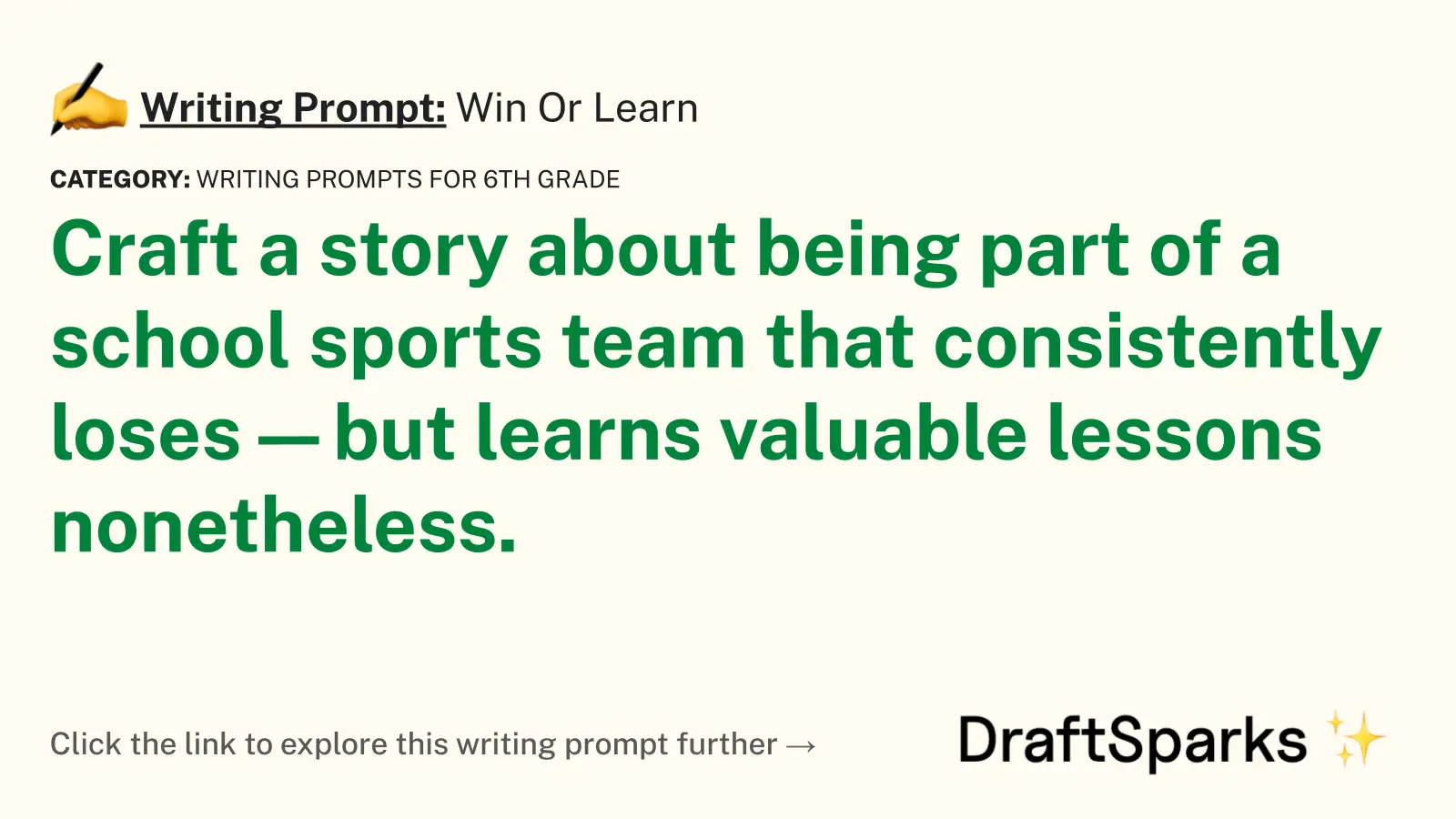
Win Or Learn
Craft a story about being part of a school sports team that consistently loses—but learns valuable lessons nonetheless.
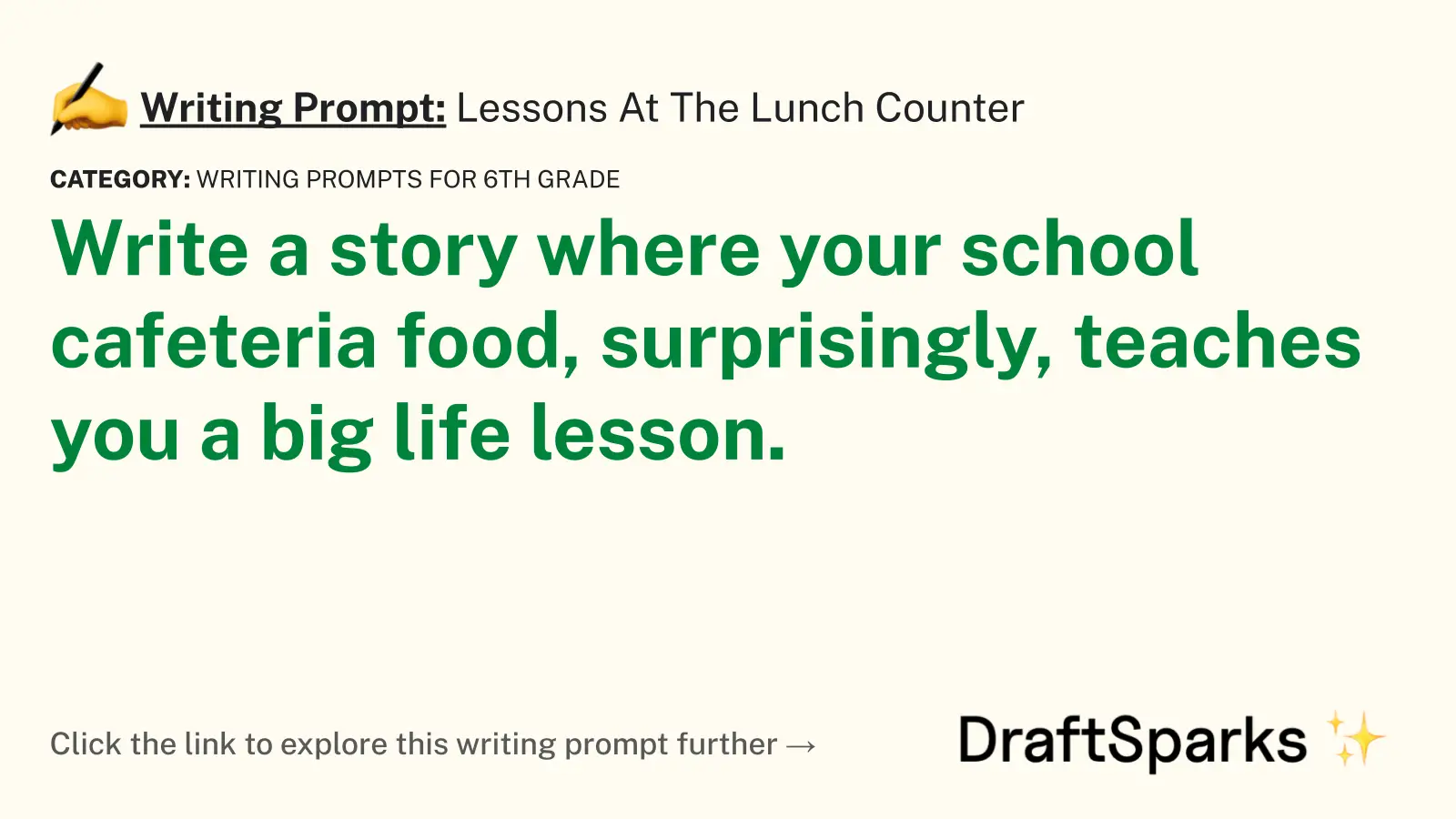
Lessons At The Lunch Counter
Write a story where your school cafeteria food, surprisingly, teaches you a big life lesson.
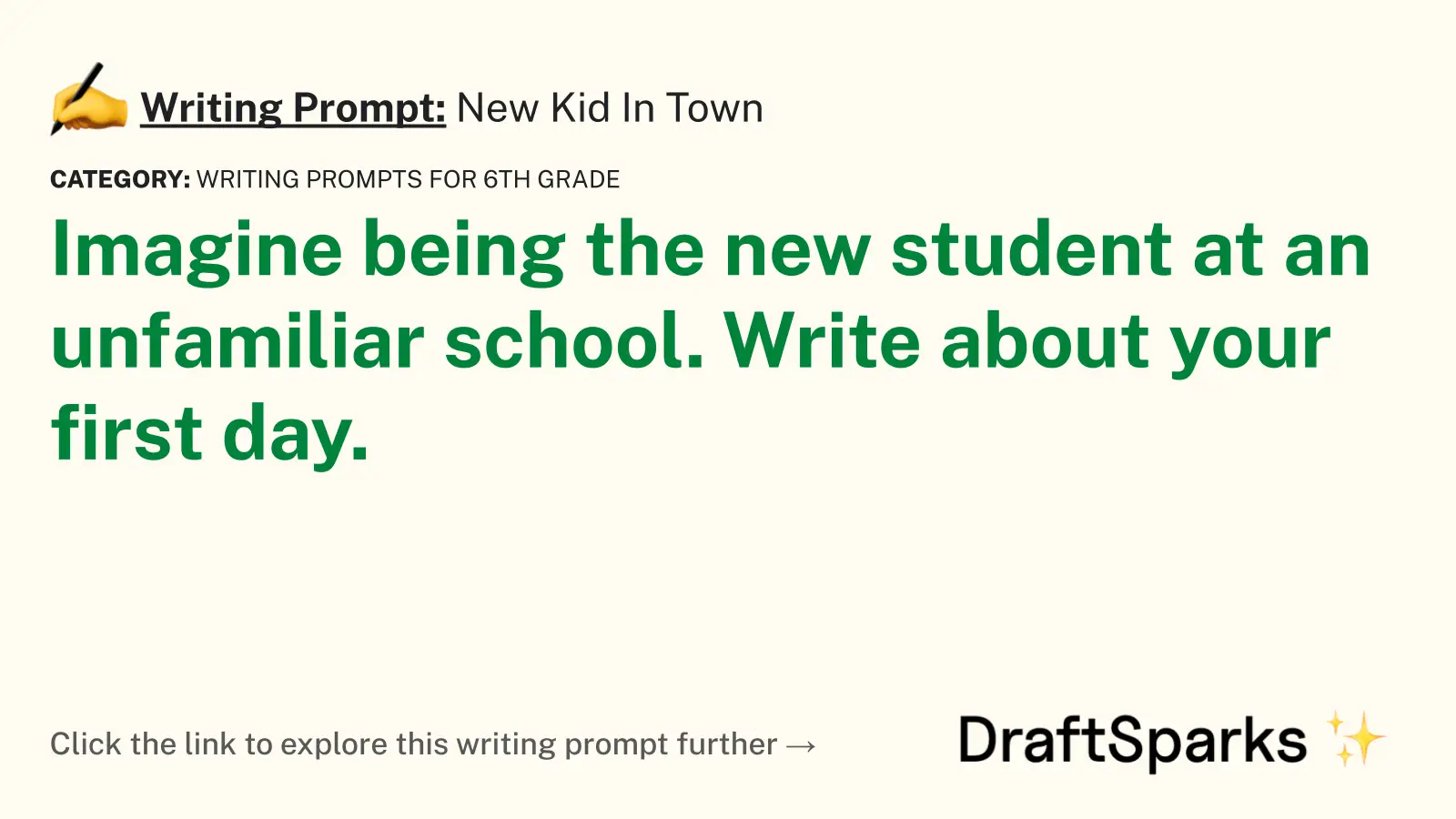
New Kid In Town
Imagine being the new student at an unfamiliar school. Write about your first day.

Narrative Writing: A Complete Guide for Teachers and Students
MASTERING THE CRAFT OF NARRATIVE WRITING
Narratives build on and encourage the development of the fundamentals of writing. They also require developing an additional skill set: the ability to tell a good yarn, and storytelling is as old as humanity.
We see and hear stories everywhere and daily, from having good gossip on the doorstep with a neighbor in the morning to the dramas that fill our screens in the evening.
Good narrative writing skills are hard-won by students even though it is an area of writing that most enjoy due to the creativity and freedom it offers.
Here we will explore some of the main elements of a good story: plot, setting, characters, conflict, climax, and resolution . And we will look too at how best we can help our students understand these elements, both in isolation and how they mesh together as a whole.

WHAT IS A NARRATIVE?

A narrative is a story that shares a sequence of events , characters, and themes. It expresses experiences, ideas, and perspectives that should aspire to engage and inspire an audience.
A narrative can spark emotion, encourage reflection, and convey meaning when done well.
Narratives are a popular genre for students and teachers as they allow the writer to share their imagination, creativity, skill, and understanding of nearly all elements of writing. We occasionally refer to a narrative as ‘creative writing’ or story writing.
The purpose of a narrative is simple, to tell the audience a story. It can be written to motivate, educate, or entertain and can be fact or fiction.
A COMPLETE UNIT ON TEACHING NARRATIVE WRITING
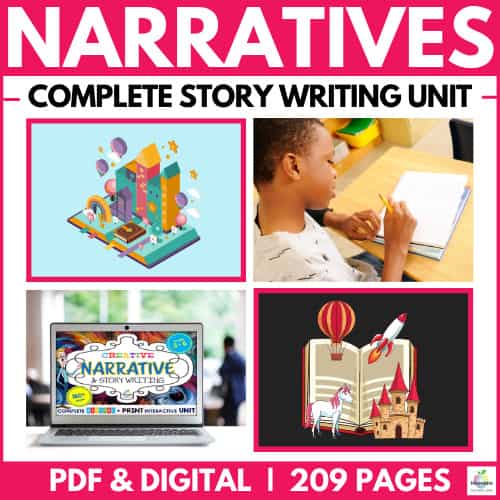
Teach your students to become skilled story writers with this HUGE NARRATIVE & CREATIVE STORY WRITING UNIT . Offering a COMPLETE SOLUTION to teaching students how to craft CREATIVE CHARACTERS, SUPERB SETTINGS, and PERFECT PLOTS .
Over 192 PAGES of materials, including:
TYPES OF NARRATIVE WRITING
There are many narrative writing genres and sub-genres such as these.
We have a complete guide to writing a personal narrative that differs from the traditional story-based narrative covered in this guide. It includes personal narrative writing prompts, resources, and examples and can be found here.

As we can see, narratives are an open-ended form of writing that allows you to showcase creativity in many directions. However, all narratives share a common set of features and structure known as “Story Elements”, which are briefly covered in this guide.
Don’t overlook the importance of understanding story elements and the value this adds to you as a writer who can dissect and create grand narratives. We also have an in-depth guide to understanding story elements here .
CHARACTERISTICS OF NARRATIVE WRITING
Narrative structure.
ORIENTATION (BEGINNING) Set the scene by introducing your characters, setting and time of the story. Establish your who, when and where in this part of your narrative
COMPLICATION AND EVENTS (MIDDLE) In this section activities and events involving your main characters are expanded upon. These events are written in a cohesive and fluent sequence.
RESOLUTION (ENDING) Your complication is resolved in this section. It does not have to be a happy outcome, however.
EXTRAS: Whilst orientation, complication and resolution are the agreed norms for a narrative, there are numerous examples of popular texts that did not explicitly follow this path exactly.
NARRATIVE FEATURES
LANGUAGE: Use descriptive and figurative language to paint images inside your audience’s minds as they read.
PERSPECTIVE Narratives can be written from any perspective but are most commonly written in first or third person.
DIALOGUE Narratives frequently switch from narrator to first-person dialogue. Always use speech marks when writing dialogue.
TENSE If you change tense, make it perfectly clear to your audience what is happening. Flashbacks might work well in your mind but make sure they translate to your audience.
THE PLOT MAP
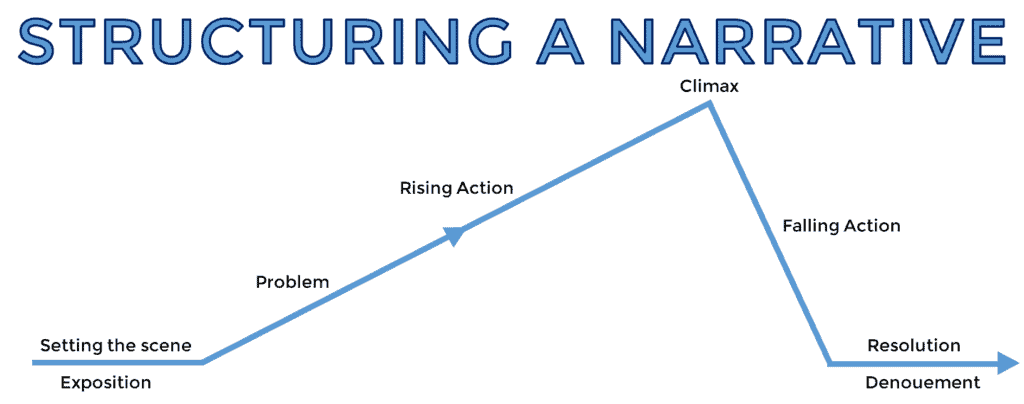
This graphic is known as a plot map, and nearly all narratives fit this structure in one way or another, whether romance novels, science fiction or otherwise.
It is a simple tool that helps you understand and organise a story’s events. Think of it as a roadmap that outlines the journey of your characters and the events that unfold. It outlines the different stops along the way, such as the introduction, rising action, climax, falling action, and resolution, that help you to see how the story builds and develops.
Using a plot map, you can see how each event fits into the larger picture and how the different parts of the story work together to create meaning. It’s a great way to visualize and analyze a story.
Be sure to refer to a plot map when planning a story, as it has all the essential elements of a great story.
THE 5 KEY STORY ELEMENTS OF A GREAT NARRATIVE (6-MINUTE TUTORIAL VIDEO)
This video we created provides an excellent overview of these elements and demonstrates them in action in stories we all know and love.
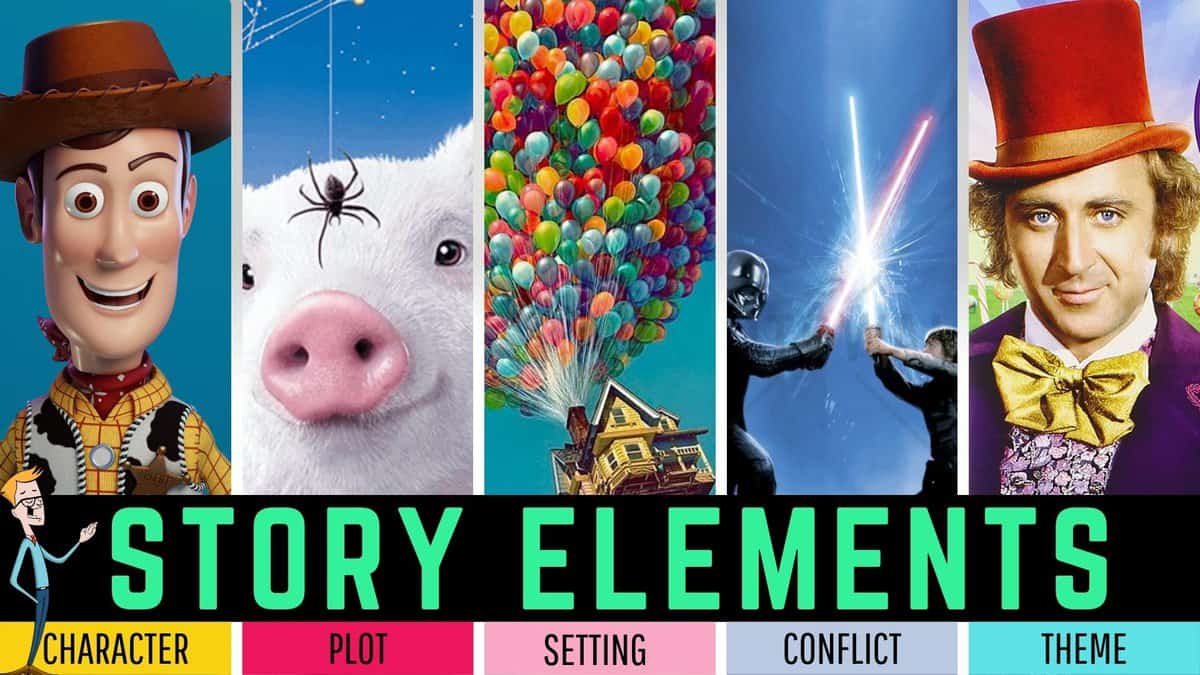
HOW TO WRITE A NARRATIVE
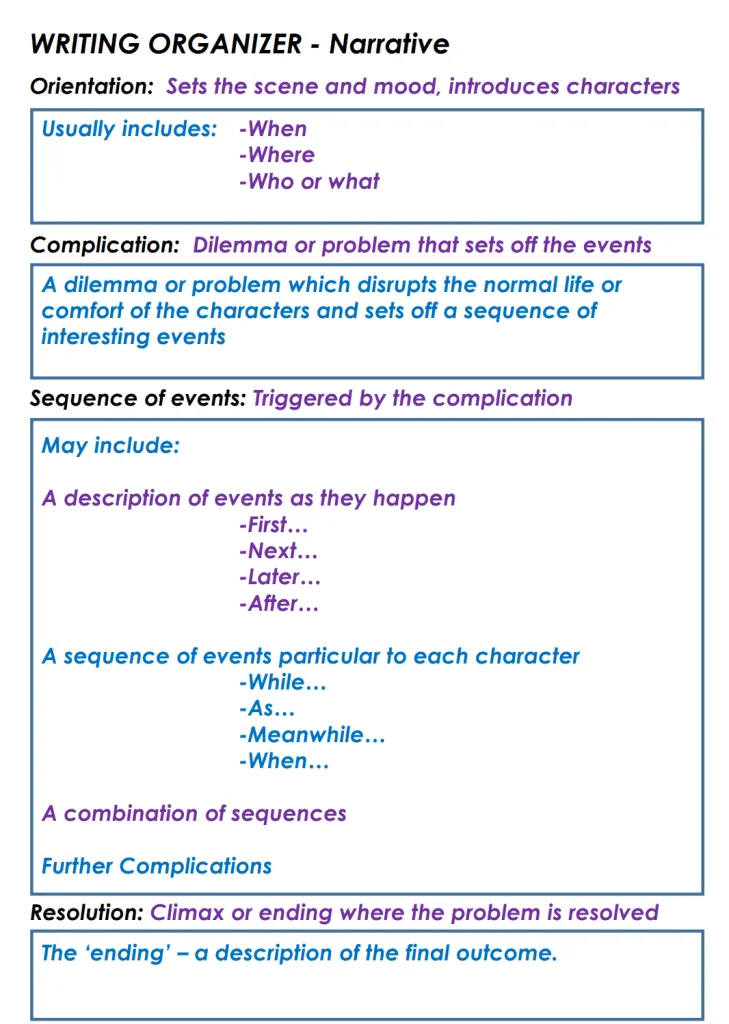
Now that we understand the story elements and how they come together to form stories, it’s time to start planning and writing your narrative.
In many cases, the template and guide below will provide enough details on how to craft a great story. However, if you still need assistance with the fundamentals of writing, such as sentence structure, paragraphs and using correct grammar, we have some excellent guides on those here.
USE YOUR WRITING TIME EFFECTIVELY: Maximize your narrative writing sessions by spending approximately 20 per cent of your time planning and preparing. This ensures greater productivity during your writing time and keeps you focused and on task.
Use tools such as graphic organizers to logically sequence your narrative if you are not a confident story writer. If you are working with reluctant writers, try using narrative writing prompts to get their creative juices flowing.
Spend most of your writing hour on the task at hand, don’t get too side-tracked editing during this time and leave some time for editing. When editing a narrative, examine it for these three elements.
- Spelling and grammar ( Is it readable?)
- Story structure and continuity ( Does it make sense, and does it flow? )
- Character and plot analysis. (Are your characters engaging? Does your problem/resolution work? )
1. SETTING THE SCENE: THE WHERE AND THE WHEN
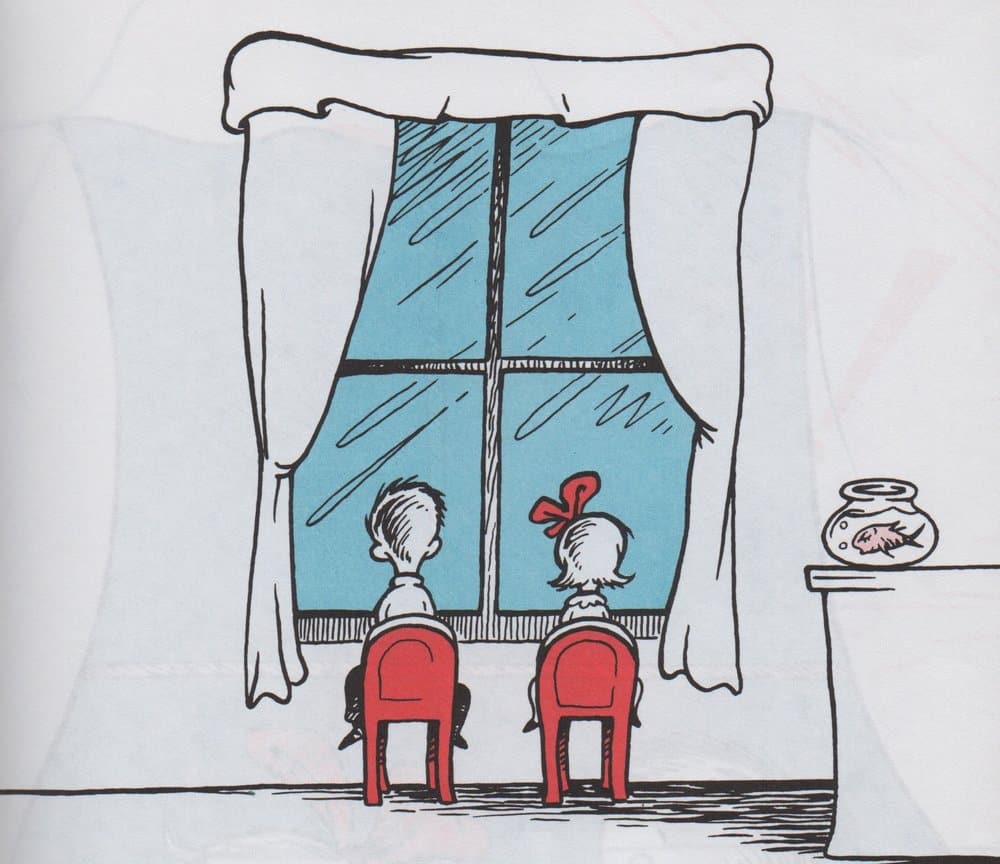
The story’s setting often answers two of the central questions in the story, namely, the where and the when. The answers to these two crucial questions will often be informed by the type of story the student is writing.
The story’s setting can be chosen to quickly orient the reader to the type of story they are reading. For example, a fictional narrative writing piece such as a horror story will often begin with a description of a haunted house on a hill or an abandoned asylum in the middle of the woods. If we start our story on a rocket ship hurtling through the cosmos on its space voyage to the Alpha Centauri star system, we can be reasonably sure that the story we are embarking on is a work of science fiction.
Such conventions are well-worn clichés true, but they can be helpful starting points for our novice novelists to make a start.
Having students choose an appropriate setting for the type of story they wish to write is an excellent exercise for our younger students. It leads naturally onto the next stage of story writing, which is creating suitable characters to populate this fictional world they have created. However, older or more advanced students may wish to play with the expectations of appropriate settings for their story. They may wish to do this for comic effect or in the interest of creating a more original story. For example, opening a story with a children’s birthday party does not usually set up the expectation of a horror story. Indeed, it may even lure the reader into a happy reverie as they remember their own happy birthday parties. This leaves them more vulnerable to the surprise element of the shocking action that lies ahead.
Once the students have chosen a setting for their story, they need to start writing. Little can be more terrifying to English students than the blank page and its bare whiteness stretching before them on the table like a merciless desert they must cross. Give them the kick-start they need by offering support through word banks or writing prompts. If the class is all writing a story based on the same theme, you may wish to compile a common word bank on the whiteboard as a prewriting activity. Write the central theme or genre in the middle of the board. Have students suggest words or phrases related to the theme and list them on the board.
You may wish to provide students with a copy of various writing prompts to get them started. While this may mean that many students’ stories will have the same beginning, they will most likely arrive at dramatically different endings via dramatically different routes.

A bargain is at the centre of the relationship between the writer and the reader. That bargain is that the reader promises to suspend their disbelief as long as the writer creates a consistent and convincing fictional reality. Creating a believable world for the fictional characters to inhabit requires the student to draw on convincing details. The best way of doing this is through writing that appeals to the senses. Have your student reflect deeply on the world that they are creating. What does it look like? Sound like? What does the food taste like there? How does it feel like to walk those imaginary streets, and what aromas beguile the nose as the main character winds their way through that conjured market?
Also, Consider the when; or the time period. Is it a future world where things are cleaner and more antiseptic? Or is it an overcrowded 16th-century London with human waste stinking up the streets? If students can create a multi-sensory installation in the reader’s mind, then they have done this part of their job well.
Popular Settings from Children’s Literature and Storytelling
- Fairytale Kingdom
- Magical Forest
- Village/town
- Underwater world
- Space/Alien planet
2. CASTING THE CHARACTERS: THE WHO
Now that your student has created a believable world, it is time to populate it with believable characters.
In short stories, these worlds mustn’t be overpopulated beyond what the student’s skill level can manage. Short stories usually only require one main character and a few secondary ones. Think of the short story more as a small-scale dramatic production in an intimate local theater than a Hollywood blockbuster on a grand scale. Too many characters will only confuse and become unwieldy with a canvas this size. Keep it simple!
Creating believable characters is often one of the most challenging aspects of narrative writing for students. Fortunately, we can do a few things to help students here. Sometimes it is helpful for students to model their characters on actual people they know. This can make things a little less daunting and taxing on the imagination. However, whether or not this is the case, writing brief background bios or descriptions of characters’ physical personality characteristics can be a beneficial prewriting activity. Students should give some in-depth consideration to the details of who their character is: How do they walk? What do they look like? Do they have any distinguishing features? A crooked nose? A limp? Bad breath? Small details such as these bring life and, therefore, believability to characters. Students can even cut pictures from magazines to put a face to their character and allow their imaginations to fill in the rest of the details.
Younger students will often dictate to the reader the nature of their characters. To improve their writing craft, students must know when to switch from story-telling mode to story-showing mode. This is particularly true when it comes to character. Encourage students to reveal their character’s personality through what they do rather than merely by lecturing the reader on the faults and virtues of the character’s personality. It might be a small relayed detail in the way they walk that reveals a core characteristic. For example, a character who walks with their head hanging low and shoulders hunched while avoiding eye contact has been revealed to be timid without the word once being mentioned. This is a much more artistic and well-crafted way of doing things and is less irritating for the reader. A character who sits down at the family dinner table immediately snatches up his fork and starts stuffing roast potatoes into his mouth before anyone else has even managed to sit down has revealed a tendency towards greed or gluttony.
Understanding Character Traits
Again, there is room here for some fun and profitable prewriting activities. Give students a list of character traits and have them describe a character doing something that reveals that trait without ever employing the word itself.
It is also essential to avoid adjective stuffing here. When looking at students’ early drafts, adjective stuffing is often apparent. To train the student out of this habit, choose an adjective and have the student rewrite the sentence to express this adjective through action rather than telling.
When writing a story, it is vital to consider the character’s traits and how they will impact the story’s events. For example, a character with a strong trait of determination may be more likely to overcome obstacles and persevere. In contrast, a character with a tendency towards laziness may struggle to achieve their goals. In short, character traits add realism, depth, and meaning to a story, making it more engaging and memorable for the reader.
Popular Character Traits in Children’s Stories
- Determination
- Imagination
- Perseverance
- Responsibility
We have an in-depth guide to creating great characters here , but most students should be fine to move on to planning their conflict and resolution.
3. NO PROBLEM? NO STORY! HOW CONFLICT DRIVES A NARRATIVE

This is often the area apprentice writers have the most difficulty with. Students must understand that without a problem or conflict, there is no story. The problem is the driving force of the action. Usually, in a short story, the problem will center around what the primary character wants to happen or, indeed, wants not to happen. It is the hurdle that must be overcome. It is in the struggle to overcome this hurdle that events happen.
Often when a student understands the need for a problem in a story, their completed work will still not be successful. This is because, often in life, problems remain unsolved. Hurdles are not always successfully overcome. Students pick up on this.
We often discuss problems with friends that will never be satisfactorily resolved one way or the other, and we accept this as a part of life. This is not usually the case with writing a story. Whether a character successfully overcomes his or her problem or is decidedly crushed in the process of trying is not as important as the fact that it will finally be resolved one way or the other.
A good practical exercise for students to get to grips with this is to provide copies of stories and have them identify the central problem or conflict in each through discussion. Familiar fables or fairy tales such as Three Little Pigs, The Boy Who Cried Wolf, Cinderella, etc., are great for this.
While it is true that stories often have more than one problem or that the hero or heroine is unsuccessful in their first attempt to solve a central problem, for beginning students and intermediate students, it is best to focus on a single problem, especially given the scope of story writing at this level. Over time students will develop their abilities to handle more complex plots and write accordingly.
Popular Conflicts found in Children’s Storytelling.
- Good vs evil
- Individual vs society
- Nature vs nurture
- Self vs others
- Man vs self
- Man vs nature
- Man vs technology
- Individual vs fate
- Self vs destiny
Conflict is the heart and soul of any good story. It’s what makes a story compelling and drives the plot forward. Without conflict, there is no story. Every great story has a struggle or a problem that needs to be solved, and that’s where conflict comes in. Conflict is what makes a story exciting and keeps the reader engaged. It creates tension and suspense and makes the reader care about the outcome.
Like in real life, conflict in a story is an opportunity for a character’s growth and transformation. It’s a chance for them to learn and evolve, making a story great. So next time stories are written in the classroom, remember that conflict is an essential ingredient, and without it, your story will lack the energy, excitement, and meaning that makes it truly memorable.
4. THE NARRATIVE CLIMAX: HOW THINGS COME TO A HEAD!

The climax of the story is the dramatic high point of the action. It is also when the struggles kicked off by the problem come to a head. The climax will ultimately decide whether the story will have a happy or tragic ending. In the climax, two opposing forces duke things out until the bitter (or sweet!) end. One force ultimately emerges triumphant. As the action builds throughout the story, suspense increases as the reader wonders which of these forces will win out. The climax is the release of this suspense.
Much of the success of the climax depends on how well the other elements of the story have been achieved. If the student has created a well-drawn and believable character that the reader can identify with and feel for, then the climax will be more powerful.
The nature of the problem is also essential as it determines what’s at stake in the climax. The problem must matter dearly to the main character if it matters at all to the reader.
Have students engage in discussions about their favorite movies and books. Have them think about the storyline and decide the most exciting parts. What was at stake at these moments? What happened in your body as you read or watched? Did you breathe faster? Or grip the cushion hard? Did your heart rate increase, or did you start to sweat? This is what a good climax does and what our students should strive to do in their stories.
The climax puts it all on the line and rolls the dice. Let the chips fall where the writer may…
Popular Climax themes in Children’s Stories
- A battle between good and evil
- The character’s bravery saves the day
- Character faces their fears and overcomes them
- The character solves a mystery or puzzle.
- The character stands up for what is right.
- Character reaches their goal or dream.
- The character learns a valuable lesson.
- The character makes a selfless sacrifice.
- The character makes a difficult decision.
- The character reunites with loved ones or finds true friendship.
5. RESOLUTION: TYING UP LOOSE ENDS
After the climactic action, a few questions will often remain unresolved for the reader, even if all the conflict has been resolved. The resolution is where those lingering questions will be answered. The resolution in a short story may only be a brief paragraph or two. But, in most cases, it will still be necessary to include an ending immediately after the climax can feel too abrupt and leave the reader feeling unfulfilled.
An easy way to explain resolution to students struggling to grasp the concept is to point to the traditional resolution of fairy tales, the “And they all lived happily ever after” ending. This weather forecast for the future allows the reader to take their leave. Have the student consider the emotions they want to leave the reader with when crafting their resolution.
While the action is usually complete by the end of the climax, it is in the resolution that if there is a twist to be found, it will appear – think of movies such as The Usual Suspects. Pulling this off convincingly usually requires considerable skill from a student writer. Still, it may well form a challenging extension exercise for those more gifted storytellers among your students.
Popular Resolutions in Children’s Stories
- Our hero achieves their goal
- The character learns a valuable lesson
- A character finds happiness or inner peace.
- The character reunites with loved ones.
- Character restores balance to the world.
- The character discovers their true identity.
- Character changes for the better.
- The character gains wisdom or understanding.
- Character makes amends with others.
- The character learns to appreciate what they have.
Once students have completed their story, they can edit for grammar, vocabulary choice, spelling, etc., but not before!
As mentioned, there is a craft to storytelling, as well as an art. When accurate grammar, perfect spelling, and immaculate sentence structures are pushed at the outset, they can cause storytelling paralysis. For this reason, it is essential that when we encourage the students to write a story, we give them license to make mechanical mistakes in their use of language that they can work on and fix later.
Good narrative writing is a very complex skill to develop and will take the student years to become competent. It challenges not only the student’s technical abilities with language but also her creative faculties. Writing frames, word banks, mind maps, and visual prompts can all give valuable support as students develop the wide-ranging and challenging skills required to produce a successful narrative writing piece. But, at the end of it all, as with any craft, practice and more practice is at the heart of the matter.
TIPS FOR WRITING A GREAT NARRATIVE
- Start your story with a clear purpose: If you can determine the theme or message you want to convey in your narrative before starting it will make the writing process so much simpler.
- Choose a compelling storyline and sell it through great characters, setting and plot: Consider a unique or interesting story that captures the reader’s attention, then build the world and characters around it.
- Develop vivid characters that are not all the same: Make your characters relatable and memorable by giving them distinct personalities and traits you can draw upon in the plot.
- Use descriptive language to hook your audience into your story: Use sensory language to paint vivid images and sequences in the reader’s mind.
- Show, don’t tell your audience: Use actions, thoughts, and dialogue to reveal character motivations and emotions through storytelling.
- Create a vivid setting that is clear to your audience before getting too far into the plot: Describe the time and place of your story to immerse the reader fully.
- Build tension: Refer to the story map earlier in this article and use conflict, obstacles, and suspense to keep the audience engaged and invested in your narrative.
- Use figurative language such as metaphors, similes, and other literary devices to add depth and meaning to your narrative.
- Edit, revise, and refine: Take the time to refine and polish your writing for clarity and impact.
- Stay true to your voice: Maintain your unique perspective and style in your writing to make it your own.
NARRATIVE WRITING EXAMPLES (Student Writing Samples)
Below are a collection of student writing samples of narratives. Click on the image to enlarge and explore them in greater detail. Please take a moment to read these creative stories in detail and the teacher and student guides which highlight some of the critical elements of narratives to consider before writing.
Please understand these student writing samples are not intended to be perfect examples for each age or grade level but a piece of writing for students and teachers to explore together to critically analyze to improve student writing skills and deepen their understanding of story writing.
We recommend reading the example either a year above or below, as well as the grade you are currently working with, to gain a broader appreciation of this text type.
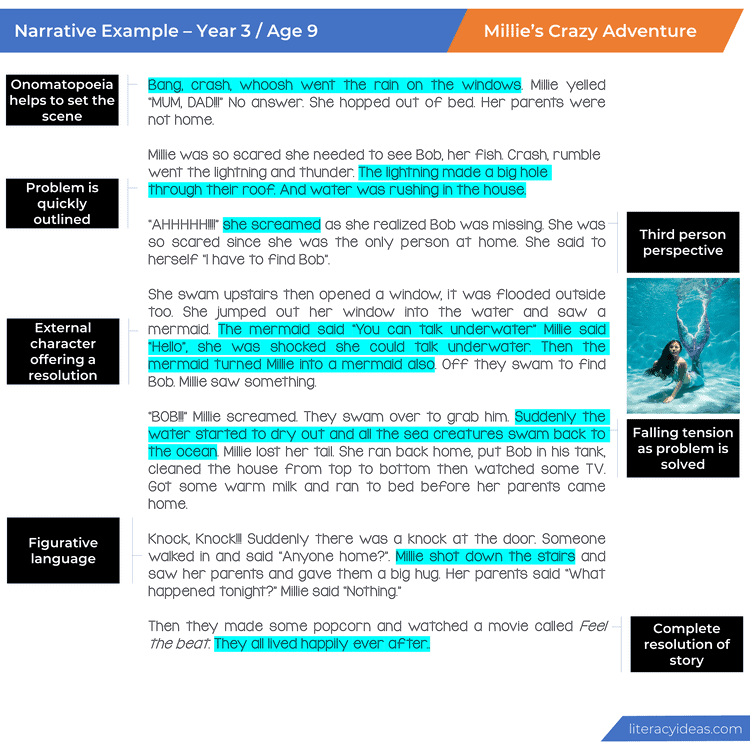
NARRATIVE WRITING PROMPTS (Journal Prompts)
When students have a great journal prompt, it can help them focus on the task at hand, so be sure to view our vast collection of visual writing prompts for various text types here or use some of these.
- On a recent European trip, you find your travel group booked into the stunning and mysterious Castle Frankenfurter for a single night… As night falls, the massive castle of over one hundred rooms seems to creak and groan as a series of unexplained events begin to make you wonder who or what else is spending the evening with you. Write a narrative that tells the story of your evening.
- You are a famous adventurer who has discovered new lands; keep a travel log over a period of time in which you encounter new and exciting adventures and challenges to overcome. Ensure your travel journal tells a story and has a definite introduction, conflict and resolution.
- You create an incredible piece of technology that has the capacity to change the world. As you sit back and marvel at your innovation and the endless possibilities ahead of you, it becomes apparent there are a few problems you didn’t really consider. You might not even be able to control them. Write a narrative in which you ride the highs and lows of your world-changing creation with a clear introduction, conflict and resolution.
- As the final door shuts on the Megamall, you realise you have done it… You and your best friend have managed to sneak into the largest shopping centre in town and have the entire place to yourselves until 7 am tomorrow. There is literally everything and anything a child would dream of entertaining themselves for the next 12 hours. What amazing adventures await you? What might go wrong? And how will you get out of there scot-free?
- A stranger walks into town… Whilst appearing similar to almost all those around you, you get a sense that this person is from another time, space or dimension… Are they friends or foes? What makes you sense something very strange is going on? Suddenly they stand up and walk toward you with purpose extending their hand… It’s almost as if they were reading your mind.
NARRATIVE WRITING VIDEO TUTORIAL

Teaching Resources
Use our resources and tools to improve your student’s writing skills through proven teaching strategies.
When teaching narrative writing, it is essential that you have a range of tools, strategies and resources at your disposal to ensure you get the most out of your writing time. You can find some examples below, which are free and paid premium resources you can use instantly without any preparation.
FREE Narrative Graphic Organizer
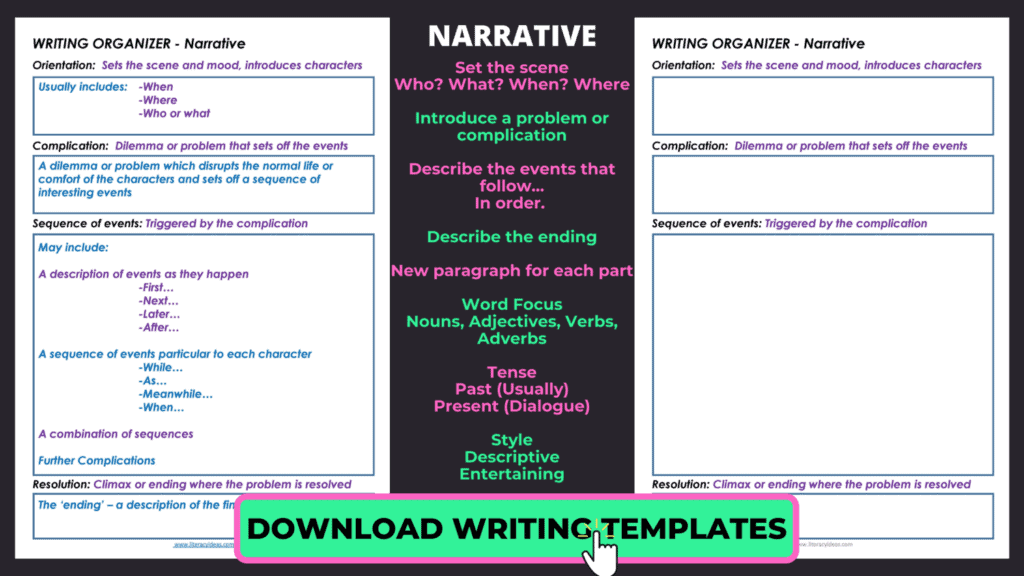
THE STORY TELLERS BUNDLE OF TEACHING RESOURCES
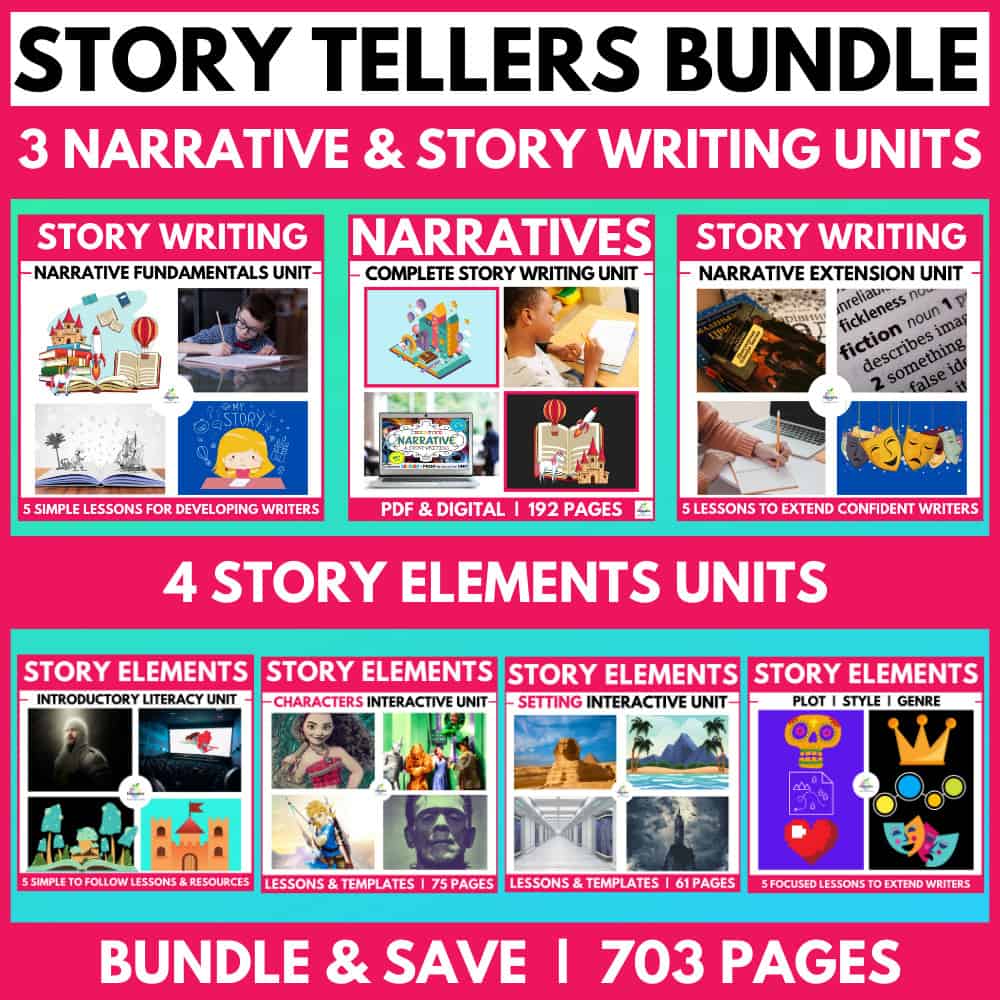
A MASSIVE COLLECTION of resources for narratives and story writing in the classroom covering all elements of crafting amazing stories. MONTHS WORTH OF WRITING LESSONS AND RESOURCES, including:
NARRATIVE WRITING CHECKLIST BUNDLE

⭐⭐⭐⭐⭐ (92 Reviews)
OTHER GREAT ARTICLES ABOUT NARRATIVE WRITING
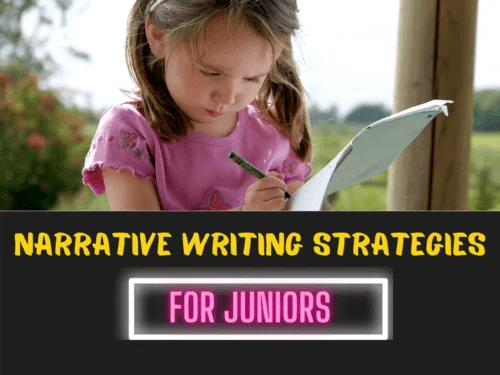
Narrative Writing for Kids: Essential Skills and Strategies

7 Great Narrative Lesson Plans Students and Teachers Love
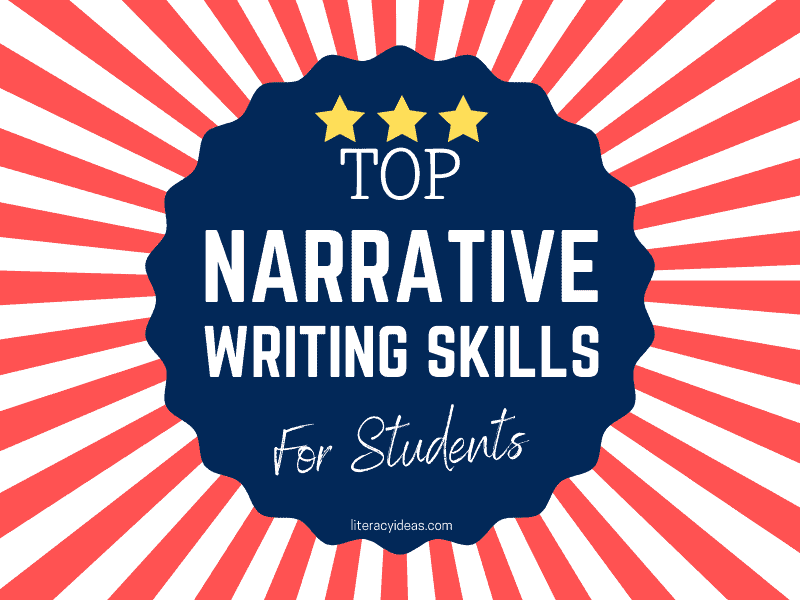
Top 7 Narrative Writing Exercises for Students
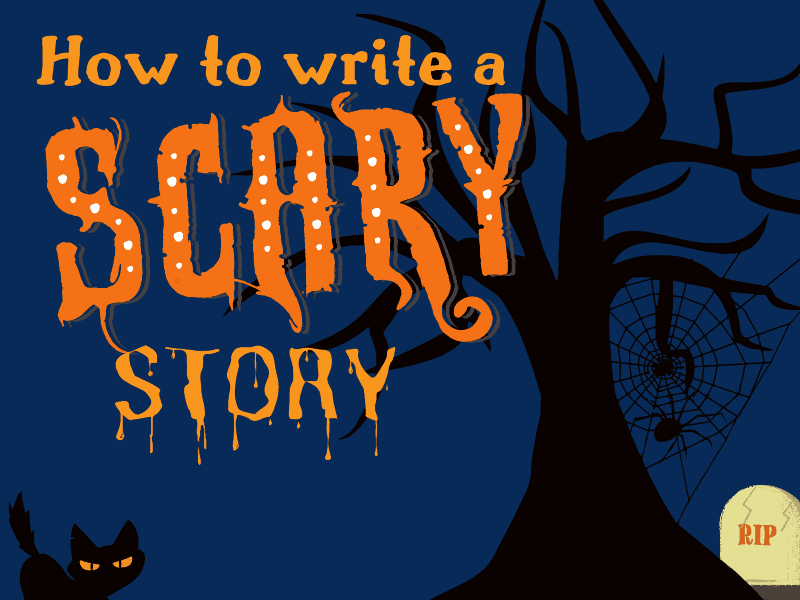
How to Write a Scary Story

Narrative Writing | Student Writing Samples
Narrative Writing Sample- Grade 6
Read Time 3 mins | Dec 8, 2021 4:23:31 PM | Written by: Toolbox
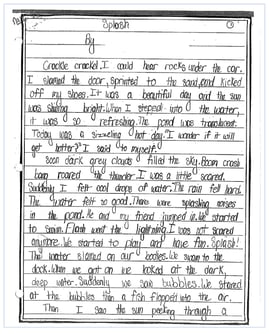
Narrative Writing Grade 6 Sample Splash!
Feedback for Improvement
What worked:
- There is a sense of story with a beginning, middle and end.
- The word choice is often high level - slammed, sprinted, flopped, tranquil, glistened
- Entertaining Beginning: There was a mix of sound, action and thought - the author established the setting - the pond on a hot day
- Elaborative Detail: There was plenty of elaborative detail - in the second paragraph, the author describes the setting - “Soon grey clouds filled the sky. Boom crash bang roared the thunder. I felt cool drops of water. We stared at the bubbles then a fish flopped into the air.”
- Extended Ending : The author used a mix of memory, hope and thought.
Can you summarize this story?
This is a story about ______________.
The problem/adventure was _____________.
The problem was solved/adventure concluded when ___________.
Feedback with Prescriptive Lesson: CHOOSE a Focus Skill:
- Section 1 Lesson 1: Introducing Graphic Organizers with Summarizing Framework
- Section 1 Lesson 9: Annotating Narrative Stories - build foundation for story writing
- Section 1 Lesson 11: Analyzing Assignments for Givens and Variables - creating pre-writing plans
Suspense: There was some evidence of suspense in the word “Suddenly,” however, it would improve the writing to add a magic of three as the thunderstorm rolled in.
- Section 4 Lesson 3: Red Flag Words and Phrases
- Section 4 Lesson 4: The Magic of Three
Main Event: What appears to be the main event is mostly description with some very general action. What was the main event of the story? Once that is established then add a balanced mix of action, description, thoughts/feelings, dialogue, and sound.
- Section 5 Lesson 1: Comparing Summaries
- Section 5 Lesson 2: Main Event
This student will benefit from participating in modeled lessons to develop the middle of the story- both suspense and main event.
Recommended Resources
- Empowering Writer's Methodology
- Narrative Writing Guide for Grade 6

Question and Answer forum for K12 Students

Story Writing For Class 6 Format, Topics, Examples, Exercises
Story writing for class 6 in english.
Story writing is an essential skill that students must learn at an early age. It is the oldest form of written composition and helps students develop their creativity, imagination, and language skills. In class 6, students are introduced to various formats, topics, examples, and exercises that help them understand the basics of story writing.
The format of story writing for class 6 includes a title, an introduction, a body, and a conclusion. The title of the story should be interesting and should evoke curiosity. The introduction should set the scene and introduce the characters. The body should describe the events of the story, and the conclusion should provide a resolution to the story.
Students are given various topics to write stories on, such as a day in the life of a superhero, an unexpected adventure, or a mystery to solve. These topics help students develop their creativity and imagination and encourage them to think outside the box. Exercises such as brainstorming, outlining, and editing help students improve their writing skills and produce better stories.
Also Read: Story Writing For Class 8
Understanding Story Writing For Class 6
Story writing is an art form that requires a lot of creativity, planning, and mastery of narrative skills and language. It is a process of creating a narrative, which can be fictional or non-fictional, that captures the reader’s imagination and draws them into the story. In class 6, students are introduced to the basics of story writing, including the format, topics, examples, and exercises.
To write a good story, students need to understand the basic elements of a story, such as the plot, characters, setting, and theme. The plot is the sequence of events that make up the story, while the characters are the people or animals that the story revolves around. The setting is the time and place where the story takes place, while the theme is the underlying message or moral of the story.
Students are taught to plan their writing by noting and developing initial ideas, selecting the most appropriate ideas, and organizing them into a logical sequence. They are also taught to use descriptive language, dialogue, and sensory details to create a vivid and engaging story.
In addition to the basics, students are also taught to use literary devices such as foreshadowing, flashbacks, and symbolism to enhance their storytelling. They are encouraged to experiment with different writing styles and techniques to find their own unique voice as a writer.
Overall, understanding the basics of story writing is essential for students in class 6, as it lays the foundation for more advanced writing skills in the future. With practice and guidance, students can develop their creativity and imagination, and create stories that captivate and inspire their readers.
Format Of Story Writing For Class 6
Story writing is the art of expressing a series of events in an engaging and interesting way. A story has a beginning, middle, and end, and it revolves around a central theme. In Class 6, students are introduced to story writing as a part of their English curriculum. Here is a brief overview of the format of story writing for Class 6 students.
The beginning of a story is where the setting and characters are introduced. It is the foundation of the story and sets the tone for the rest of the narrative. The beginning should be engaging and hook the reader’s attention. It should introduce the main character and the conflict or problem they are facing. The writer should also provide a brief description of the setting to help the reader visualize the story.
The middle of the story is where the main action takes place. It is the longest part of the story and should be written in a way that keeps the reader engaged. The middle should include a series of events that lead to the climax of the story. The writer should use descriptive language to create a vivid picture in the reader’s mind. The middle should also include some dialogue to make the story more interesting.
The end of the story is where the conflict is resolved. It should be satisfying for the reader and tie up any loose ends. The writer should avoid introducing any new characters or plot twists at this stage. The end should be written in a way that leaves a lasting impression on the reader. It should also convey the central theme of the story.
In conclusion, story writing is an essential skill that students need to learn. The format of story writing includes a beginning, middle, and end. The beginning introduces the setting and characters, the middle includes the main action, and the end resolves the conflict. By following this format, students can write engaging and interesting stories.
Topics For Story Writing For Class 6
When it comes to story writing, the topics are endless. However, for class 6 students, it is important to choose topics that are age-appropriate and engaging. Here are some popular topics for story writing class 6.
Adventure Stories
Adventure stories are exciting and full of action. They usually involve a hero or heroine who goes on a dangerous journey or quest. Some popular adventure story topics for class 6 include:
- A group of friends goes on a treasure hunt
- A young girl who sets out to save her village from a dragon
- A boy who travels through time to stop a villain from changing history
Fantasy Stories
Fantasy stories are imaginative and often involve magical creatures and worlds. They allow students to explore their creativity and imagination. Some popular fantasy story topics for class 6 include:
- A young wizard who attends a magical school
- A group of friends who discover a secret portal to a magical land
- A girl who discovers she has magical powers and must save her kingdom from an evil sorcerer
Mystery Stories
Mystery stories are intriguing and keep readers guessing until the end. They usually involve a crime or puzzle that needs to be solved. Some popular mystery story topics for class 6 include:
- A group of friends solve a mystery at a haunted house
- A detective who solves a theft at a museum
- A girl who solves a mystery at her school
Science Fiction Stories
Science fiction stories are set in the future or in a different world and often involve advanced technology or scientific concepts. They allow students to explore their curiosity about the universe. Some popular science fiction story topics for class 6 include:
- A group of astronauts who travel to a distant planet
- A boy who builds a time machine and travels to the future
- A girl who discovers a new planet and must save it from destruction
As students explore these topics, they can develop their writing skills and create engaging stories that capture the reader’s attention.

Examples Of Story Writing For Class 6
Story writing is an art that requires creativity and imagination. It is a way to express oneself and share a message with others. Here are some examples of different types of stories that can be written by Class 6 students.
Adventure Story Example
An adventure story is a type of story that involves exciting and dangerous experiences. It can be set in any location, from a jungle to a city. Here is an example of an adventure story:
Title: Lost in the Jungle Characters: Jack and his friends Setting: A jungle in South America Plot: Jack and his friends go on a camping trip in the jungle. They get lost and have to find their way back to civilization. They encounter dangerous animals and face many challenges along the way. Theme: Perseverance and teamwork
Fantasy Story Example
A fantasy story is a type of story that involves imaginary worlds, magical creatures, and supernatural powers. It can be set in any time period, from the past to the future. Here is an example of a fantasy story:
Title: The Magic Kingdom Characters: Lily and her friends Setting: A magical kingdom in a faraway land Plot: Lily and her friends discover a magical kingdom hidden in the woods. They meet fairies, unicorns, and other magical creatures. They have to save the kingdom from an evil sorcerer who wants to destroy it. Theme: Friendship and bravery
Mystery Story Example
A mystery story is a type of story that involves solving a puzzle or a crime. It can be set in any location, from a small town to a big city. Here is an example of a mystery story:
Title: The Missing Necklace Characters: Nancy and her friends Setting: A mansion in the countryside Plot: Nancy and her friends are invited to a party at a mansion. During the party, a valuable necklace goes missing. They have to solve the mystery and find the thief before the party ends. Theme: Deduction and investigation
Science Fiction Story Example
A science fiction story is a type of story that involves futuristic technology, space travel, and other scientific concepts. It can be set in any time period, from the present to the distant future. Here is an example of a science fiction story:
Title: The Time Machine Characters: Tom and his friends Setting: A laboratory in the future Plot: Tom and his friends invent a time machine and travel to different time periods. They encounter different challenges and learn about the consequences of their actions. Theme: Time travel and its effects
In conclusion, there are many different types of stories that can be written by Class 6 students. The examples provided above are just a few of the many possibilities. With creativity and imagination, the possibilities are endless.
Exercises For Story Writing For Class 6
Creating characters.
The first step in writing a compelling story is to create interesting and believable characters. To do this, students can start by brainstorming ideas for their characters, including their names, ages, appearances, personality traits, and backstories. They can also consider the character’s motivations and goals, as well as any conflicts or obstacles they may face.
To help students develop their characters further, they can use the following exercises:
- Write a character profile: This can include details about the character’s appearance, personality, hobbies, family, and friends.
- Create a character arc: This involves plotting out the character’s journey throughout the story, including any changes or growth they may experience.
Setting the Scene
Once students have created their characters, they need to set the scene for their story. This involves choosing a setting, such as a city, a forest, or a haunted house, and describing it in detail. Students can use sensory details, such as sights, sounds, smells, and textures, to bring the setting to life.
To help students develop their setting further, they can use the following exercises:
- Draw a map: This can help students visualize the setting and keep track of where their characters are in relation to each other.
- Write a sensory description: This involves using descriptive language to create a vivid picture of the setting in the reader’s mind.
Plot Development
With their characters and setting in place, students can now start developing the plot of their story. This involves creating a problem or conflict that the characters must overcome, as well as a series of events that lead to the resolution of the conflict.
To help students develop their plot further, they can use the following exercises:
- Create a plot diagram: This can help students visualize the structure of their story, including the introduction, rising action, climax, falling action, and resolution.
- Write a summary: This involves condensing the plot of the story into a few sentences, highlighting the most important events.
Writing Dialogue
Finally, students need to write dialogue that brings their characters to life and moves the story forward. This involves using quotation marks to indicate when a character is speaking, as well as tags to indicate who is speaking and how they are speaking.
To help students write effective dialogue, they can use the following exercises:
- Write a conversation: This involves creating a dialogue between two or more characters, using tags and descriptive language to convey their emotions and actions.
- Edit dialogue: This involves reviewing dialogue that has already been written and making changes to improve clarity, pacing, and characterization.
Recommended Reading: Story Writing For Class 6
Conclusion On Story Writing For Class 6
In conclusion, writing a good story is an art that requires practice, patience, and creativity. The conclusion of a story is a crucial element that should be carefully crafted to provide a satisfying ending to the readers. It should wrap up the plot, provide closure to the story, and leave a lasting impression on the reader.
To write a good conclusion, students should keep in mind the following tips:
- Summarize the main points of the story
- Provide a resolution to the conflict
- Add a twist or surprise ending, if appropriate
- Leave the reader with something to think about
It is important to remember that the conclusion should not be abrupt or rushed. It should be well-planned and executed to provide a satisfying ending to the story.
In addition, students should also pay attention to the overall structure of the story. A well-structured story will have a clear beginning, middle, and end. The characters should be well-developed, and the plot should be engaging and interesting.
Overall, writing a good story requires practice, patience, and creativity. With these tips in mind, students can improve their writing skills and create compelling stories that will captivate their readers.
Narrative Essay
Narrative Essay Topics
Best Narrative Essay Topics 2023 for Students
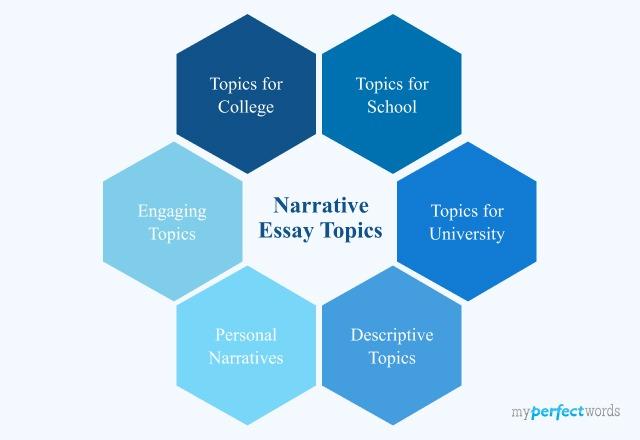
People also read
Narrative Essay - A Complete Writing Guide with Examples
Writing a Personal Narrative Essay: Everything You Need to Know
10+ Interesting Narrative Essay Examples Plus Writing Tips!
Crafting a Winning Narrative Essay Outline: A Step-by-Step Guide
Are you a student in 2023, looking for some awesome narrative essay topics that are easy to grasp and fun to write about?
You're in luck! Narrative essays let you share your stories, making them a perfect choice for students.
In this guide, we've put together a list of the best narrative essay topics for 2023.
Whether you're an experienced writer searching for fresh ideas or a student hunting for an exciting topic for your next assignment, we've got your back. These topics will ignite your imagination and captivate your readers.
So, let's dive in!
- 1. Narrative Essay Topics for Students
- 2. Unique Narrative Essay Topics for Students
- 3. How to Choose a Topic for a Narrative Essay?
- 4. Tips for Writing Narrative Essays
Narrative Essay Topics for Students
If you're a student looking for a diverse range of topics, we've got you covered with a diverse selection of narrative essay topics.
Narrative Essay Topics for Grade 5
- My First Day at a New School
- The Time I Learned to Ride a Bike
- A Visit to a Haunted House
- The Day I Met a Real-Life Superhero
- My Most Memorable Family Vacation
- A Surprising Encounter with an Animal
- The Mystery of the Missing Homework
- The Best Birthday Party I Ever Had
- When I Lost a Tooth
- My Adventure in a Fantasy World
Narrative Essay Topics for Grade 6
- An Unforgettable Camping Trip
- The Day I Discovered a Hidden Talent
- A Mysterious Letter and Its Consequences
- A Time I Had to Stand Up for What's Right
- The Thrilling Mystery of a Forgotten Diary
- A Memorable Encounter with a Famous Person
- My Journey Through a Fantasy Land
- The Day I Learned a Valuable Life Lesson
- An Unexpected Act of Kindness
- A Secret Adventure in an Abandoned Place
Narrative Essay Topics for Grade 7
- The Most Exciting Adventure of My Life
- The Day I Overcame a Fear
- A Memorable School Field Trip
- The Strangest Mystery I Ever Encountered
- An Unforgettable Encounter with Wildlife
- A Life-Changing Decision I Had to Make
- The Best Book I Ever Read and Why
- A Day in the Life of a Time Traveler
- The Importance of Friendship in My Life
- A Valuable Lesson Learned from a Mistake
Narrative Essay Topics for Grade 8
- A Time I Faced a Difficult Moral Dilemma
- The Most Memorable Summer Vacation
- The Impact of a Life-Altering Decision
- An Unexpected Act of Kindness I Received
- The Day I Stepped Out of My Comfort Zone
- A Historical Event I Would Like to Witness
- A Special Family Tradition and Its Significance
- A Personal Achievement I'm Proud Of
- A Challenging Obstacle I Overcame
- A Journey Through My Creative Imagination
Narrative Essay Topics for Grade 9
- The Transition to High School: Challenges and Triumphs
- A Life-Changing Encounter with an Inspiring Mentor
- My First Part-Time Job and What I Learned
- The Day I Realized the Power of Empathy
- The Impact of a Personal Passion or Hobby
- An Unforgettable Travel Experience Abroad
- A Meaningful Community Service Project I Participated In
- The Role of Technology in My Life
- A Defining Moment in My Cultural Identity
- My Vision for the Future: Dreams and Aspirations
Narrative Essay Topics for O-Levels
- The Day I Took a Leap of Faith
- An Unforgettable Journey into the Unknown
- A Life-Altering Decision I Made in High School
- An Encounter with a Stranger That Changed My Perspective
- The Role of Resilience in Overcoming a Personal Challenge
- The Impact of a Cultural Exchange Experience
- A Lesson Learned from a Unique Life Experience
- The Importance of Perseverance in Achieving a Goal
- My Most Memorable Academic Achievement
- A Glimpse into My Future: Aspirations and Ambitions
Narrative Essay Topics for Highschool
- The Moment I Discovered My Passion
- A Life-Changing Journey Abroad
- A Challenging Decision That Shaped My Future
- An Unexpected Act of Kindness That Touched My Heart
- The Role of Resilience in Overcoming Adversity
- A Personal Experience That Shaped My Values
- The Impact of Technology on My Generation
- A Time I Took a Stand for a Cause I Believe In
- A Memorable Leadership Role I Assumed
- A Glimpse into My Ideal Future: Aspirations and Goals
Narrative Essay Topics for College
- The Journey to Finding My Academic Passion
- A Life-Altering Study Abroad Experience
- The Transformational Impact of a Challenging Decision
- Navigating the Transition from College to the Professional World
- An Unforgettable Encounter with a Mentor or Role Model
- The Role of Adversity in Shaping My Personal Growth
- A Significant Ethical Dilemma I Faced in College
- How My College Experiences Have Shaped My Worldview
- The Impact of Technology on My College Education
- A Personal Reflection on My Career Aspirations and Goals
Narrative Essay Topics for University
- The Evolution of My Academic and Career Goals at University
- An Eye-Opening Internship Experience That Impacted My Future
- A Transformative Study Abroad Journey
- Navigating the Complexities of Balancing Work, Academics, and Social Life at University
- The Role of a Unique Research Project in My Academic Growth
- A Personal Account of Overcoming a Significant Academic Challenge
- A Meaningful Leadership Role in a University Organization
- The Journey of Self-Discovery Through Elective Courses at University
- The Impact of Peer Relationships and Networking at University
- How My University Education Has Shaped My Perspective on Global Issues
Unique Narrative Essay Topics for Students
We've gathered distinct narrative topic ideas to fuel your creativity. Let’s look at some personal narrative ideas to inspire your narrative writing.
Descriptive Narrative Essay Topics
- A Peaceful Day by the Riverside
- Exploring a Haunted House
- My Favorite Childhood Memory
- A Walk Through an Ancient Forest
- The Perfect Winter Wonderland
- An Evening at a Carnival
- A Visit to a Vibrant Art Gallery
- The Spectacular Colors of Autumn
- A Day in the Life of a Beach
- An Exciting Night in the City
Personal Narrative Essay Topics
- A Life-Changing Decision I Made
- A Moment of Personal Triumph
- Overcoming My Greatest Fear
- A Meaningful Lesson from a Personal Challenge
- The Role of a Special Friend in My Life
- A Time When I Broke a Personal Record
- The Impact of a Mentor on My Life
- My Journey to Self-Discovery
Literacy Narrative Essay Topics
- My Earliest Memory of Learning to Read
- The Book That Sparked My Love for Reading
- A Life-Changing Experience in a Library
- The Impact of a Special Teacher on My Writing Skills
- How Technology Has Shaped My Writing Habits
- A Personal Reflection on My Writing Journey
- The Role of Literature in Shaping My Perspective
- Writing as a Tool for Self-Expression and Healing
- How I Overcame Writer's Block
- The Significance of Storytelling in My Life
Engaging Narrative Essay Topics
- The Mystery of a Lost Treasure Map
- An Unlikely Friendship That Changed My Life
- A Day in the Life of a Professional Athlete
- The Journey of Starting My Own Business
- A Haunting Experience in a Historic Place
- A Memorable Road Trip with Friends
- My Encounter with a Famous Celebrity
- The Day I Conquered My Greatest Fear
- An Adventure in a Foreign Land
- A Life-Altering Decision at a Crossroads
How to Choose a Topic for a Narrative Essay?
Choosing the right topic for your narrative essay can be a daunting task. Before you start writing, it is important to invest some time in researching and brainstorming.
Here are a few tips to help guide you in selecting an interesting and engaging narrative essay topic:
- Reflect on Your Personal Experiences: If you are writing about a personal narrative topic, consider the impactful moments in your life and think about experiences that have left a strong impression on you.
- Identify a Clear Message or Theme: Determine the central idea or theme of your narrative. Decide what lesson, insight, or emotion you want to convey.
- Engage Your Audience: Consider your target audience and what will resonate with them. Choose a topic that captures their interest and keeps them engaged.
- Play with Different Perspectives: Explore the option of incorporating different viewpoints. Combining personal and external perspectives can add depth to your narrative.
- Test Your Idea: Get feedback from a friend or classmate. Assess if your chosen topic is likely to resonate with your audience.
- Stay True to Your Voice: Balance considering your audience with being authentic. Let your unique voice and storytelling style shine through in your writing
Tips for Writing Narrative Essays
Once you have selected a topic for your narrative essay, it is time to start writing.
Here are a few tips to keep in mind as you write your story:
- Start with a Strong Hook: Begin your narrative essay with a captivating hook, such as an engaging anecdote, a thought-provoking question, or a vivid description.
- Follow a Clear Structure: Organize your narrative essay outline with a clear structure. Most narratives follow a chronological order, but you can also use flashbacks or nonlinear storytelling when it serves your narrative.
- Build Tension and Conflict: Create tension and conflict in your narrative to add depth and maintain reader engagement. Whether it's a personal struggle, a moral dilemma, or an external challenge, these obstacles will keep readers eagerly anticipating what comes next.
- Revise and Edit: After completing your first draft, take the time to revise and edit your work. Review it for grammar and spelling errors, but also examine the overall structure and flow of your narrative.
- Practice, Practice, Practice: Like any form of writing, improving your narrative essay skills takes practice. Keep writing and experimenting with different topics, styles, and approaches to develop your storytelling abilities.
Before you start writing, make sure you read some narrative essay examples to learn how to organize your thoughts and structure your story.
In summary, no matter the type of essay you are writing about, you need a topic to start with. Our collection of narrative essay topics offers fresh, distinct ideas.
These topics are crafted to ignite your creativity and captivate your audience. They cover a diverse range of experiences, making it easier for you to connect with your readers on a personal level.
Still, struggling to write a compelling narrative essay? MyPerfectWords.com is here to help you out!
We stand as the most reliable narrative essay writing service with a specialized focus on crafting exceptional essays designed for high school and college students. Our customer support team is also available 24/7, request write my essays online whenever you need assistance.
Frequently Asked Questions
How are narrative essay topics different from other essay types.
Narrative essay topics are usually based on personal experiences, so they are more emotional and creative than other types of essays. Also, they are often more open-ended, so you have more freedom to choose what to write about.
Where can I find good narrative essay topics?
There are a few ways to find good topics for your narrative essay. You can look through books or magazines for ideas, or search online for inspiration. You can also brainstorm with friends or family members to come up with ideas.
What do I write a narrative essay about?
You can write a narrative essay about anything, but it is usually based on personal experience. Try to recall interesting incidents from your life to develop a narrative about.

Write Essay Within 60 Seconds!

Caleb S. has been providing writing services for over five years and has a Masters degree from Oxford University. He is an expert in his craft and takes great pride in helping students achieve their academic goals. Caleb is a dedicated professional who always puts his clients first.

Paper Due? Why Suffer? That’s our Job!
Keep reading

Free Printable Narrative Writing Worksheets for 6th Class
Narrative Writing: Discover a vast collection of free printable Reading & Writing worksheets tailored for Class 6 students, crafted by Quizizz to enhance their storytelling skills and creativity.

Explore Narrative Writing Worksheets by Grades
- kindergarten
Explore Other Subject Worksheets for class 6
- Social studies
- Social emotional
- Foreign language
- Reading & Writing
Explore printable Narrative Writing worksheets for 6th Class
Narrative Writing worksheets for Class 6 are an essential tool for teachers looking to enhance their students' reading and writing skills. These worksheets provide a structured and engaging way for students to practice their narrative writing abilities, focusing on key elements such as plot development, character creation, and descriptive language. As Class 6 students transition from writing simple paragraphs to more complex compositions, these worksheets serve as a valuable resource for teachers to guide their students through the process. By incorporating nonfiction writing exercises, students can also develop their research and critical thinking skills, making these worksheets a versatile and effective teaching tool. With the right selection of Narrative Writing worksheets for Class 6, teachers can ensure their students' success in reading and writing.
Quizizz offers a comprehensive platform for teachers to access a wide variety of educational resources, including Narrative Writing worksheets for Class 6. In addition to these worksheets, Quizizz also provides teachers with an extensive library of interactive quizzes and games that can be used to supplement their students' learning experience. These resources cover a diverse range of topics, including reading and writing, nonfiction writing, and other essential subjects for Class 6 students. Teachers can easily integrate Quizizz into their lesson plans, allowing them to track student progress and provide targeted feedback to help their students excel. By utilizing Quizizz's extensive collection of worksheets and other educational resources, teachers can create a dynamic and engaging learning environment for their Class 6 students.
What are your chances of acceptance?
Calculate for all schools, your chance of acceptance.
Your chancing factors
Extracurriculars.
50 Engaging Narrative Essay Topics for High Schoolers
Do you know how to improve your profile for college applications.
See how your profile ranks among thousands of other students using CollegeVine. Calculate your chances at your dream schools and learn what areas you need to improve right now — it only takes 3 minutes and it's 100% free.
Show me what areas I need to improve
What’s Covered:
Narrative essays vs. analytical essays, how to pick the right narrative essay topic, elements of a strong narrative essay, engaging narrative essay topics for high schoolers, where to get your narrative essay edited for free.
Narrative essays are an extensive form of writing that gives readers the opportunity to follow along as a person goes through a journey or sets of experiences. Rather than providing analytic insight, narrative essays simply share a story and offer a first-person account. These essays may seem easy to write at first, but it takes a certain finesse to write a narrative essay that is interesting, cohesive, and well-researched. Whether you’re looking for a unique topic to write about, or just want some new inspiration, CollegeVine is here to help! These 50 narrative essay topics are engaging, unique and will have you writing in no time.
A narrative essay is a great way to express your personal experiences and opinions, but it is important to remember that this type of essay is different from an analytical paper. In a narrative essay, you do not need to provide background information or explain your thoughts and feelings; instead, you simply tell a story. It’s important to avoid too much telling in your writing; instead, use creative details and vivid imagery to make readers feel as if they are actually right there with you.
Where You Will Encounter Narrative Essays
This type of essay is typically encountered in high school, where students may be required to write personal statements to prepare for their Common App essay . Narrative essays are also commonly seen in AP Language and Composition. Therefore, it’s important you are aware of the style because you are bound to have a narrative essay assignment.
Of course, before you start writing, it is important to pick the right essay topic. There are many factors involved in the process of picking the perfect narrative essay topic for your story.
You should always choose a topic that you are passionate about, since writing on something you care about will make the process much easier. Not only will it be more interesting to create your paper around something that truly interests you, but it will also allow you to fully express yourself in your essay. You also want to be sure that the topic has enough material to work with. If your chosen topic is too short, you will not have enough content to write a complete paper. For example, if you are writing about your experience getting lost at the mall, make sure that you have enough information to work with to craft an engaging narrative.
The best topic for an engaging narrative essay is one that focuses on showing versus telling, has a clear structure, and provides a dialogue. These elements come together to form an engaging narrative essay. Regardless of what subject you pick, any topic may be turned into a fascinating, A+ worthy narrative using the tips below.
Show, Don’t Tell
To write a good narrative essay, it’s important to show, not tell. Instead of simply informing your audience, show them what you mean. For example, instead of saying “I was nervous,” you could say “My heart began to race and my stomach filled with butterflies.” Also make sure to use sensory details, such as sights, sounds and tastes, and include a personal reflection at the end of your narrative.
Begin with a Strong Opening Line
A good narrative essay will begin with an attention-grabbing opening line. But make sure to avoid common clichés, such as “It was the best of times, it was the worst of times.” Instead, come up with something original and specific to you and your situation. For example: “My pre-calc teacher was obsessed with circles. I mean, he even used circular note cards.” Or, “It all started the day my mom brought home a guinea pig.”
Follows a Three-Act Structure
A strong narrative essay follows the same three-act structure as other essays. But in order to make it interesting, you’ll need to come up with a creative way to break things down into sections. For example, using the guinea pig example from above, you could write the following:
- Act 1 – Introduction: The day my mom brought home a guinea pig.
- Act 2 – Conflict: The day I had to say goodbye to my beloved pet.
- Act 3 – Conclusion: Looking back at how much I miss him now that he’s gone.
Conclude with Personal Reflection
To conclude your narrative essay, you’ll want to explain what this specific experience taught you or how you’ve changed. For example, upon realizing that her pre-calc teacher was obsessed with circles, the writer of the previous example begins to notice circular shapes everywhere. Another way to conclude your narrative essay is by touching on how this experience impacted you emotionally. For example, after losing his guinea pig, the writer explains how much he missed it.
Use Dialogue
Include a conversation in your essay to make it come alive. For example, instead of simply saying that you met a new friend, talk about how you introduced yourselves or what they were wearing when you met them.

Discover your chances at hundreds of schools
Our free chancing engine takes into account your history, background, test scores, and extracurricular activities to show you your real chances of admission—and how to improve them.
The following list of 50 narrative essay topics is divided into categories. This will make it easier to find a topic that fits your writing style.
1. What is a childhood song that still sticks with you today?
2. Your first day of Kindergarten
3. Talk about a time when you’re siblings looked up to you
4. Describe the best birthday party you’ve ever had
5. Talk about the best day you ever spent with a childhood friend
6. Explain your first childhood hobby
7. Describe your first halloween costume
8. A family vacation gone wrong
9. Your first family reunion
10. Describe a tradition that is unique to your family
11. Describe your family to a person who’s never met them before
12. What frustrates you most about your family
13. If you could only keep one memory of your family, what would it be and why?
14. Describe a time your family embarrassed you in public
15. The most beautiful place in the world
16. Your favorite season and why
17. If you were a part of nature, what element would you be? Why?
18. When you go outside, which of your senses are you most thankful to have?
19. Describe the first time you witnessed a tornado
20. Write a poem about your favorite season
21. Describe yourself as one of the four seasons
22. Describe a time in which you felt connected with nature
23. Describe the first time you played an instrument and how you felt
24. What major event would be much worse if music was removed, and why?
25. If you could only listen to one song for the rest of your life, what would it be and why?
26. What would a life without music look like?
27. If you could master one instrument, what would it be and why?
Relationships
28. What if you had never met your best friend?
29. Describe a time when you fixed a broken relationship
30. Talk about a movie that defined a relationship for you
31. Describe your first date
32. Describe the first time you made a friend
33. Describe your relationship with your parents
Self Reflection
34. Have you ever fooled someone? If so, describe what happened and how you felt about it
35. What is the worst thing you’ve done to someone else?
36. Write about the difference between how things seem and how they really are.
37. Have you ever been embarrassed in some way? If so, describe the situation and how it affected you as well as those around you
38. Have you ever witnessed something really beautiful? Describe it
39. Is your glass half empty or half full?
Overcoming Adversity
40. Have you ever been very afraid of something but tried your hardest to appear fearless? If so, describe that experience
41. When have you ever succeeded when you thought you might fail
42. What are your secret survival strategies?
43. Describe the last time you were stressed and why?
44. Describe a time when you were discriminated against
45. The most memorable class you’ve had and why
46. Your favorite study abroad memory
47. Describe your kindergarten classroom
48. Describe your first teacher
49. The first time you experienced detention
50. Your first field trip
Hopefully these topics will get you thinking about a personal experience that could make for a thoughtful and engaging narrative essay. Remember, a strong narrative essay must contain relatable details and a clear flow that keeps the reader entertained and engaged to read all the way to the end.
If you need some additional guidance on your narrative essay, use CollegeVine’s free peer review essay tool to get feedback for free!
Related CollegeVine Blog Posts

Purdue Online Writing Lab Purdue OWL® College of Liberal Arts
Welcome to the Purdue Online Writing Lab

Welcome to the Purdue OWL
This page is brought to you by the OWL at Purdue University. When printing this page, you must include the entire legal notice.
Copyright ©1995-2018 by The Writing Lab & The OWL at Purdue and Purdue University. All rights reserved. This material may not be published, reproduced, broadcast, rewritten, or redistributed without permission. Use of this site constitutes acceptance of our terms and conditions of fair use.
The Online Writing Lab at Purdue University houses writing resources and instructional material, and we provide these as a free service of the Writing Lab at Purdue. Students, members of the community, and users worldwide will find information to assist with many writing projects. Teachers and trainers may use this material for in-class and out-of-class instruction.
The Purdue On-Campus Writing Lab and Purdue Online Writing Lab assist clients in their development as writers—no matter what their skill level—with on-campus consultations, online participation, and community engagement. The Purdue Writing Lab serves the Purdue, West Lafayette, campus and coordinates with local literacy initiatives. The Purdue OWL offers global support through online reference materials and services.
A Message From the Assistant Director of Content Development
The Purdue OWL® is committed to supporting students, instructors, and writers by offering a wide range of resources that are developed and revised with them in mind. To do this, the OWL team is always exploring possibilties for a better design, allowing accessibility and user experience to guide our process. As the OWL undergoes some changes, we welcome your feedback and suggestions by email at any time.
Please don't hesitate to contact us via our contact page if you have any questions or comments.
All the best,
Social Media
Facebook twitter.

IMAGES
VIDEO
COMMENTS
43 Narrative Writing Prompts for 6th Grade. Narrative writing is a great way to help students take a break from more structured, academic writing, in order to reflect on their own thoughts or on things they've learned and experienced over time. Below, you'll find a list of narrative writing prompts to encourage your sixth graders to open up ...
These can be modified for students in elementary, middle and high school. Feel free to print the entire narrative essay topics list for plenty of inspiration for your next narrative essay assignment! Narrative Essay Topics. Your first day of school. Your most exciting day of school; A field trip that your class took. Your favorite summer vacation.
Choose from 100 prompts, story starters, research topics, and poetry ideas to start the writing process in a sixth-grade classroom.
That's all the ideas for this post. 121 More FREE Grade 6 Writing Resources. Take a look at this list of even more wonderful writing prompts and resources for 6th graders. 37 6th Grade Writing Prompts; 31 6th Grade Writing Ideas; 53 Reflective Writing Prompts; Until next time, write on… If you enjoyed these Writing Prompts for 6th Graders,
Narrative Essay Topic Ideas for Students. Argumentative Essay Topics for Middle School. Expository Essay Topic Ideas. Story Writing Topics for Grades 5 - 9. Essay writing curriculum 6th grade. These 37 essay topics for 6th graders will help your kids form opinions, explore their ideas on paper, and express their thoughts confidently.
Tell a story about what you would wish for and why. Write a story called, "The Luckiest Day of My Life.". Imagine you went to the zoo and could take home any animal for the day. Tell a story about your time together. Write a silly story that uses these words: airplane, grapes, elephant, and book.
100 Creative 6 th Grade Writing Prompts Sixth grade is the right time to introduce students to activities that promote self-expression and improves their overall writing skills. In this post, we have come up with a list of 100 writing prompts — from storytelling and expository to research and creative writing prompts — to help students tap ...
These prompts will help your sixth graders learn the essentials of procedural writing. 26. Make a user guide for anything you use frequently (e.g., your computer, smartphone, video game console). 27. Write a set of instructions for cleaning your room. 28.
Introducing writing prompts at the 6th-grade level also enhances students' analytical and problem-solving abilities. They learn to use evidence, logic, and reasoning to support their viewpoints and persuade readers. Additionally, writing prompts allow students to explore their creativity and foster a sense of self-discovery.
25 exciting sixth grade writing prompts. These Grade 6 writing prompts are the perfect way for your child to consolidate knowledge gathered on different styles of writing! Here are the categories covered in this page: Character, Setting, Object. Metaphor story starters.
Section 6: Extended Story Endings Section 7: Prompts and Process Writing Also, given the demands of the latest standards and testing trends, it is critical for students to generate their writing in both the traditional pen and paper mode as well as directly at the keyboard. It is important to note that the latest
Creative Writing Topics for Grade 6. A Magical Land: Describe a world where magic is real and part of everyday life. Time Travel Adventure: Write a story about traveling back in time to a significant historical event. Superhero Origins: Create the origin story of a new superhero, including their powers and motivations.
240+ Writing Prompts For 6th Grade. Favorite Family Tradition. Describe a favorite family tradition or festival and explain why it holds a special place in your heart. ... Write a narrative from the perspective of a person you consider to be morally and ethically inspirational.
A narrative can spark emotion, encourage reflection, and convey meaning when done well. Narratives are a popular genre for students and teachers as they allow the writer to share their imagination, creativity, skill, and understanding of nearly all elements of writing. We occasionally refer to a narrative as 'creative writing' or story writing.
Novel Study: Esperanza Rising: Inspired by a True Story. Worksheet. 1. Browse Printable 6th Grade Narrative Writing Worksheets. Award winning educational materials designed to help kids succeed. Start for free now!
With the right selection of Narrative Writing worksheets for Grade 6, teachers can ensure their students' success in reading and writing. ... These resources cover a diverse range of topics, including reading and writing, nonfiction writing, and other essential subjects for Grade 6 students. Teachers can easily integrate Quizizz into their ...
Narrative Writing. Grade 6 Sample. Splash! Feedback for Improvement. What worked: There is a sense of story with a beginning, middle and end. The word choice is often high level - slammed, sprinted, flopped, tranquil, glistened. Entertaining Beginning: There was a mix of sound, action and thought - the author established the setting - the pond ...
Story writing is an essential skill that students must learn at an early age. It is the oldest form of written composition and helps students develop their creativity, imagination, and language skills. In class 6, students are introduced to various formats, topics, examples, and exercises that help them understand the basics of story writing.
2019 Released Items: Grade 6 Narrative Writing Task The Narrative Writing Task focuses on one literary text. Students read the text, answer questions, and write a narrative response that is tied to and draws on the text. The 2019 blueprint for the grade 6 Narrative Writing Task includes Evidence-
Narrative Essay Topics for Grade 5. My First Day at a New School. The Time I Learned to Ride a Bike. A Visit to a Haunted House. The Day I Met a Real-Life Superhero. My Most Memorable Family Vacation. A Surprising Encounter with an Animal. The Mystery of the Missing Homework. The Best Birthday Party I Ever Had.
These worksheets provide a structured and engaging way for students to practice their narrative writing abilities, focusing on key elements such as plot development, character creation, and descriptive language. As Class 6 students transition from writing simple paragraphs to more complex compositions, these worksheets serve as a valuable ...
Story Writing Class 6 Format, Examples, Topics, Exercises. Main point's related to story writing. Title: The title of the story must be interesting and it should evoke curiosity. Planned and logical series of events must be reflected and the events should not deviate the story from its theme. There must be an interesting theme of the story ...
A good narrative essay will begin with an attention-grabbing opening line. But make sure to avoid common clichés, such as "It was the best of times, it was the worst of times.". Instead, come up with something original and specific to you and your situation. For example: "My pre-calc teacher was obsessed with circles.
Teachers and trainers may use this material for in-class and out-of-class instruction. Mission. The Purdue On-Campus Writing Lab and Purdue Online Writing Lab assist clients in their development as writers—no matter what their skill level—with on-campus consultations, online participation, and community engagement.